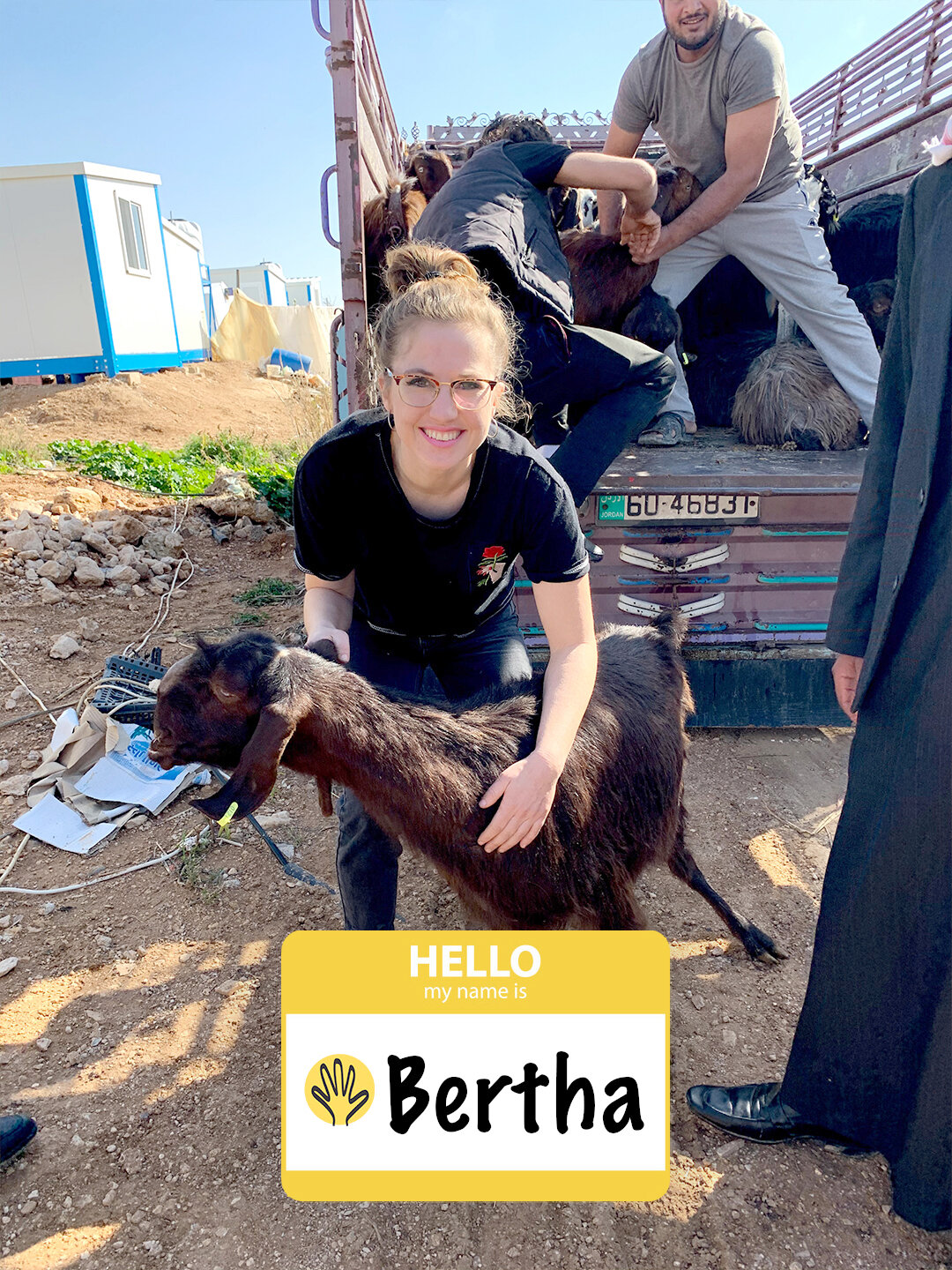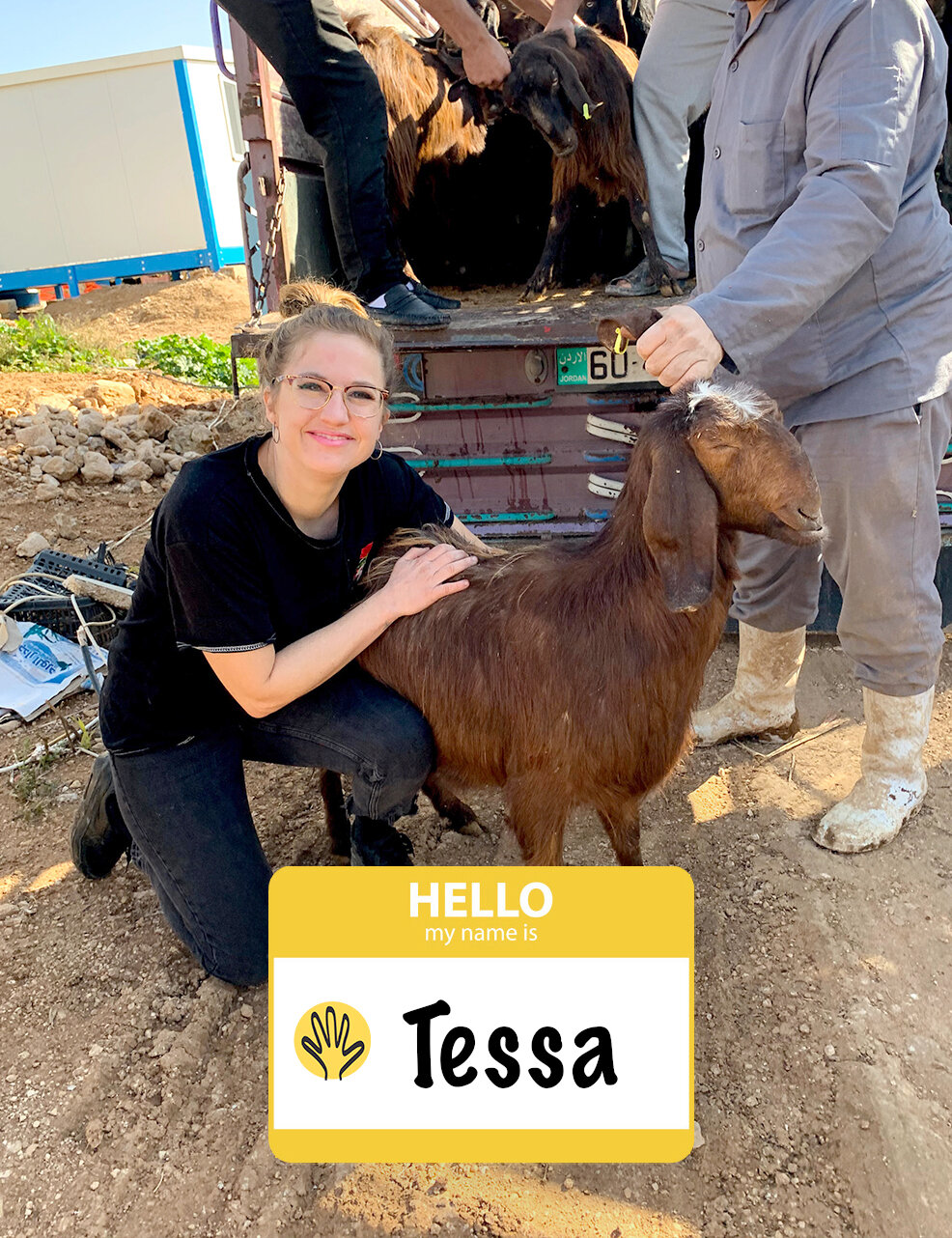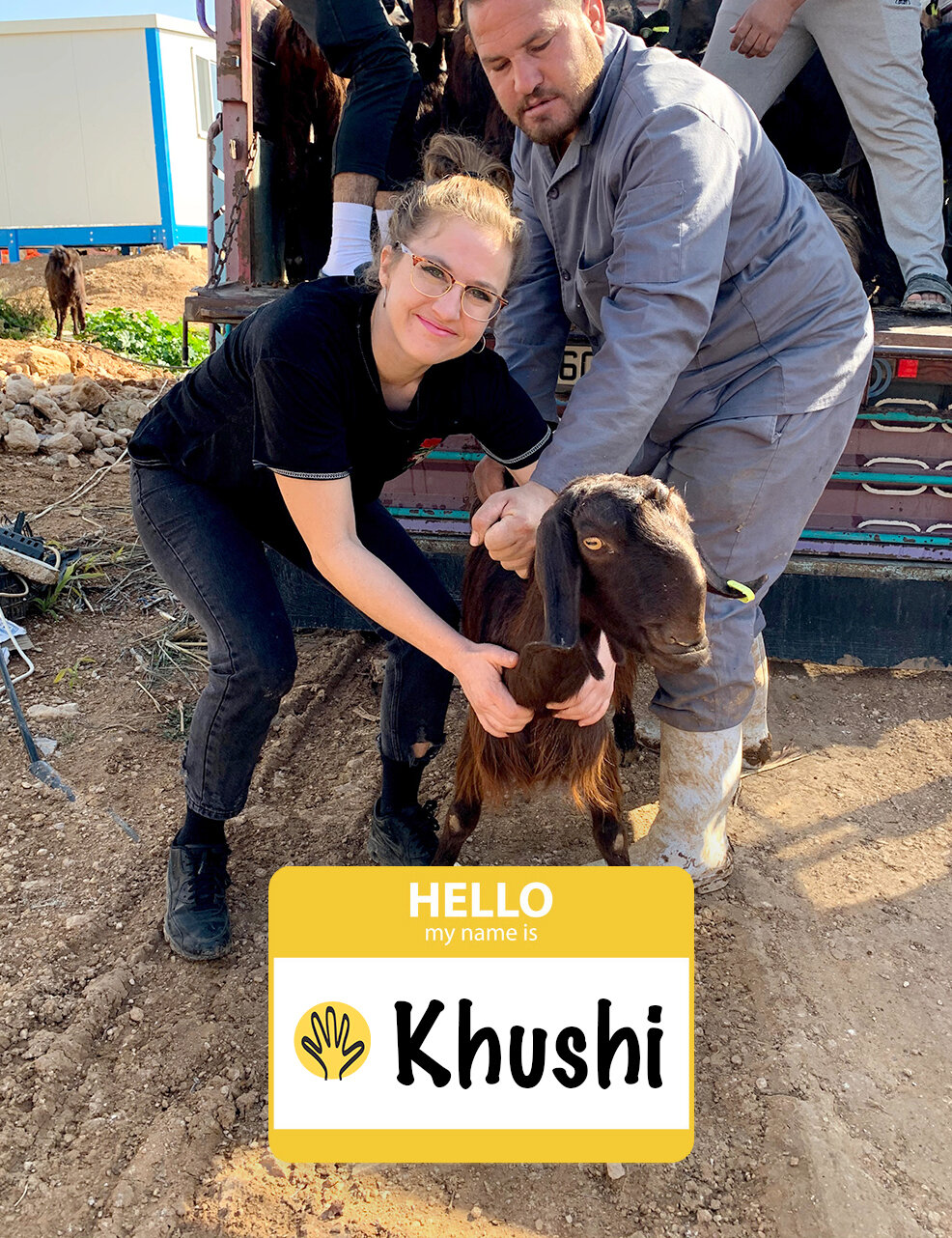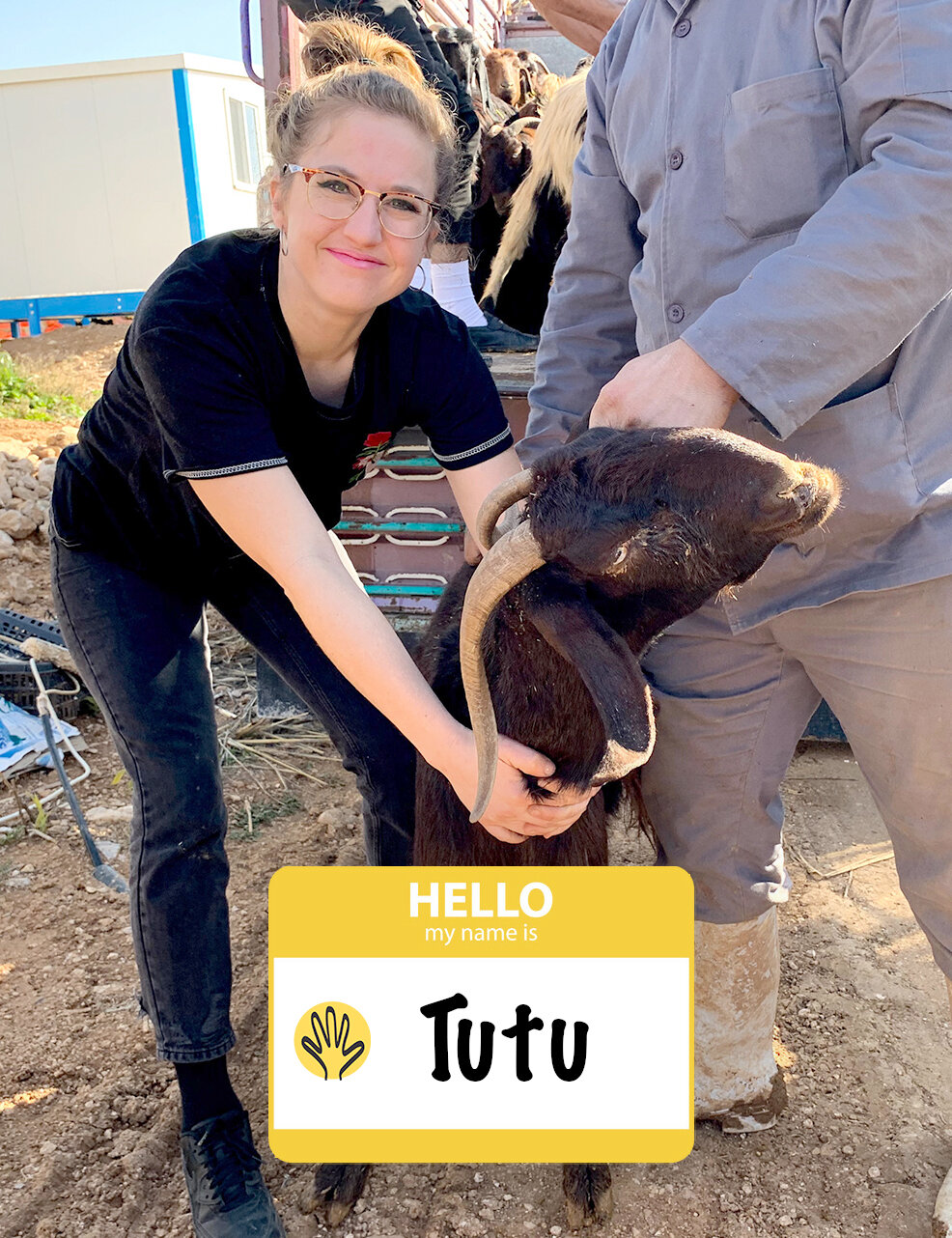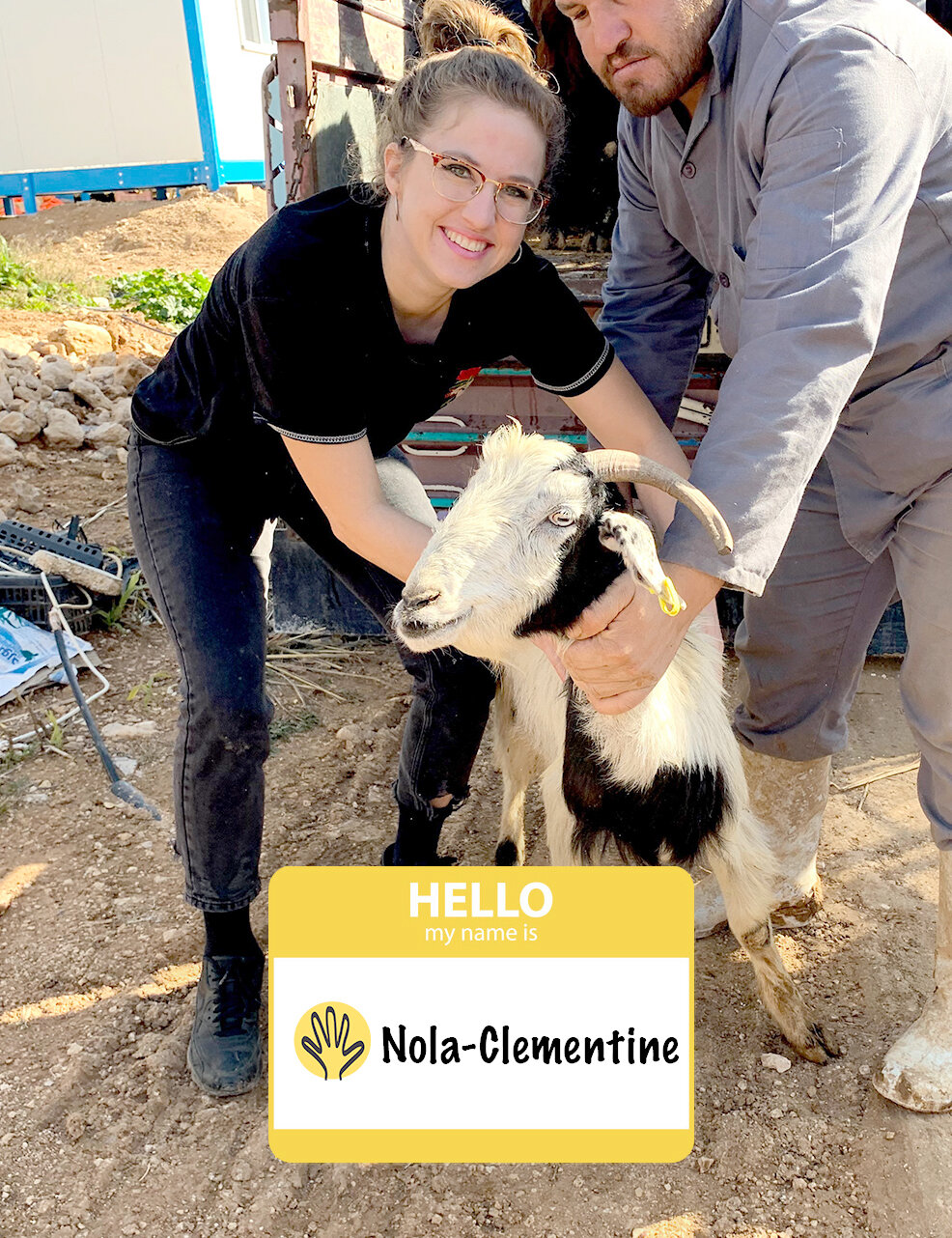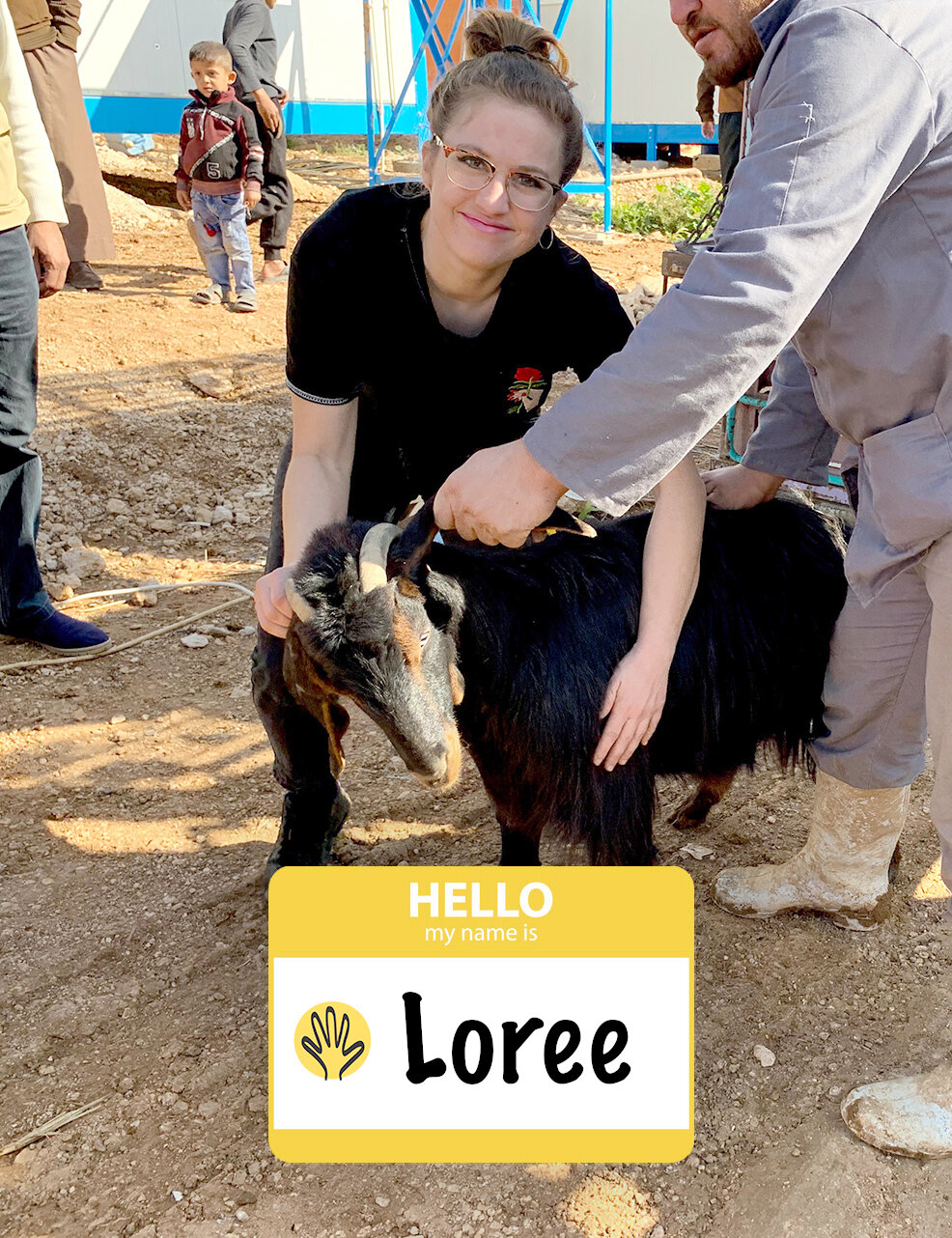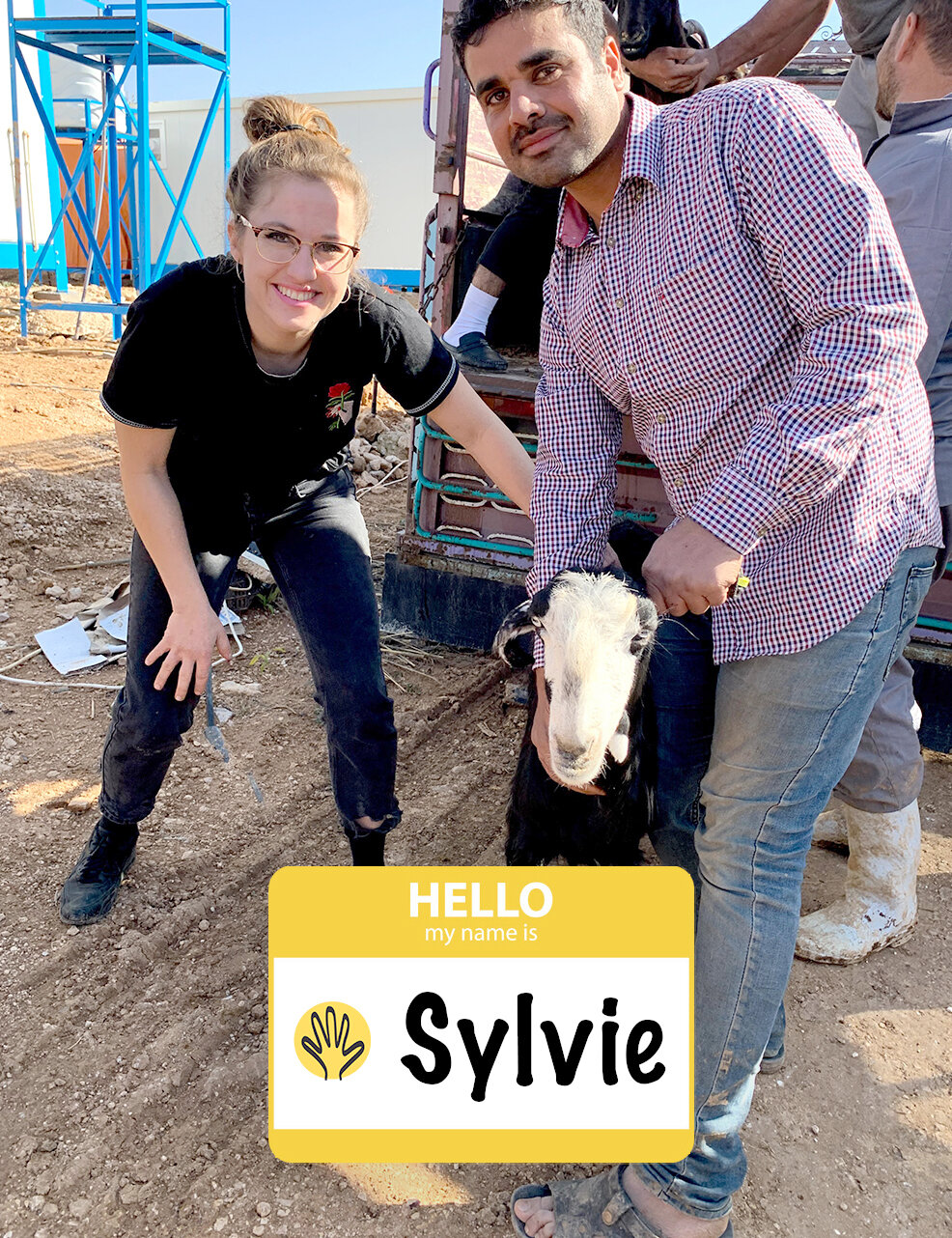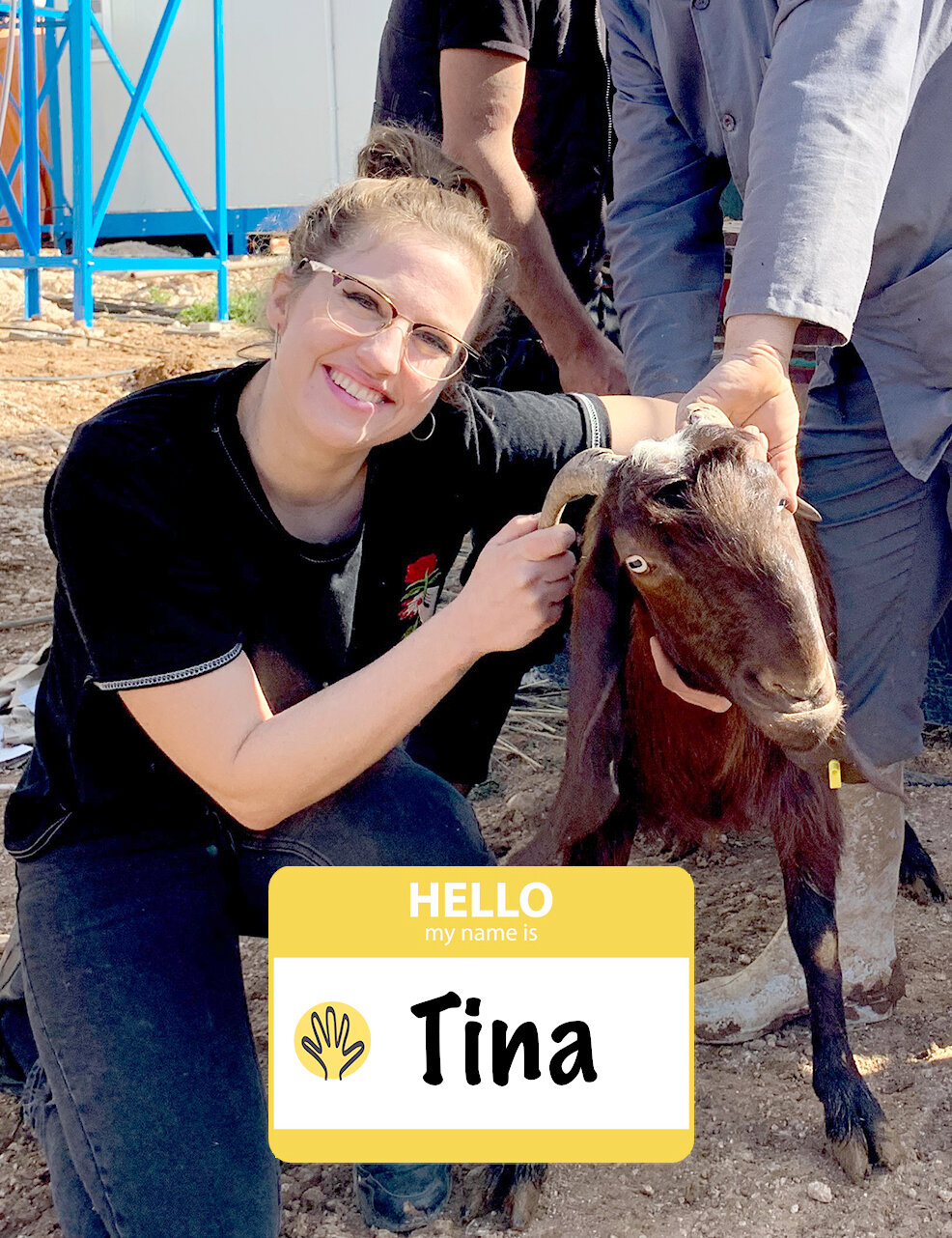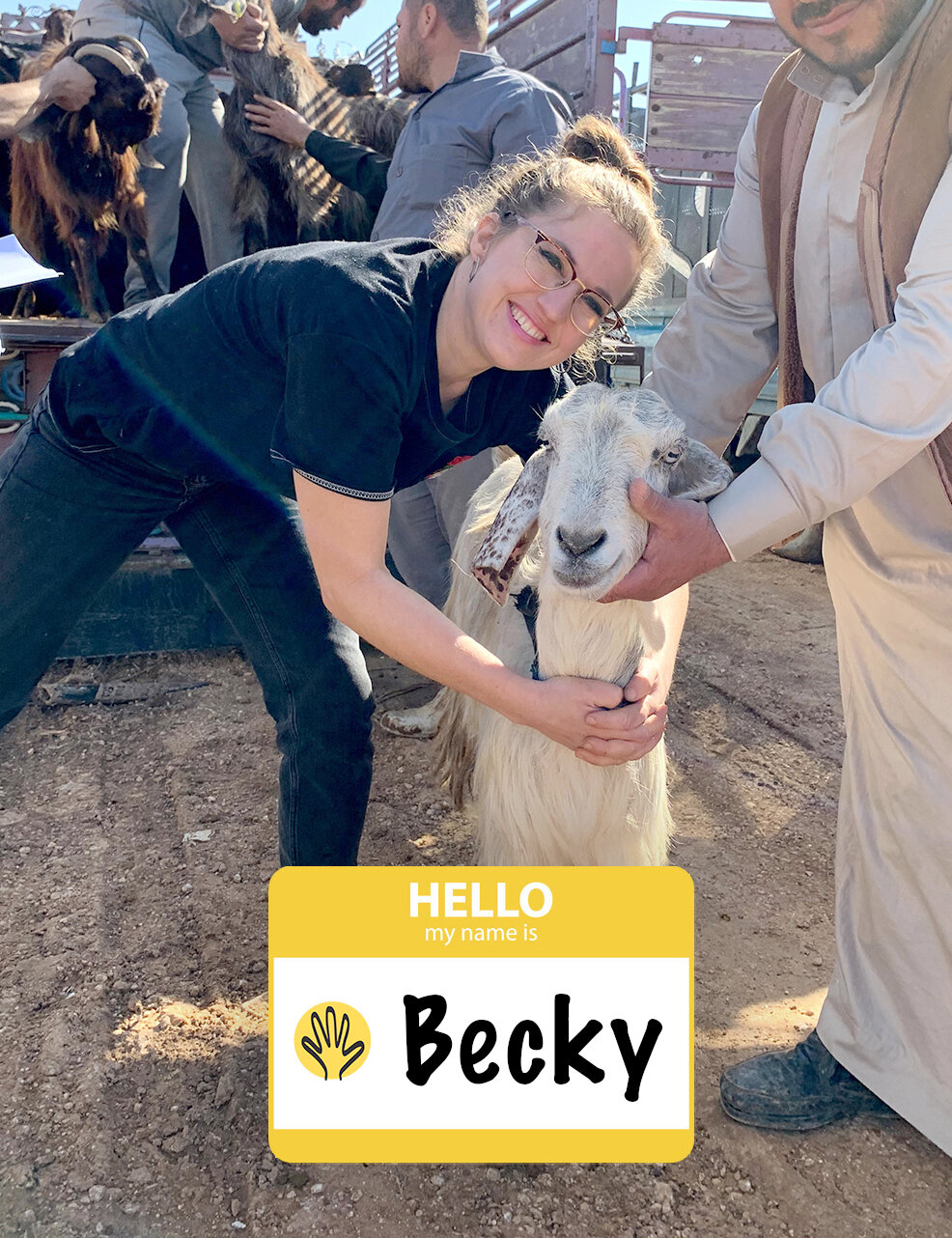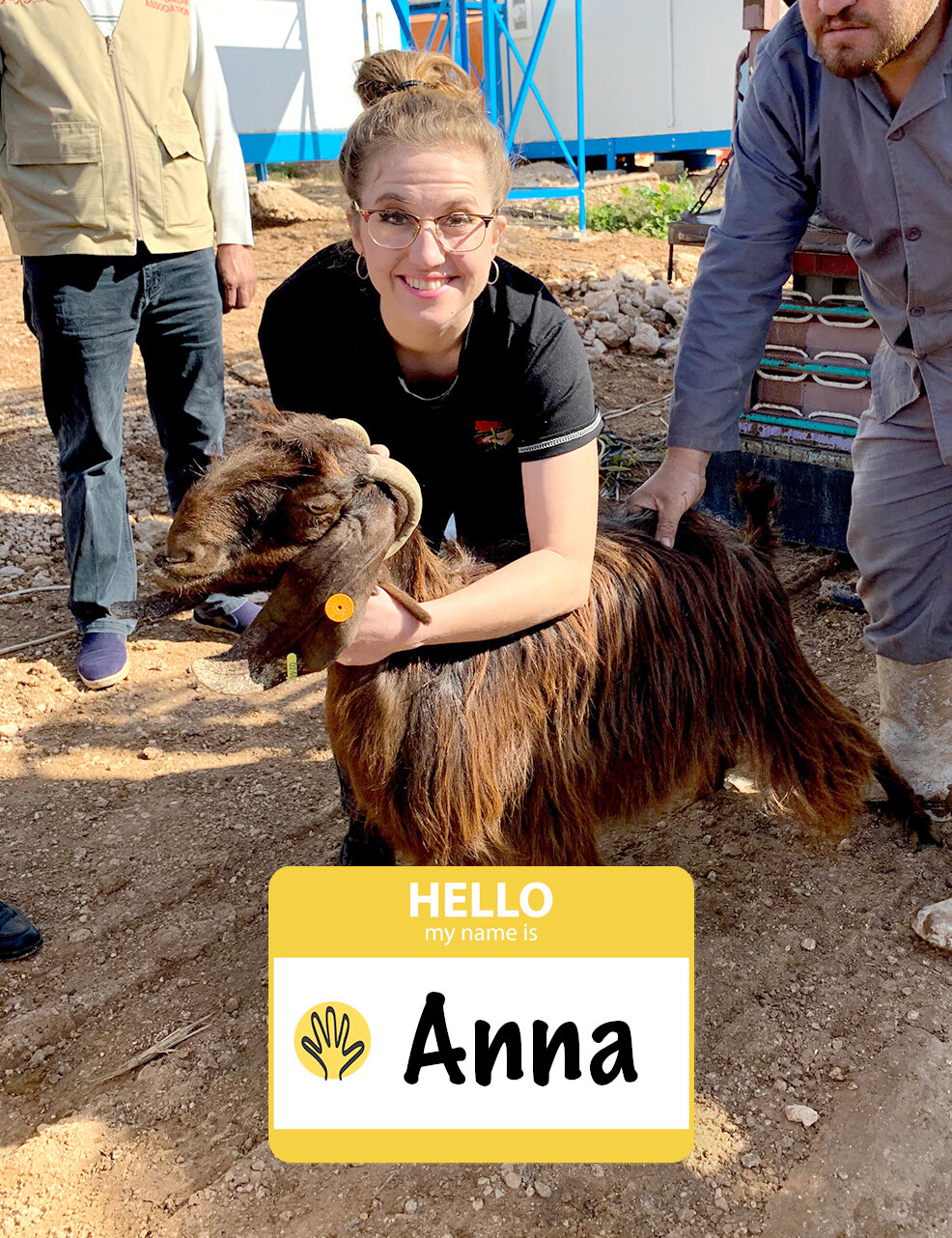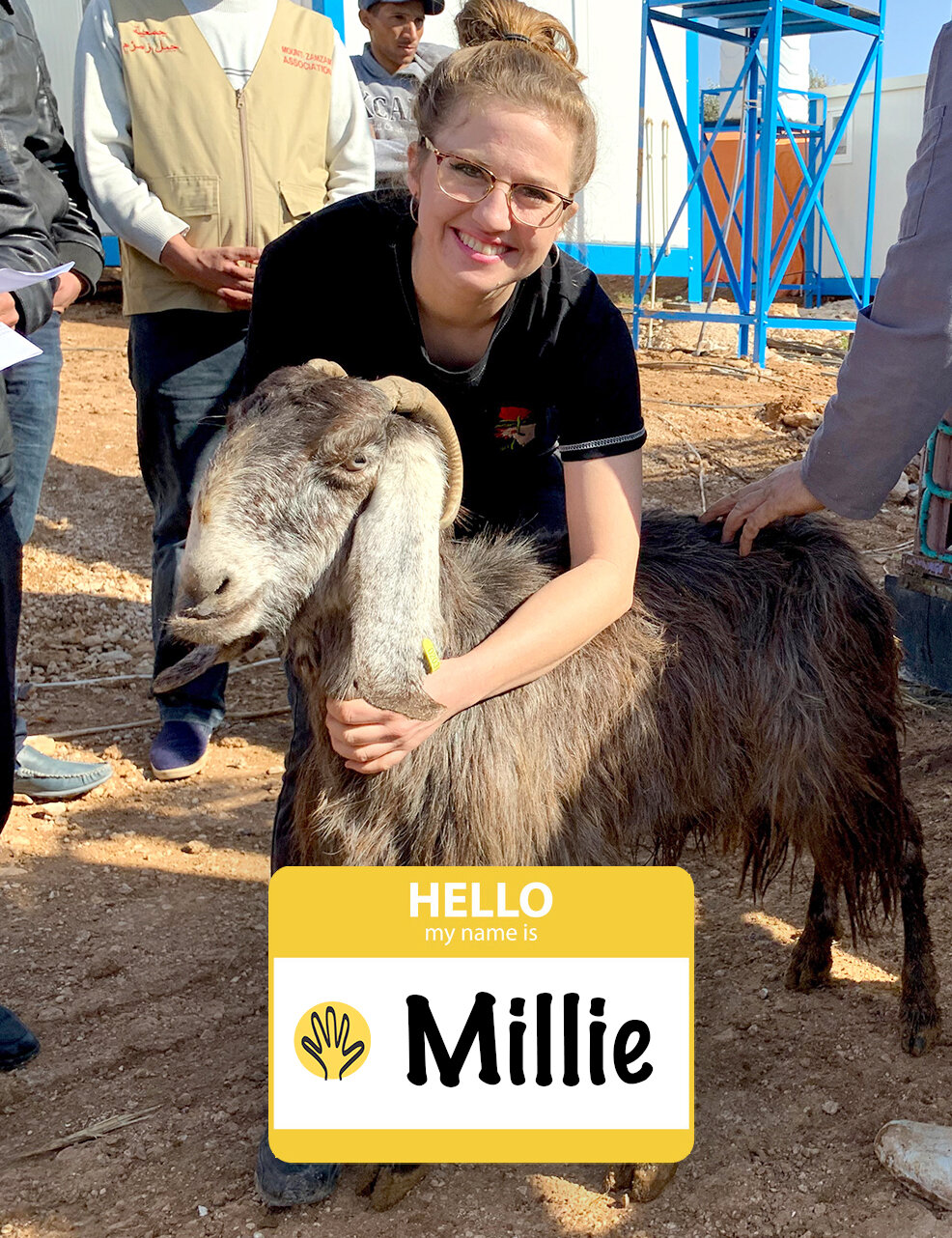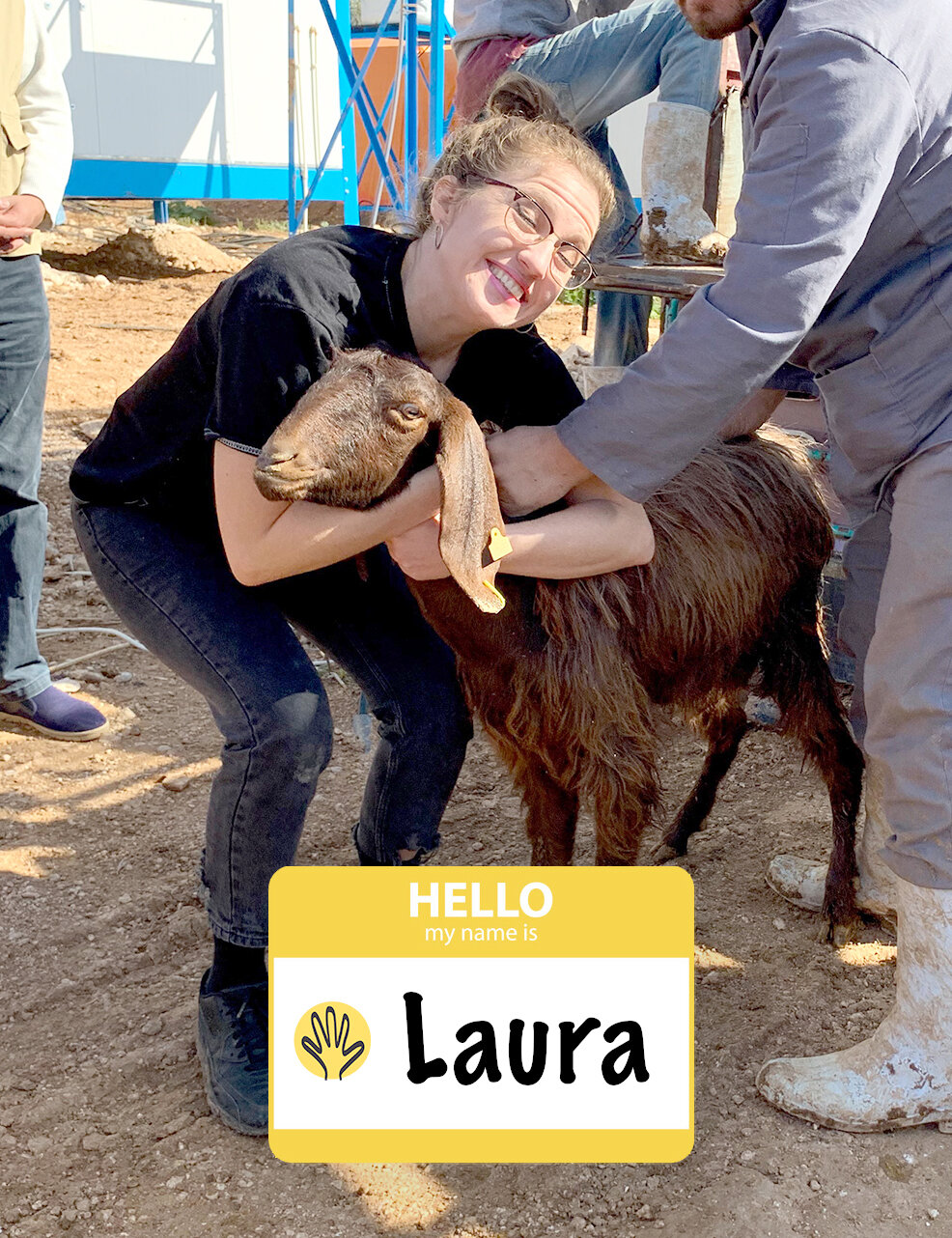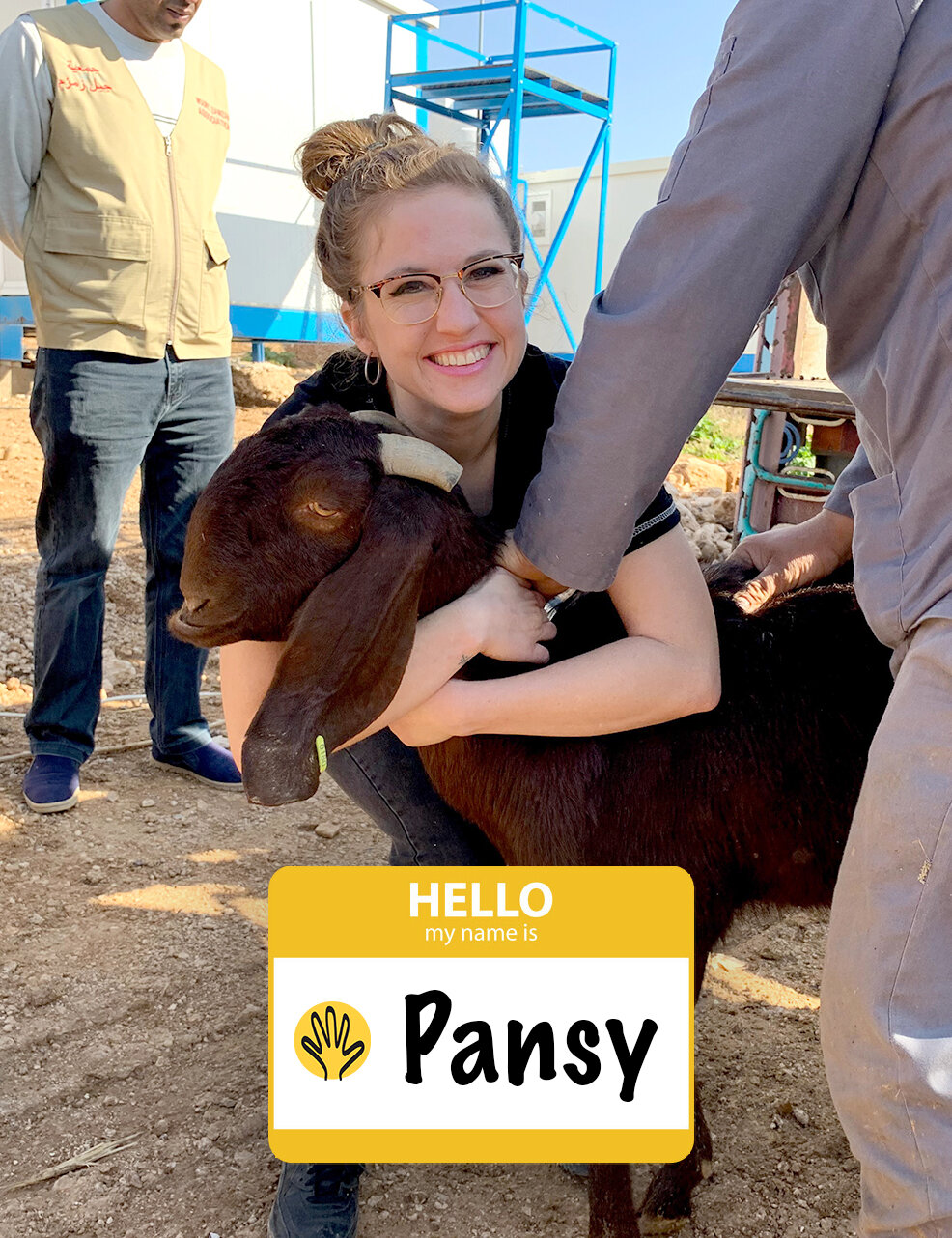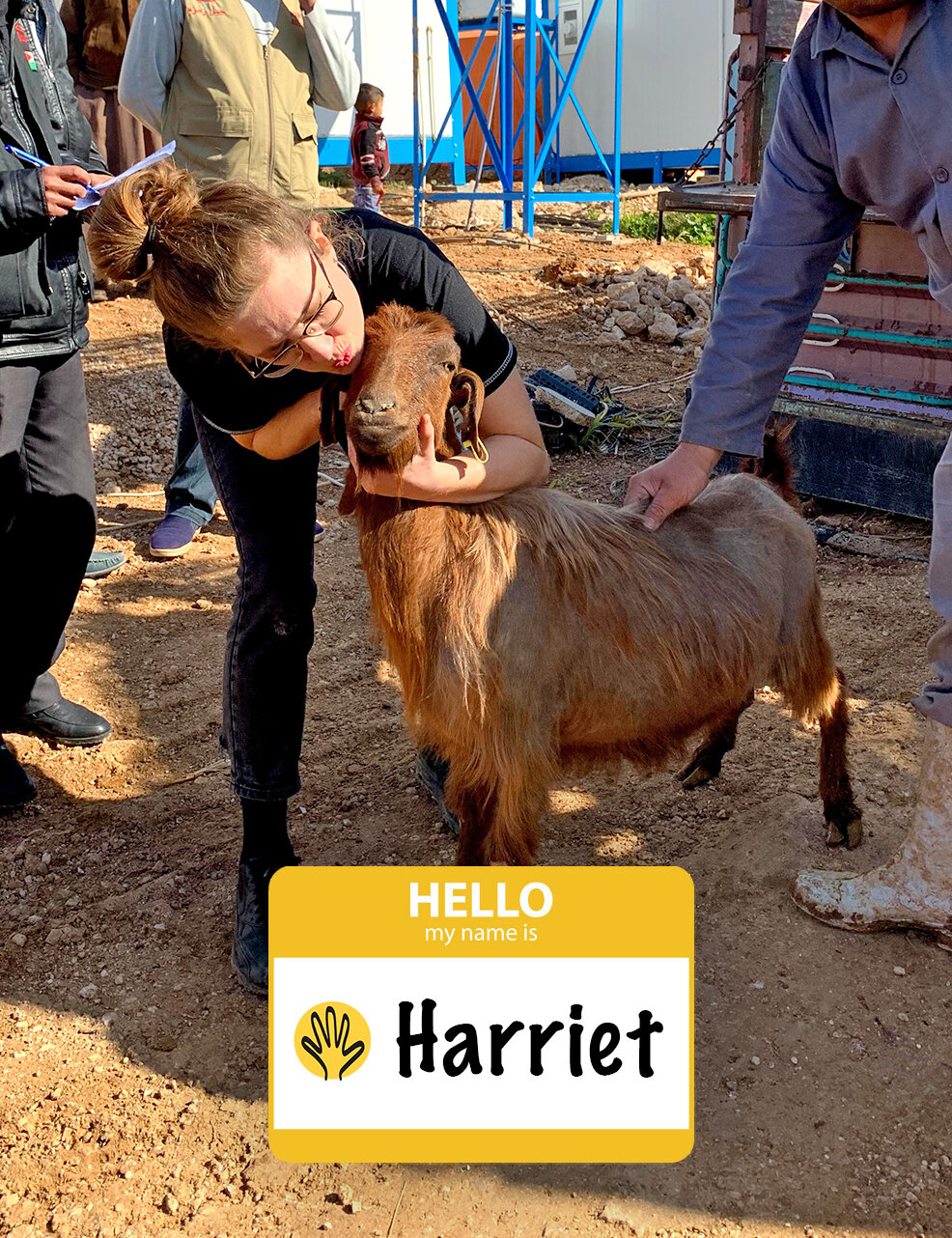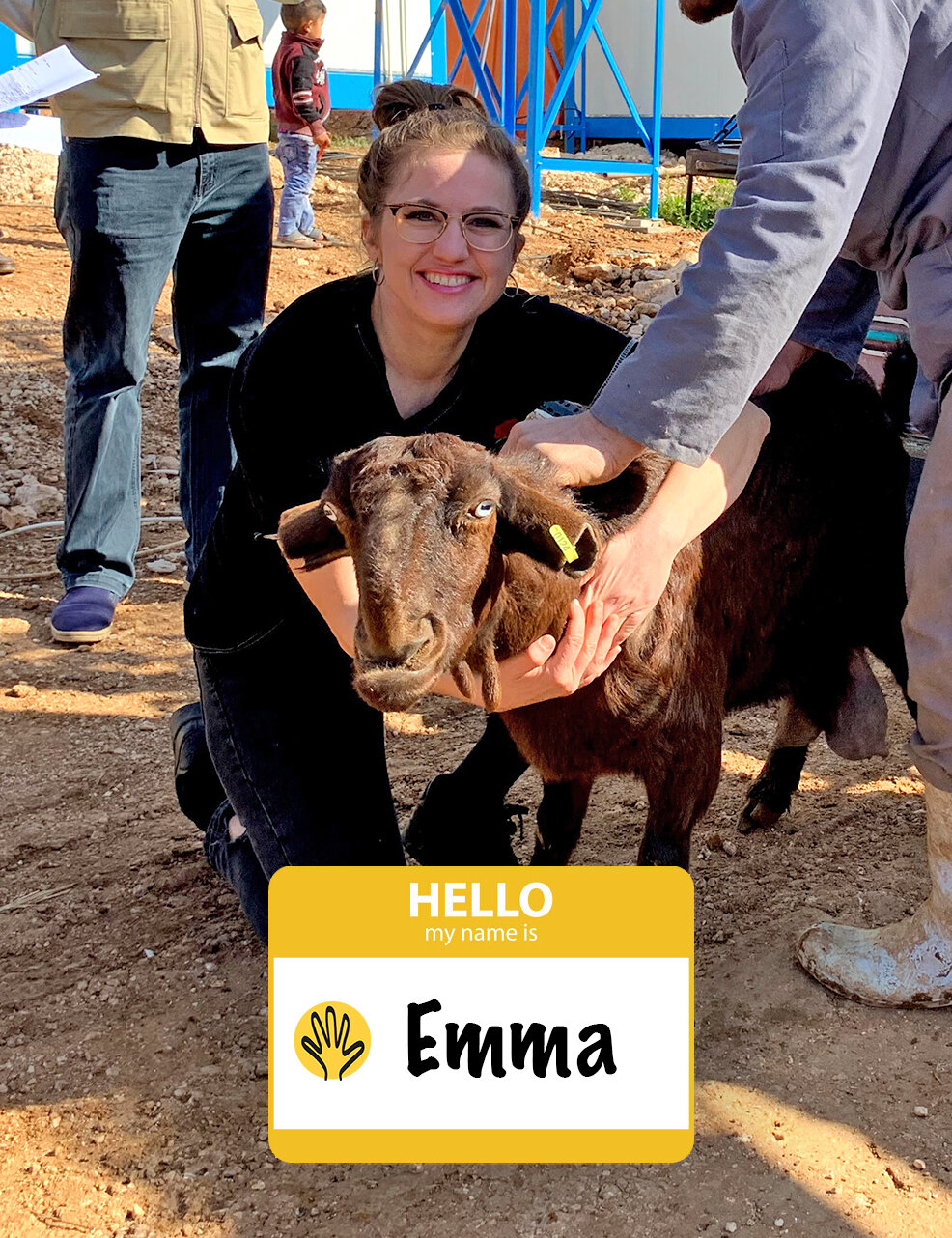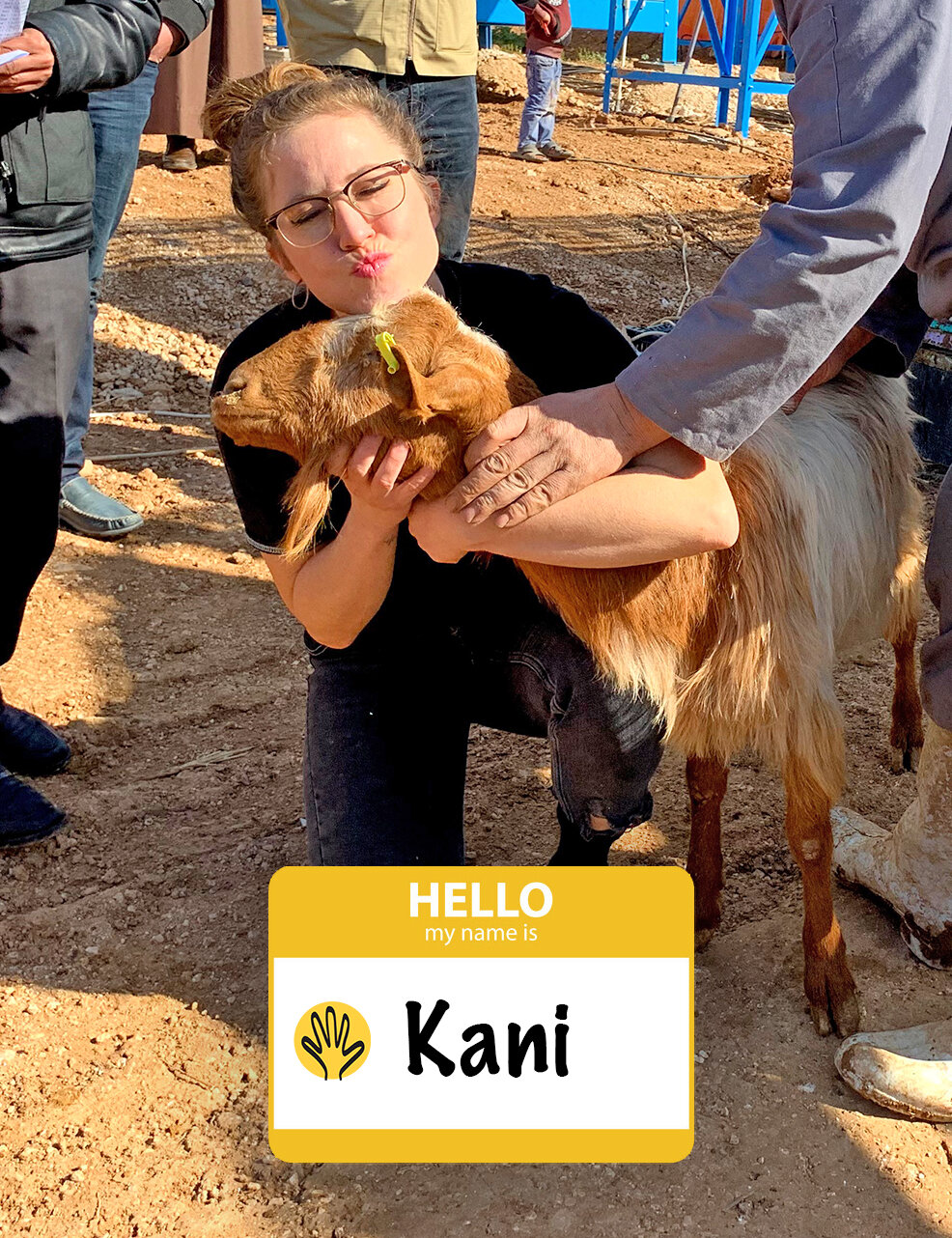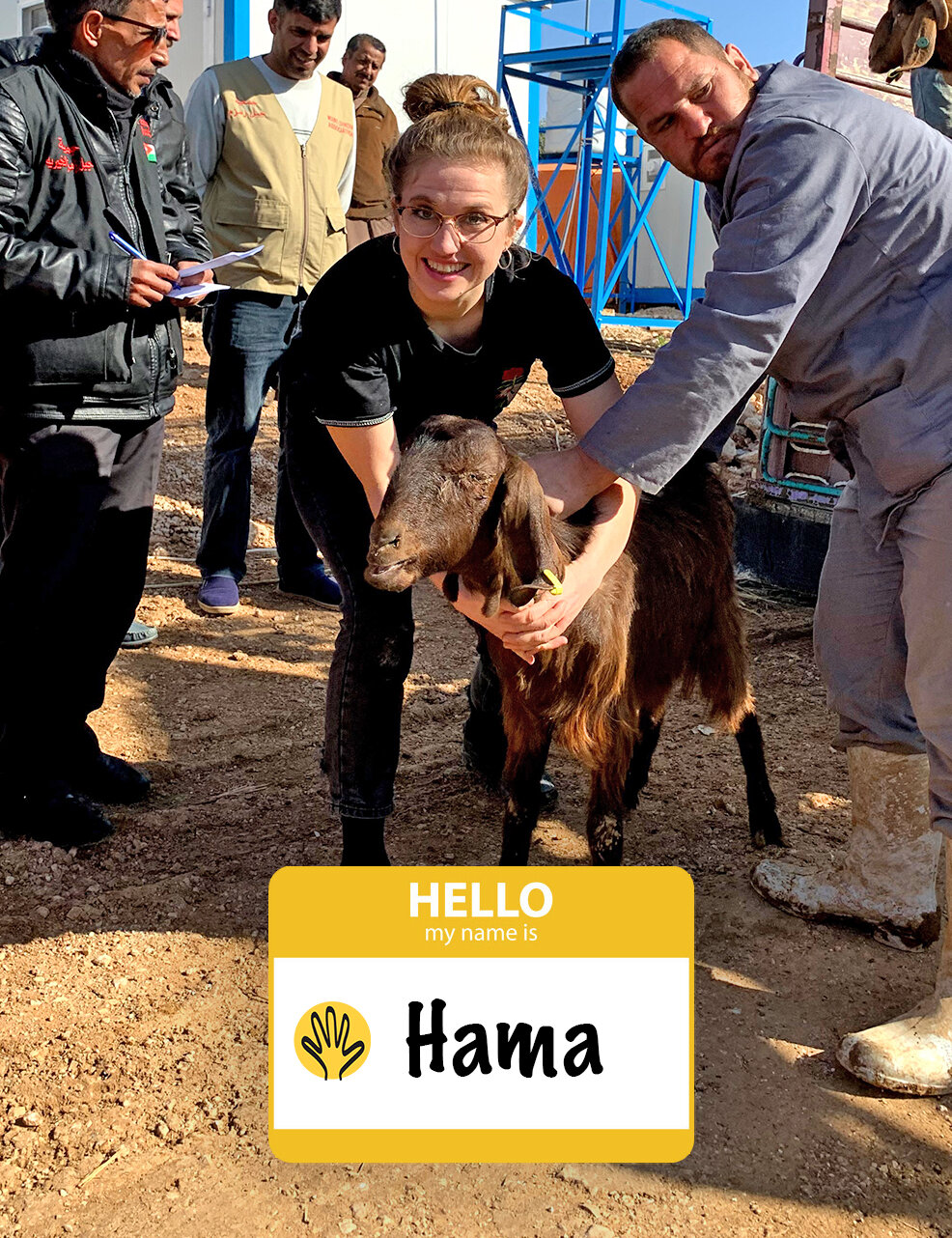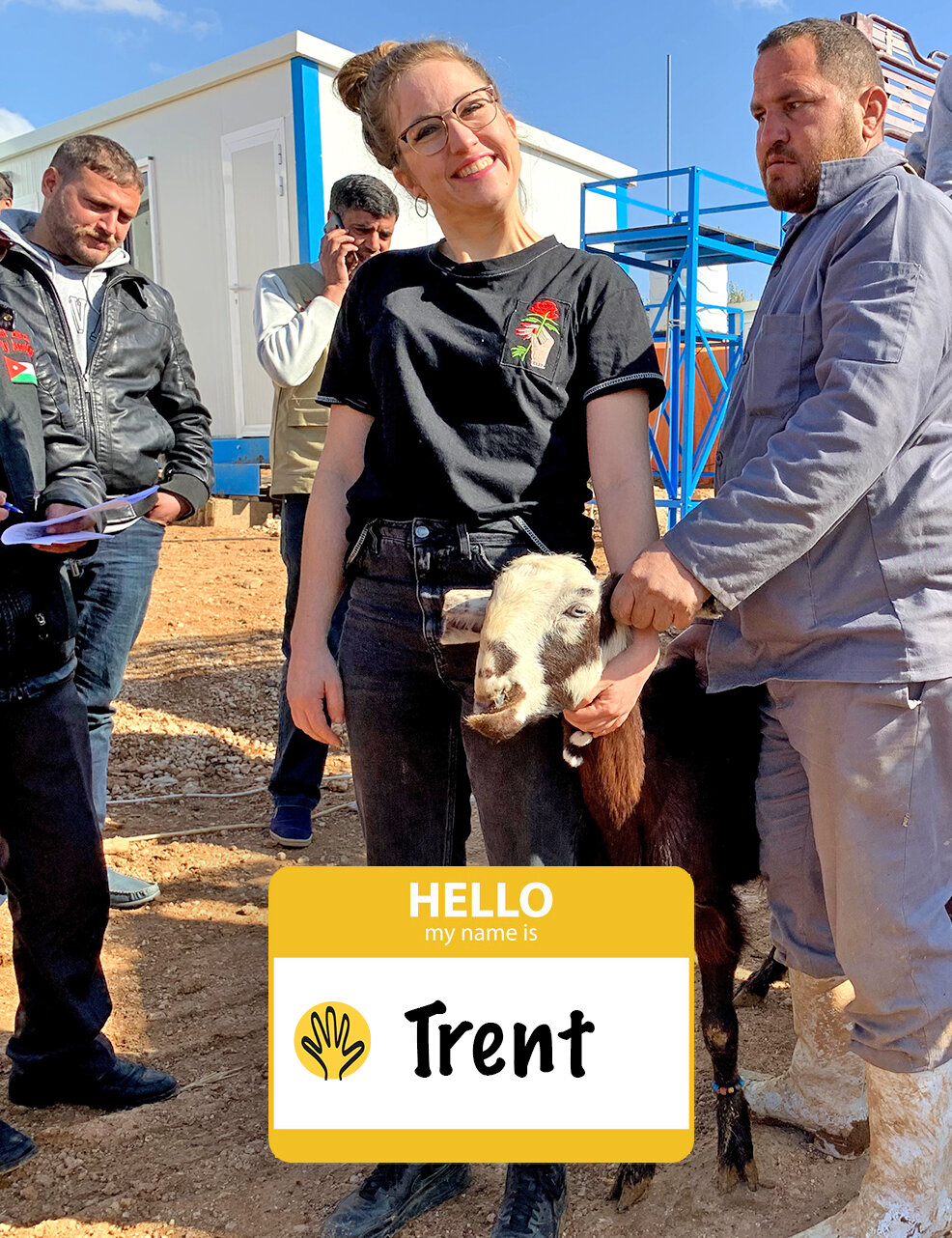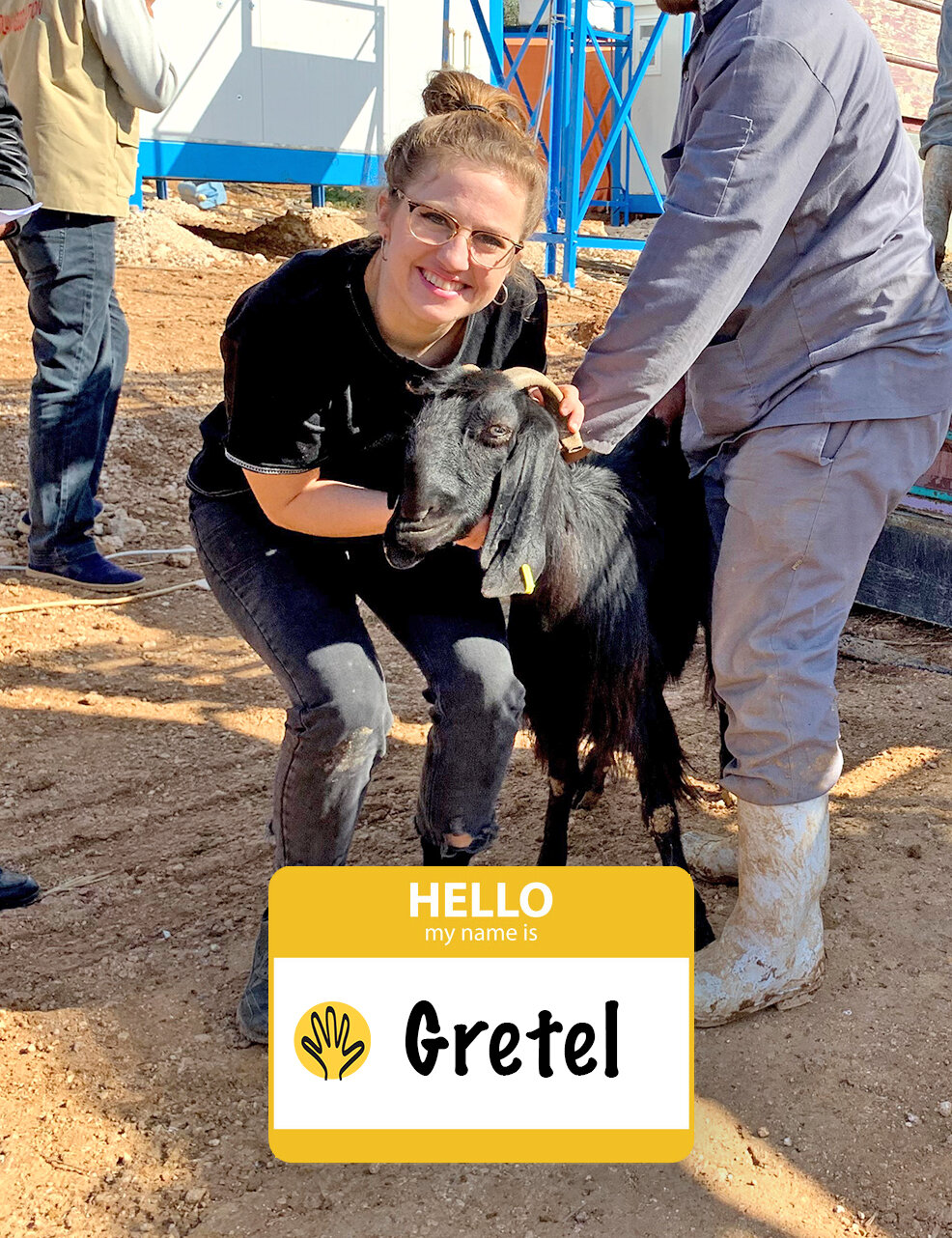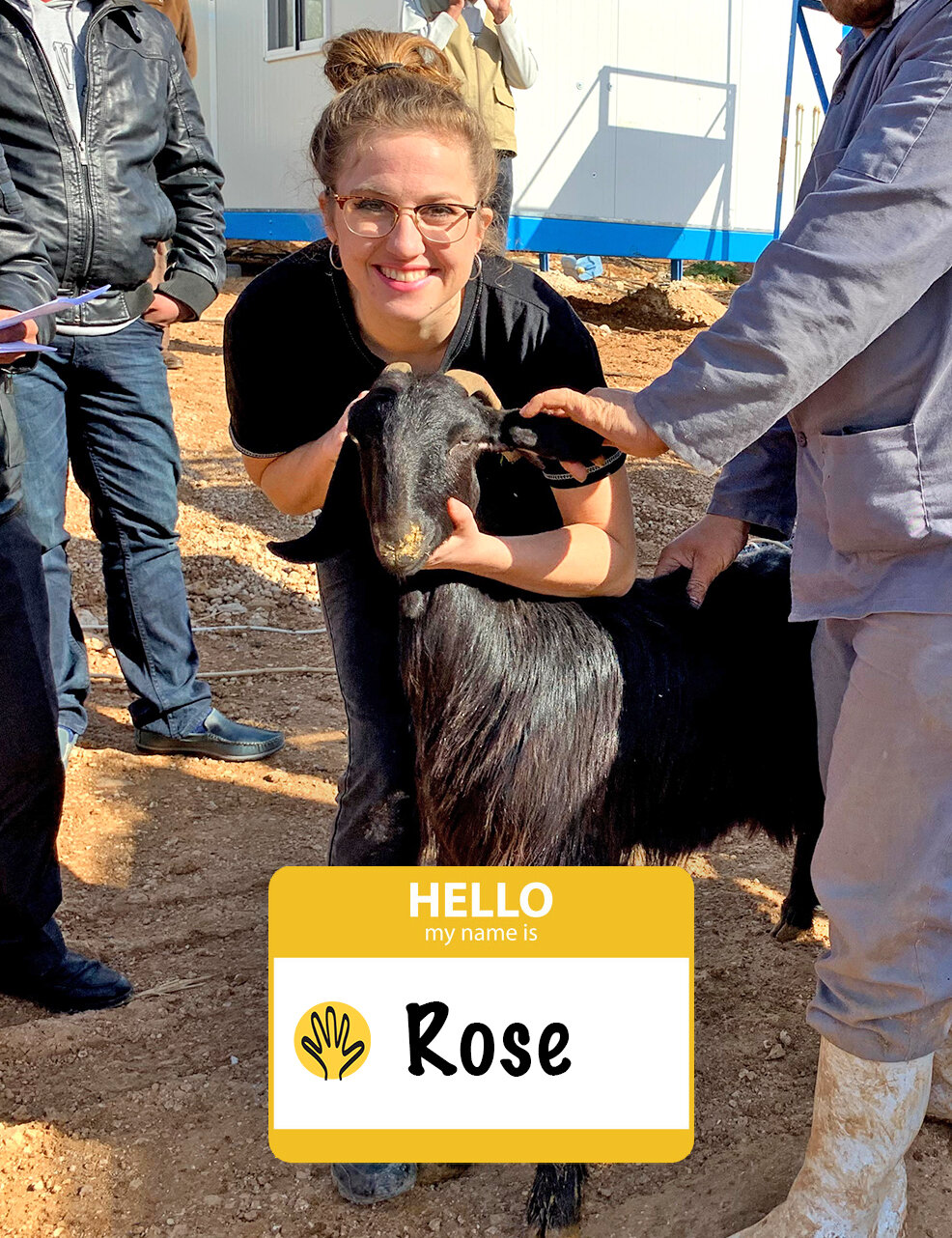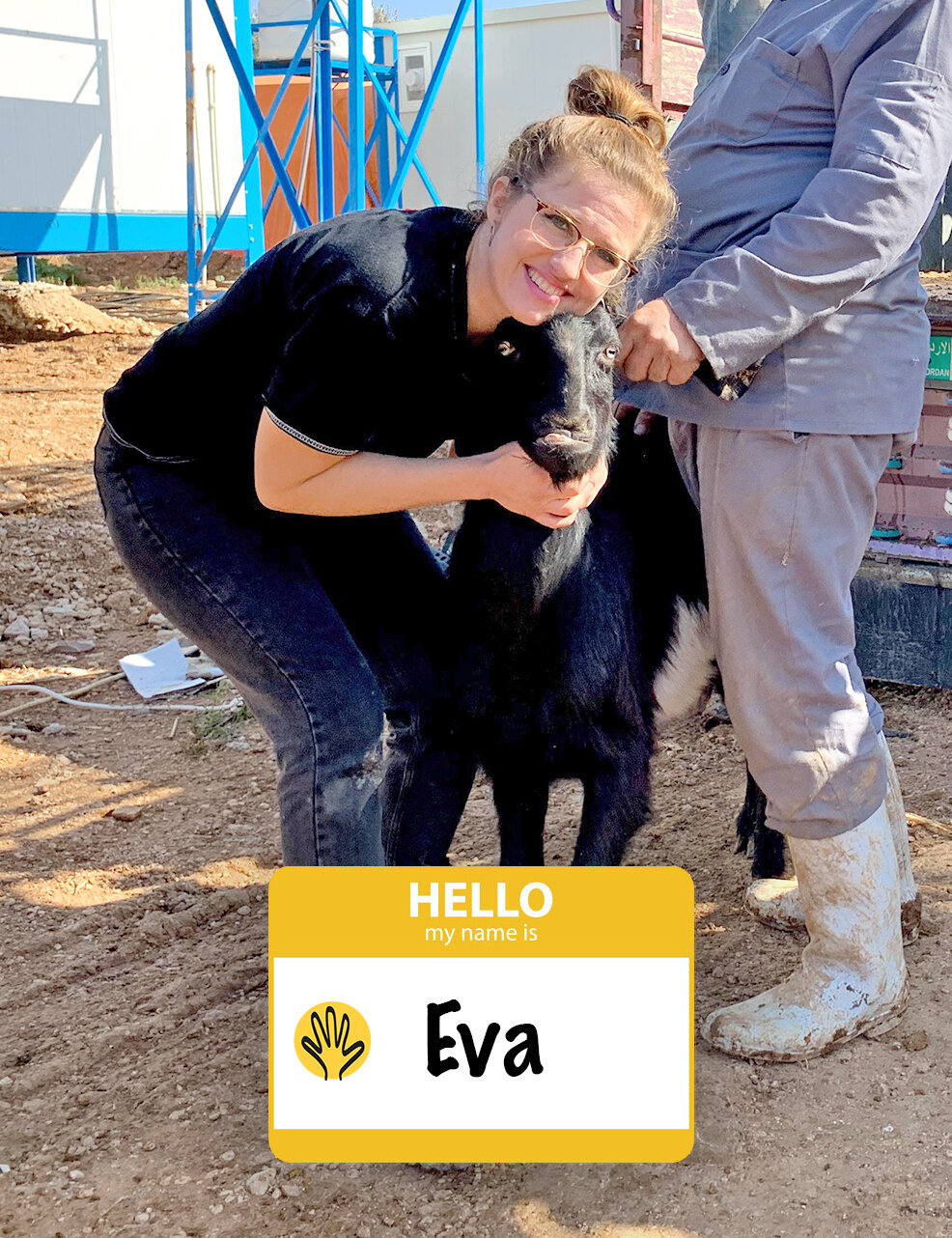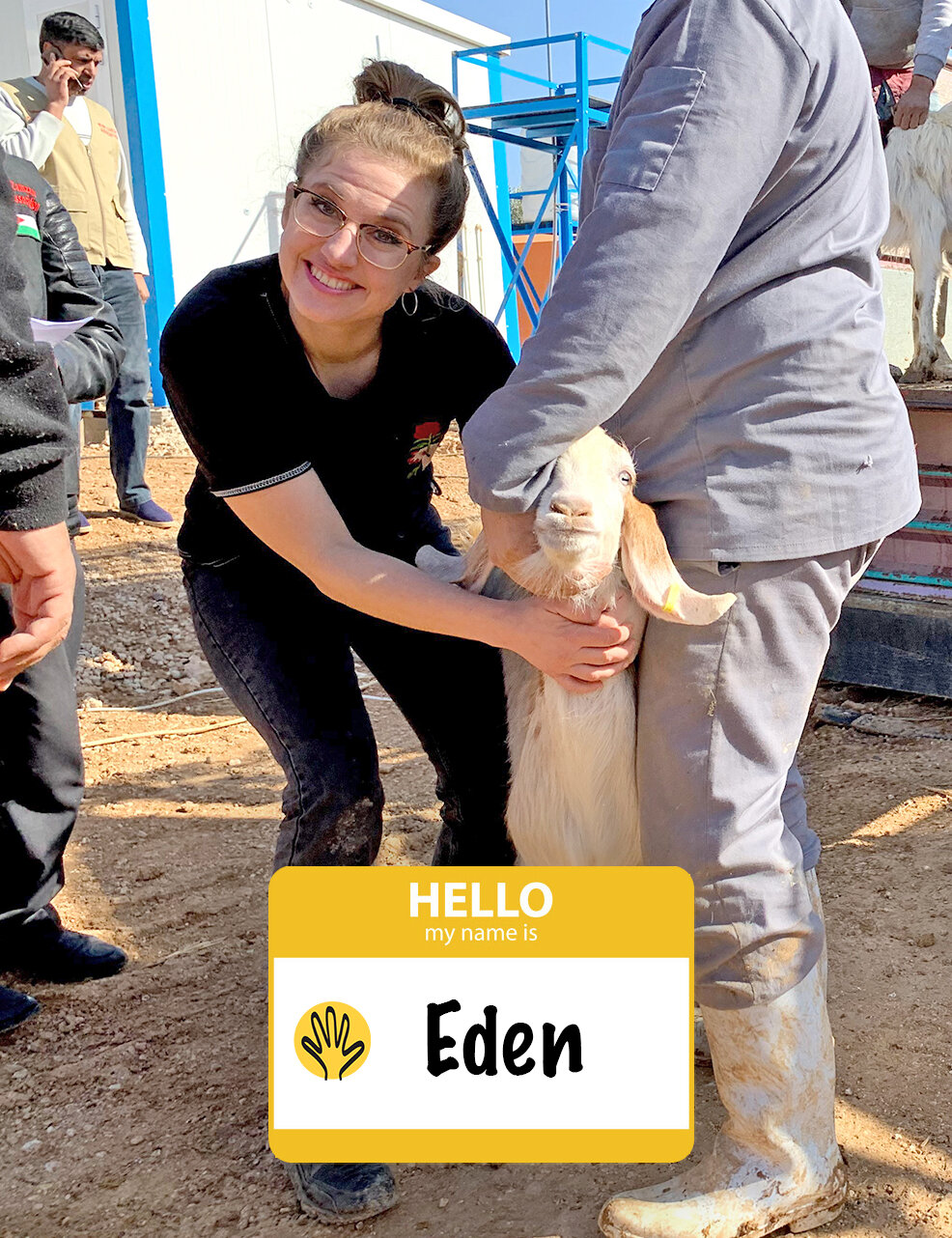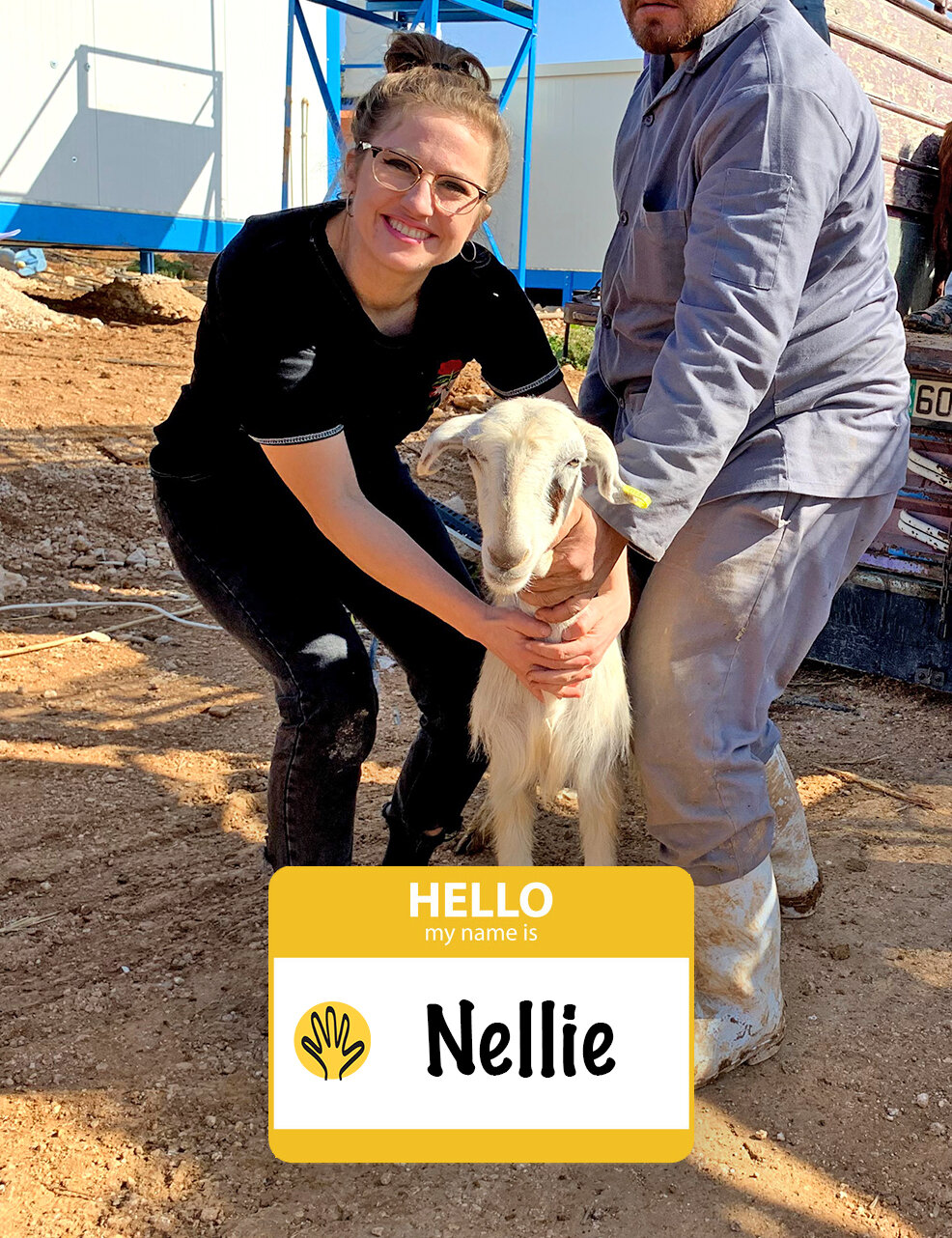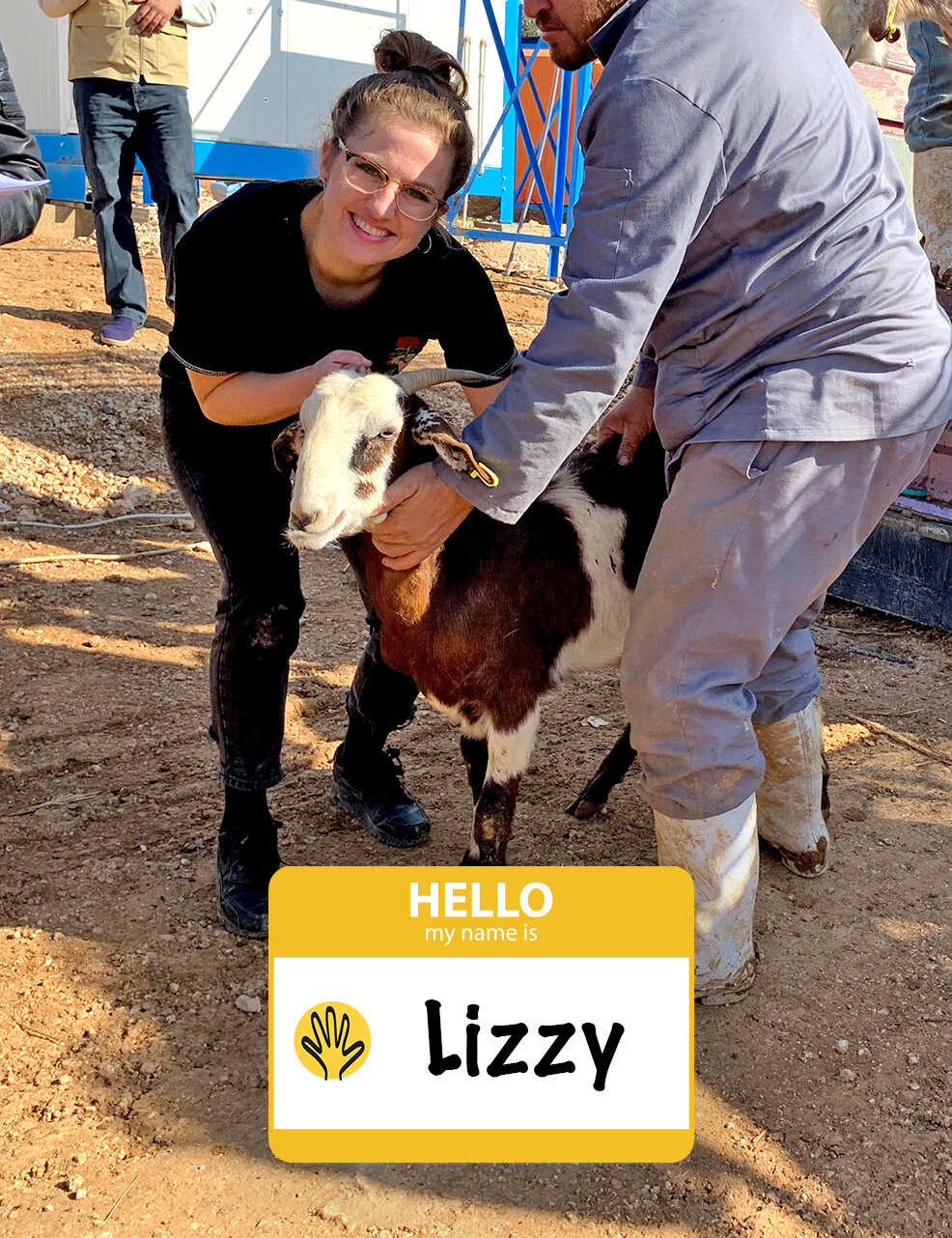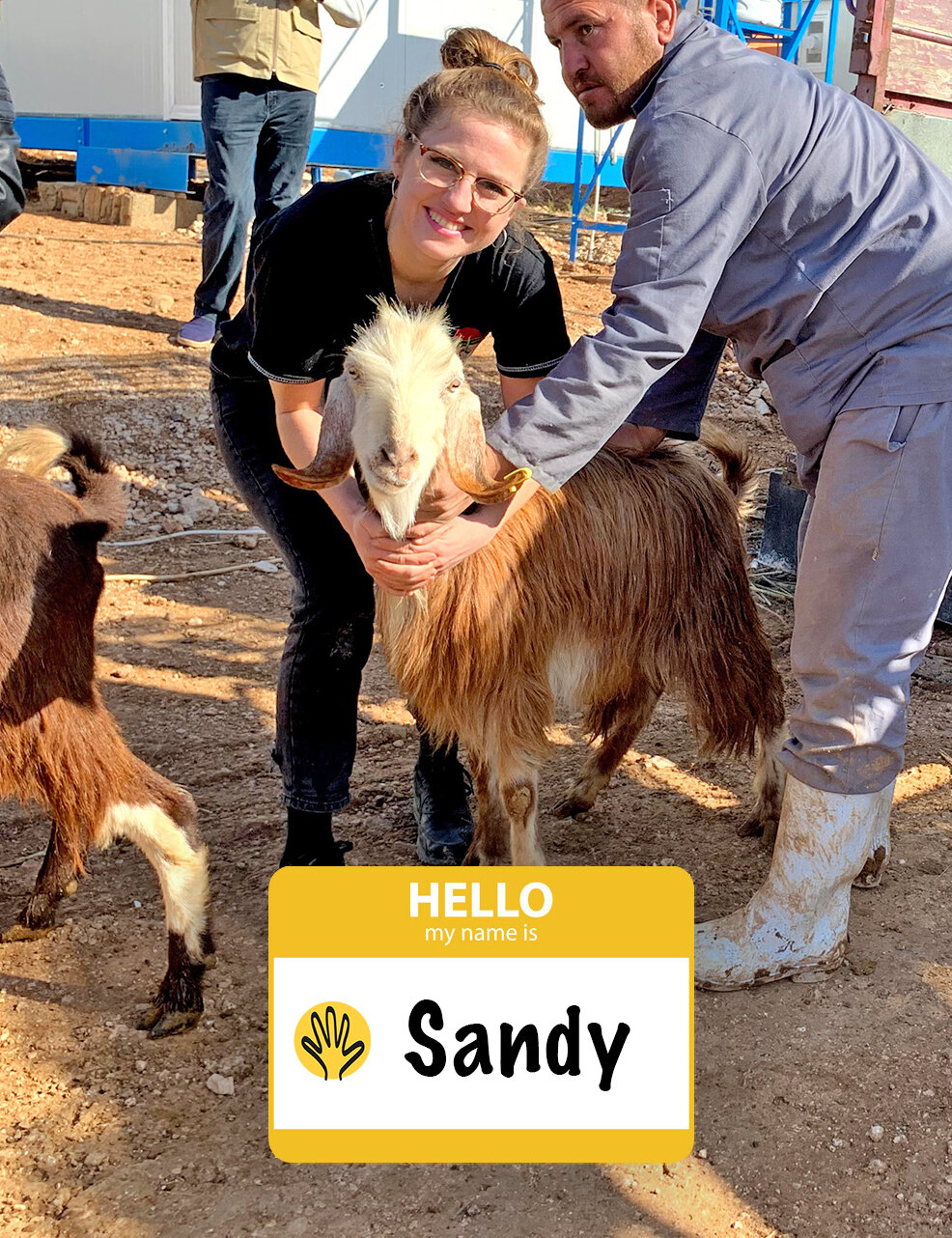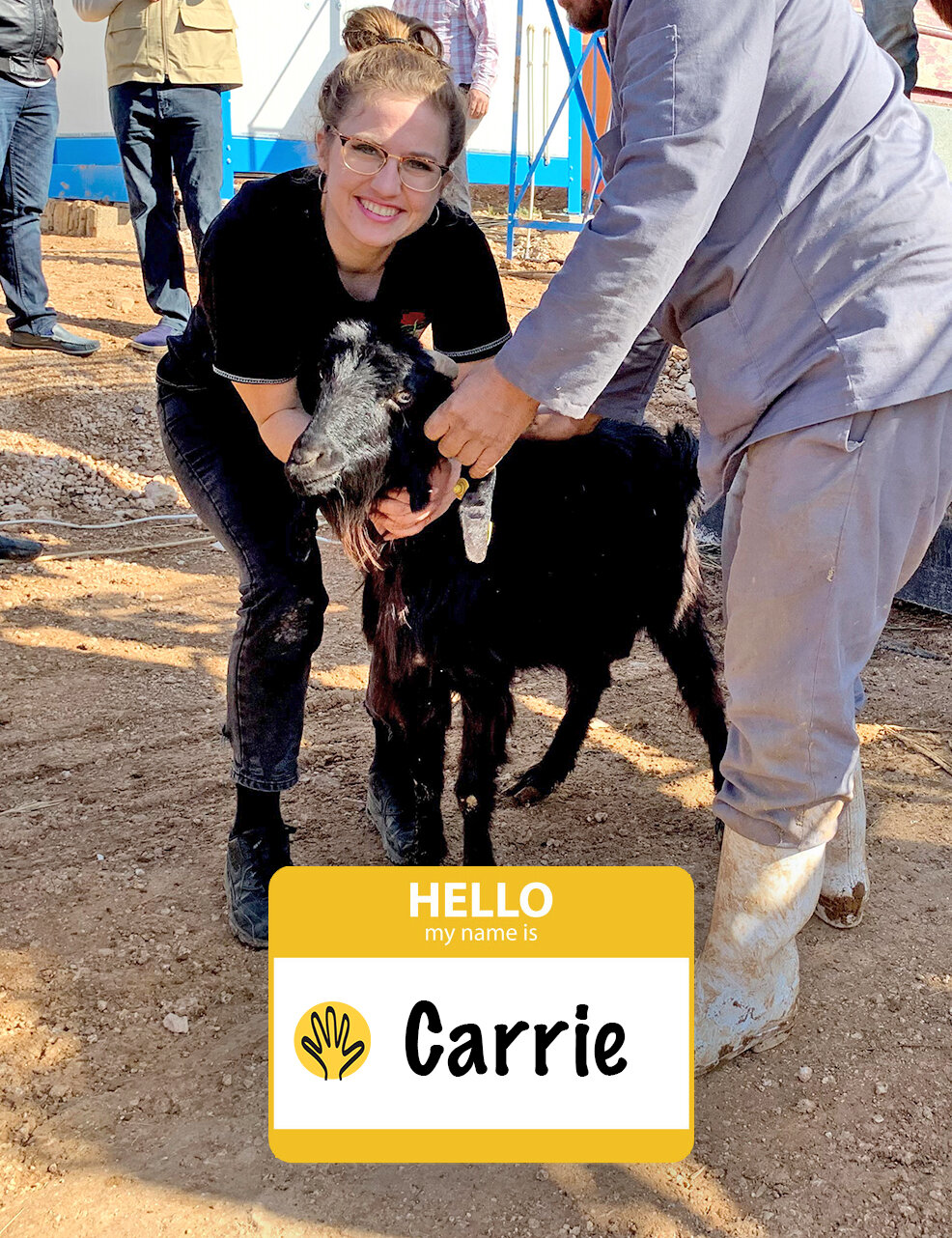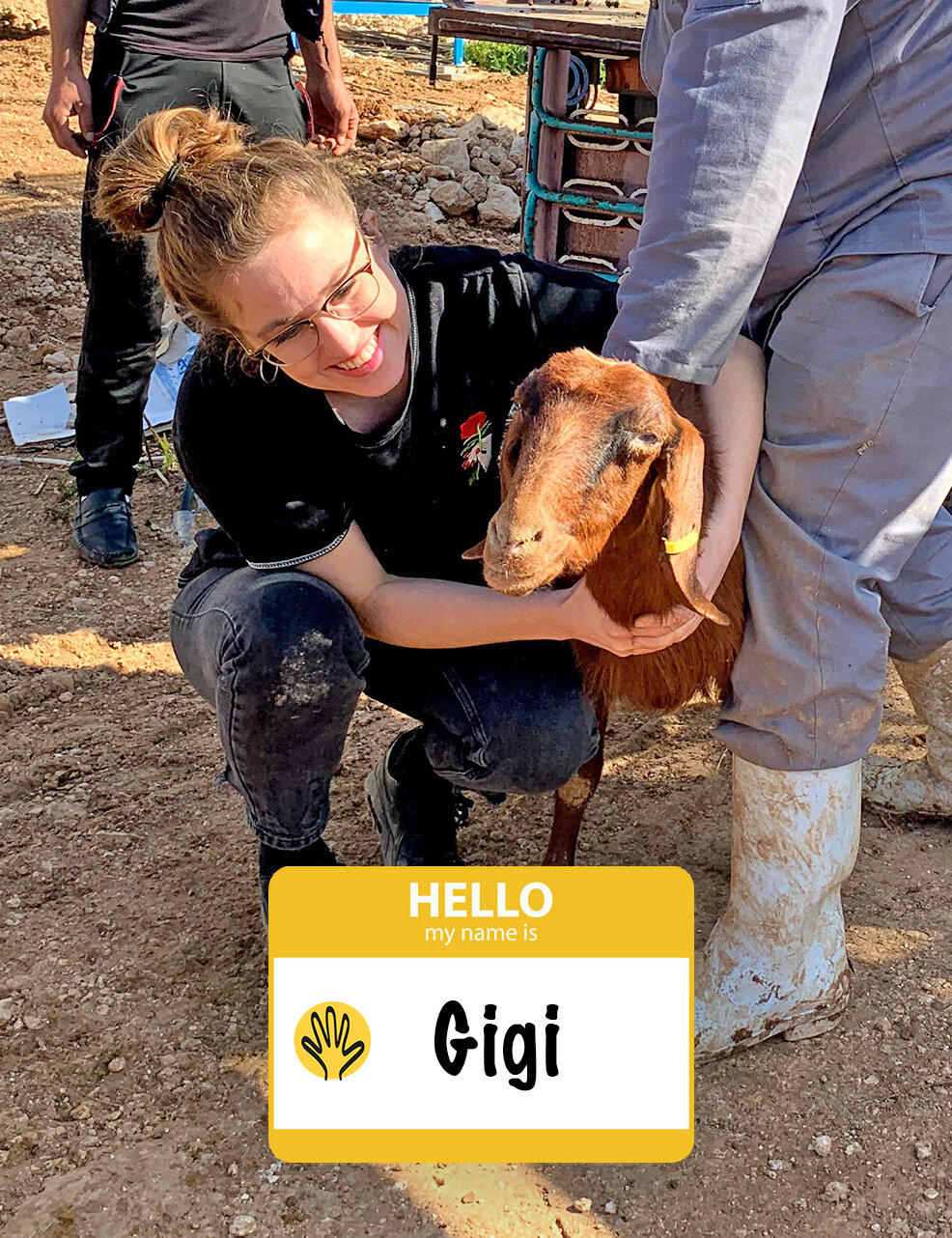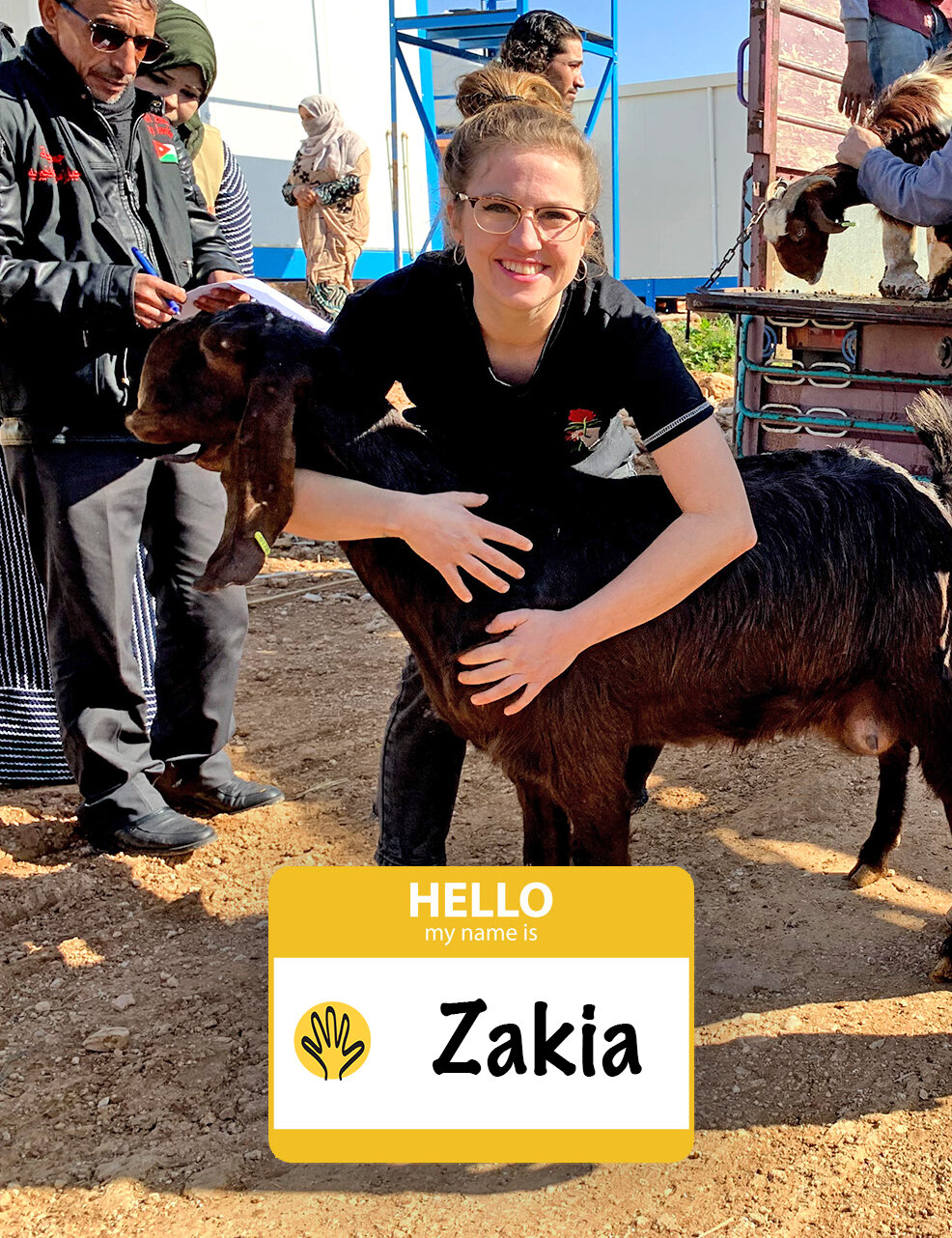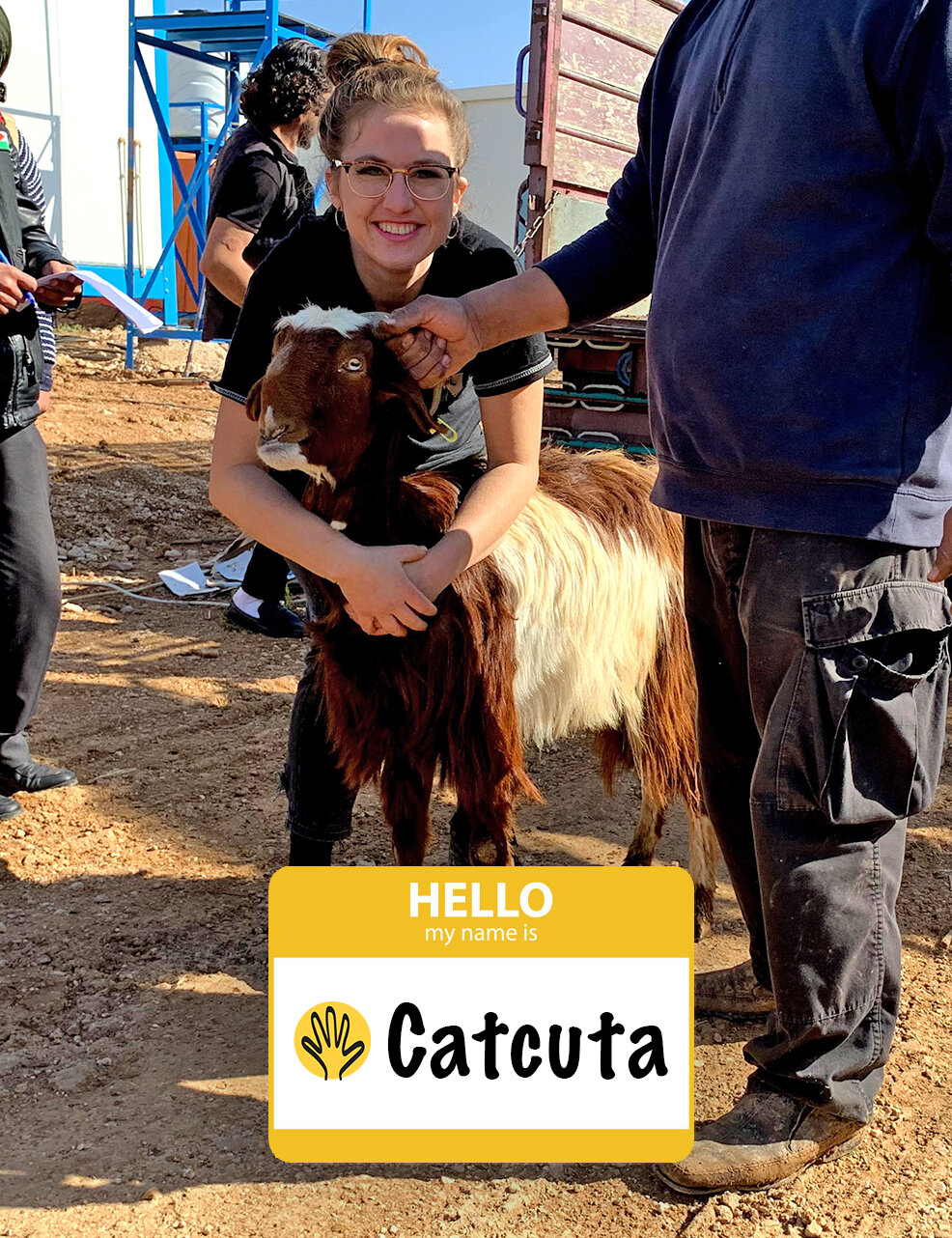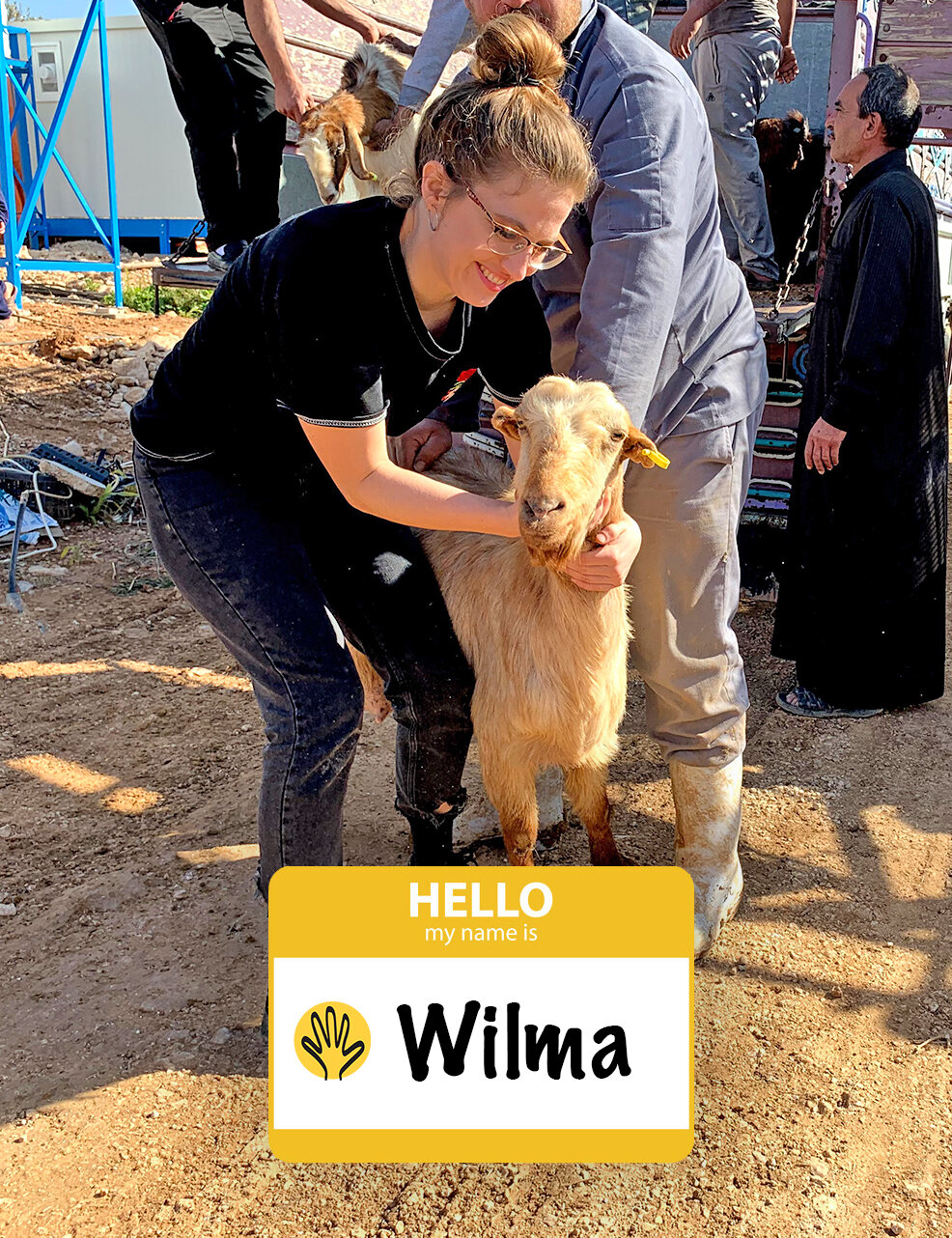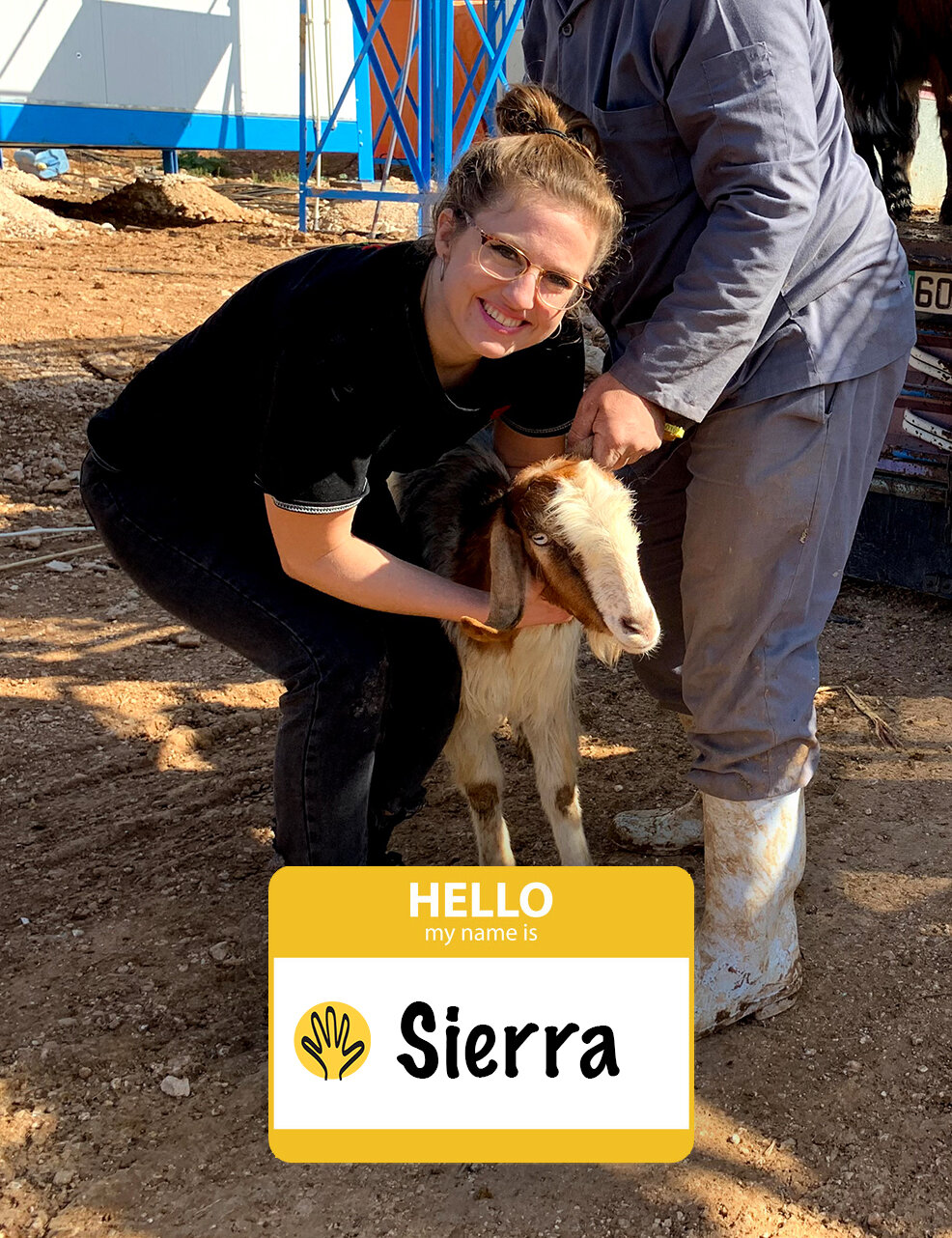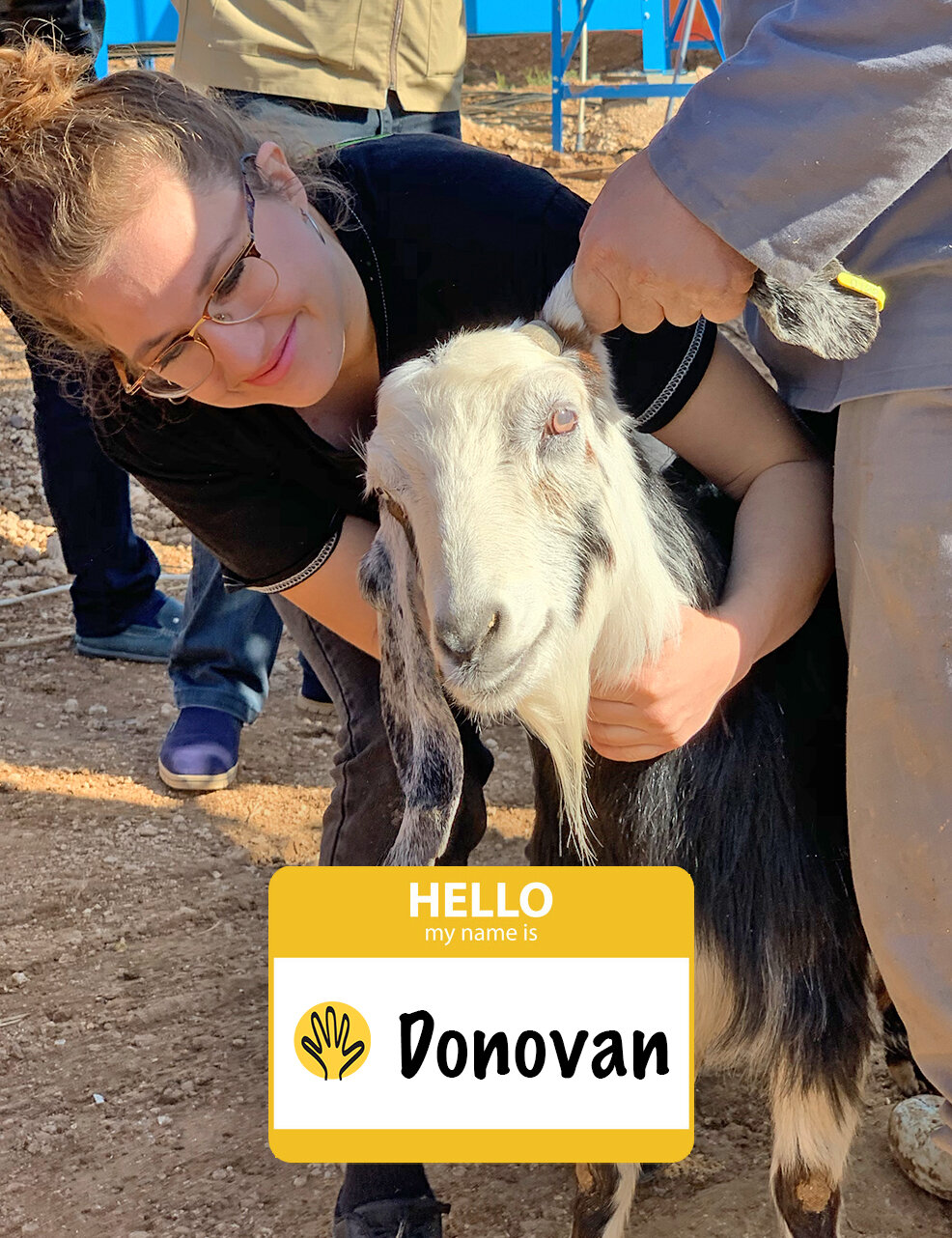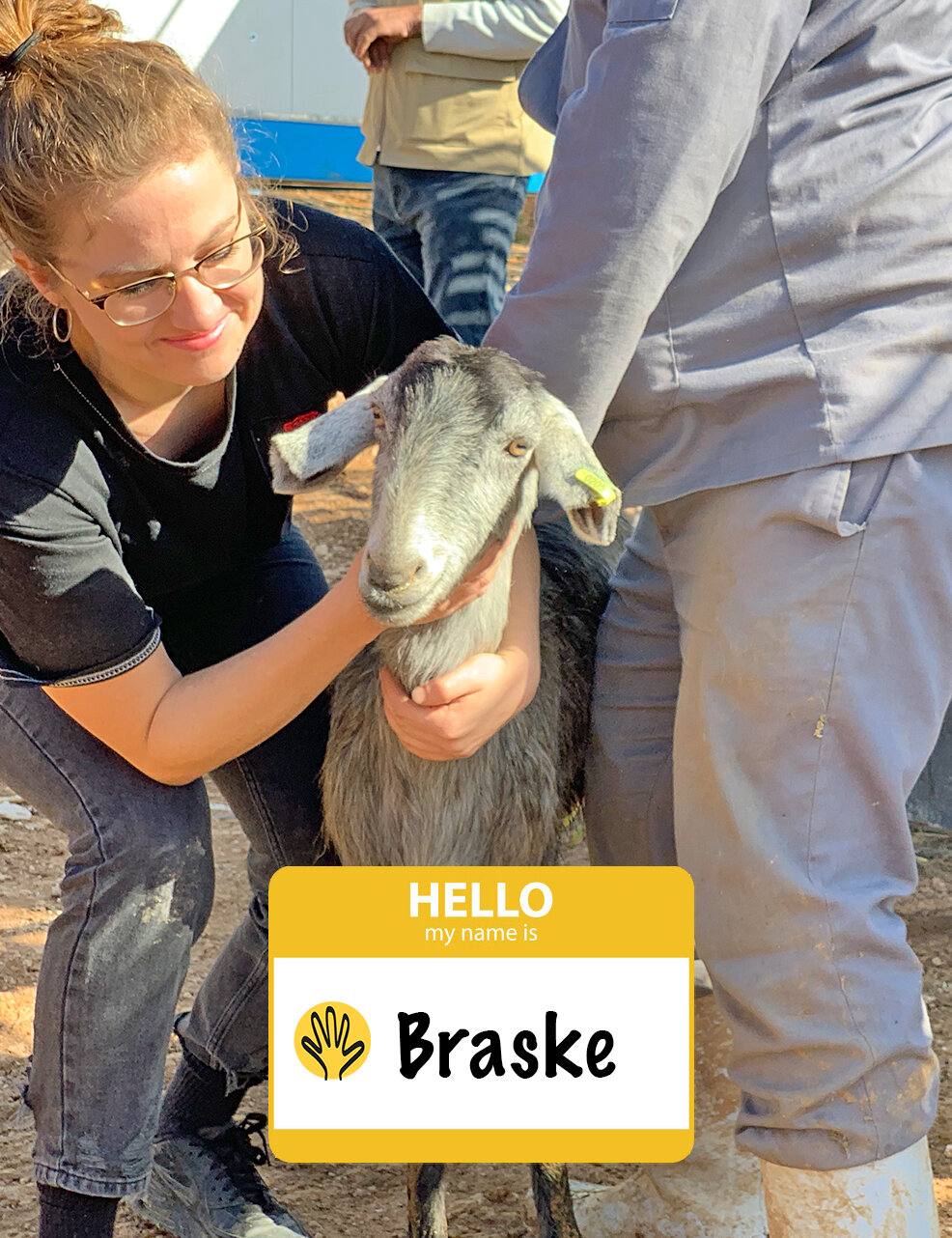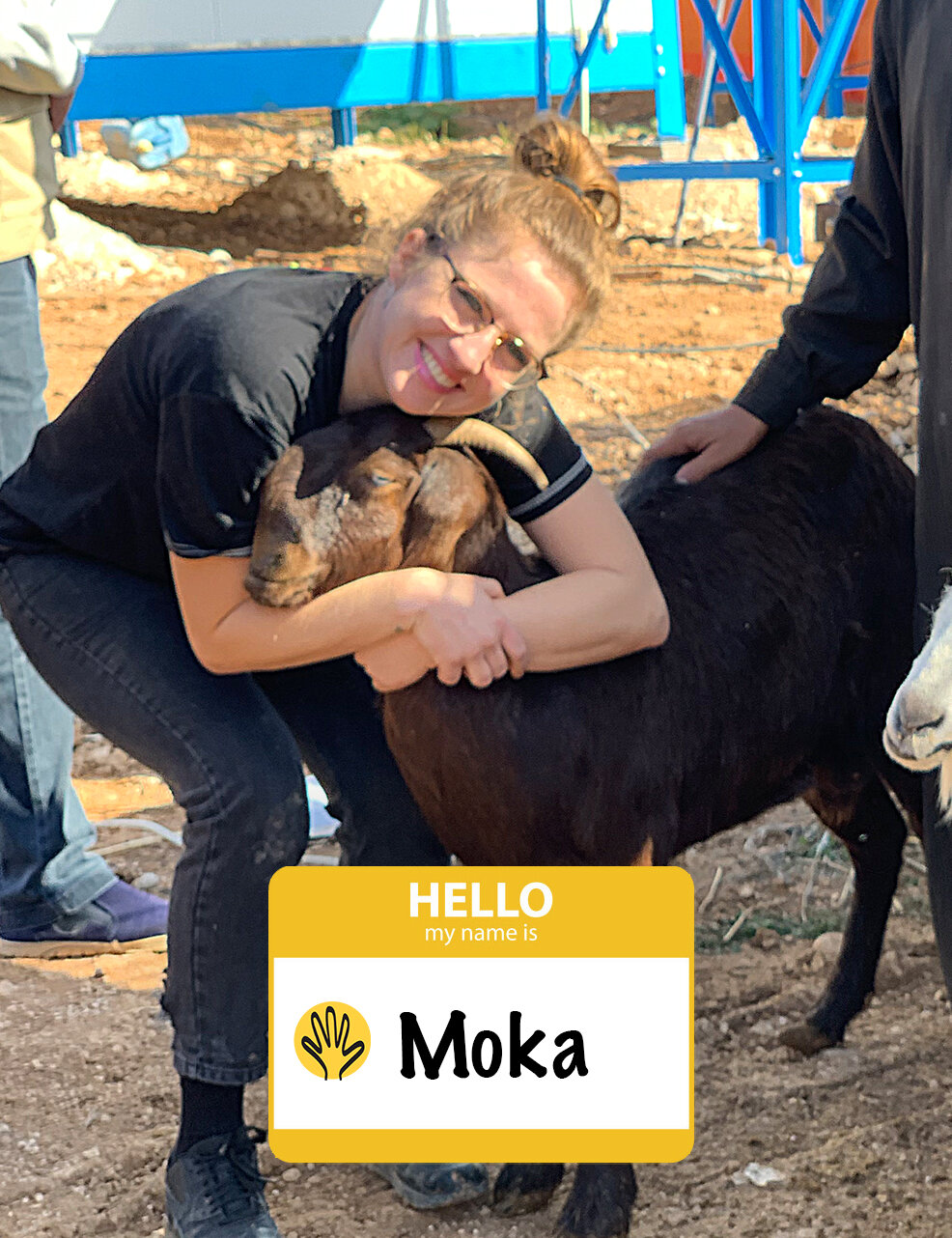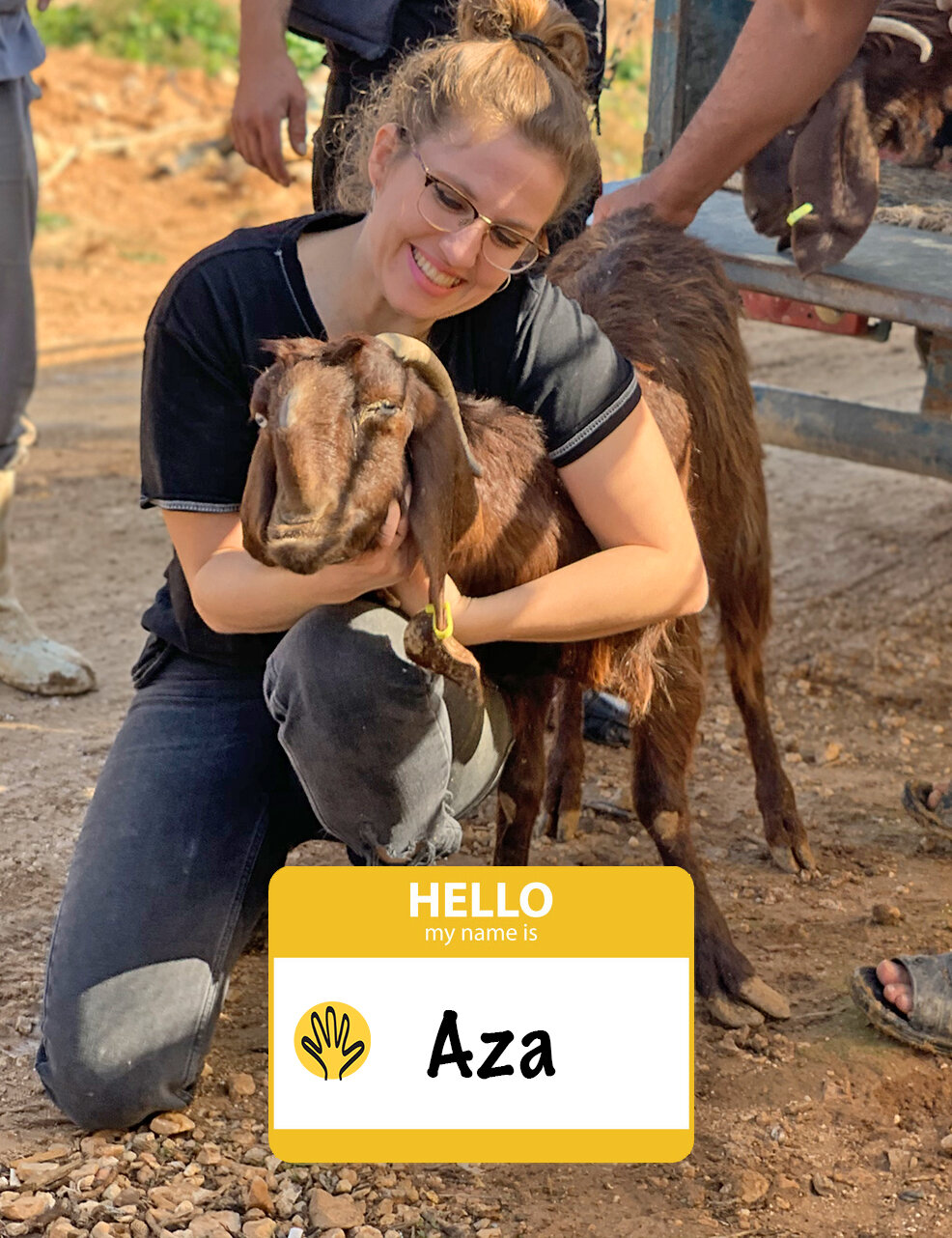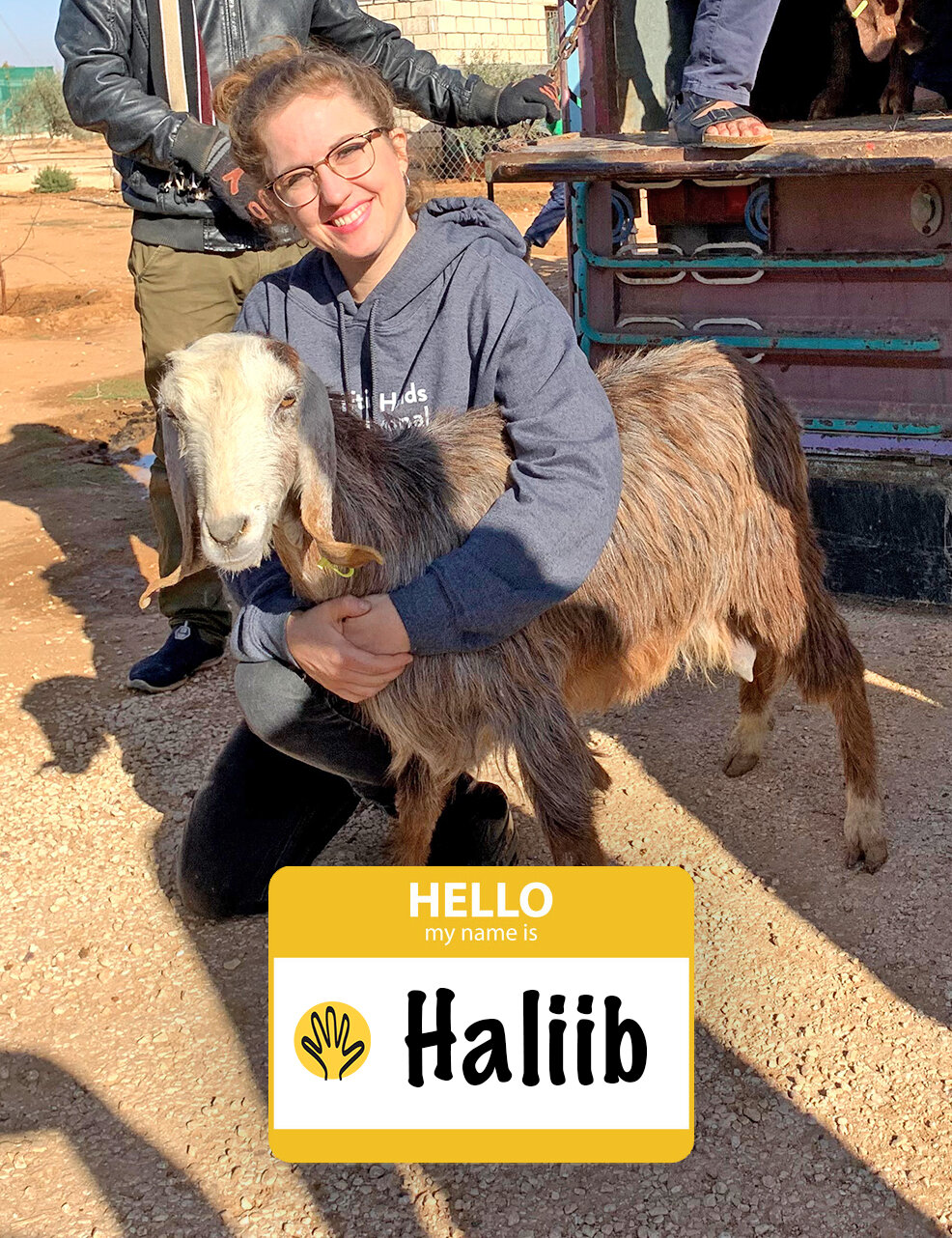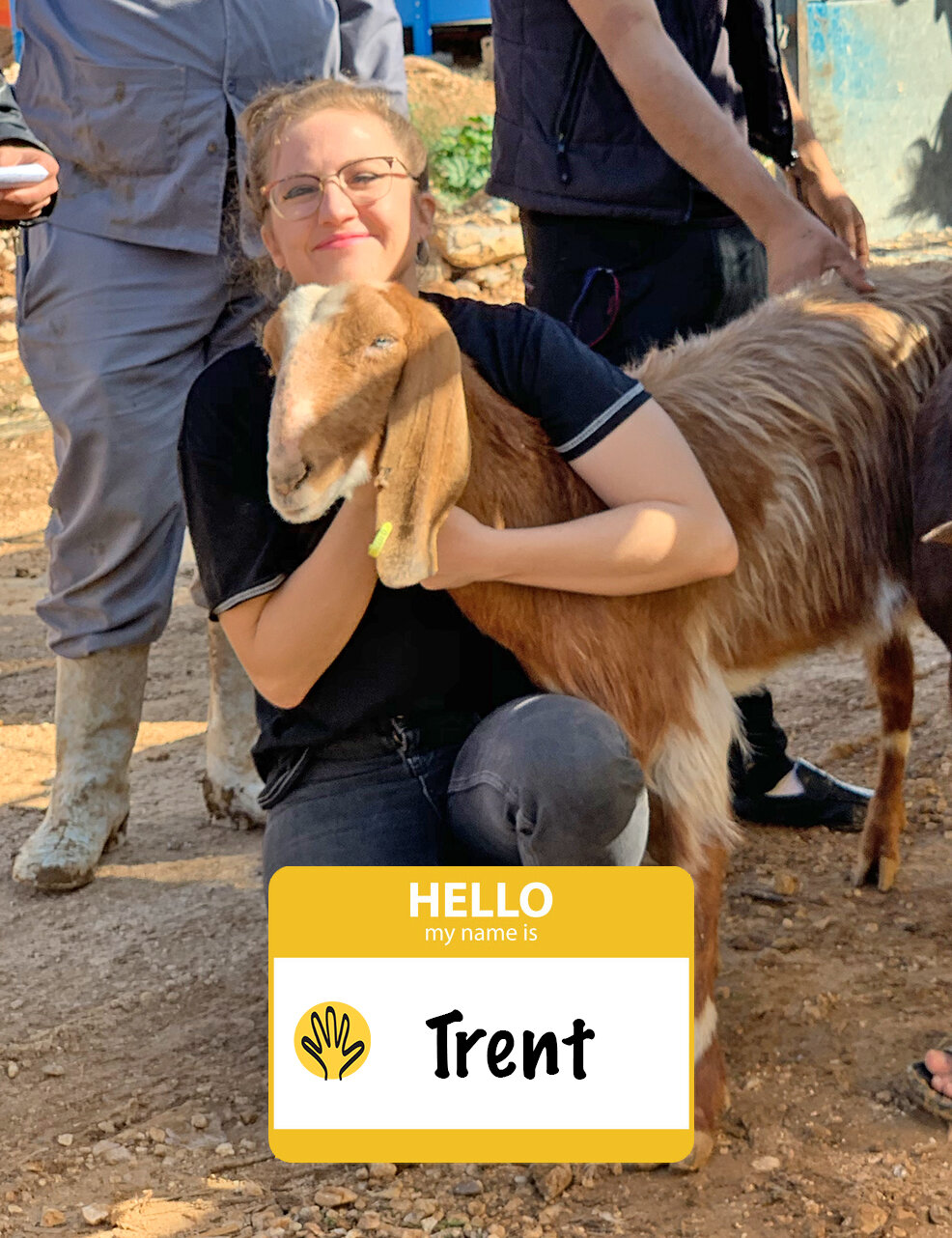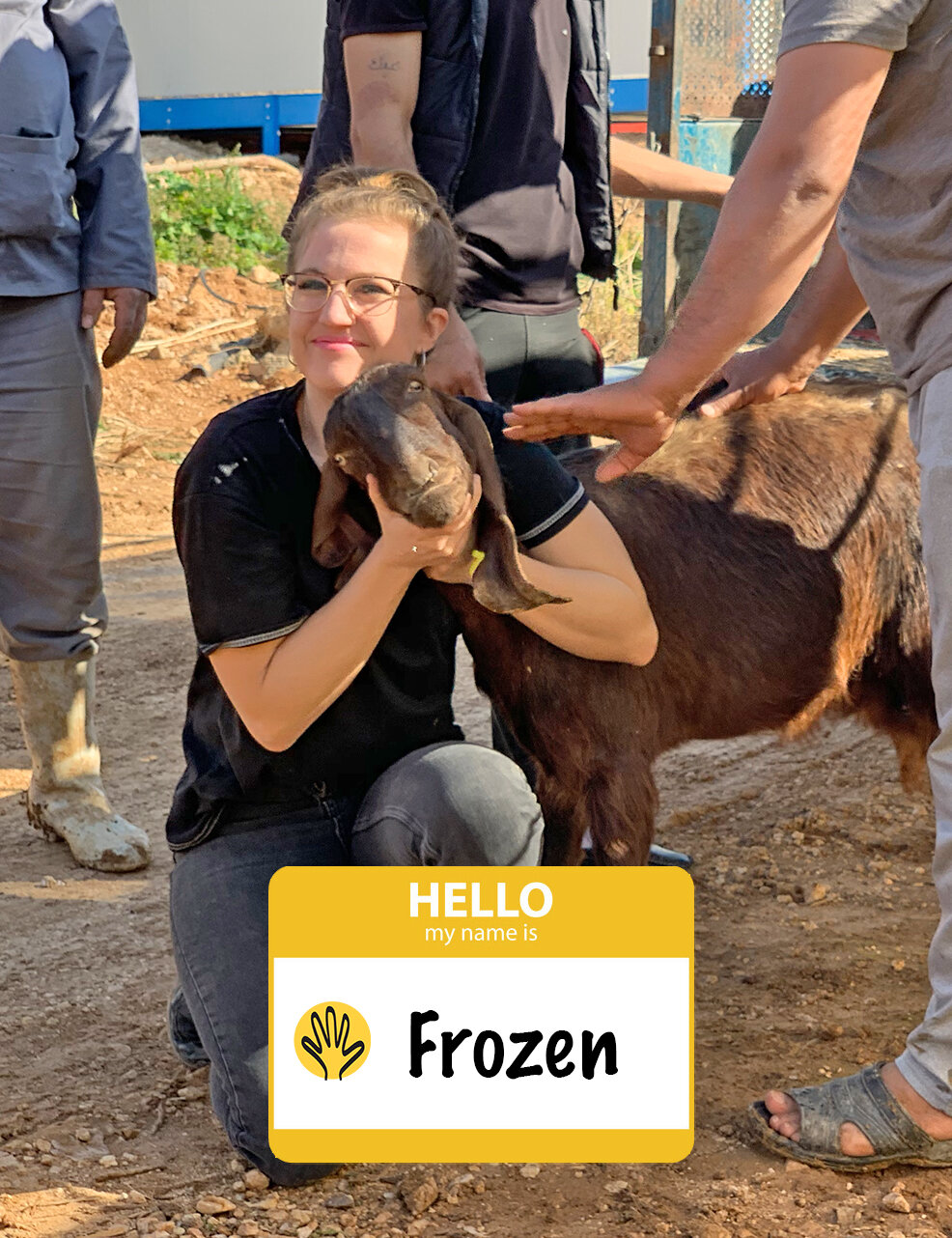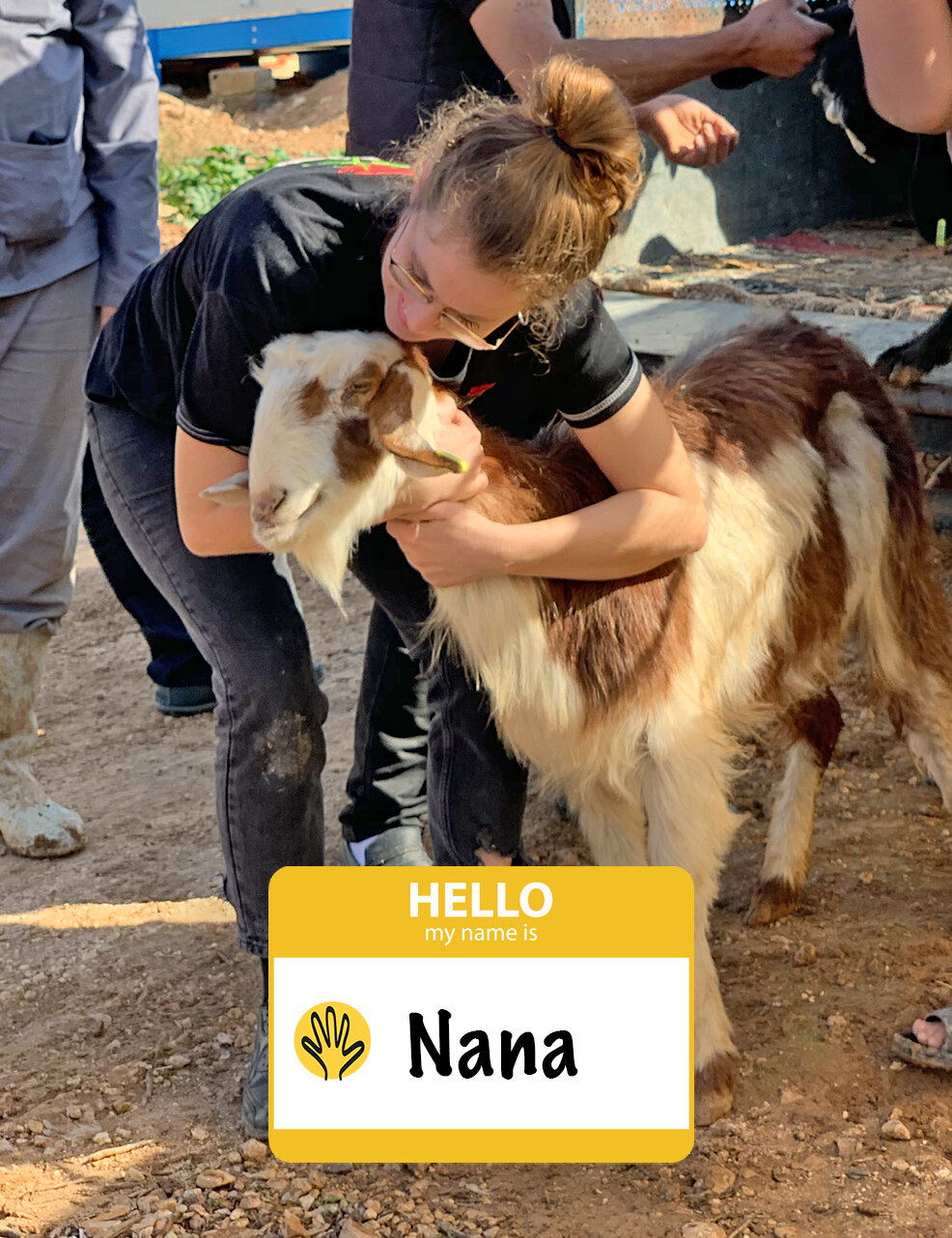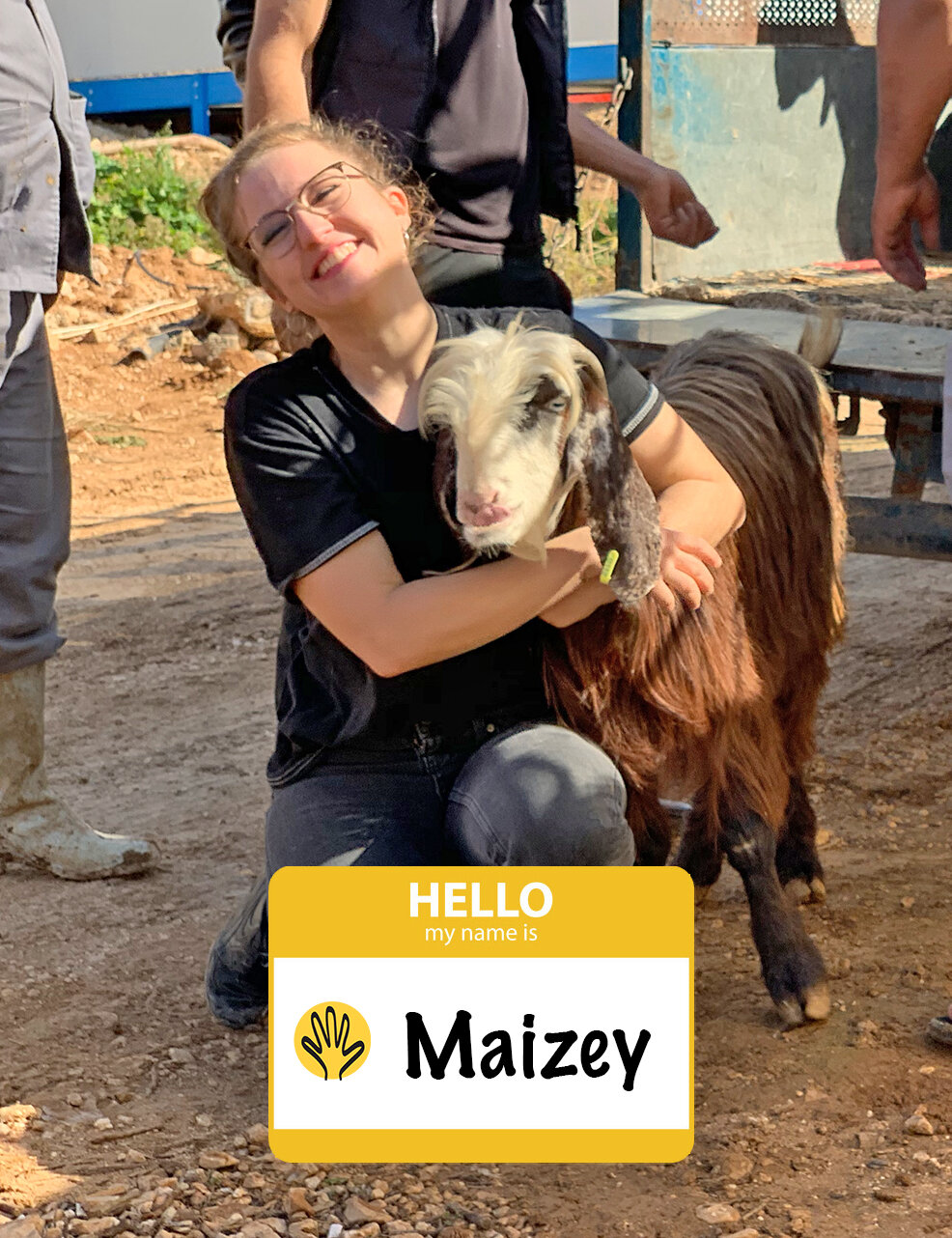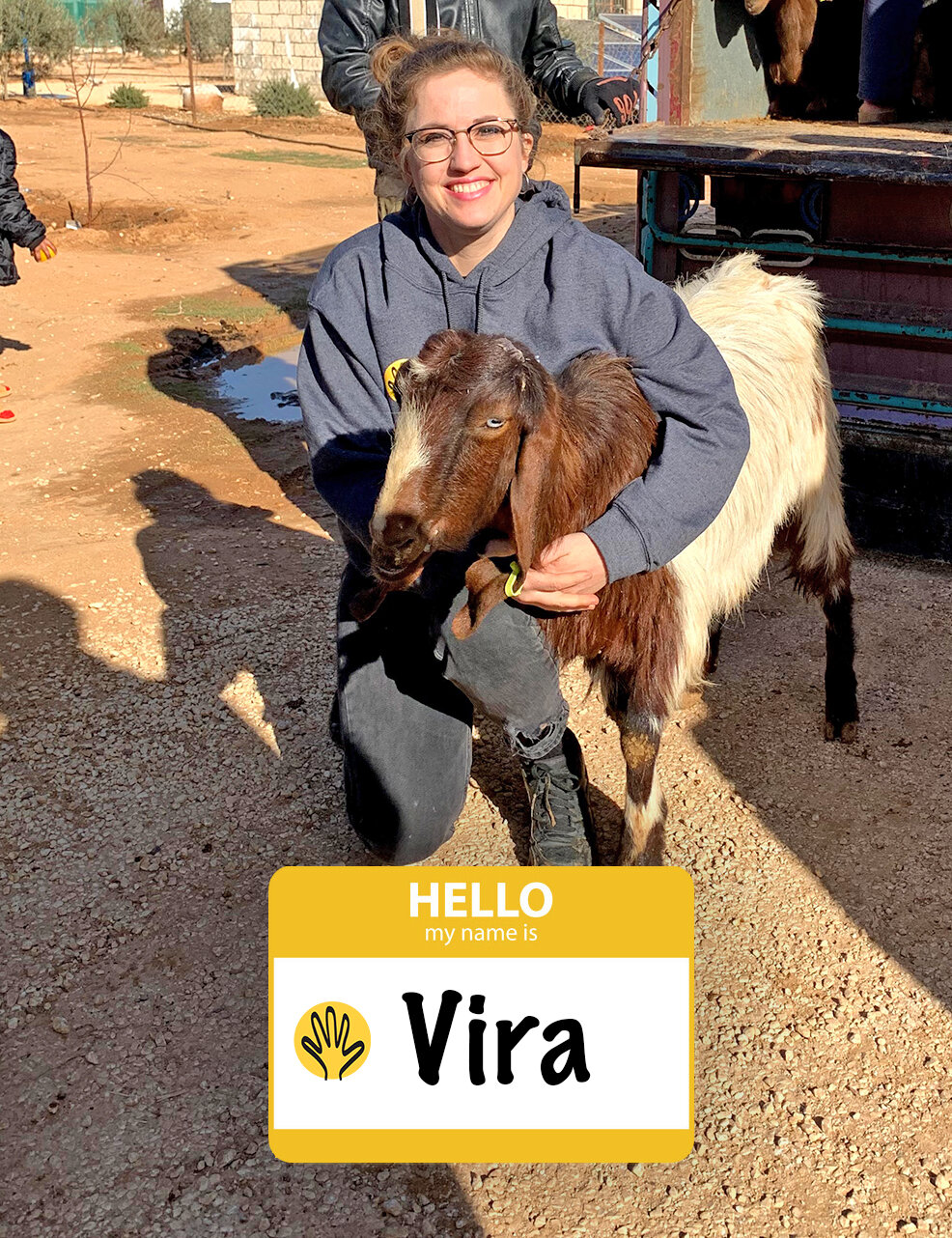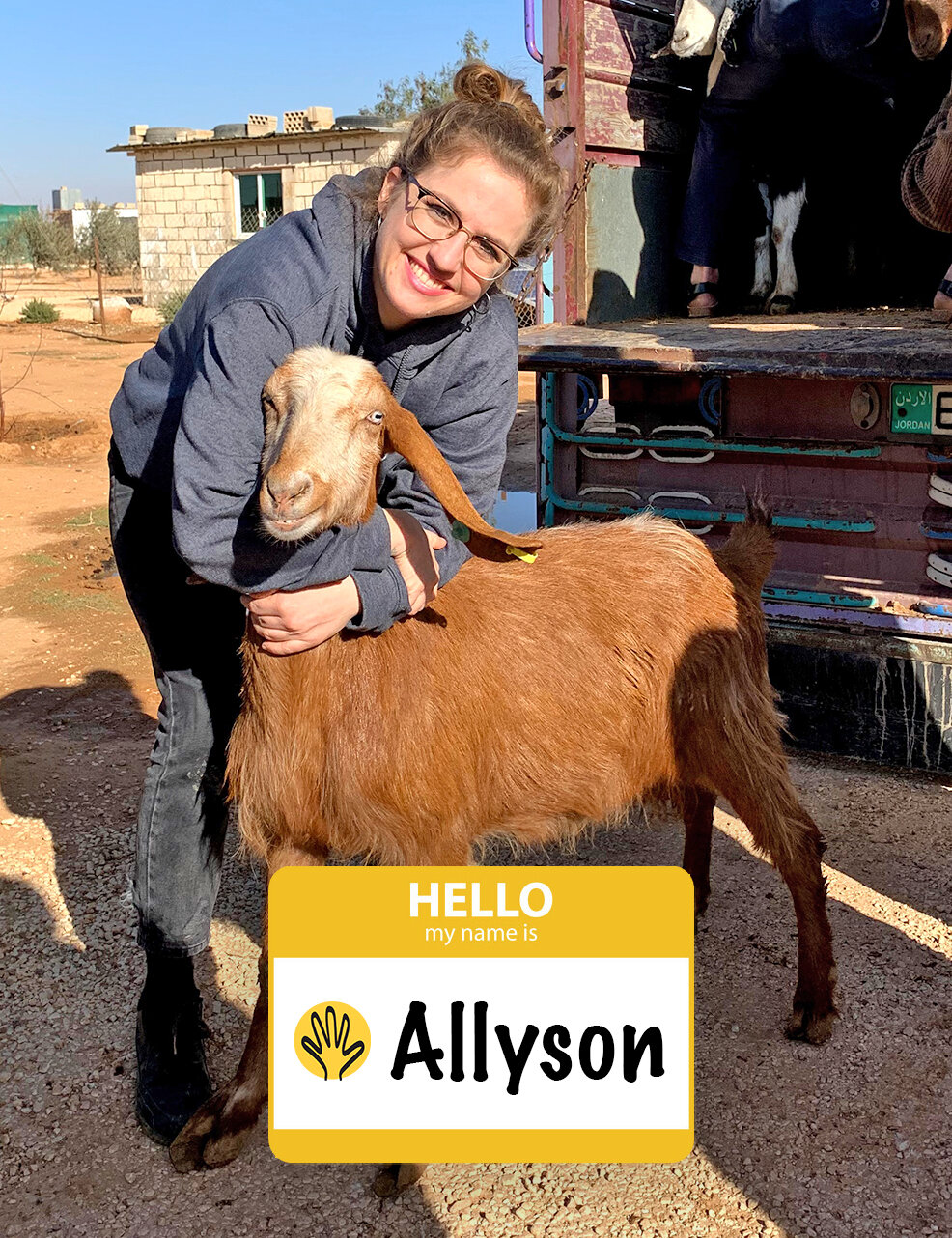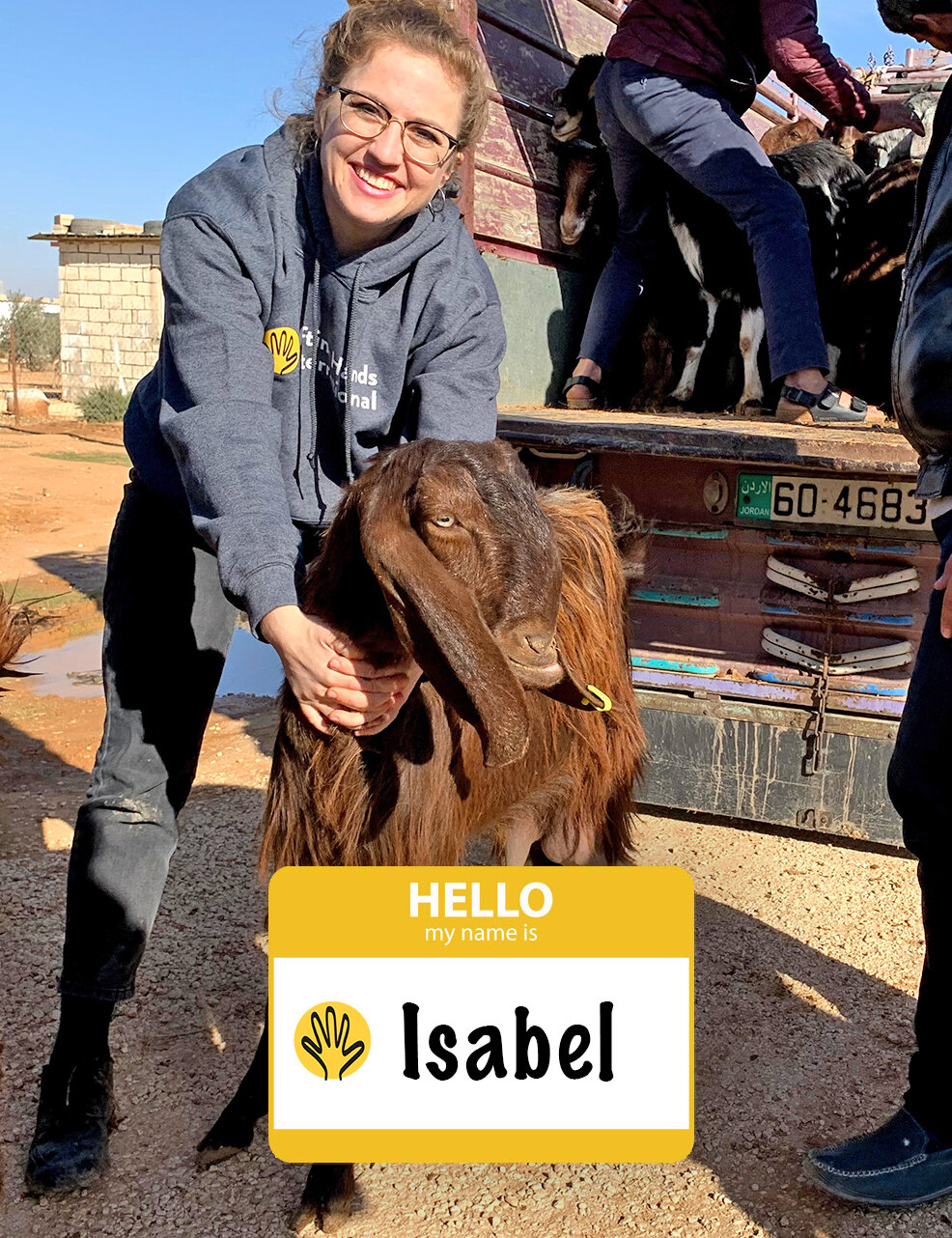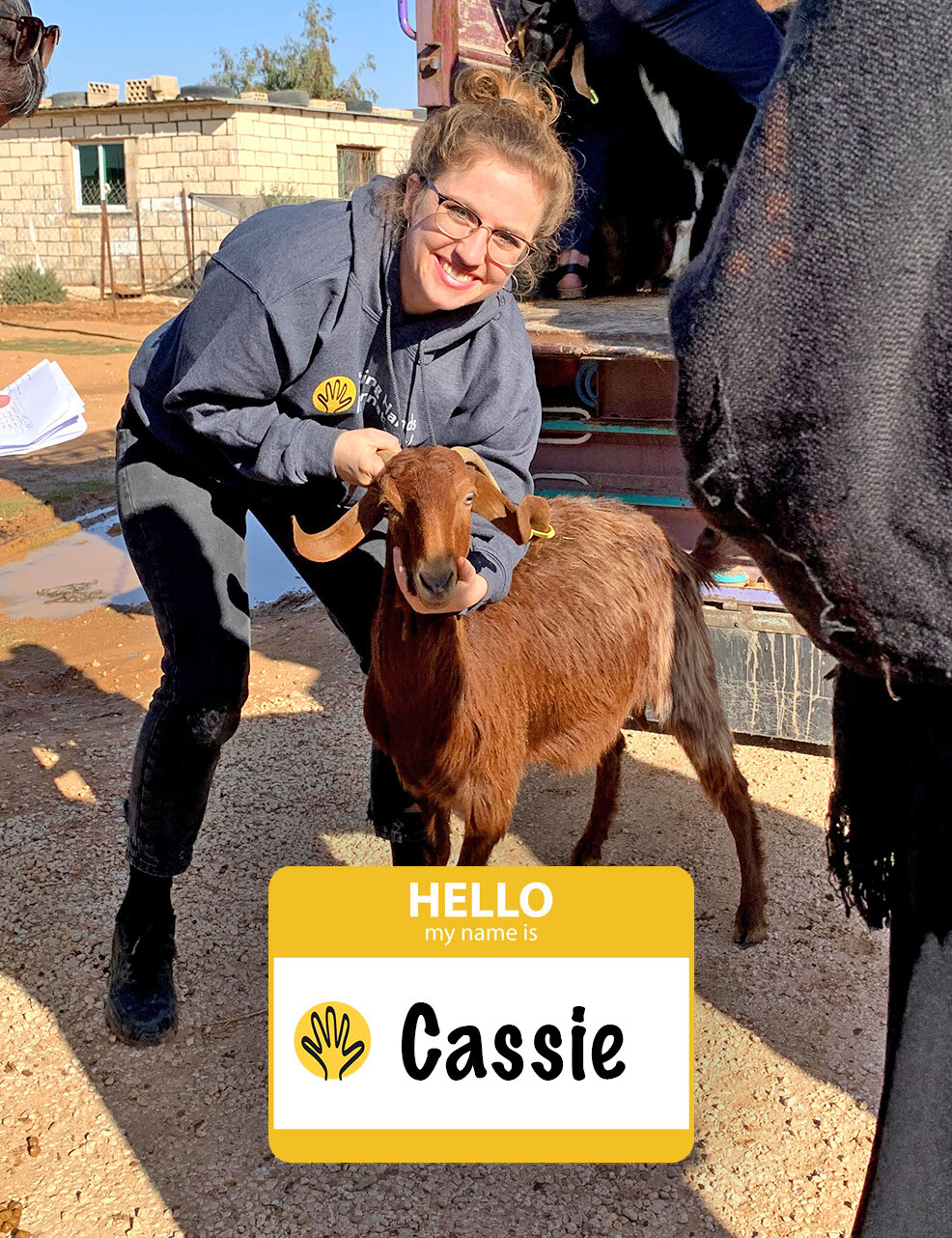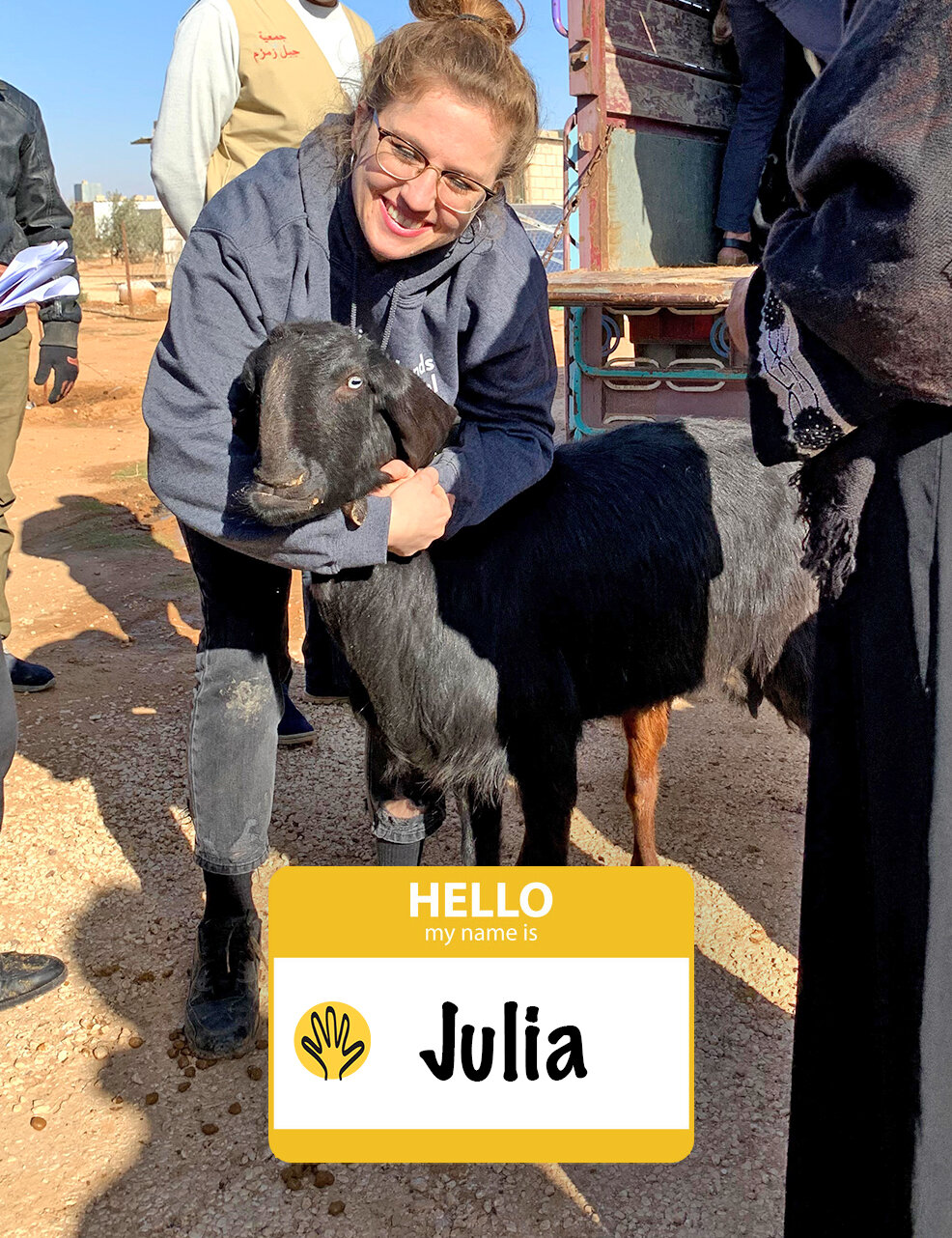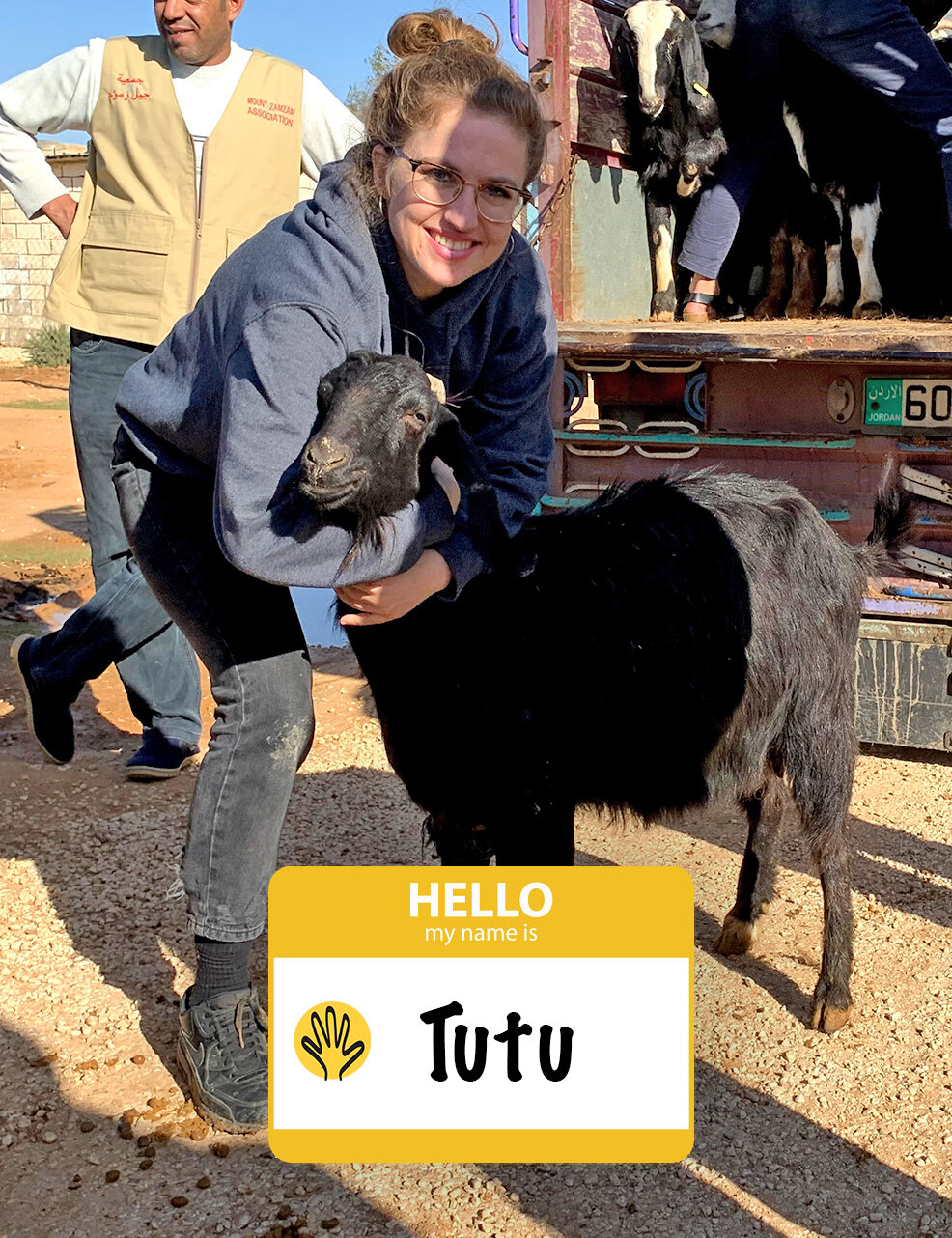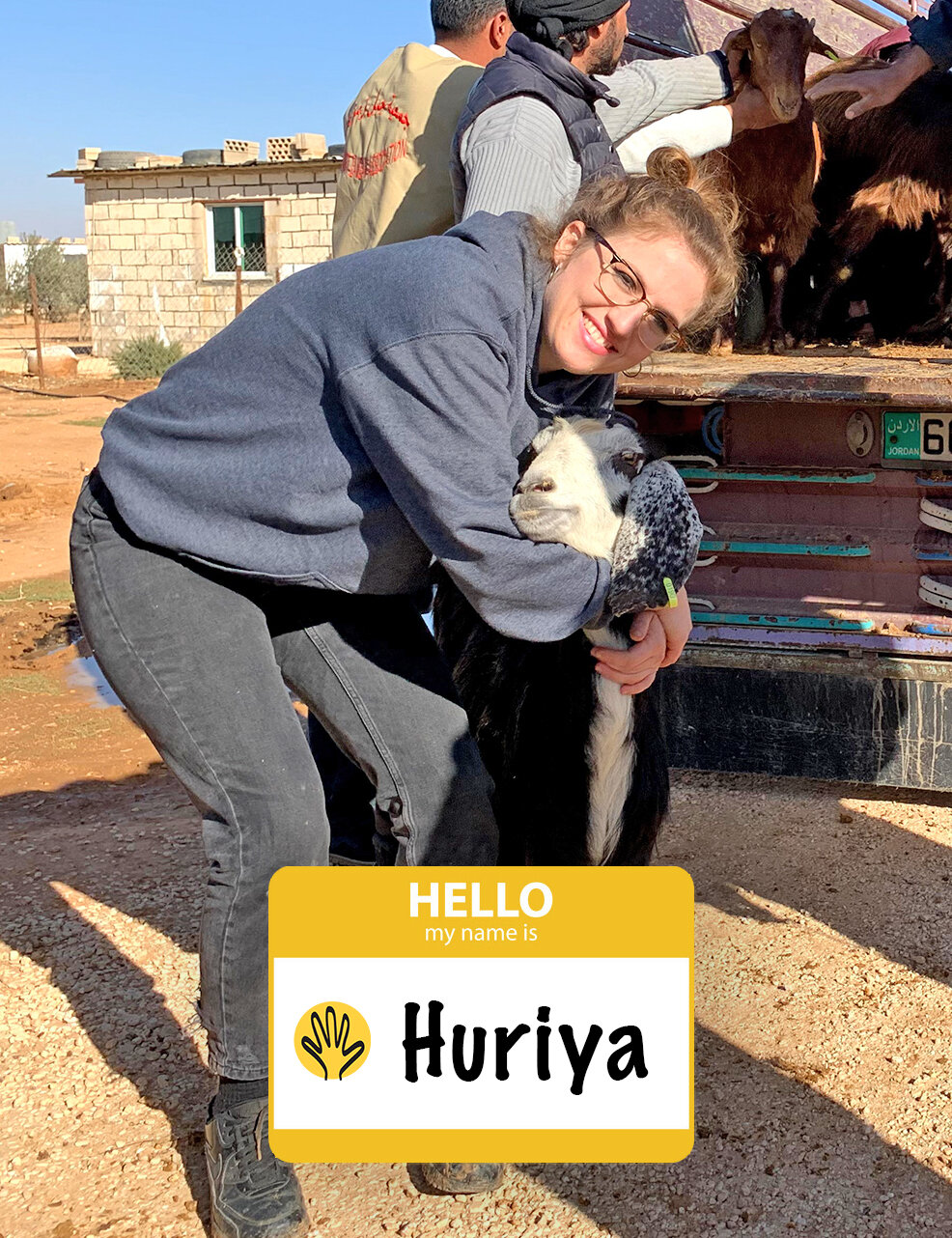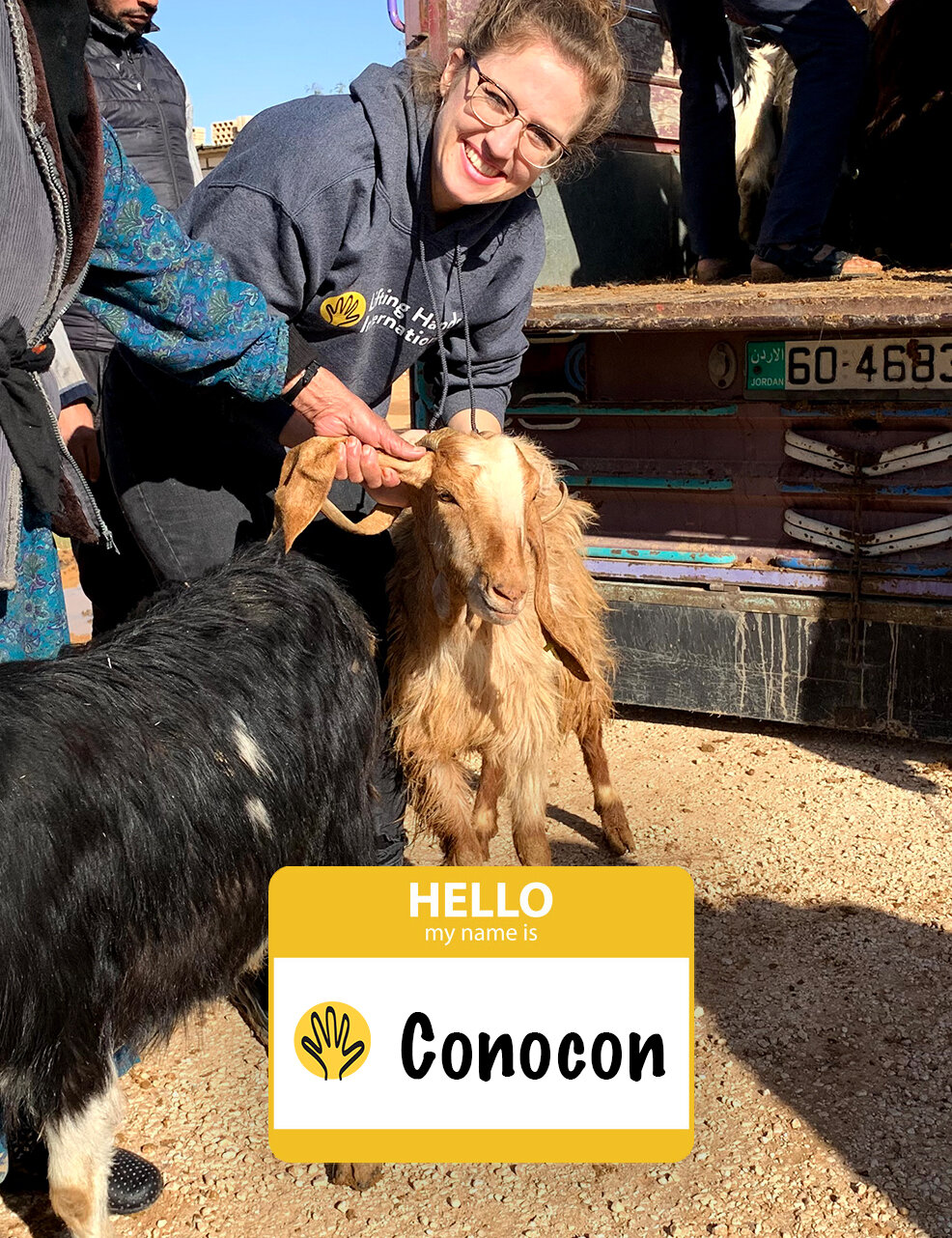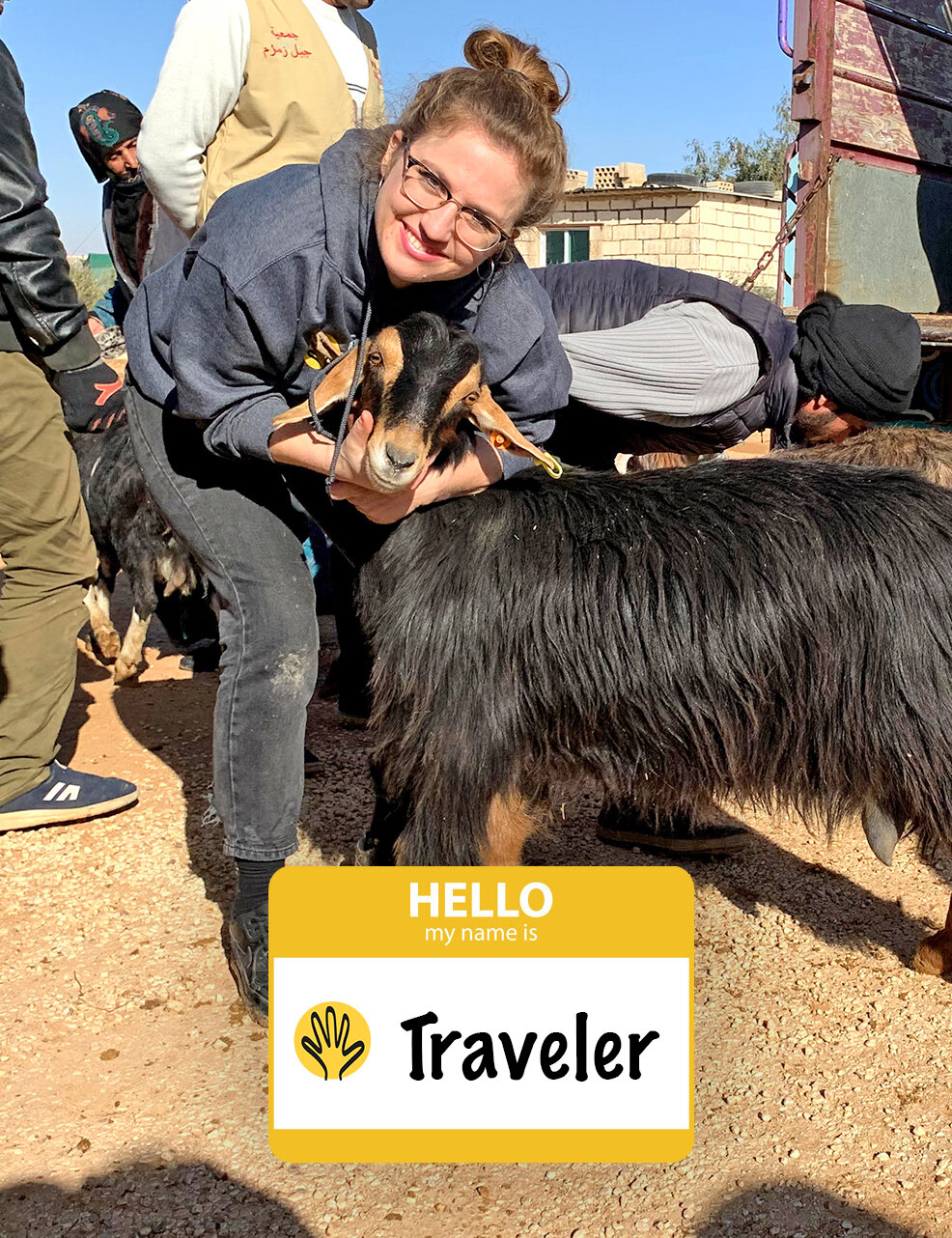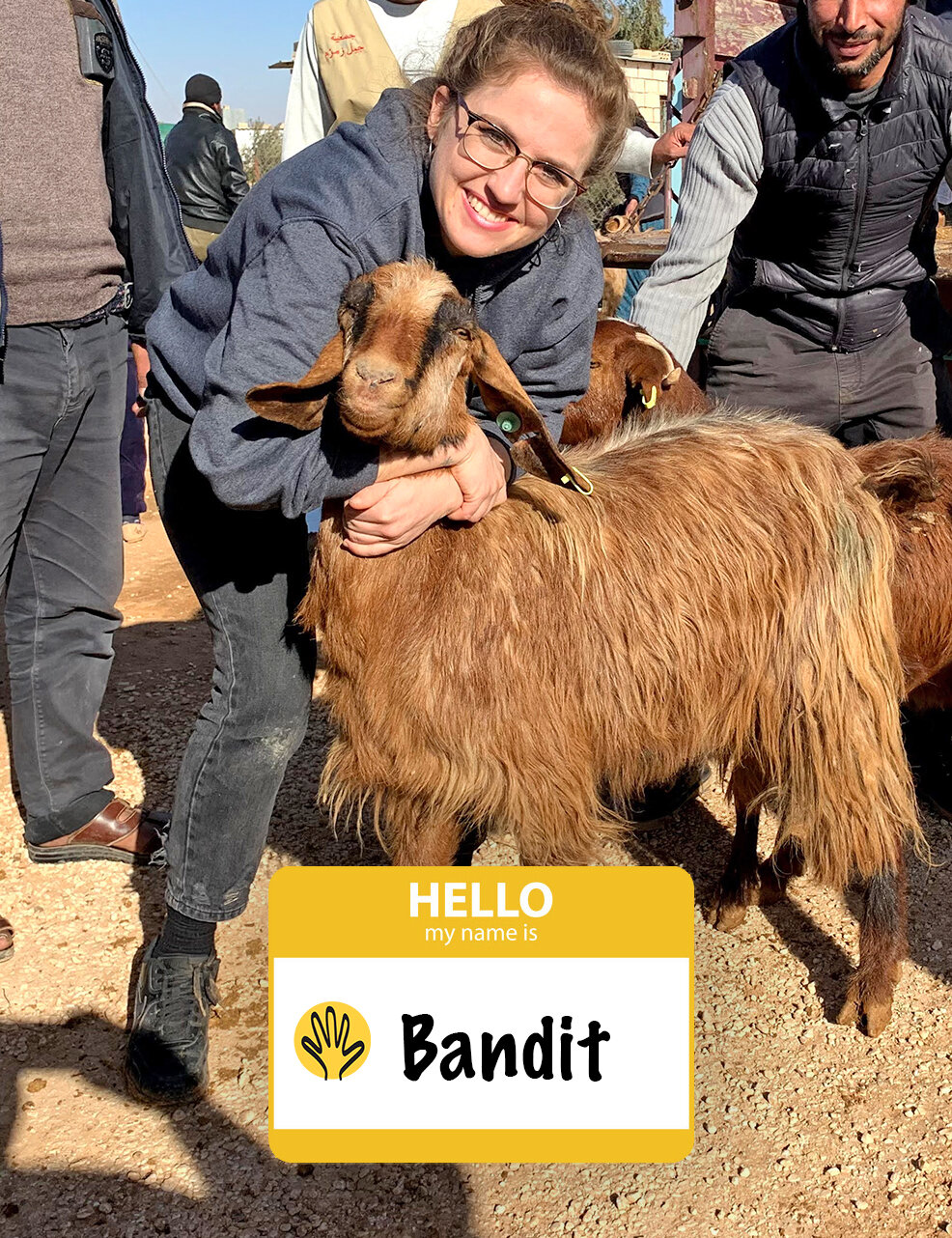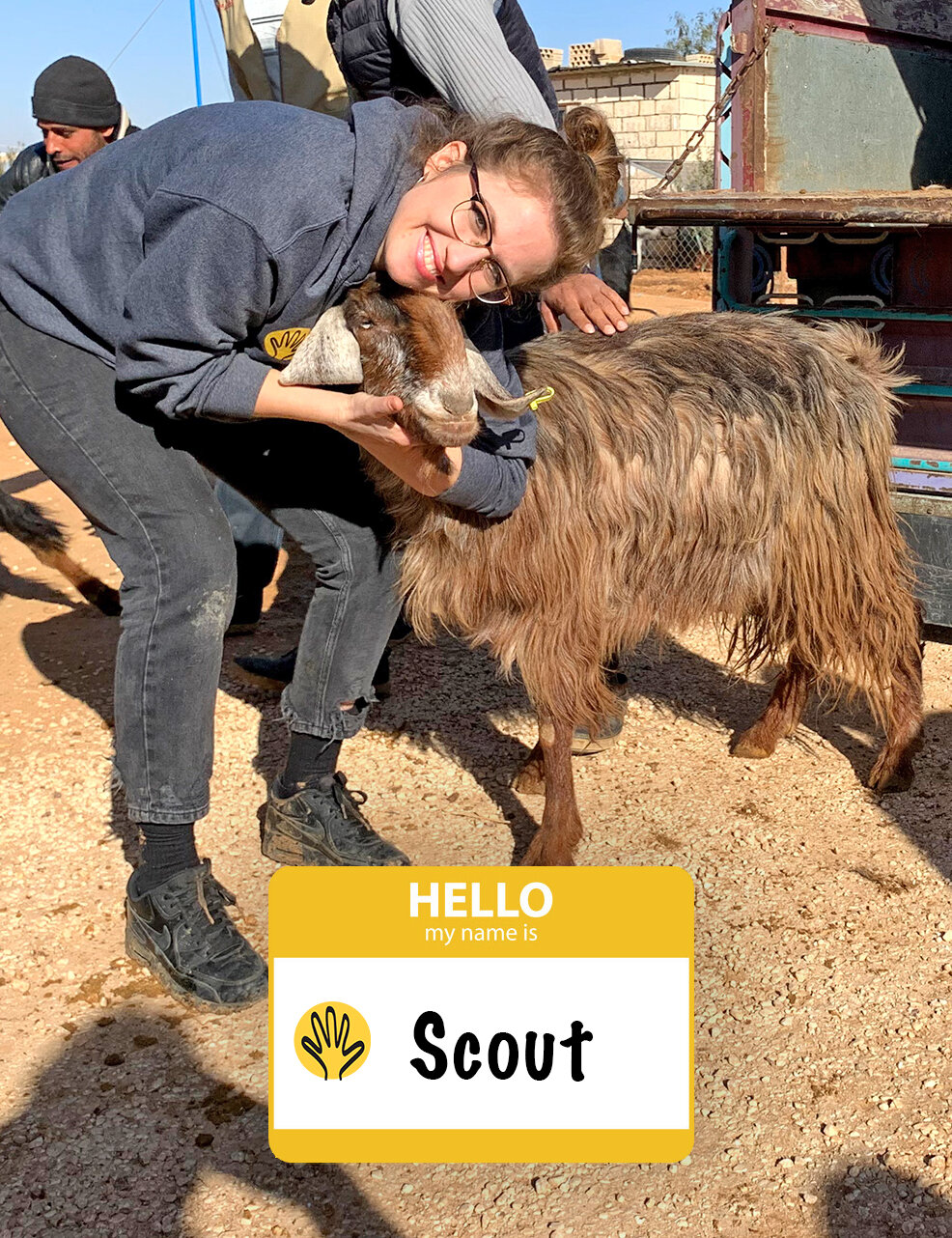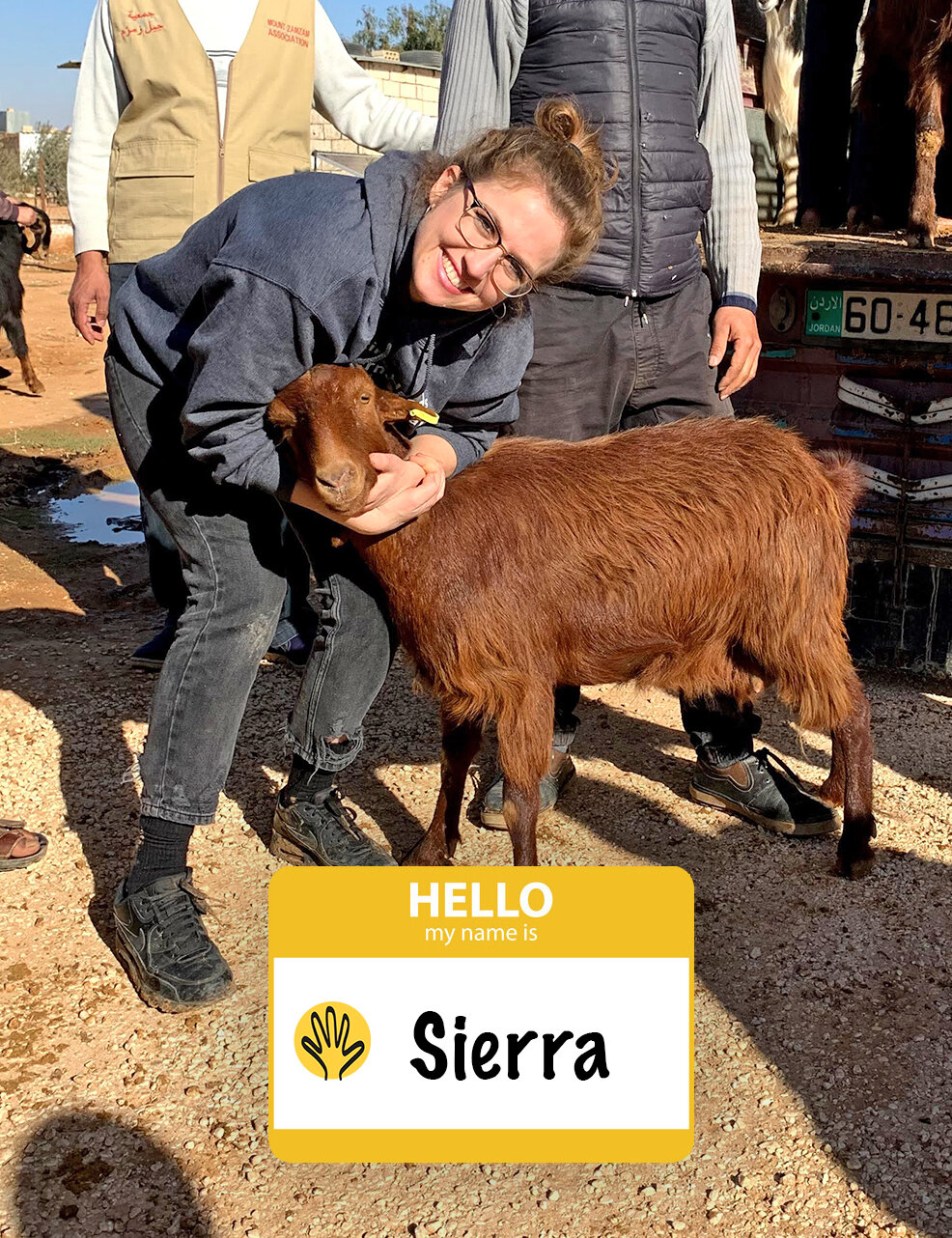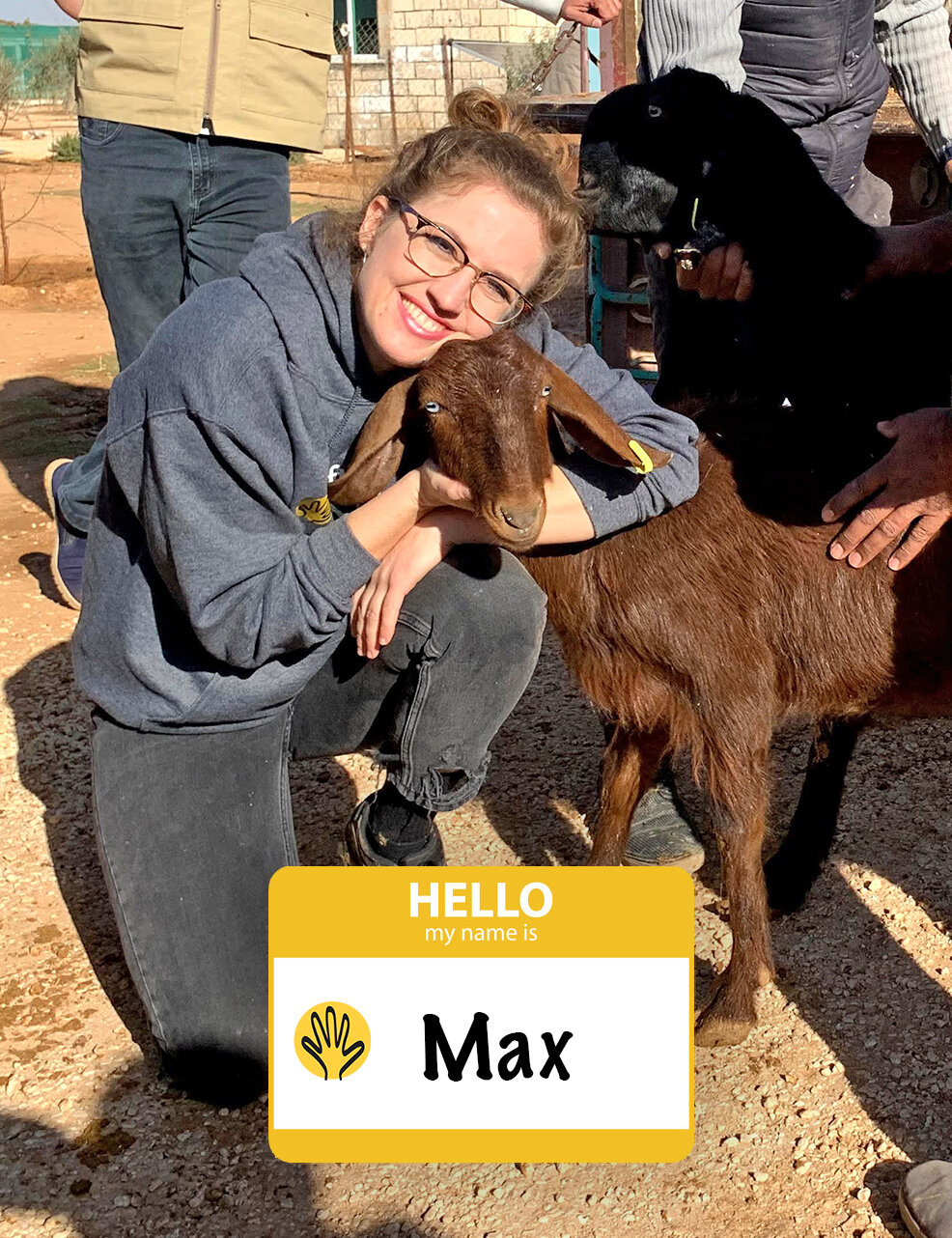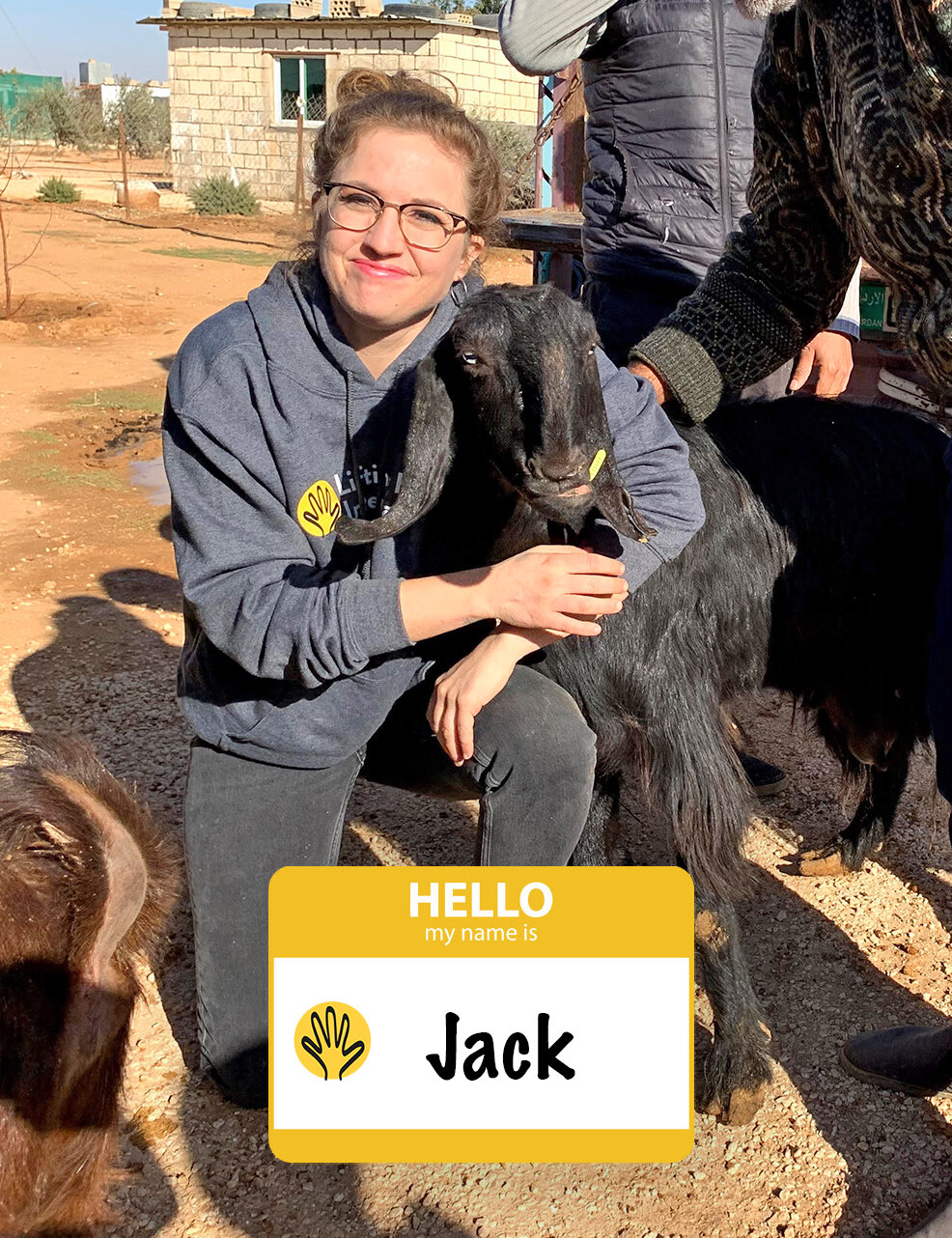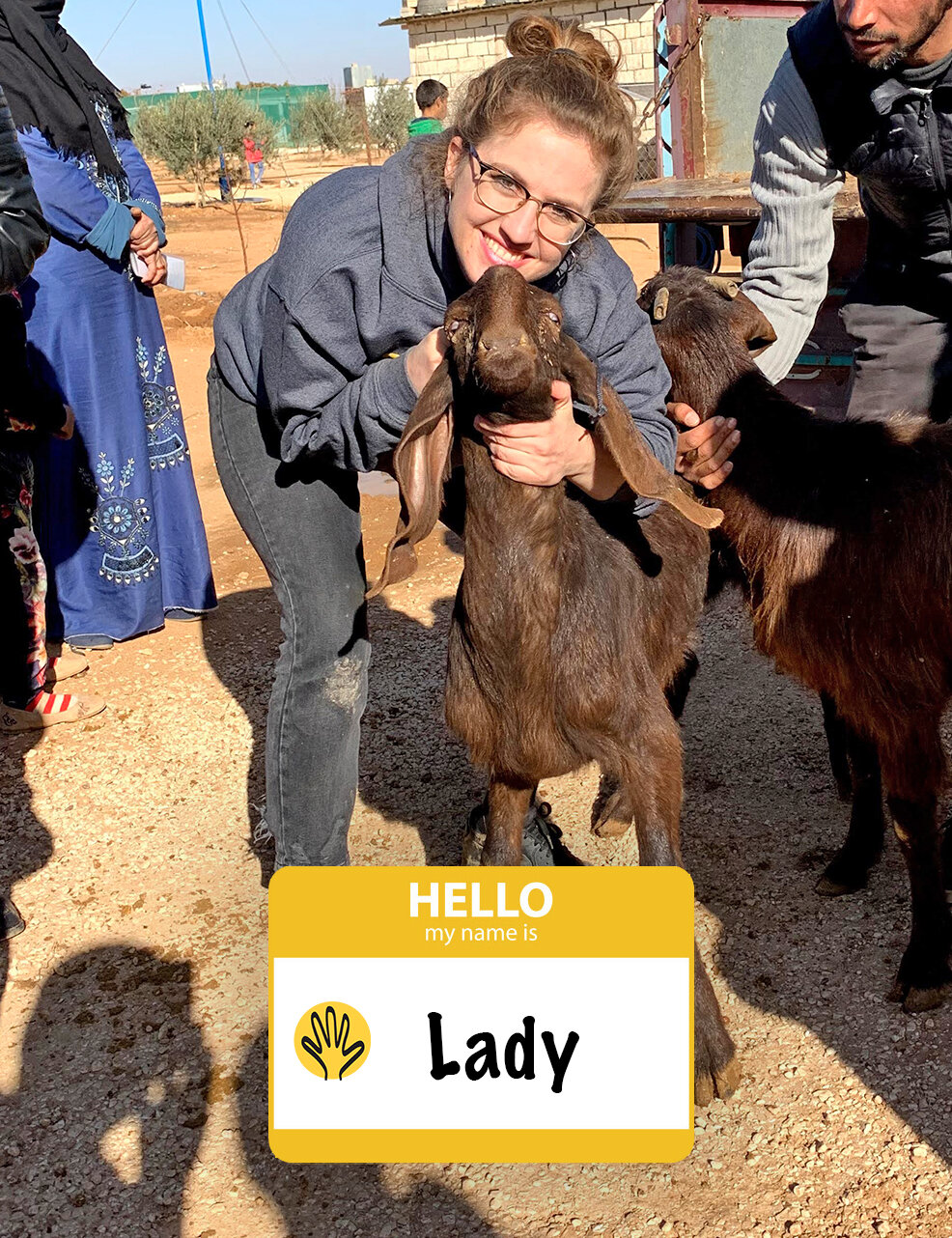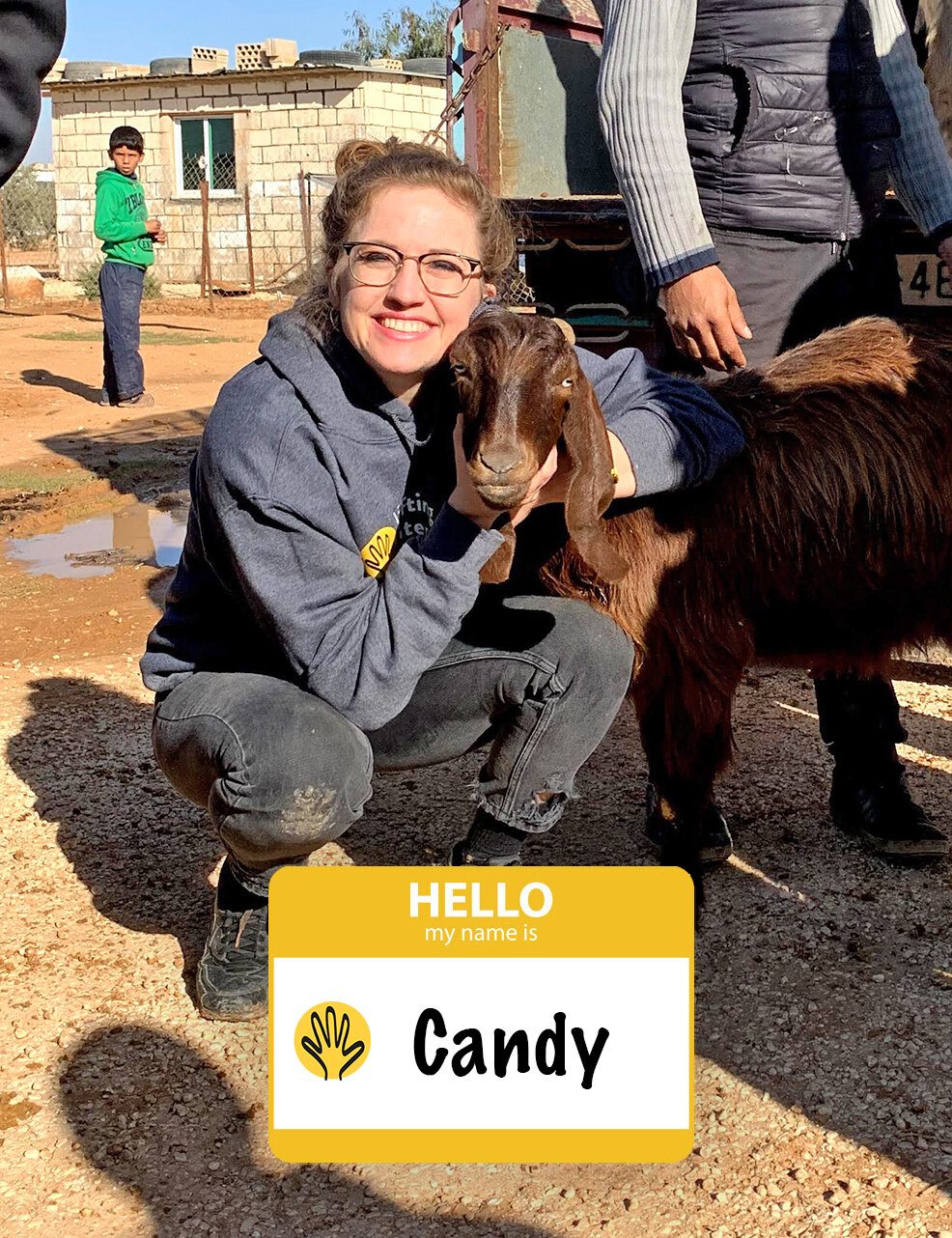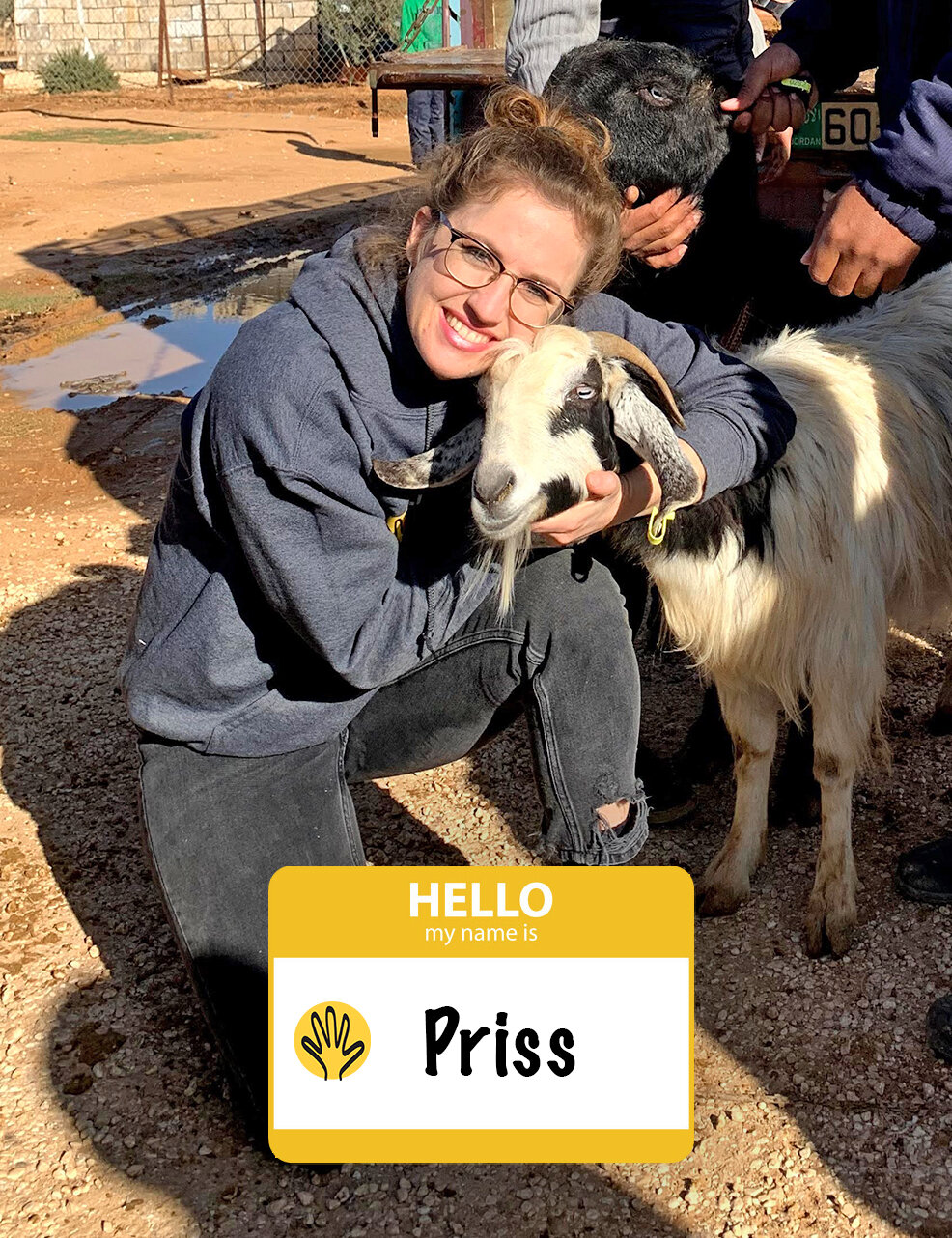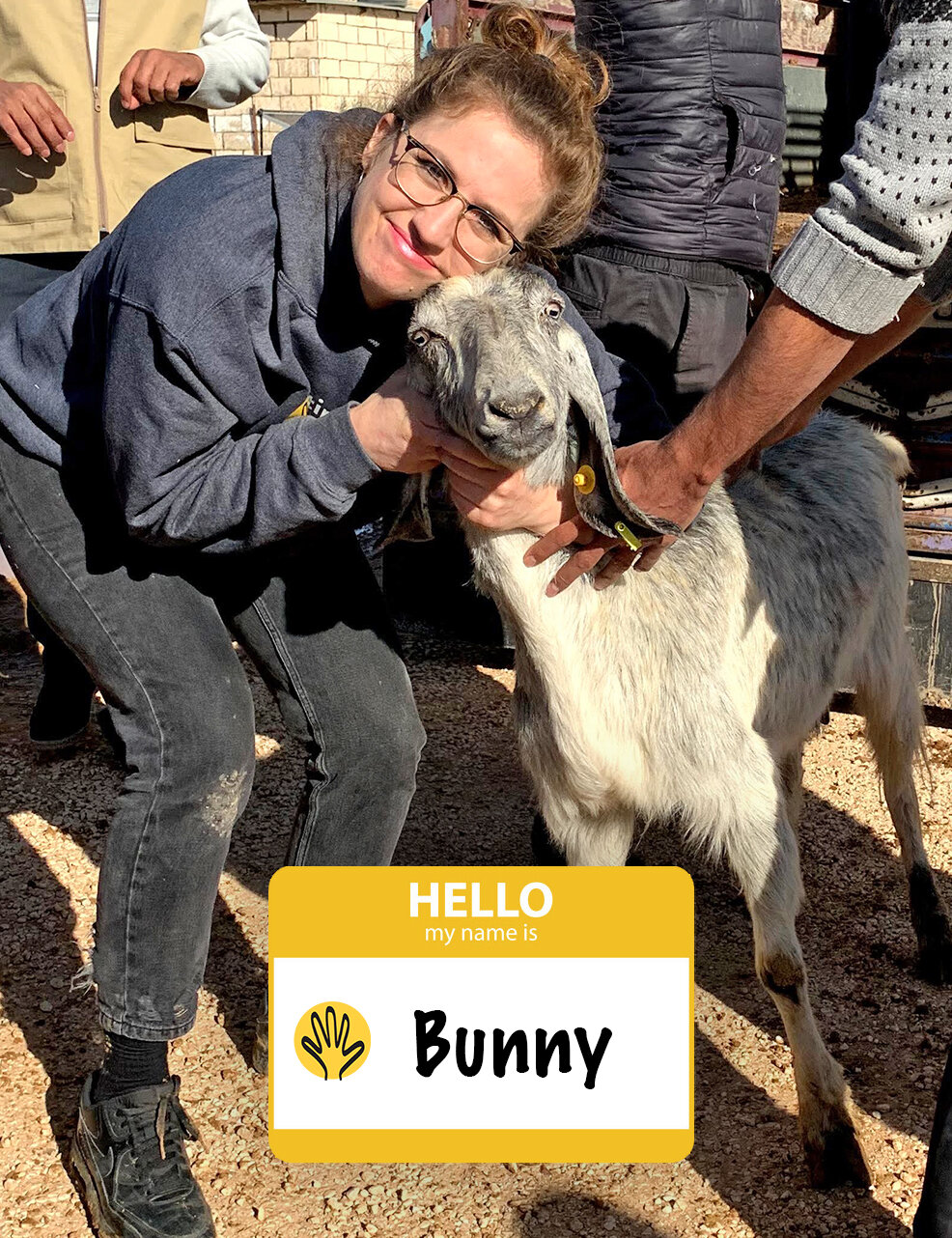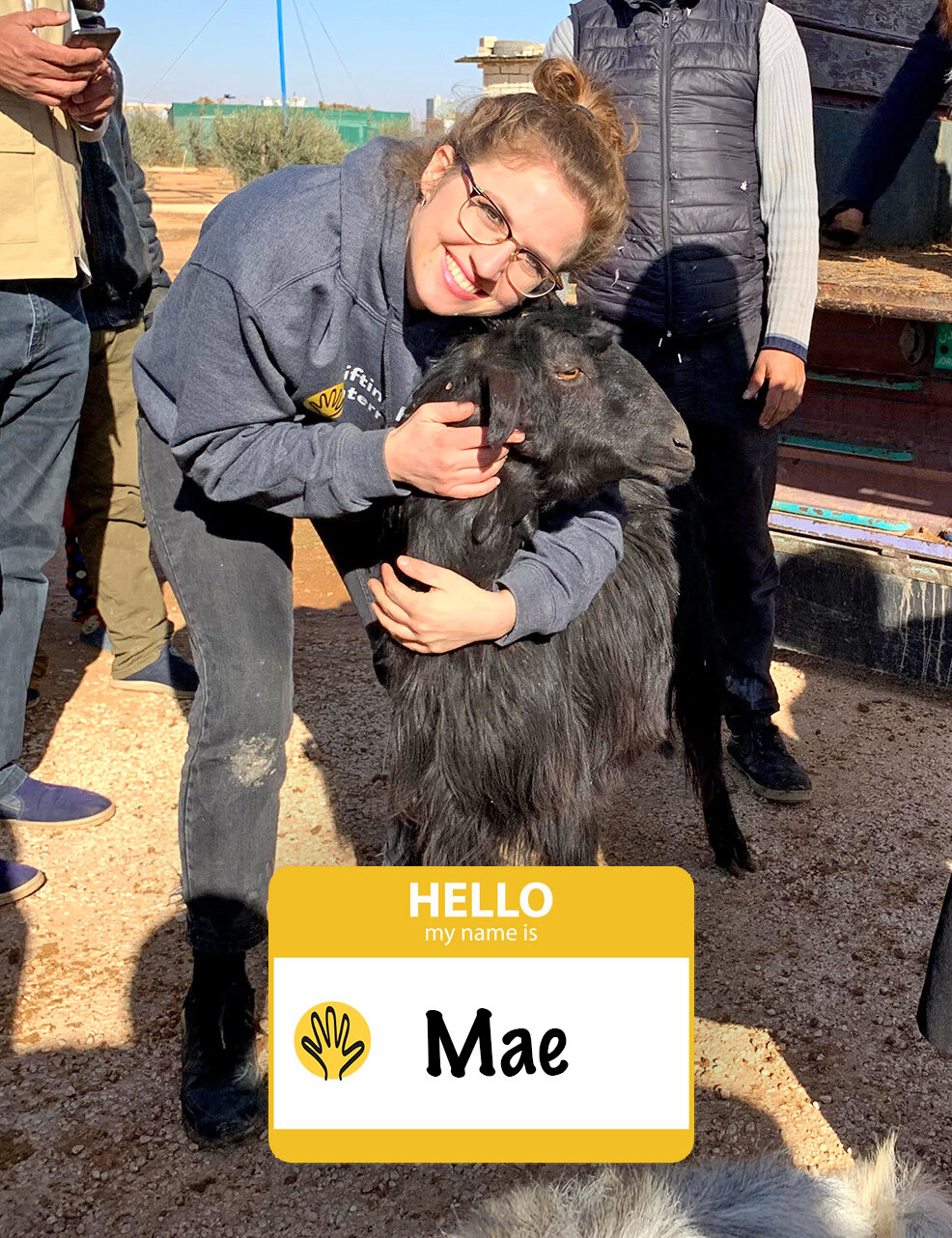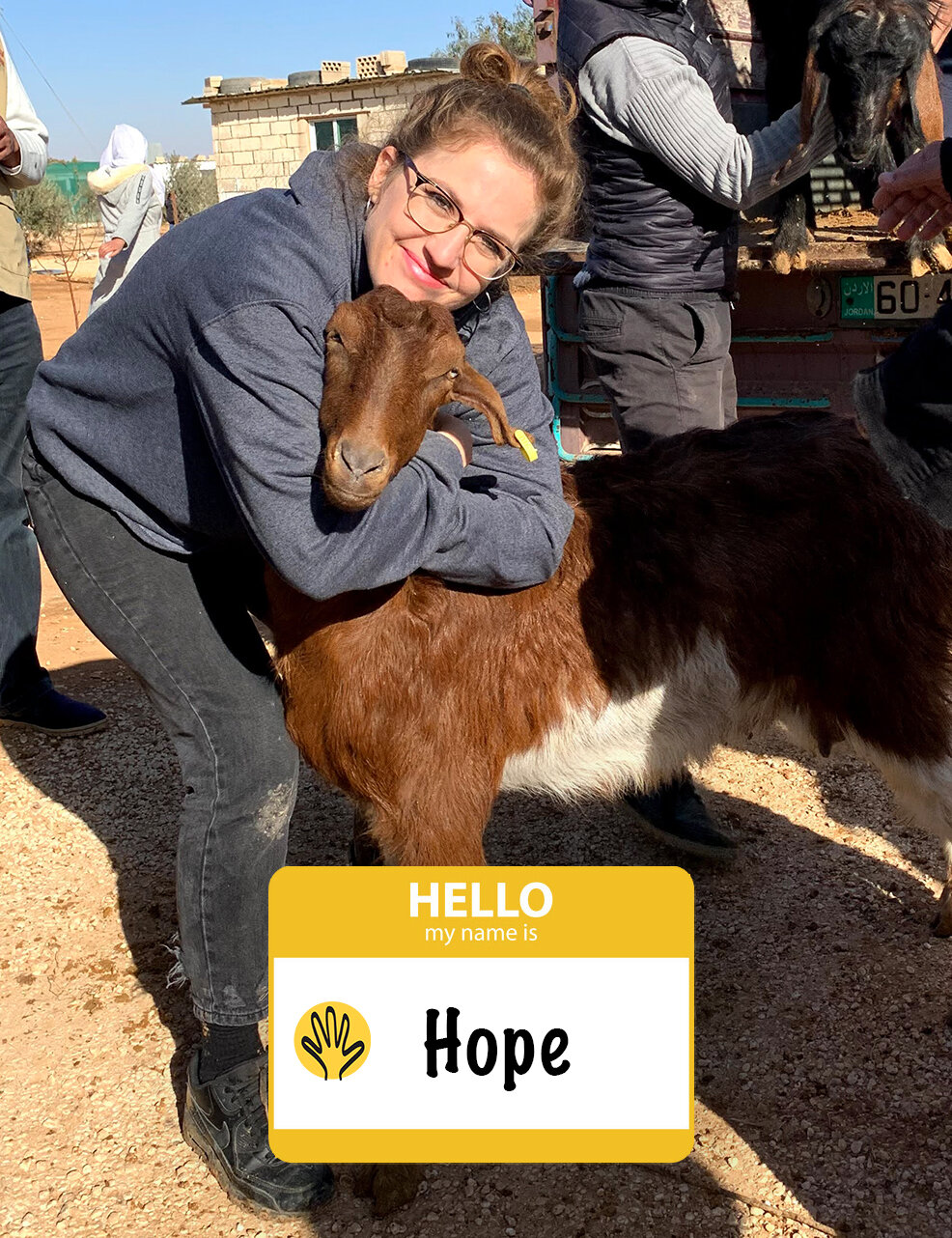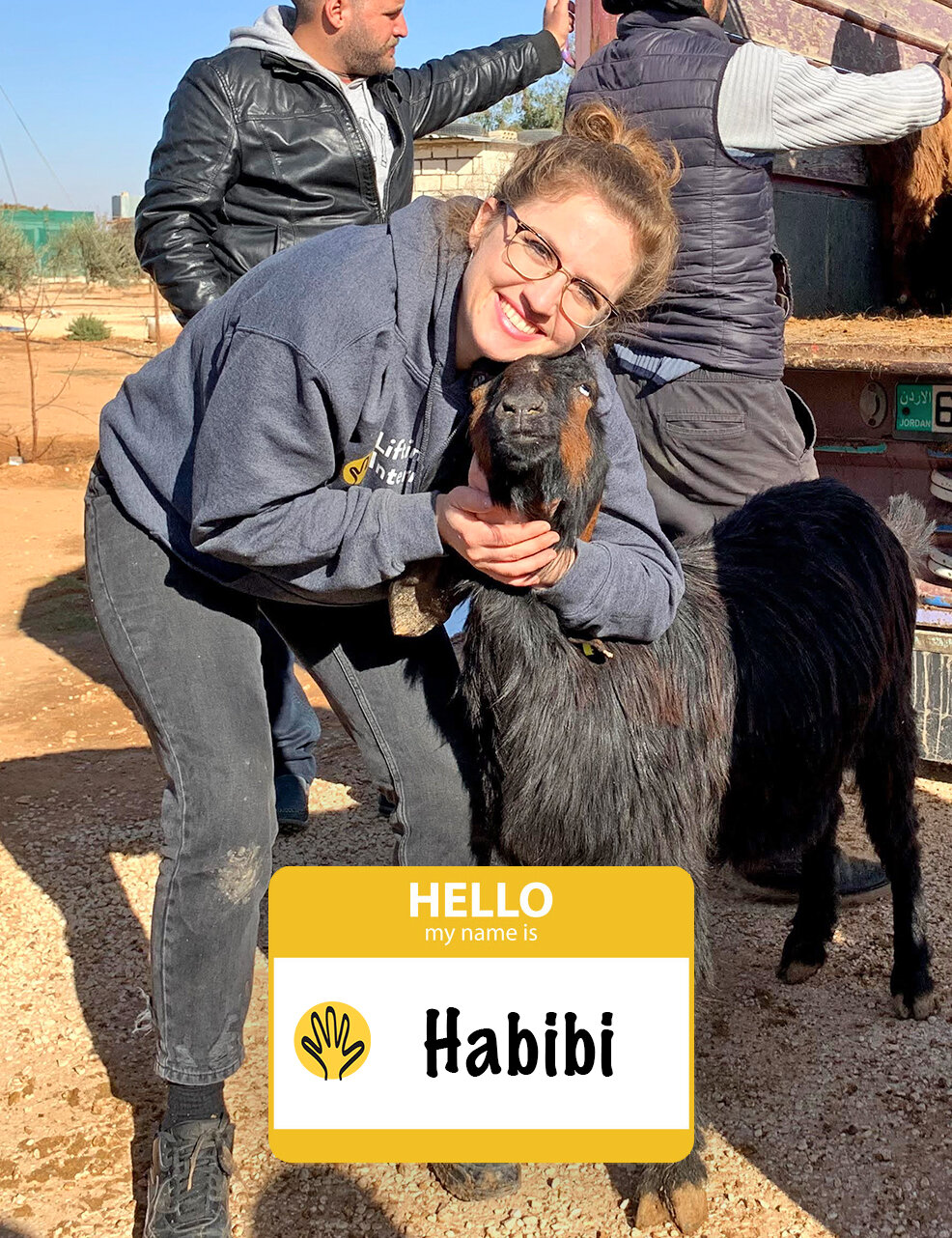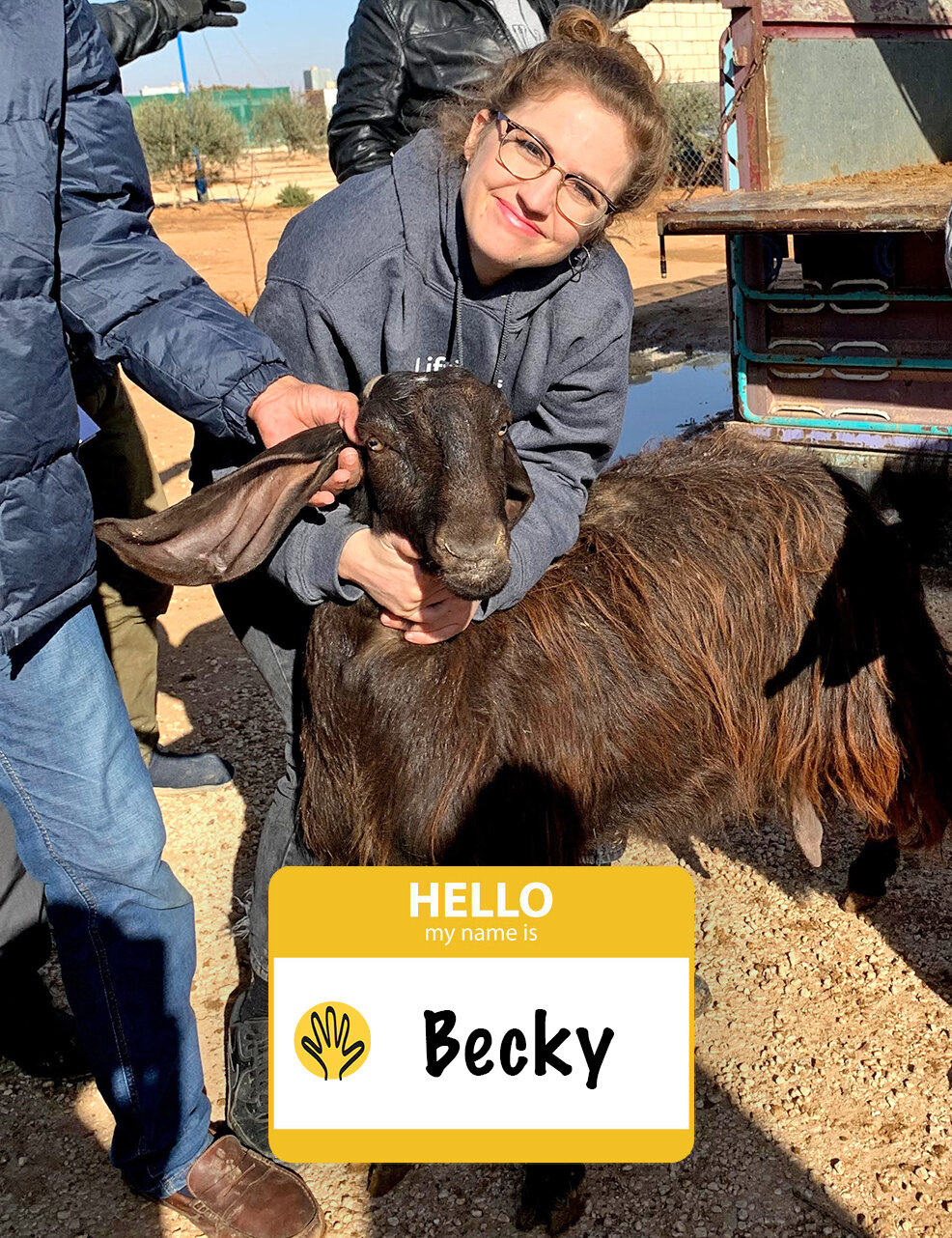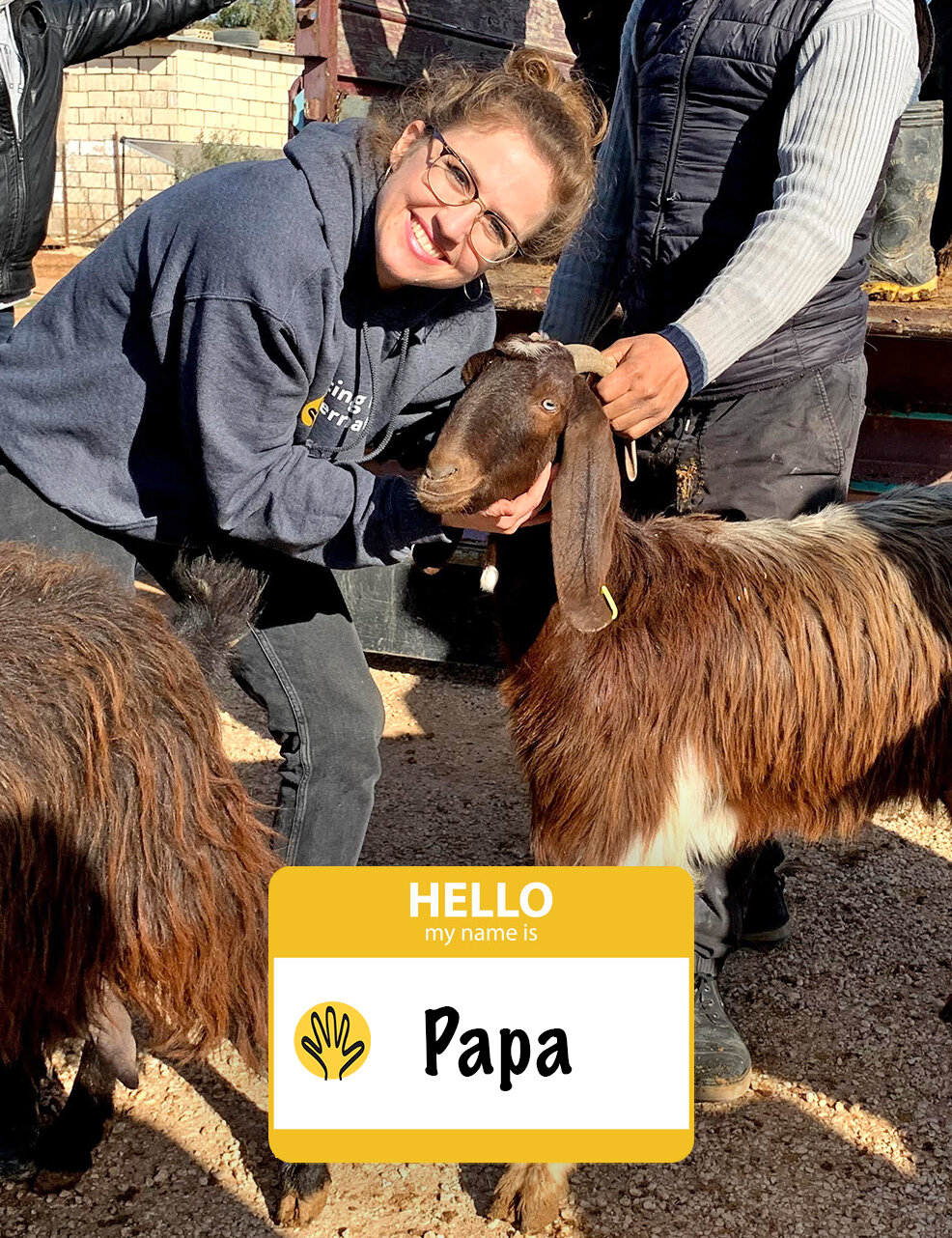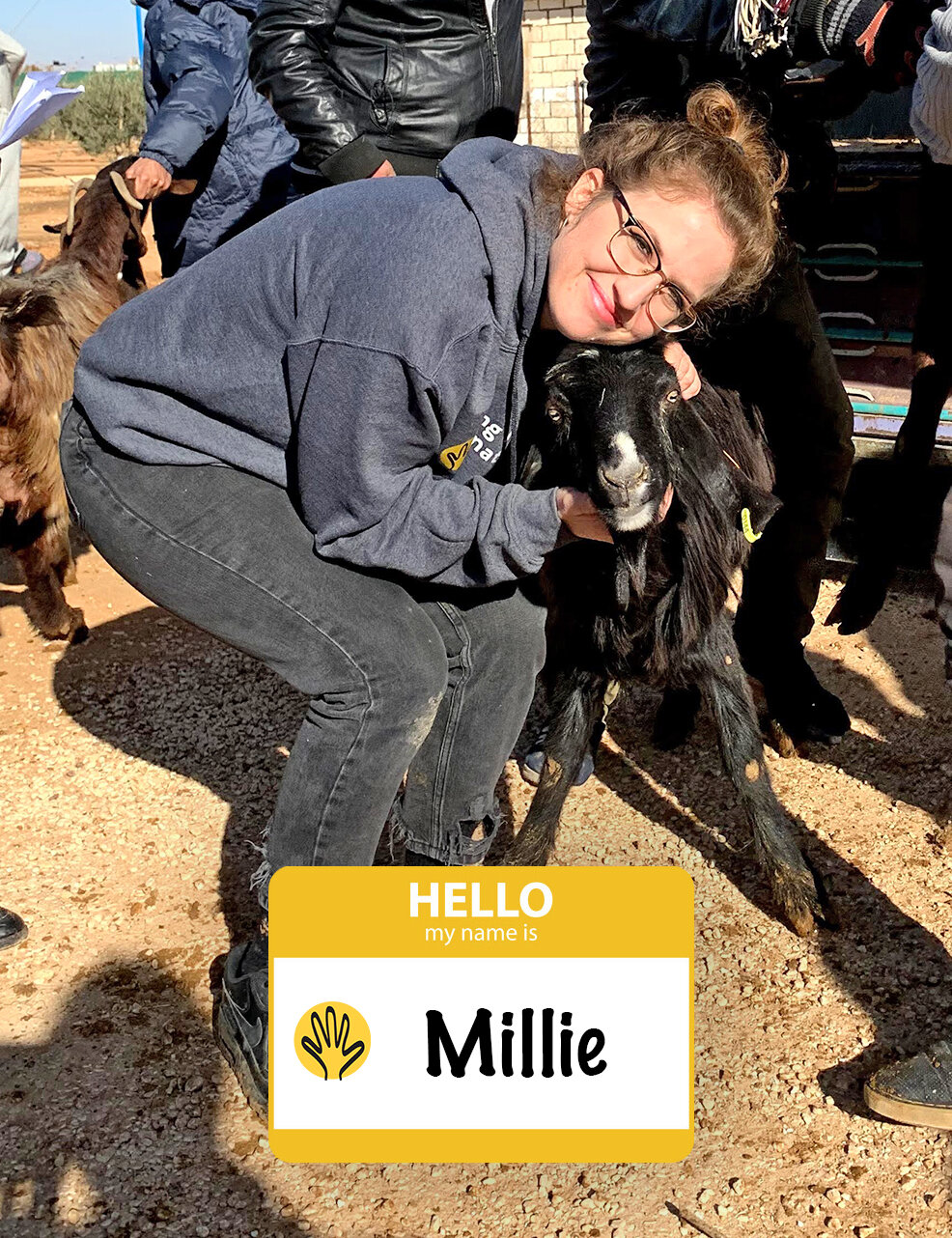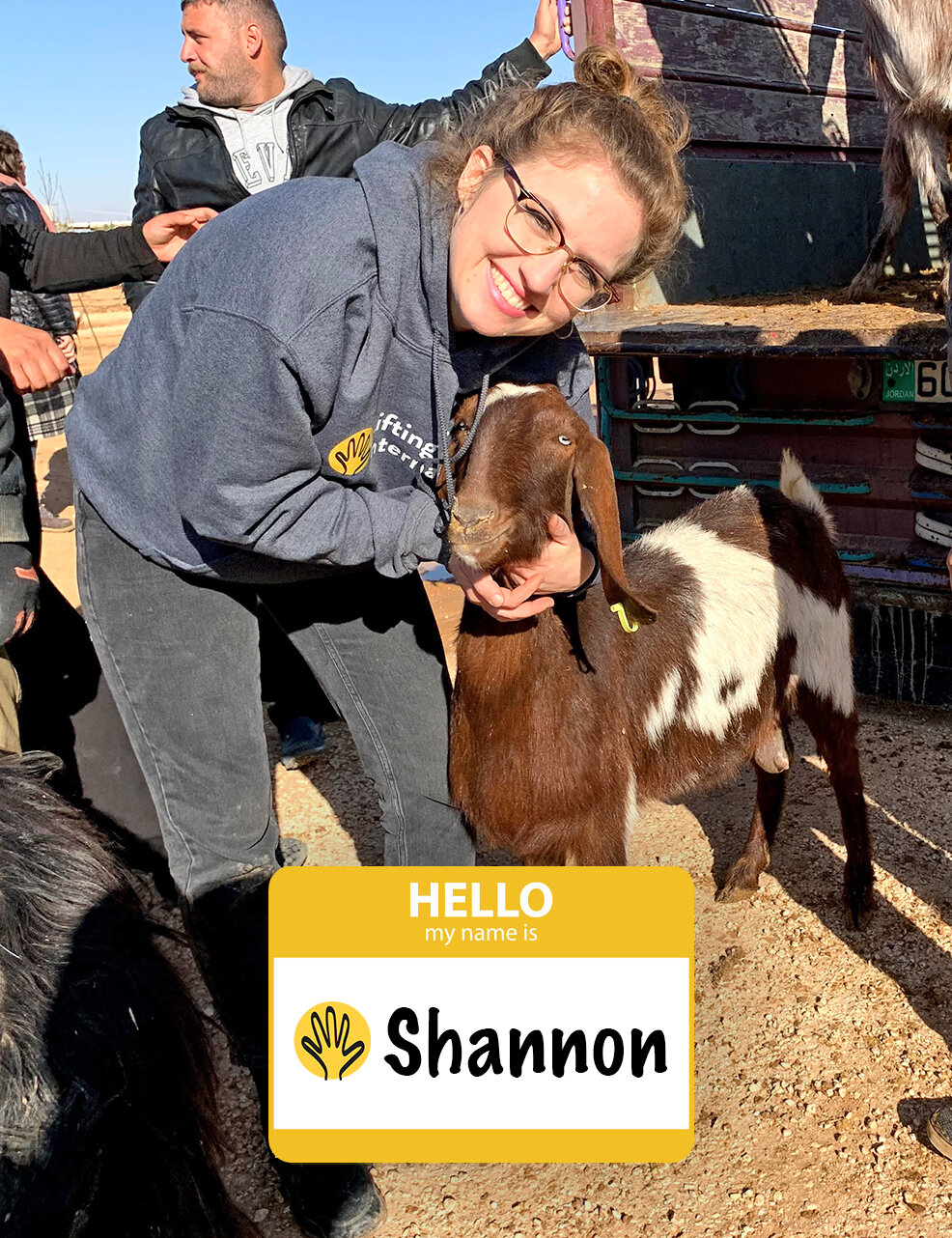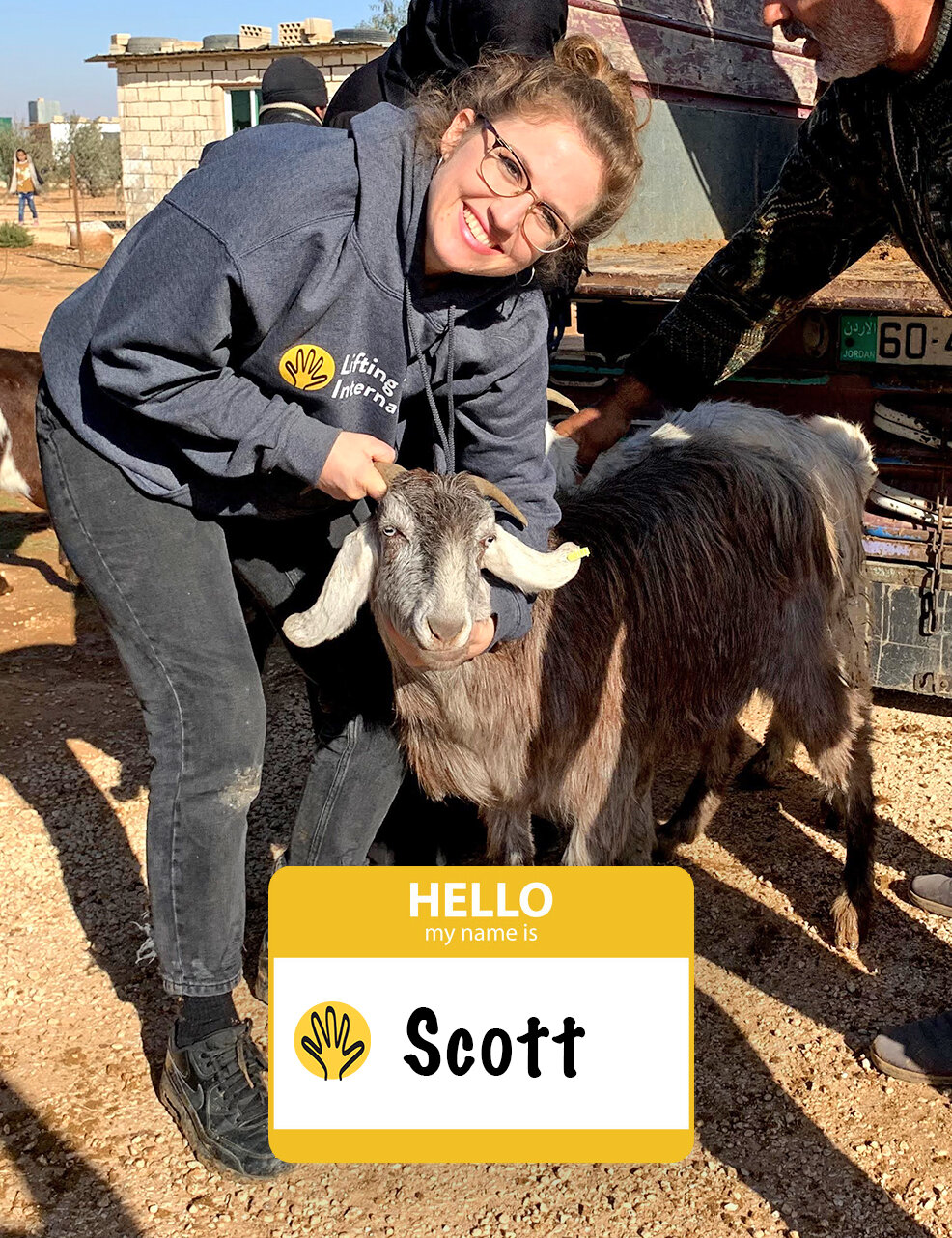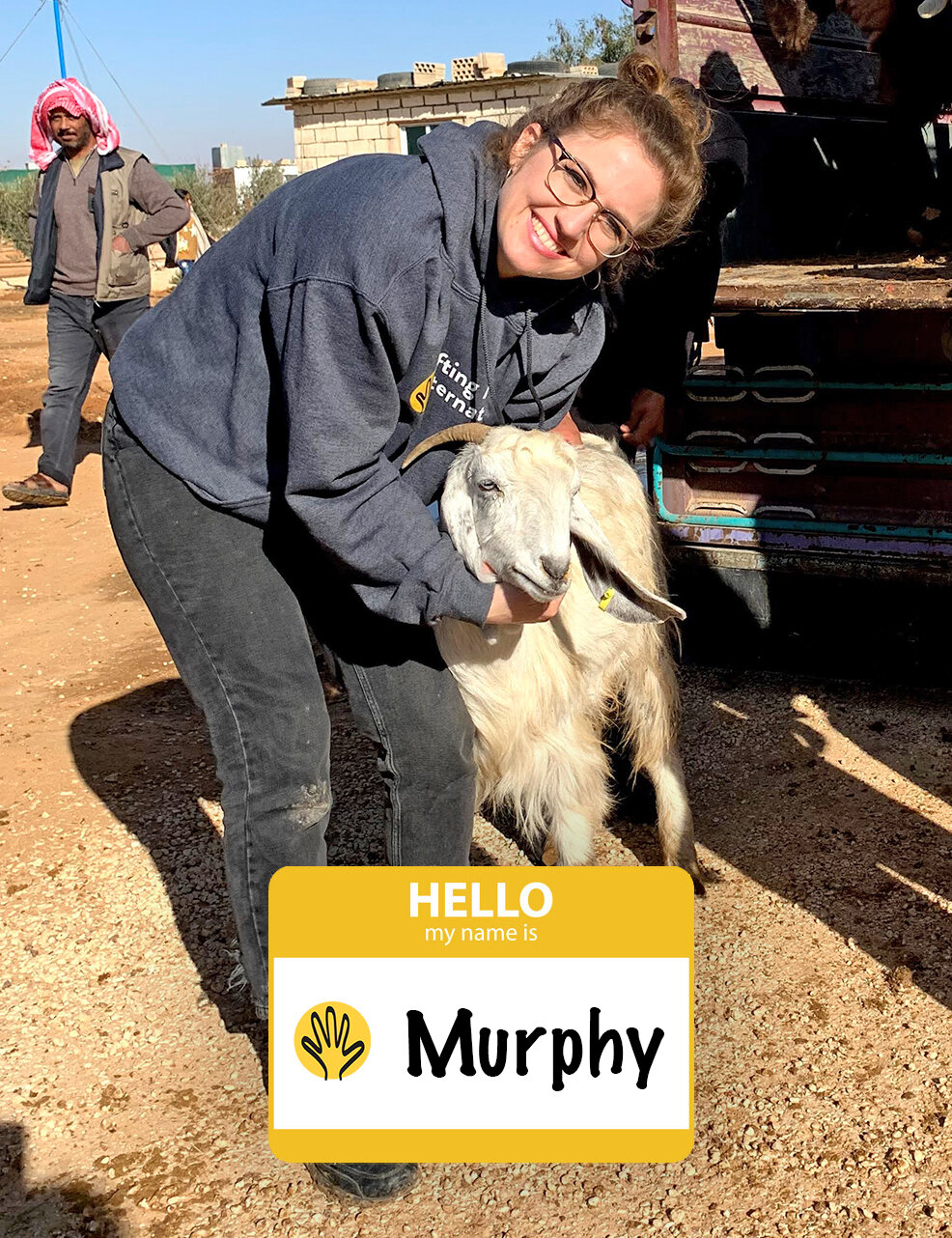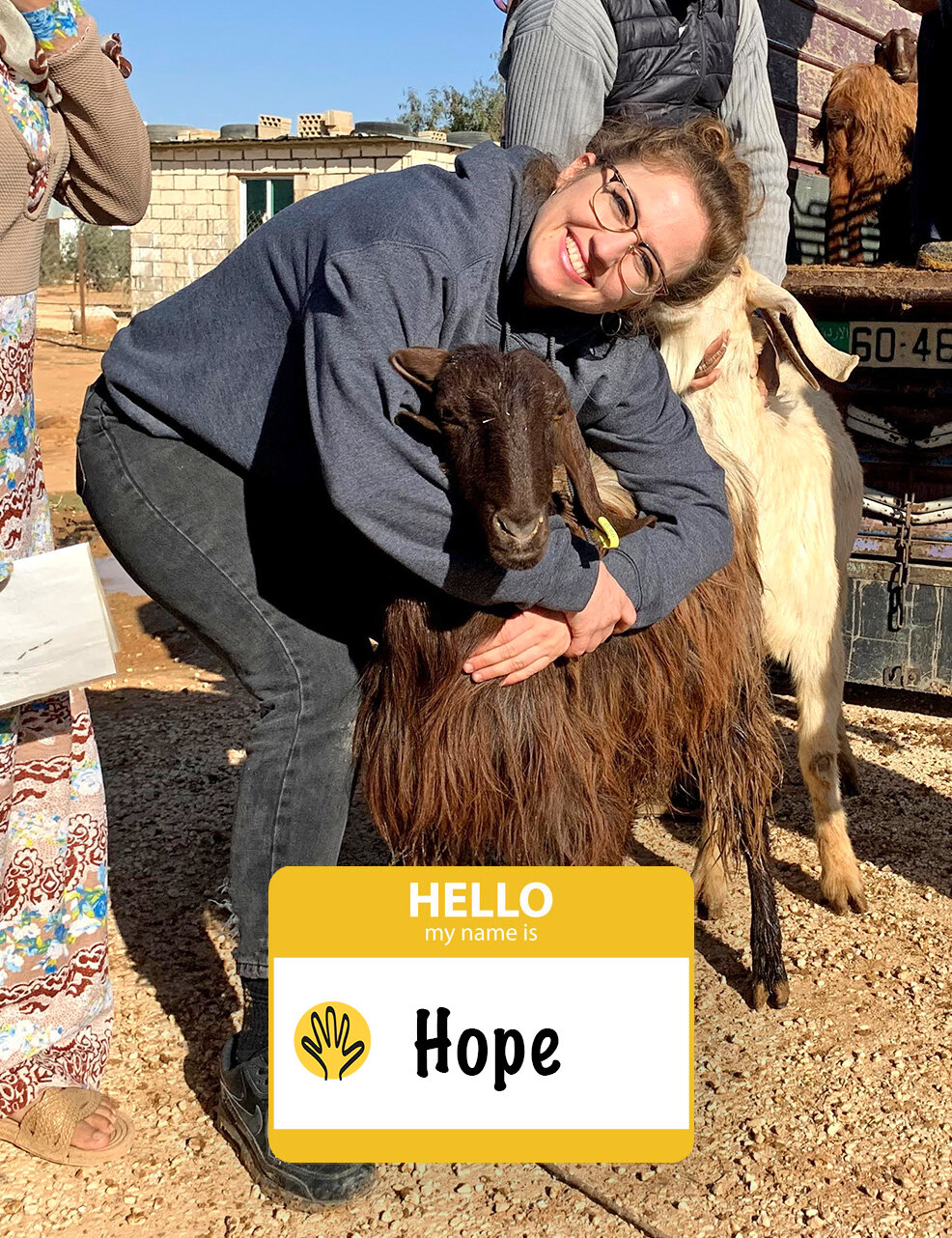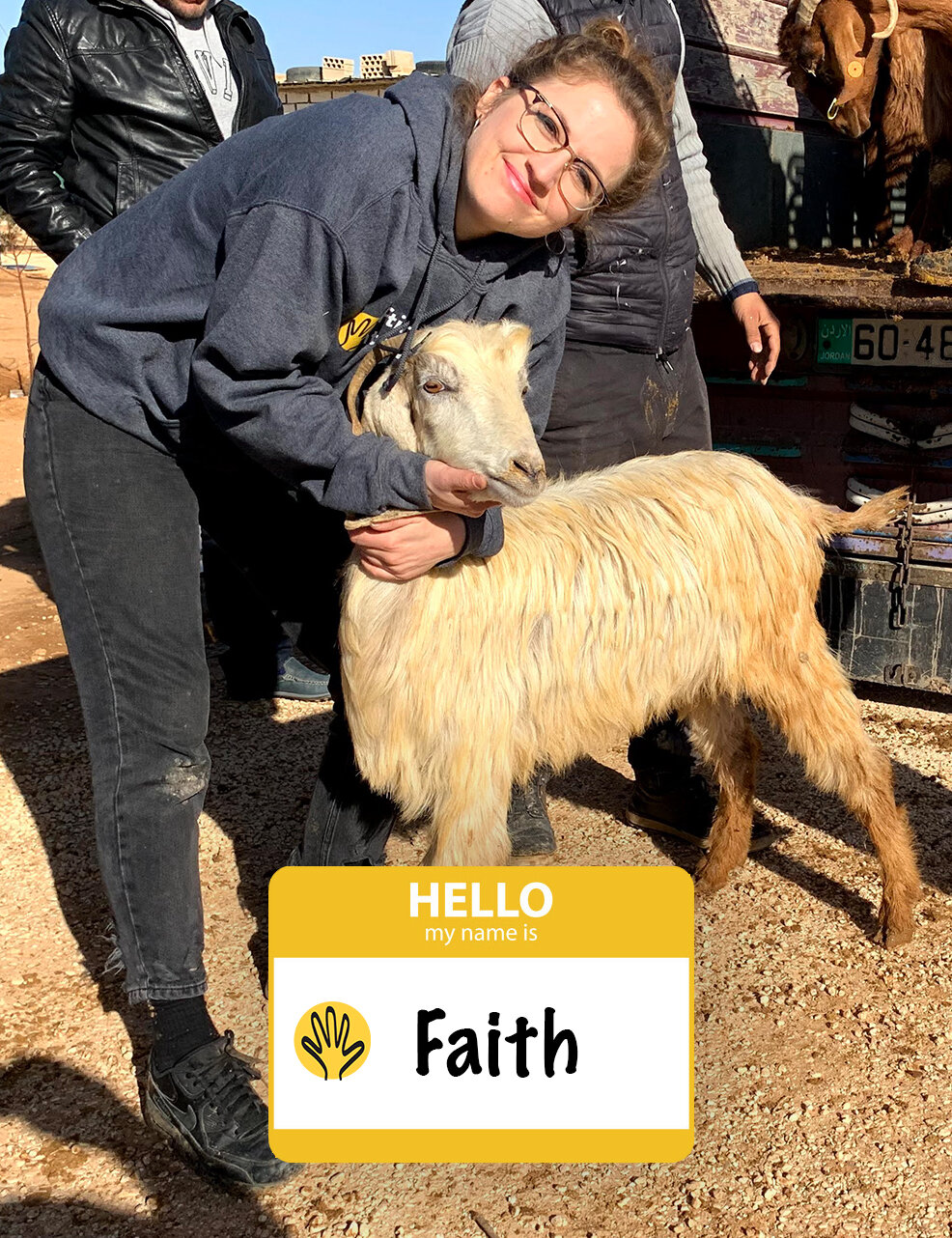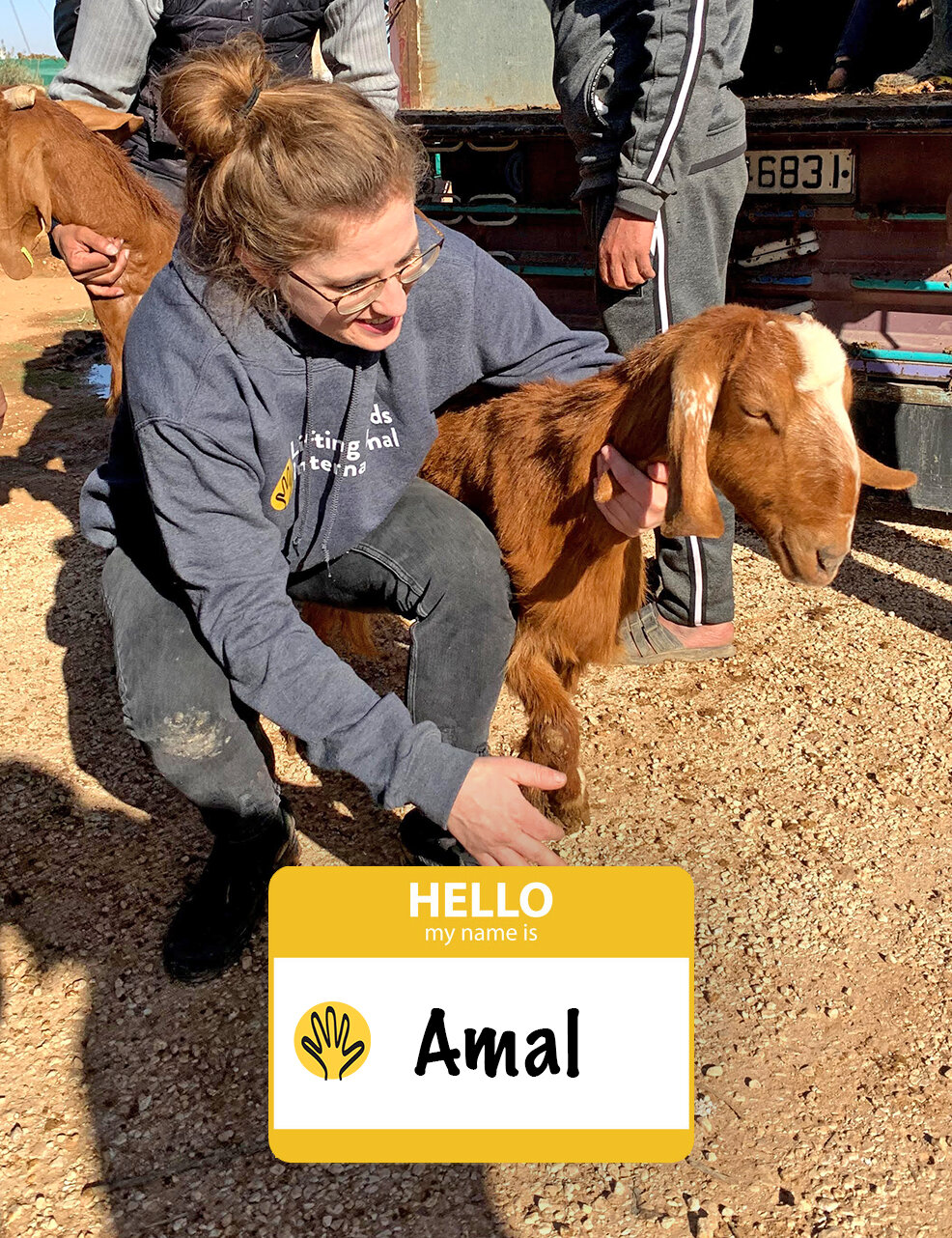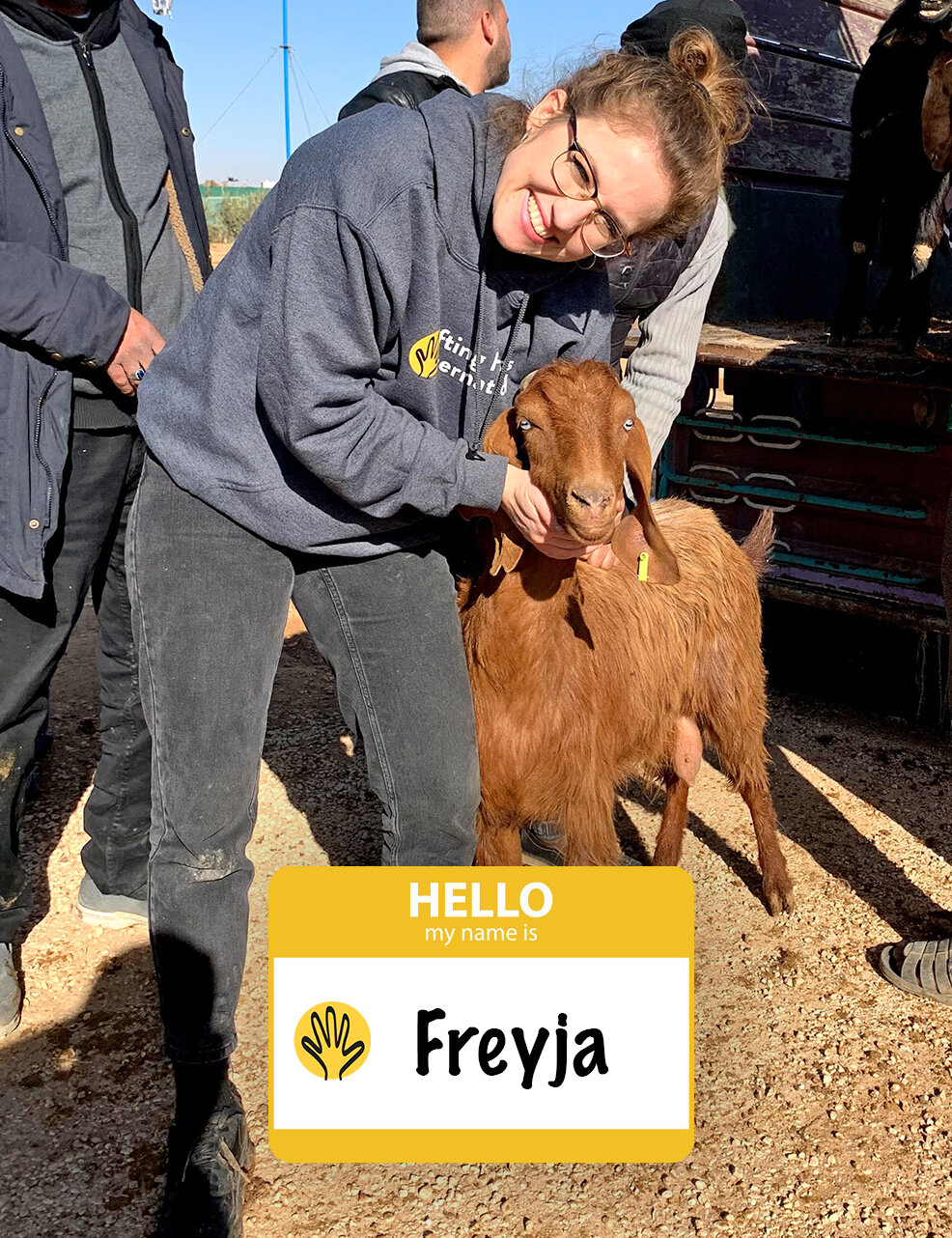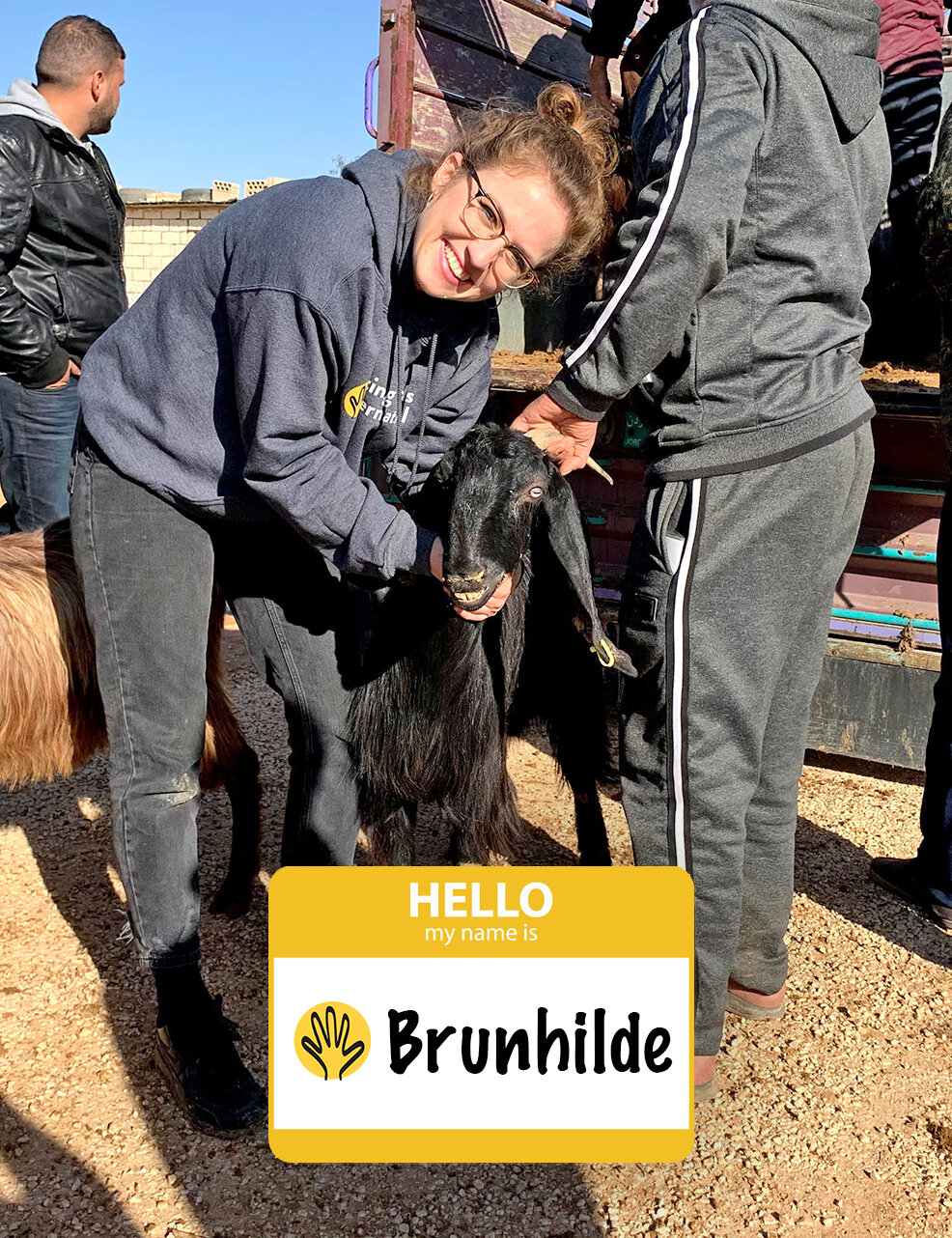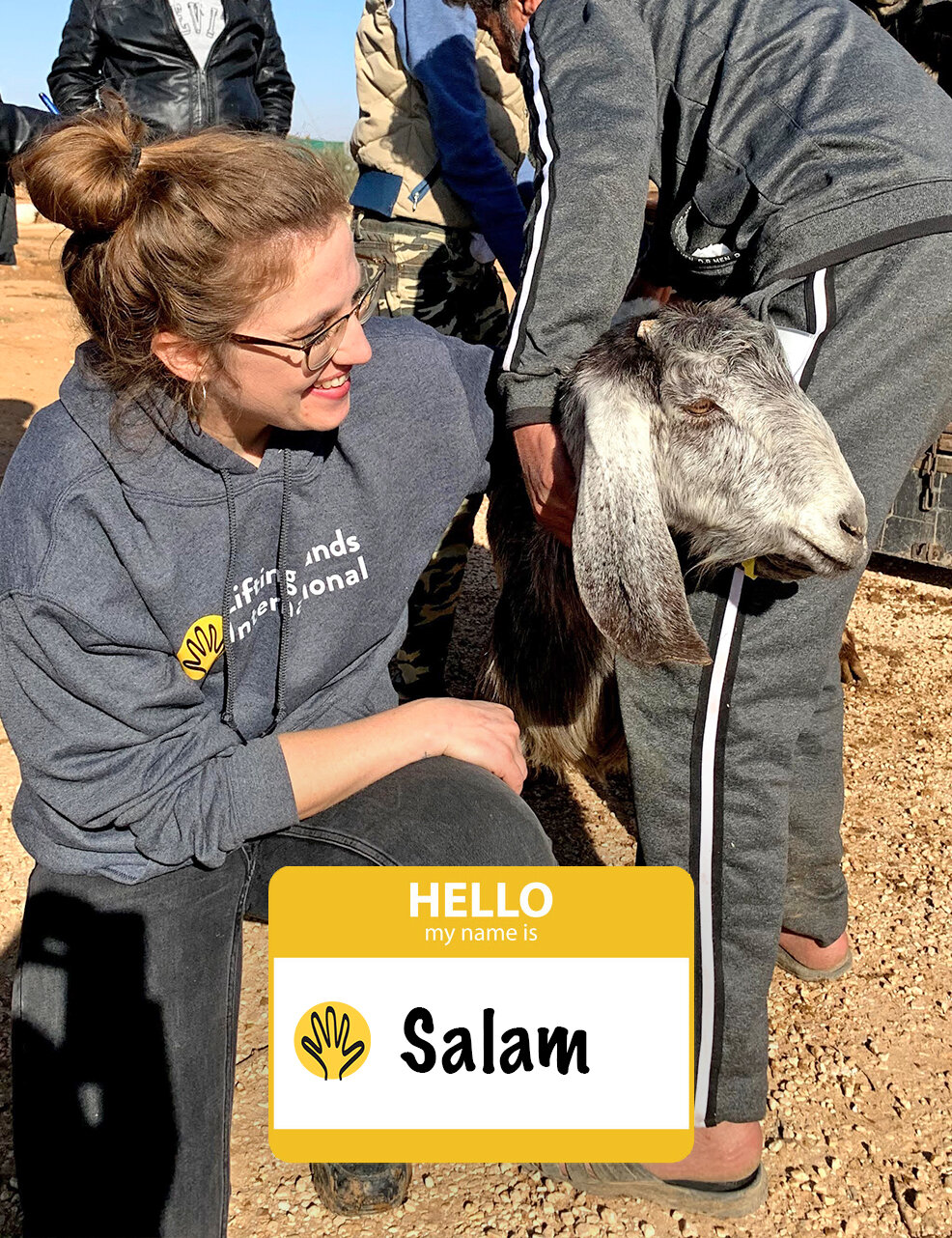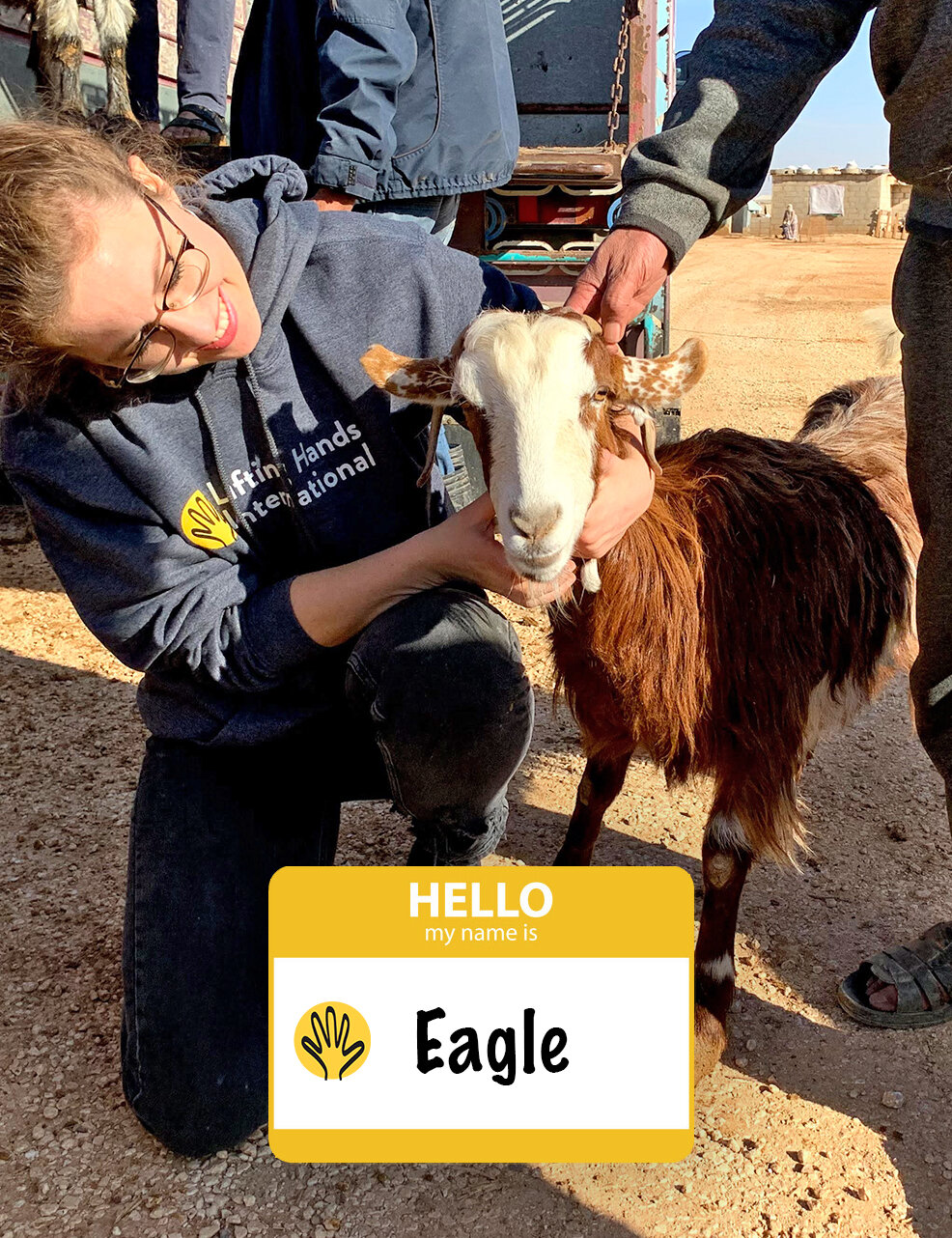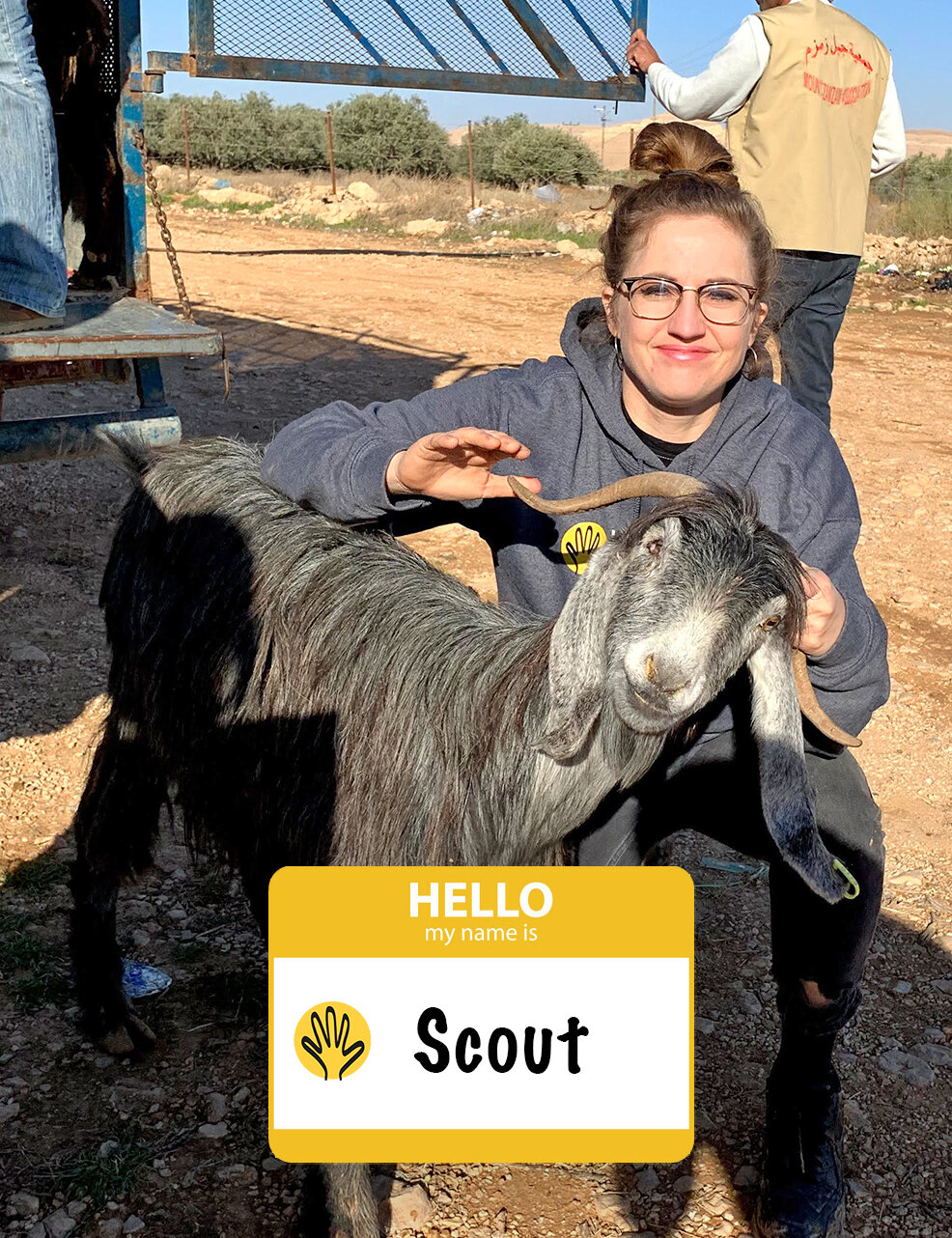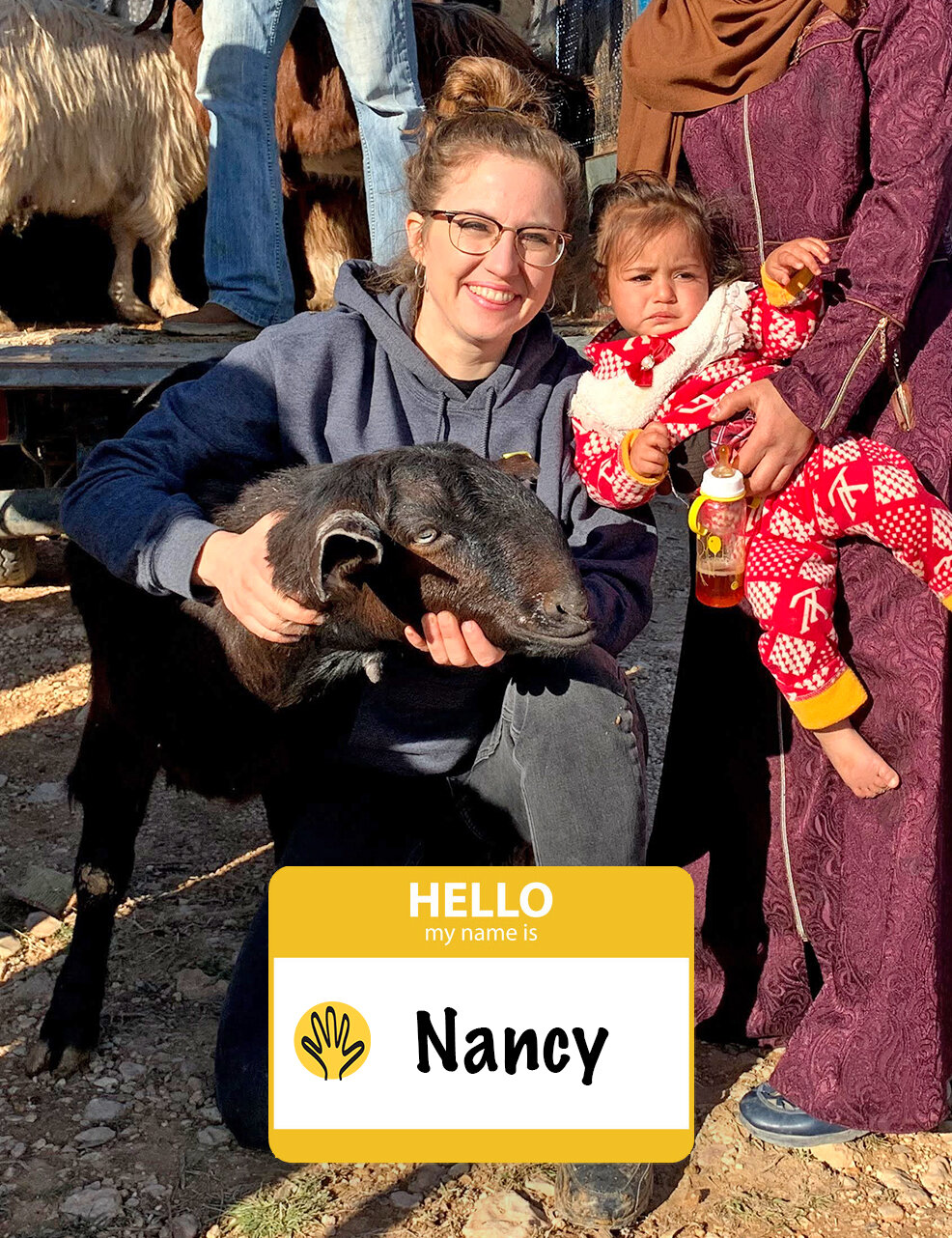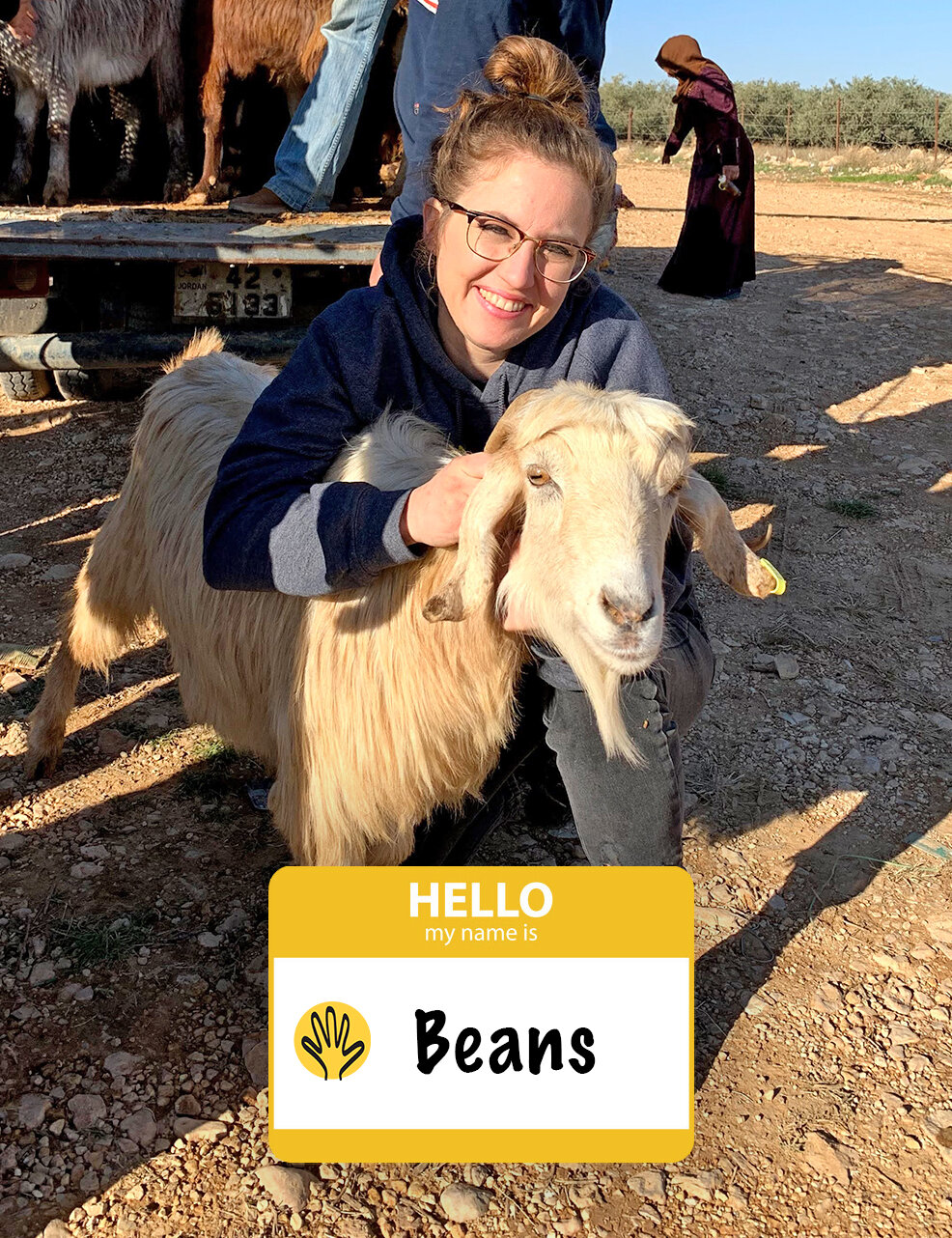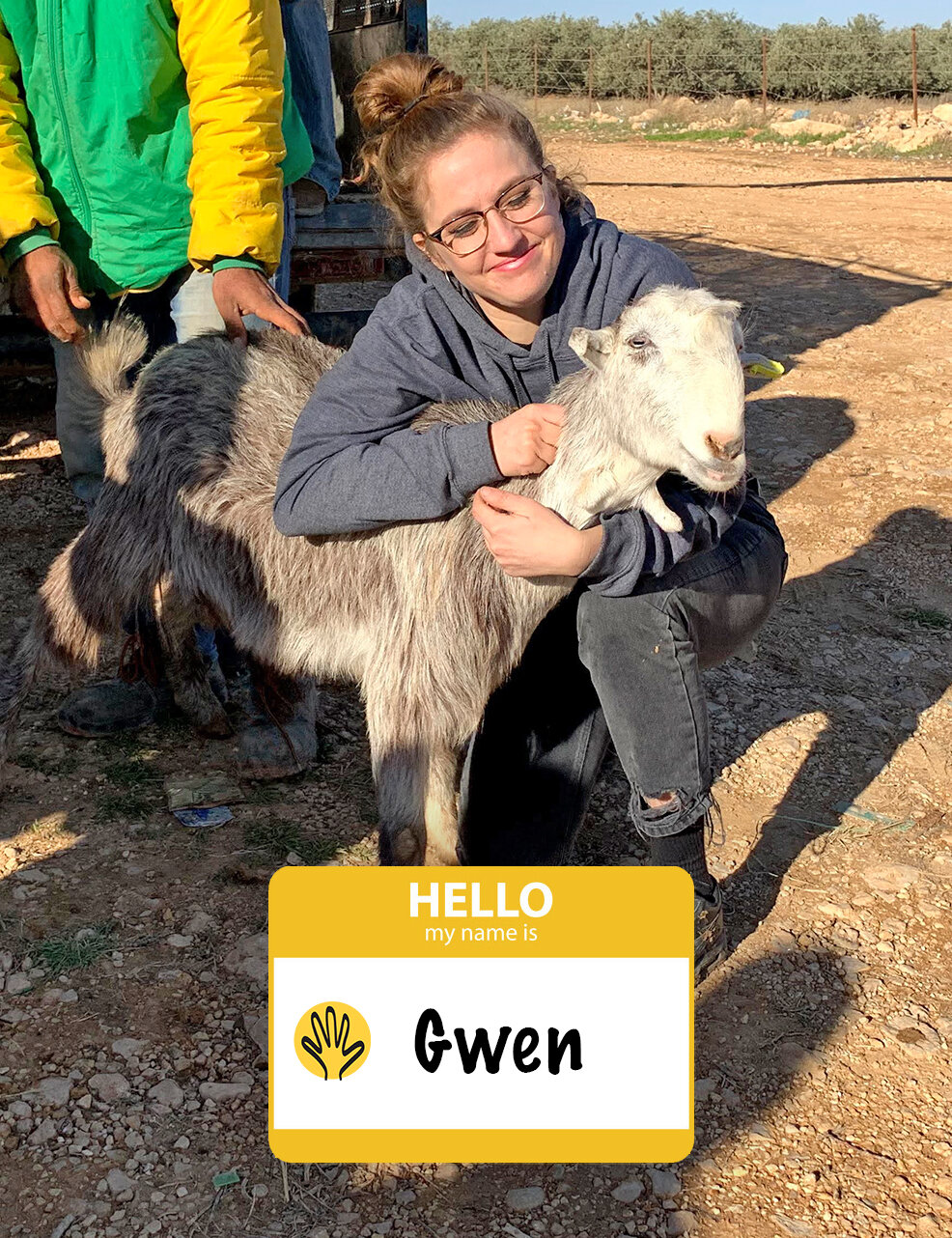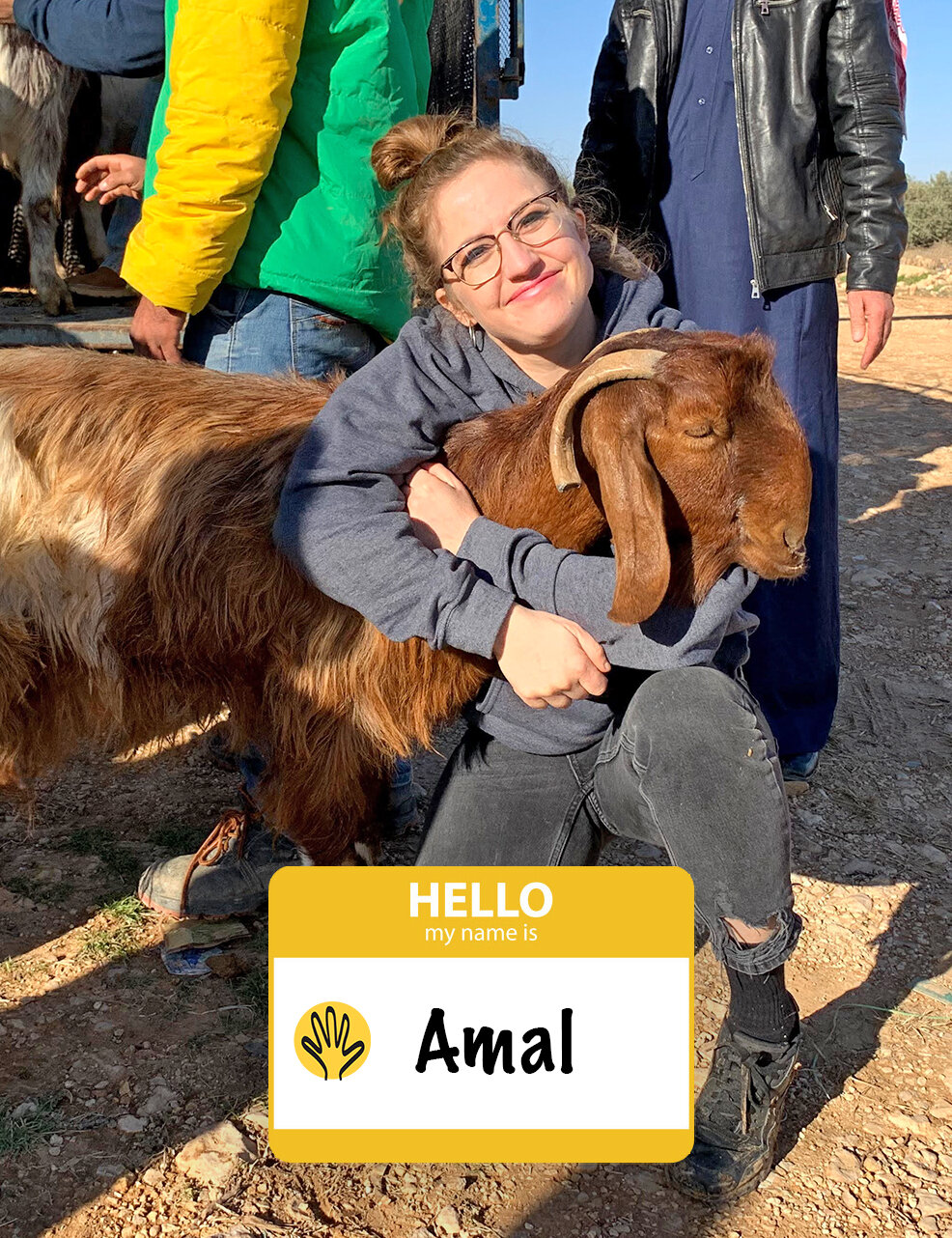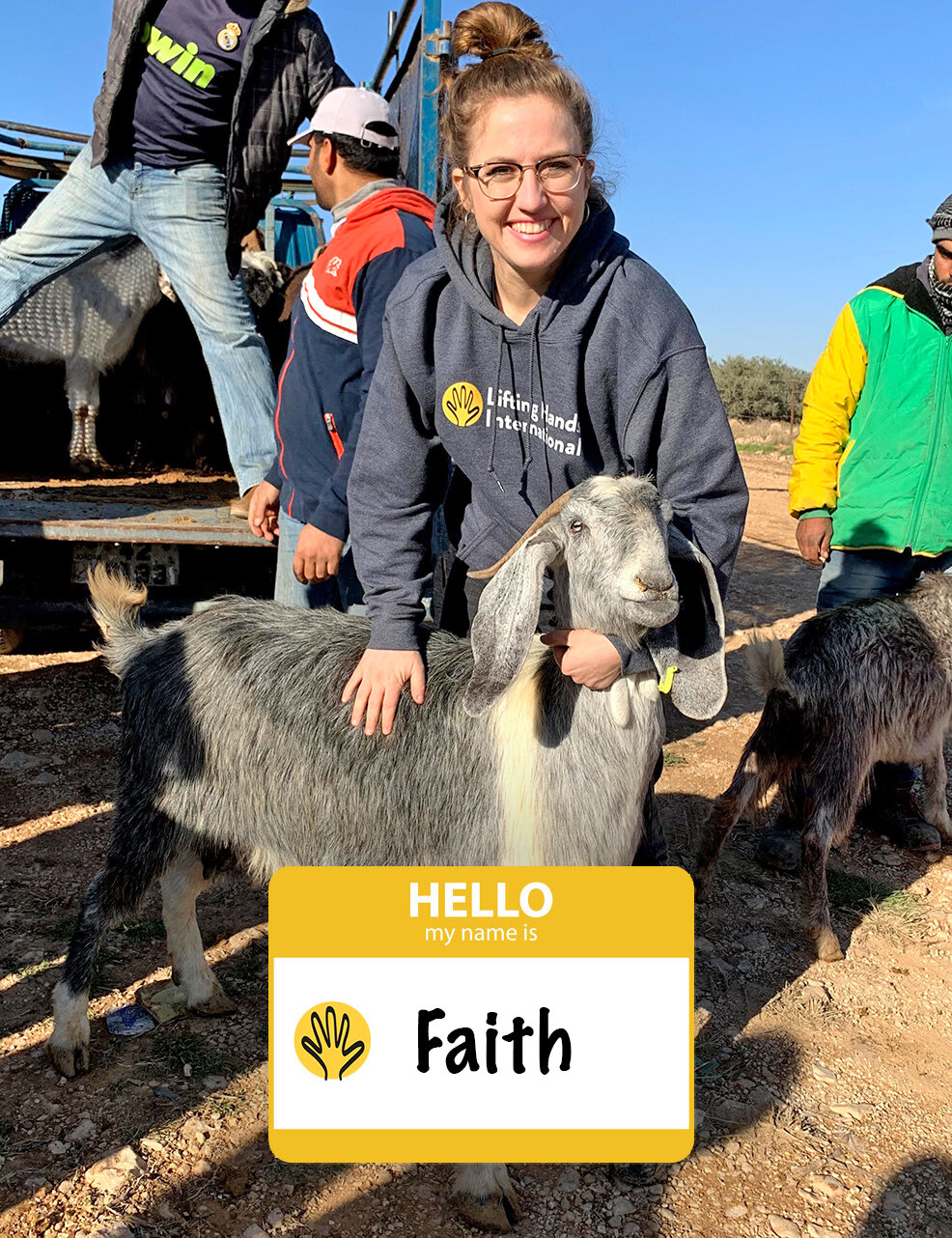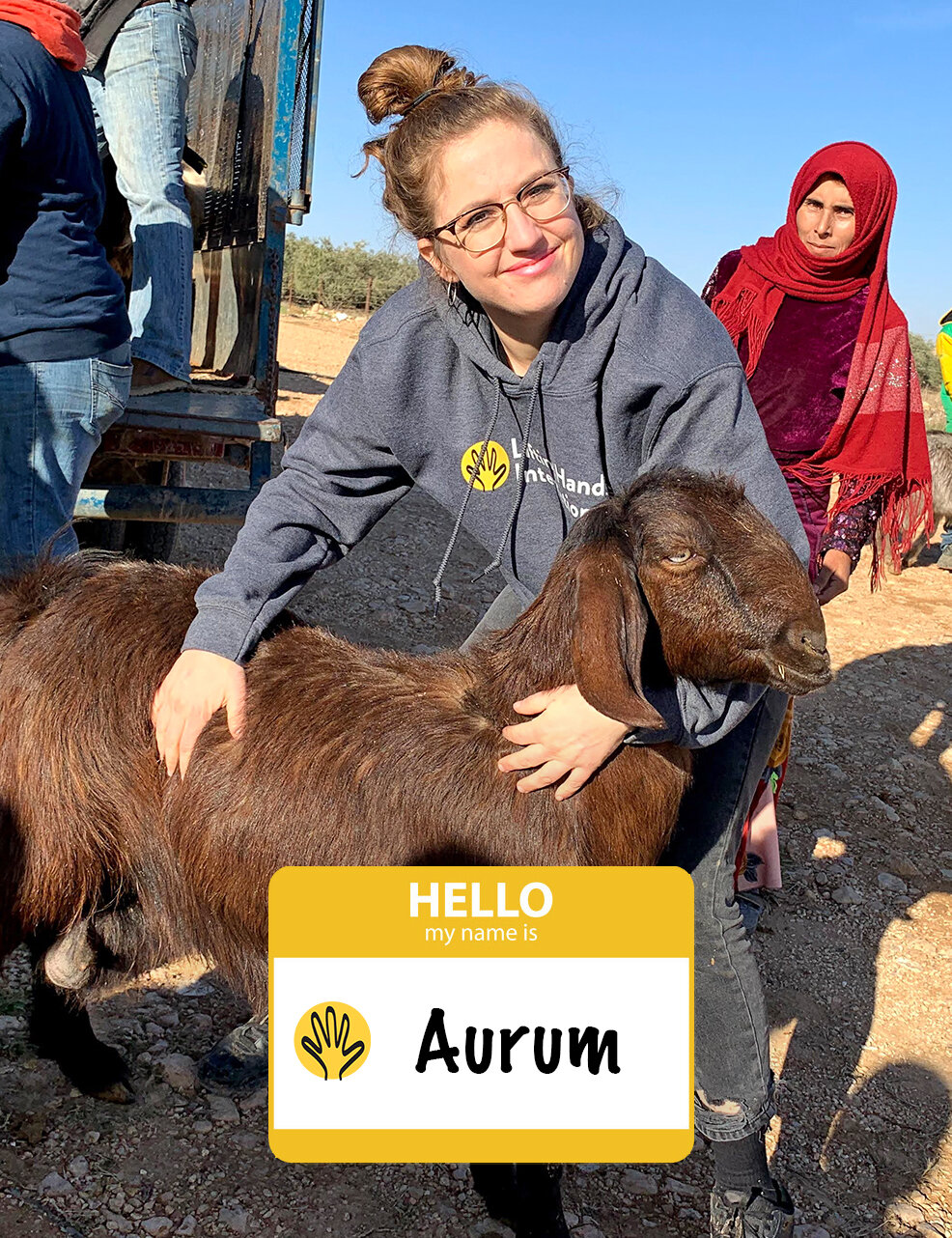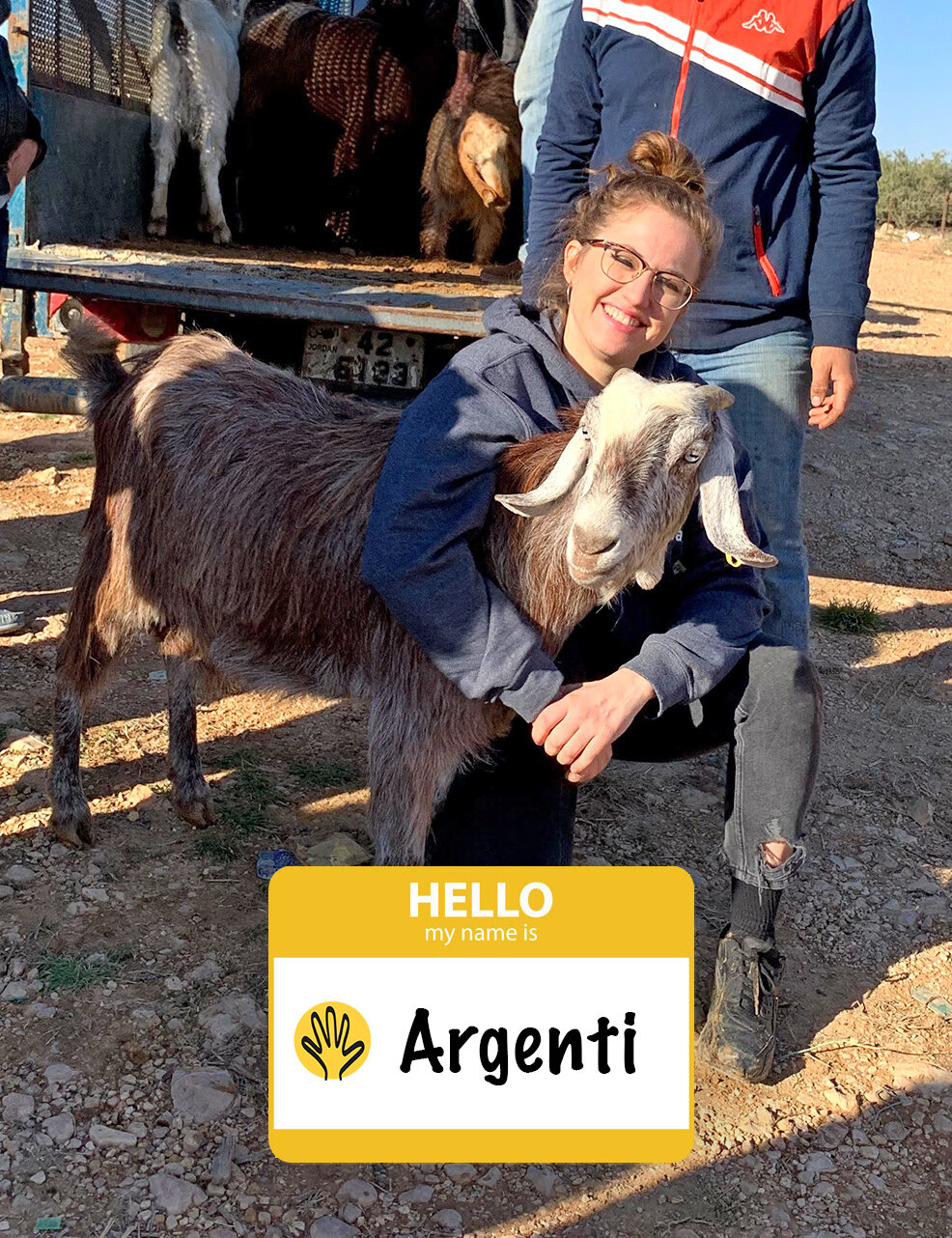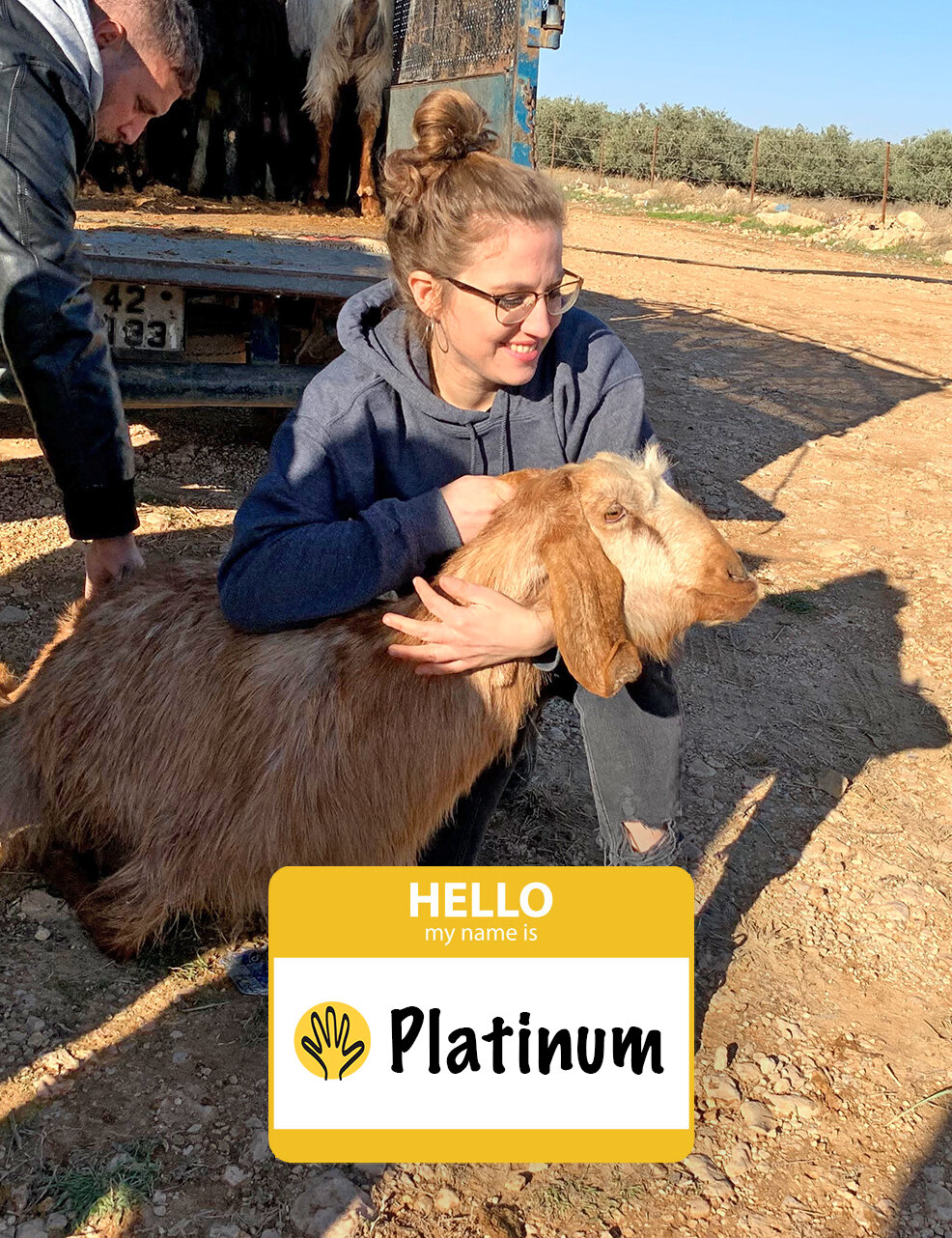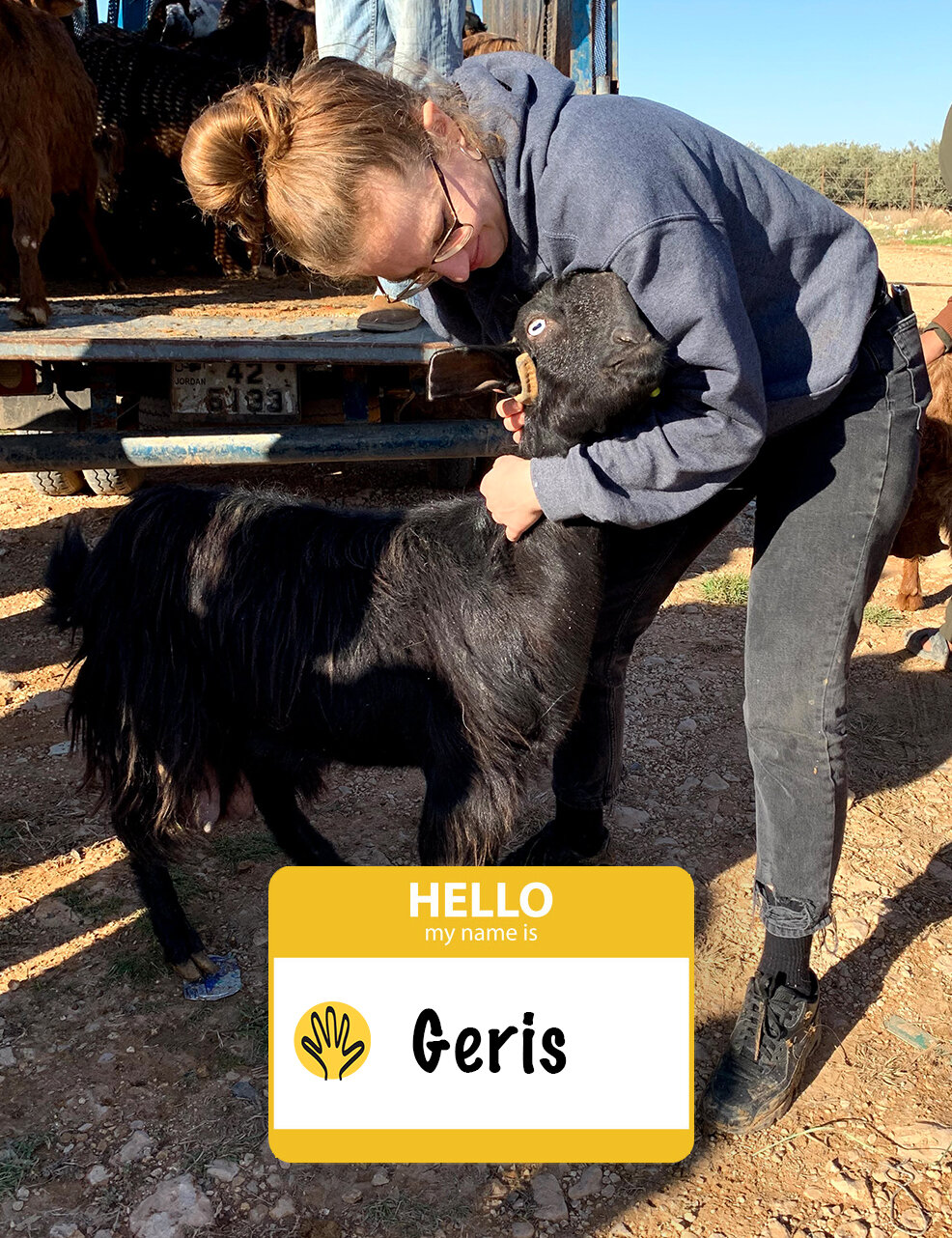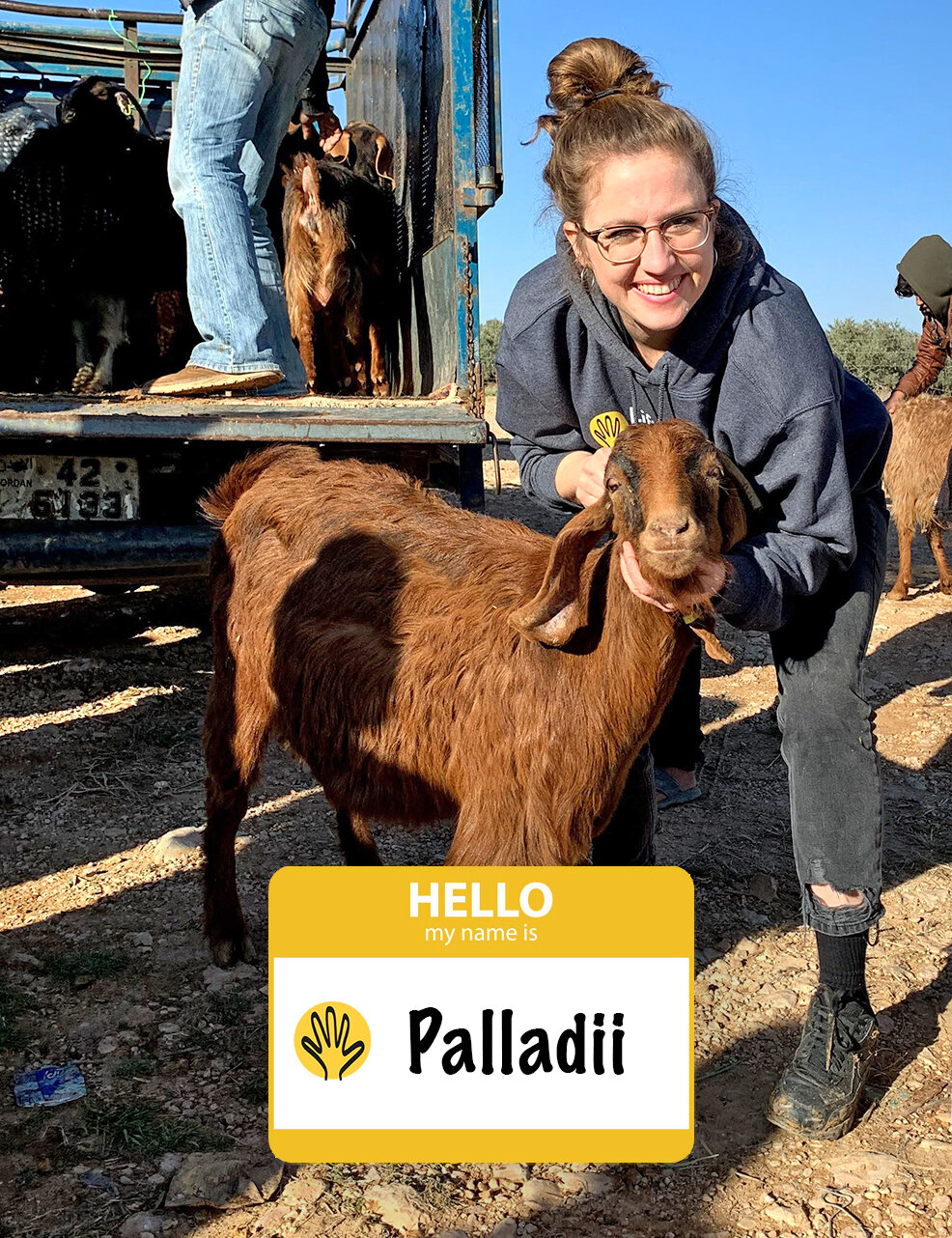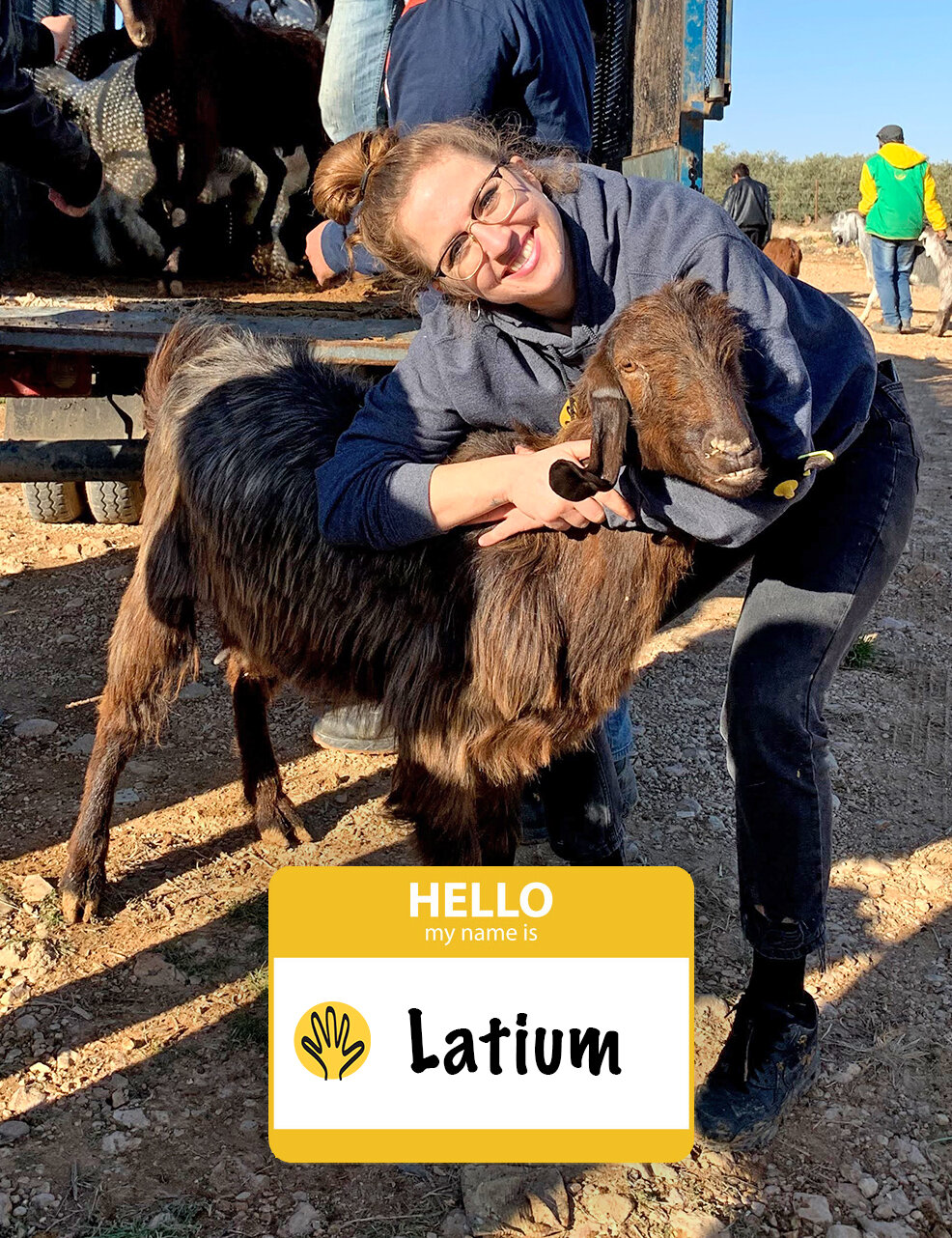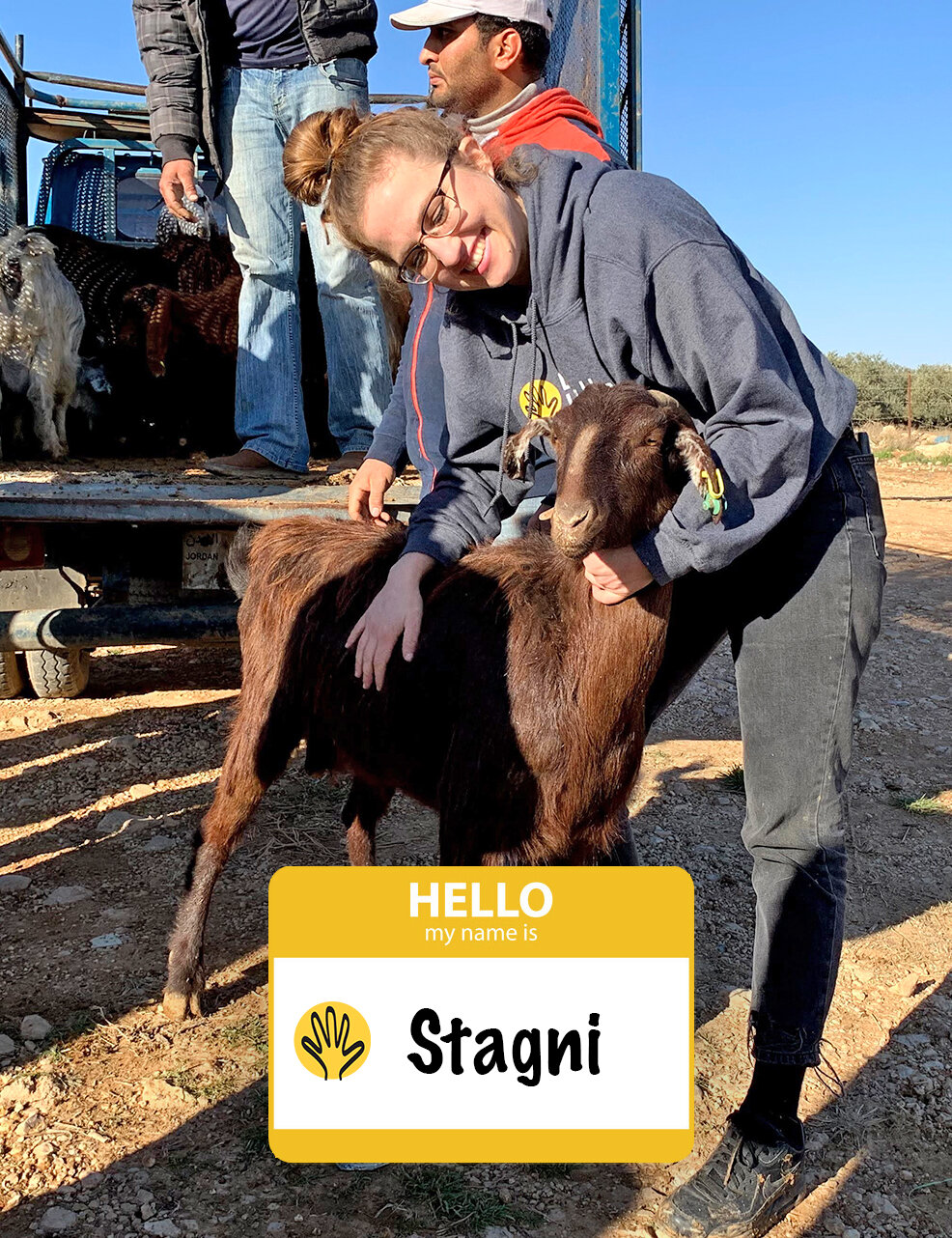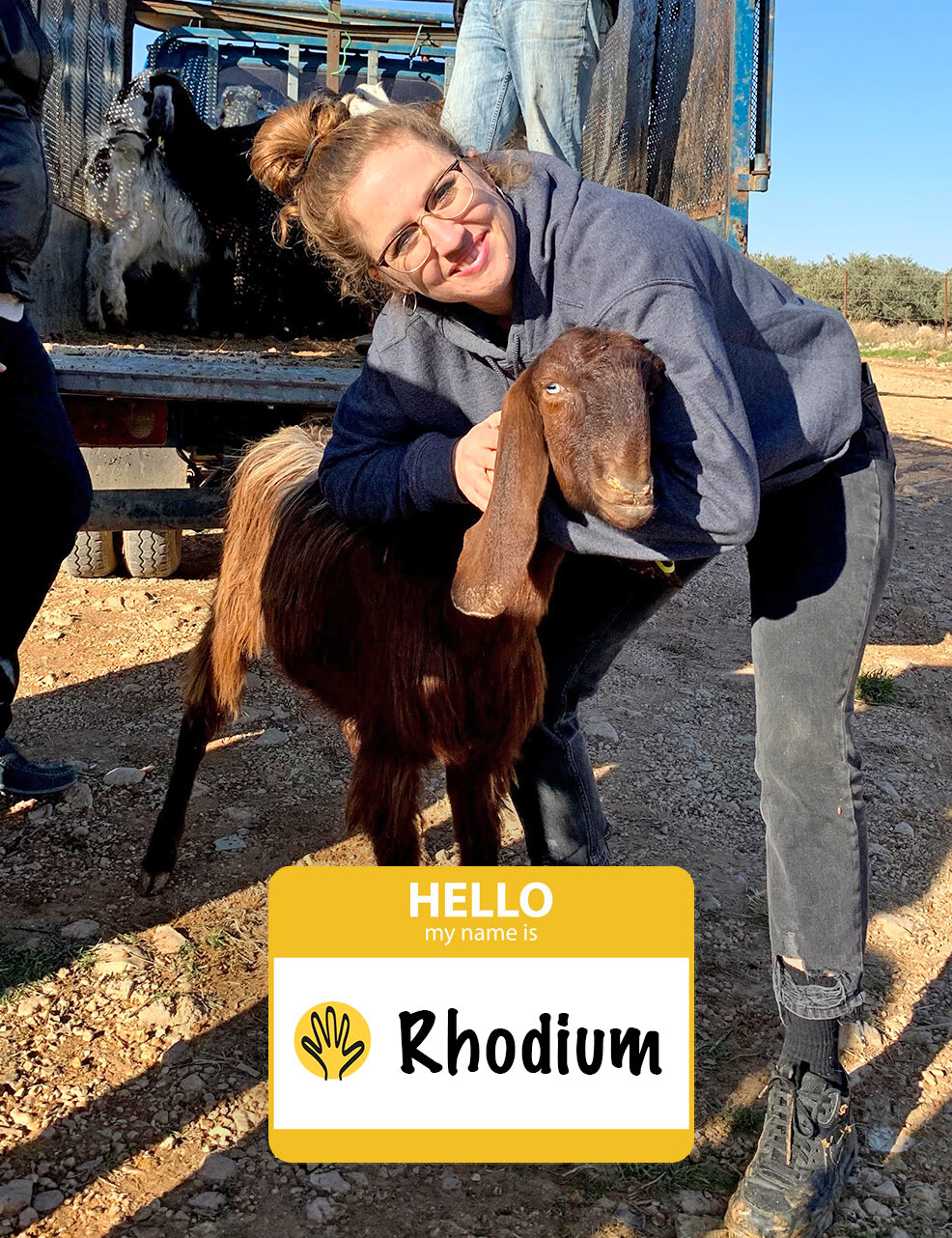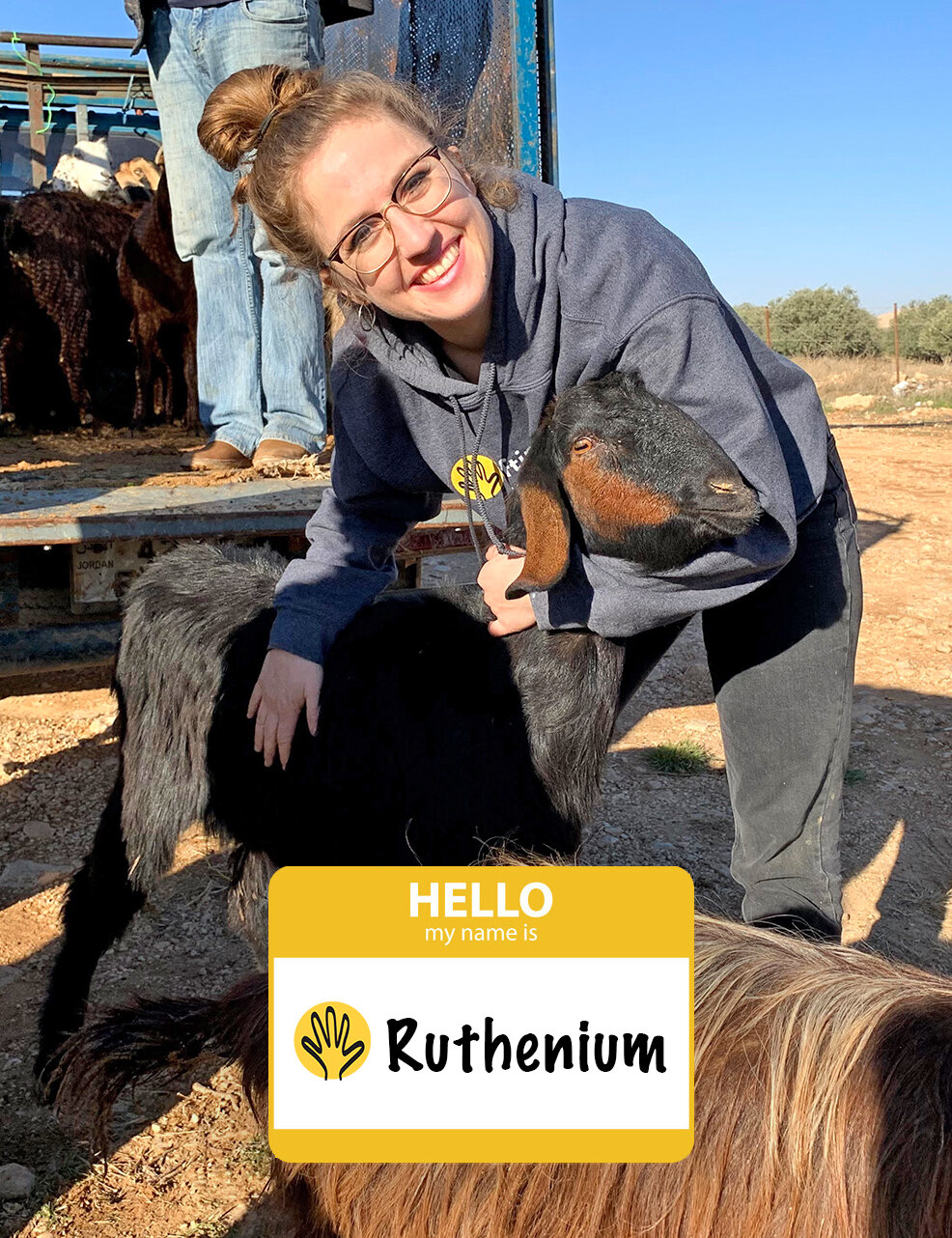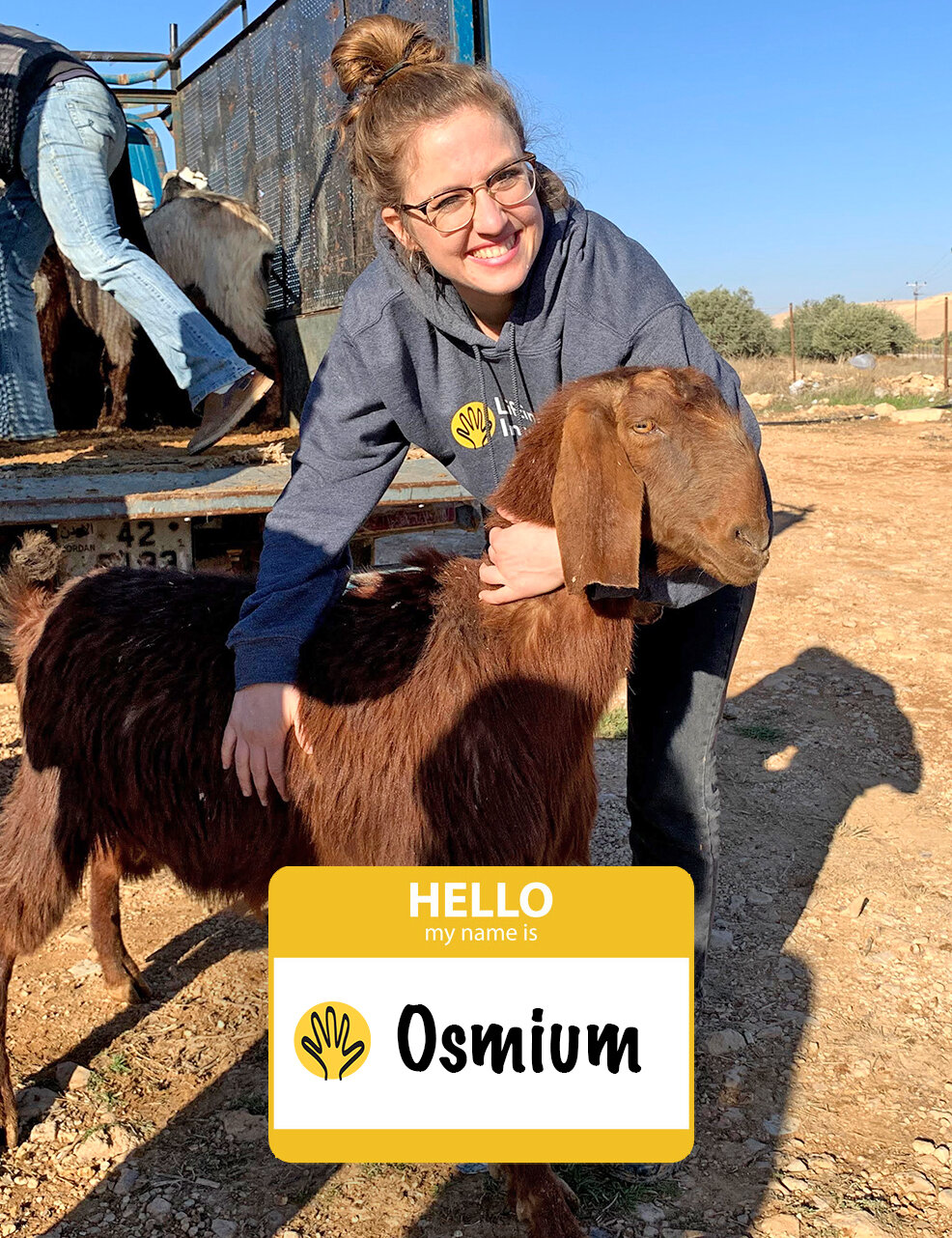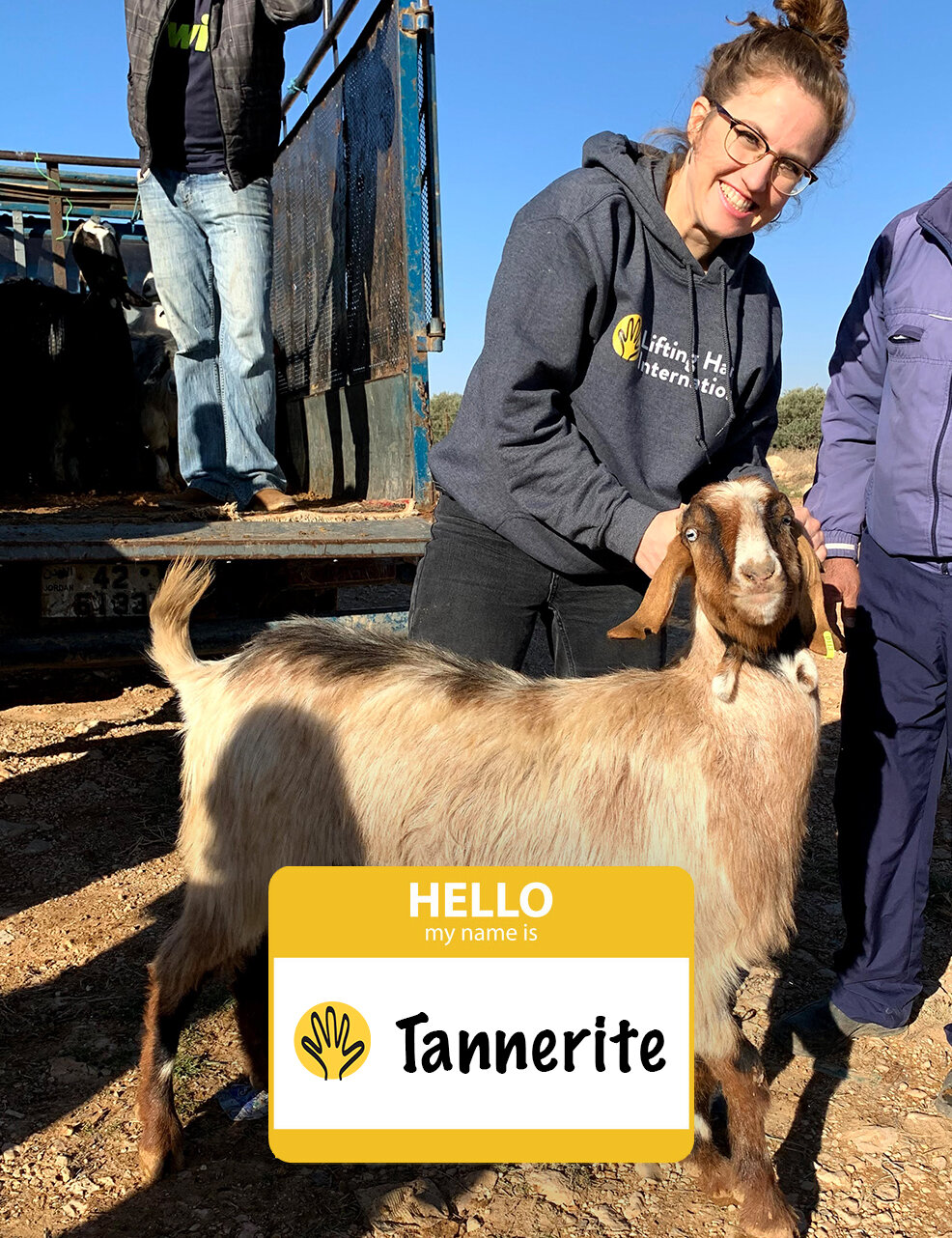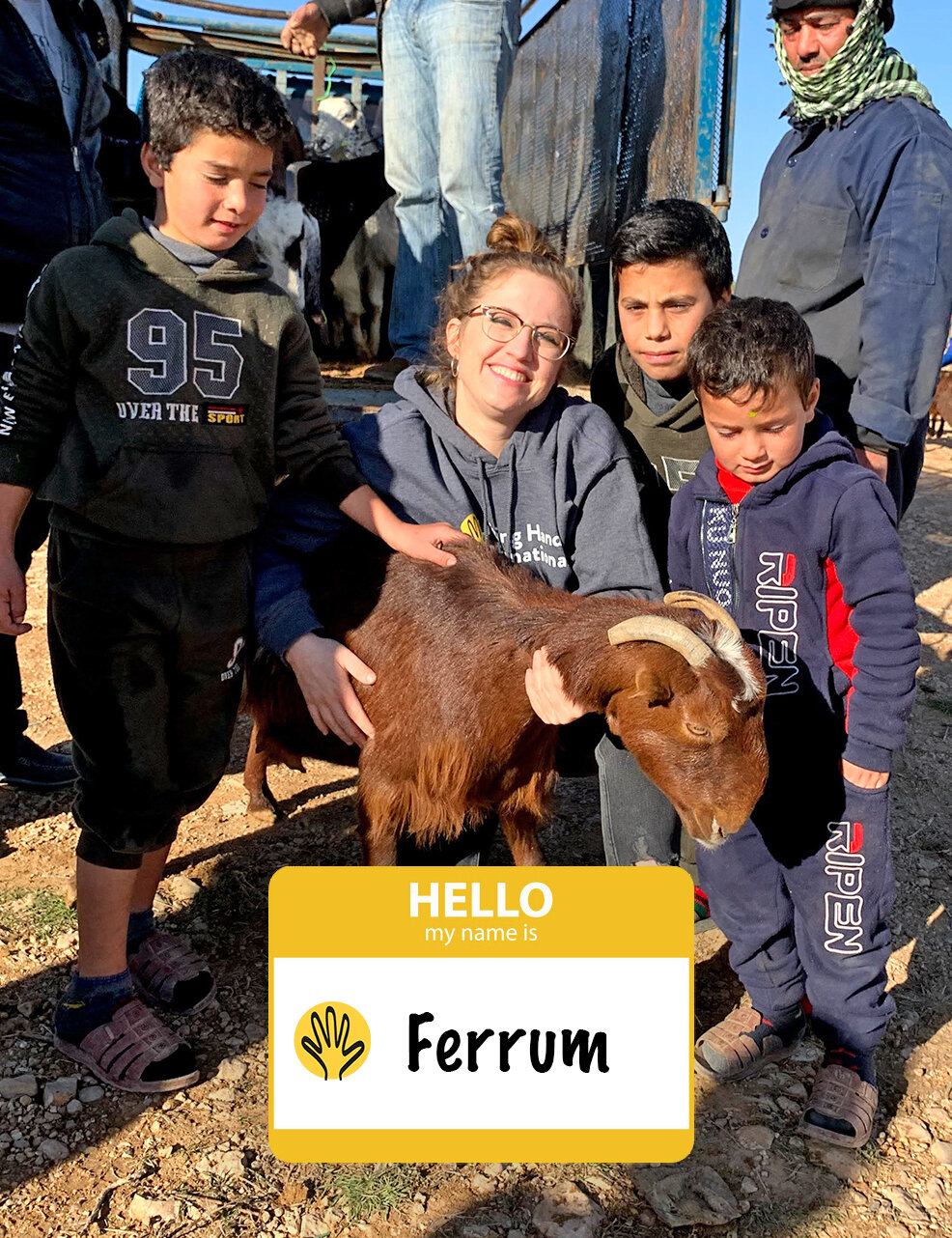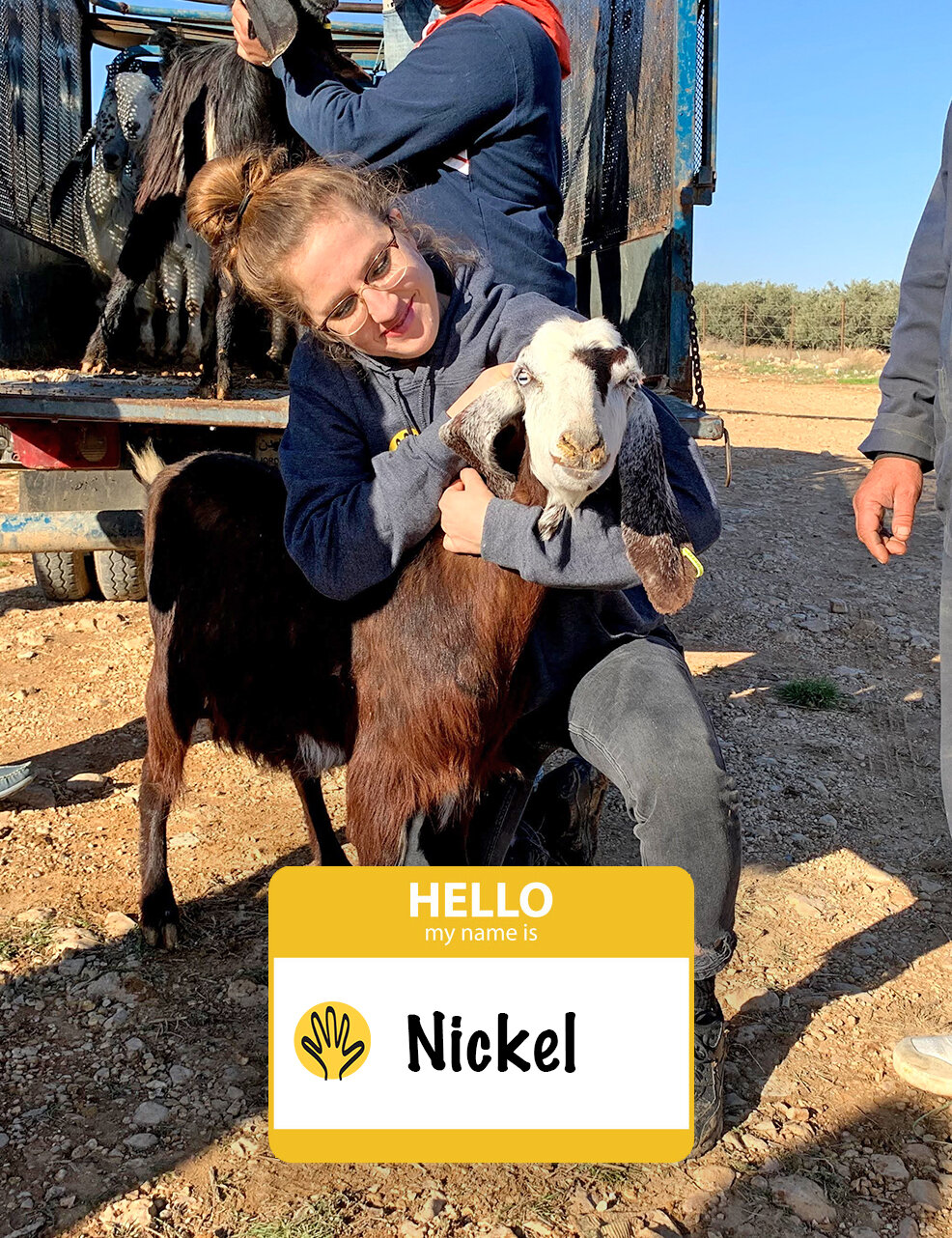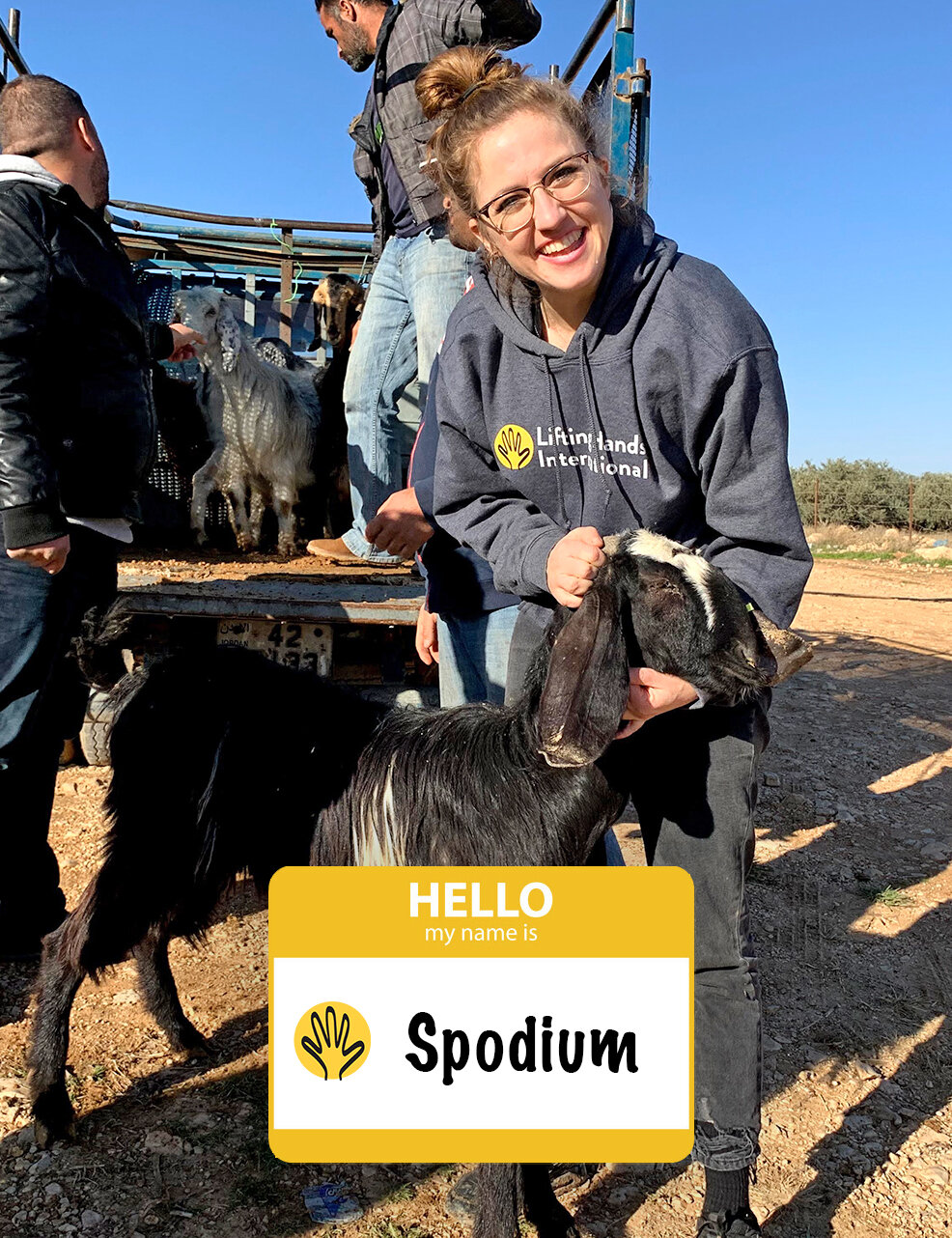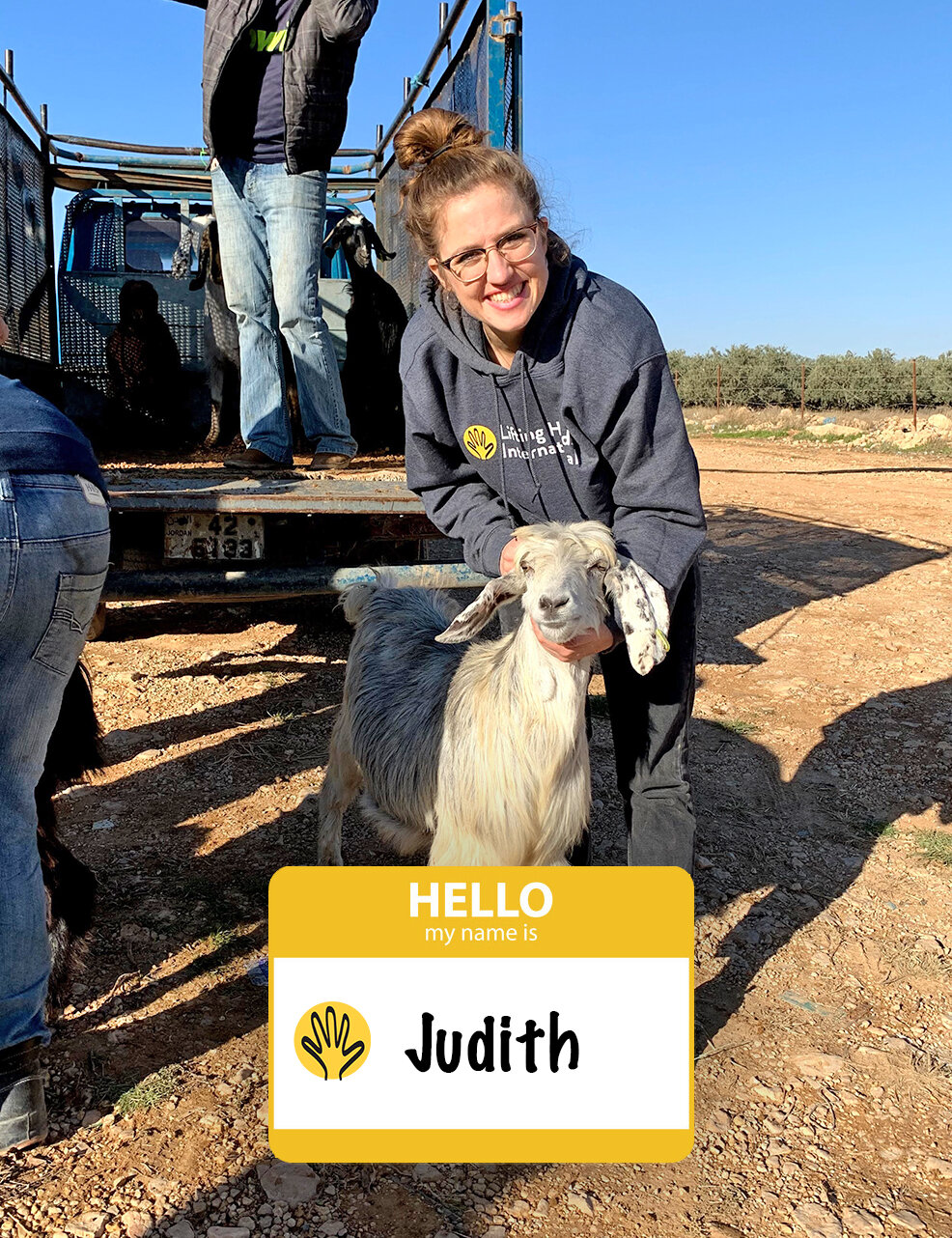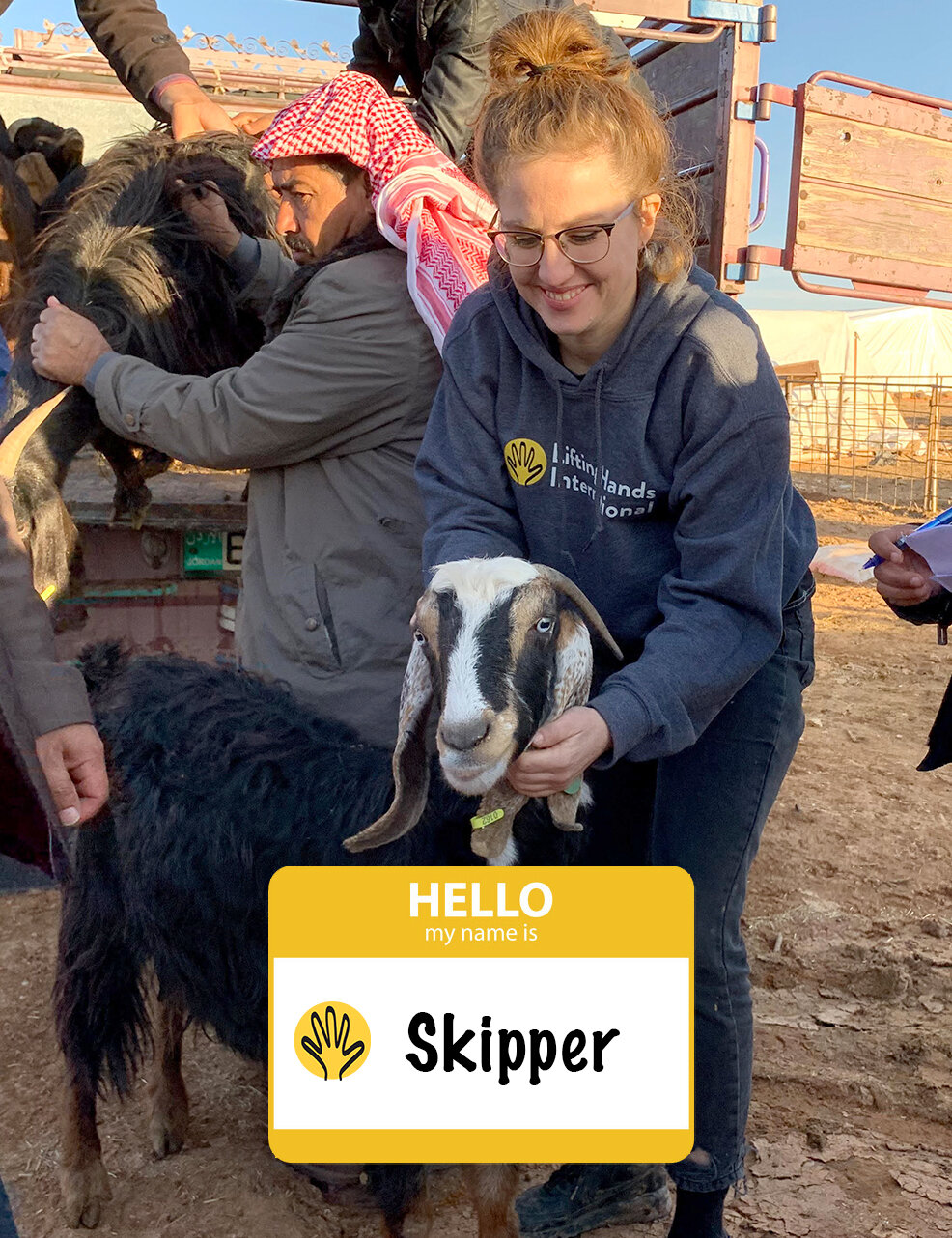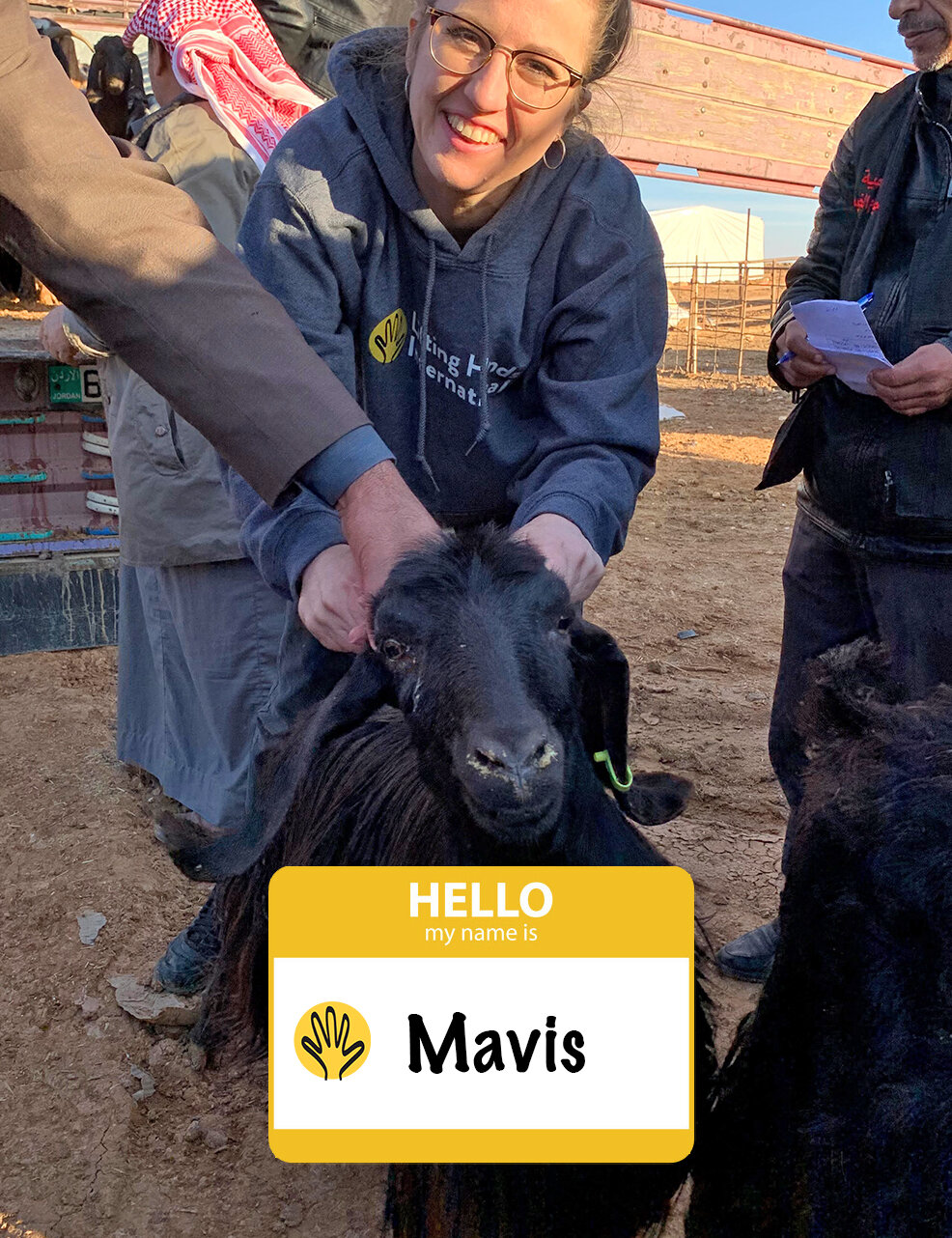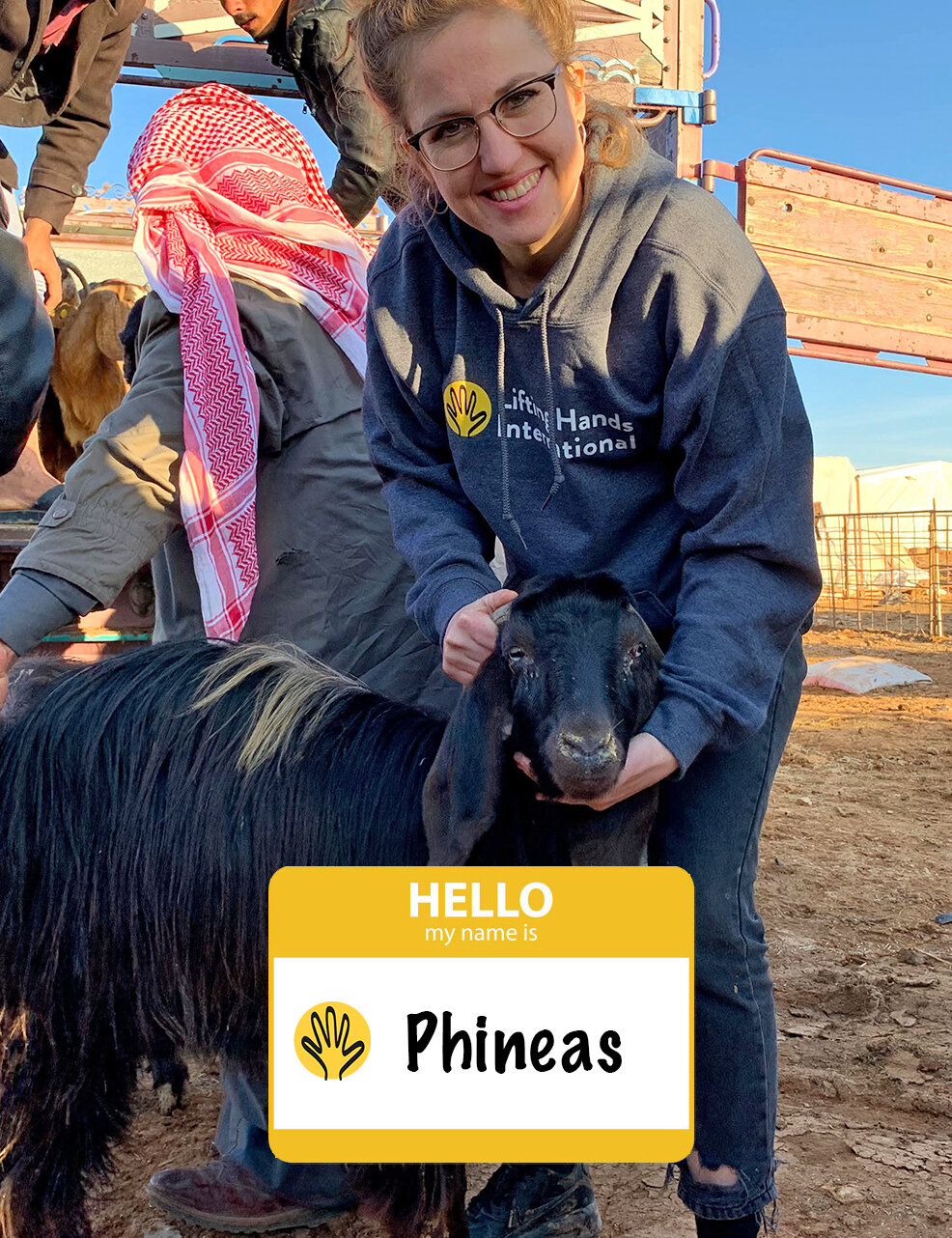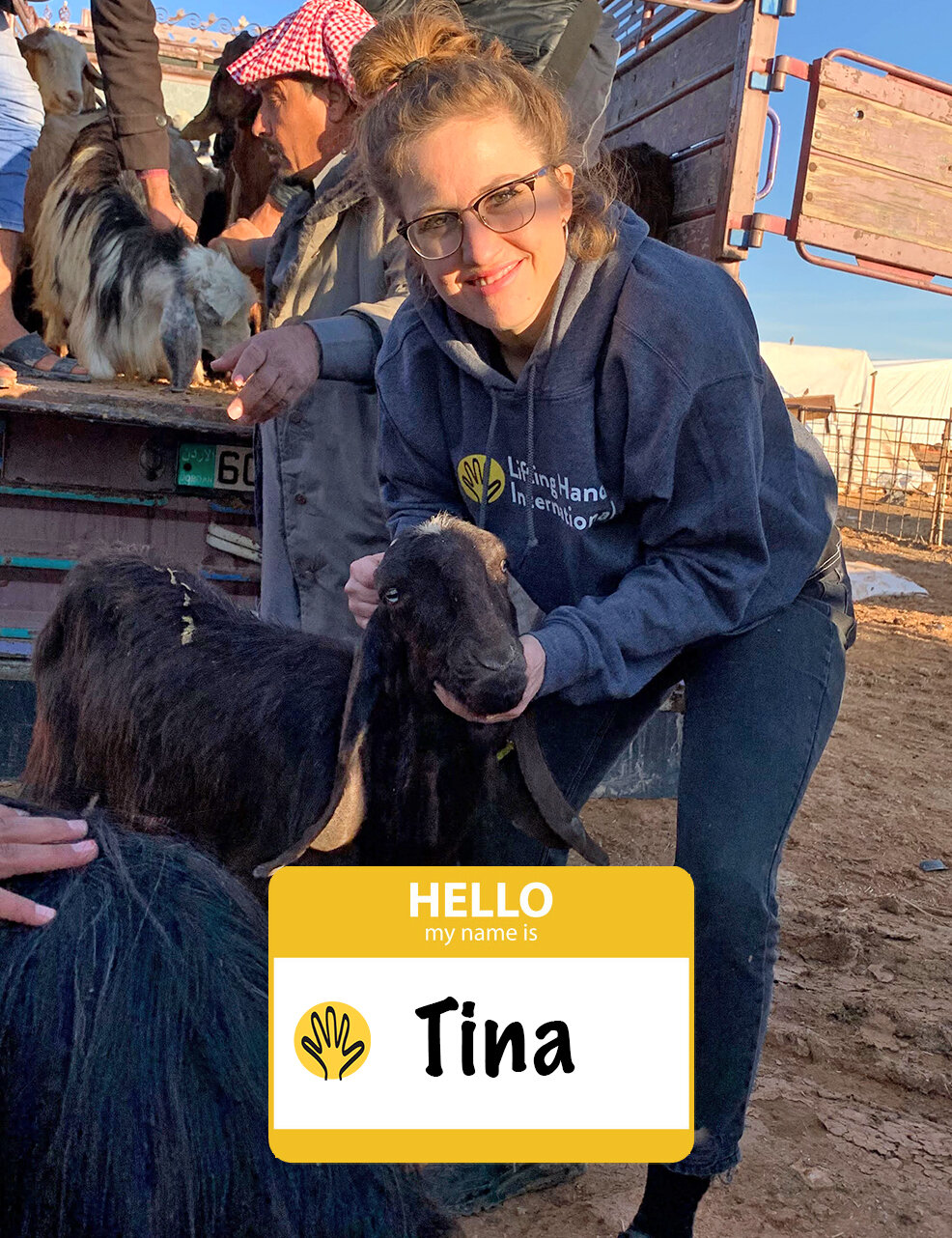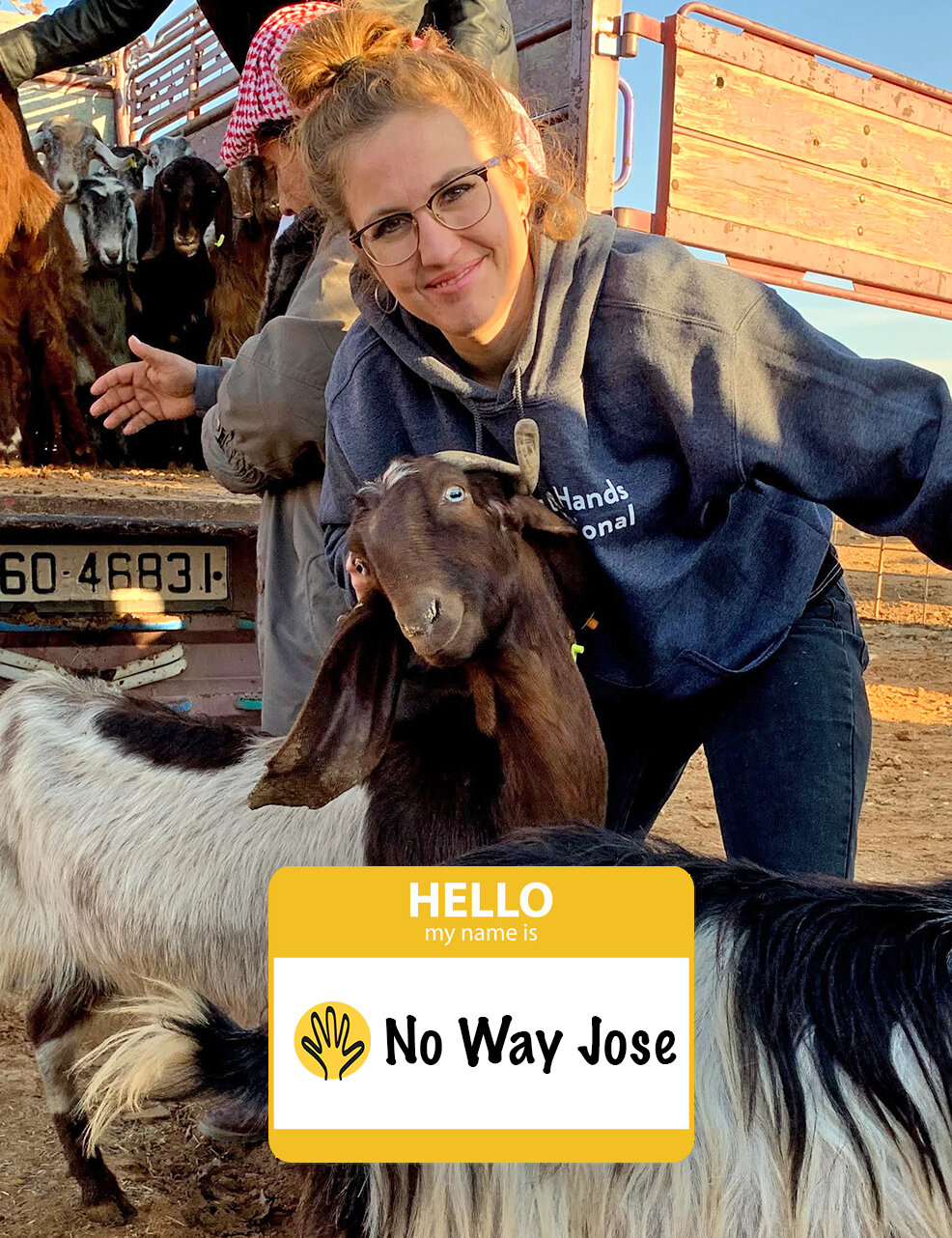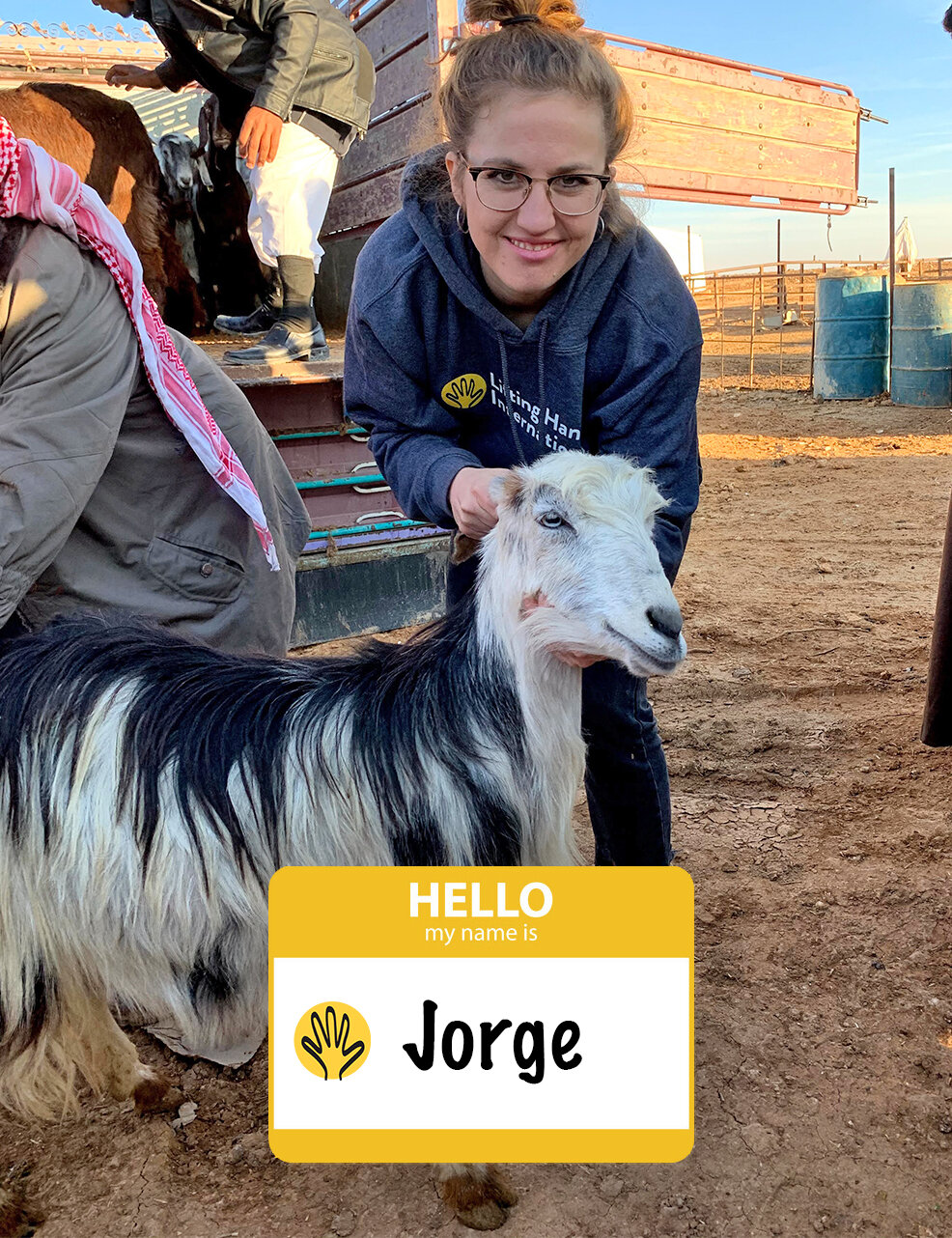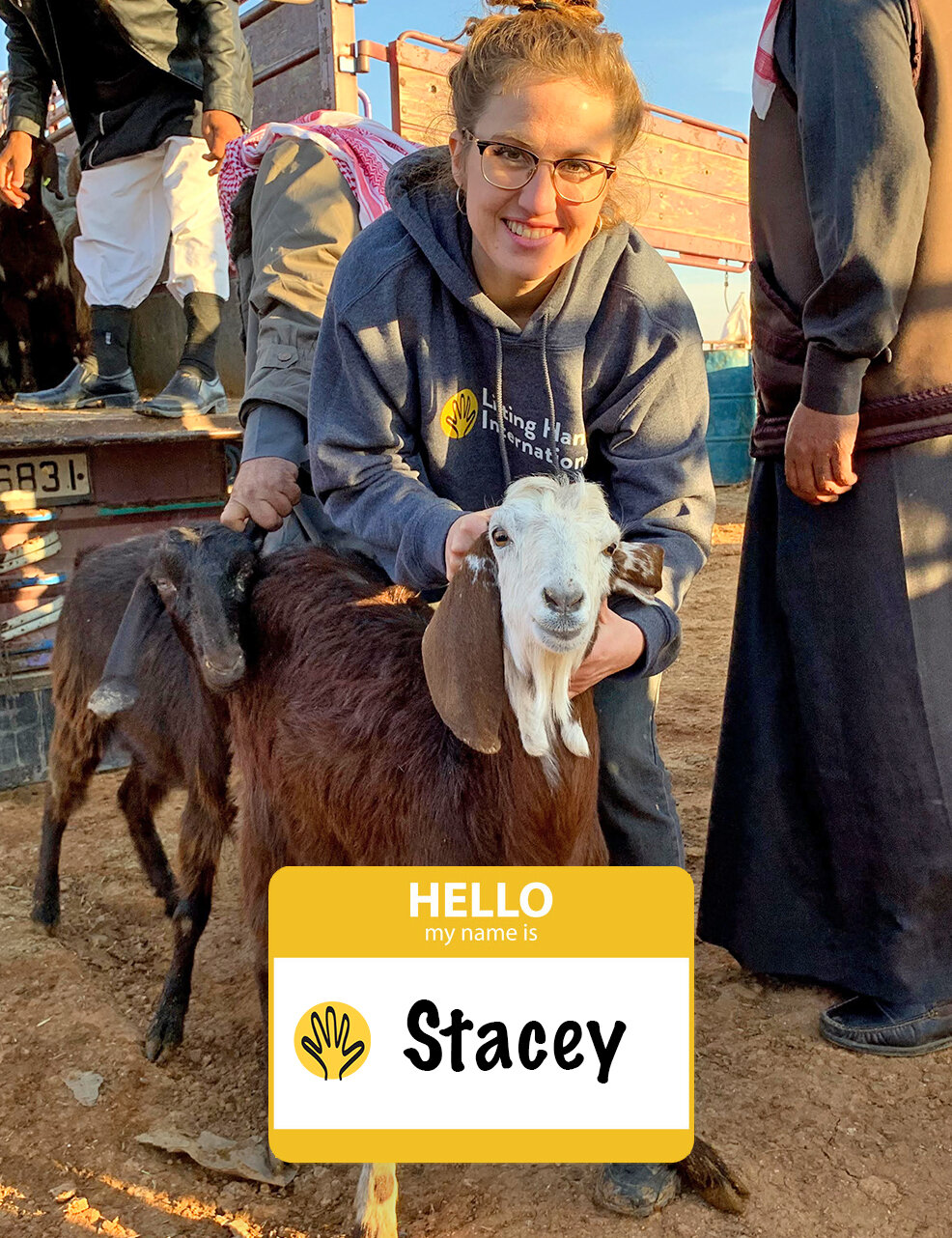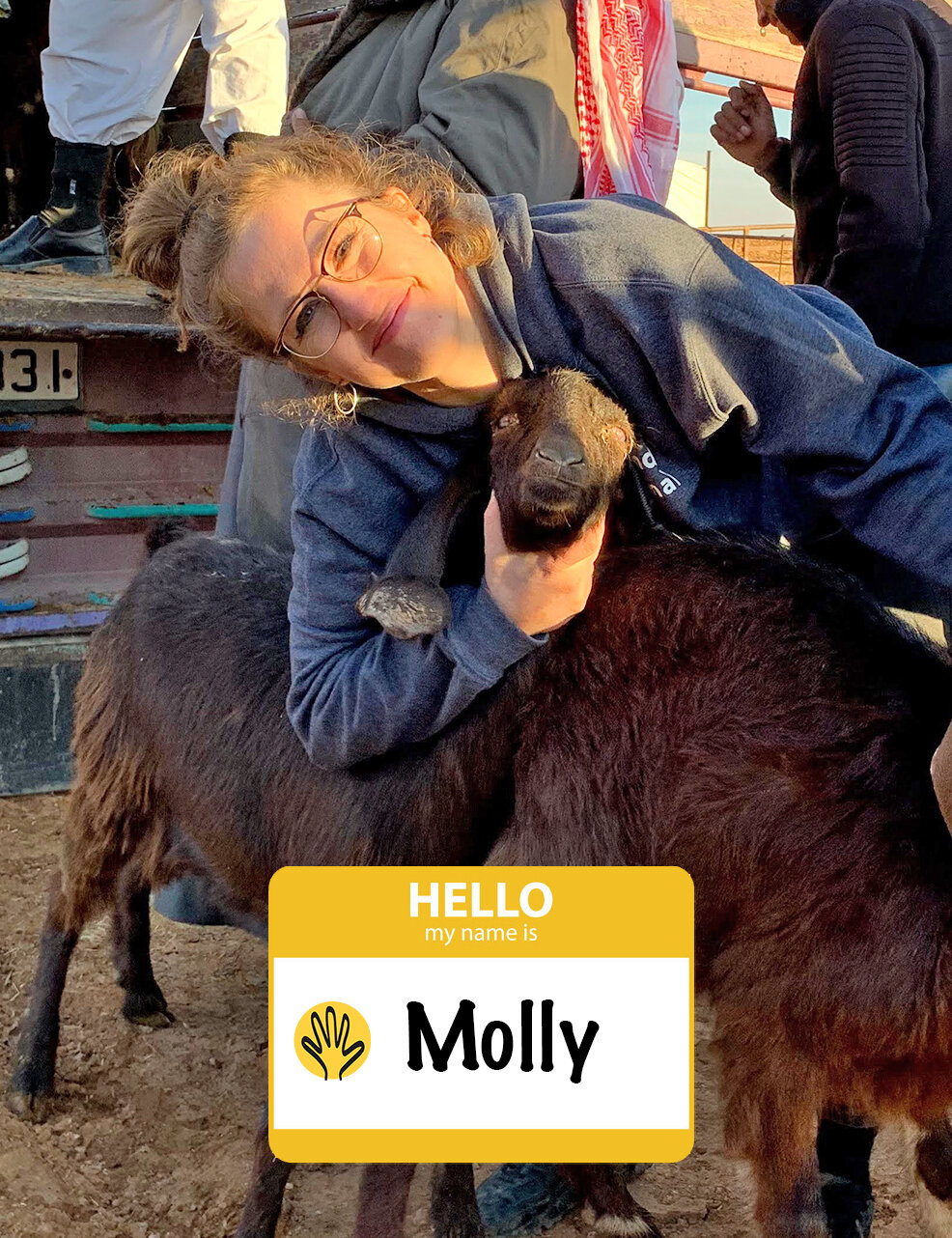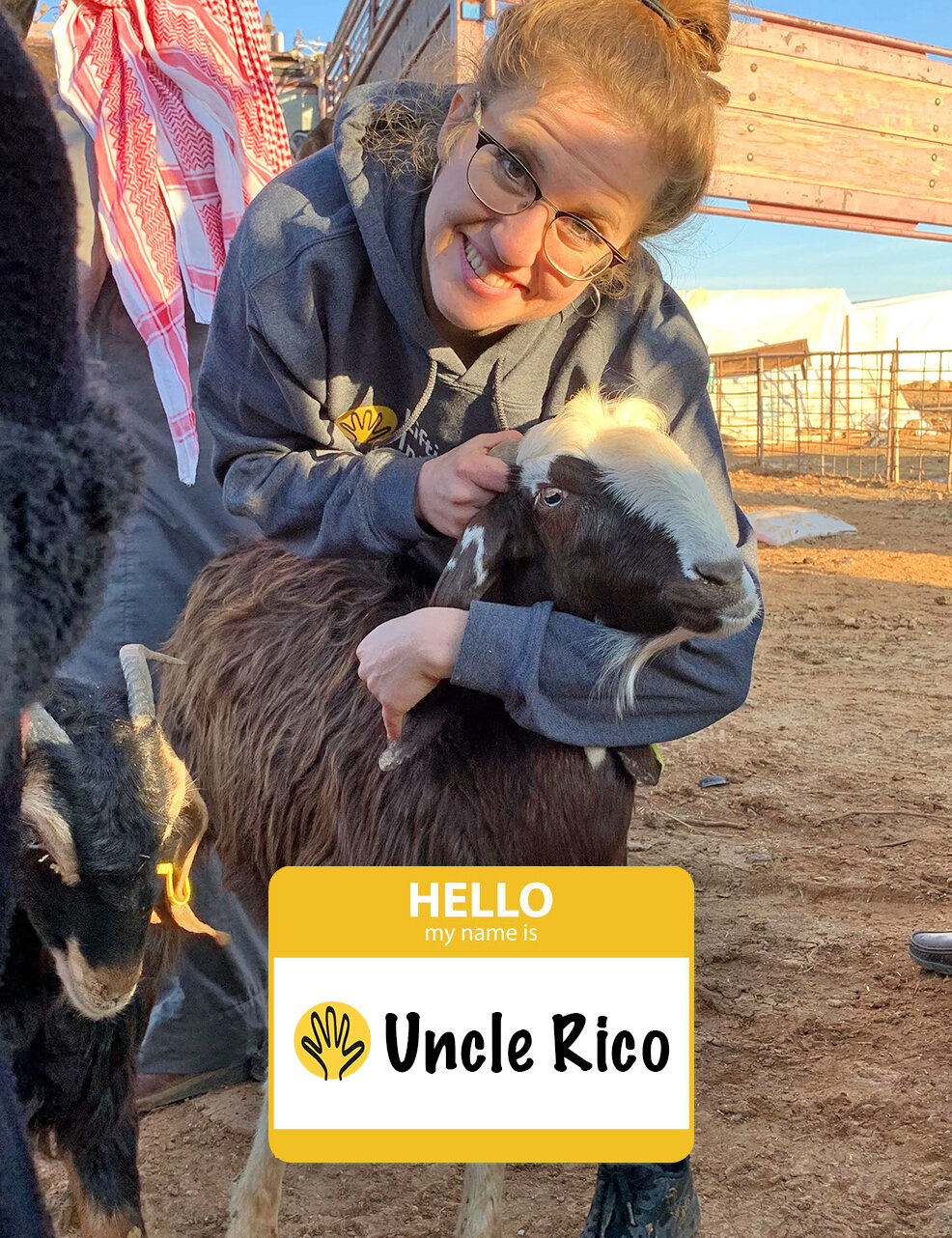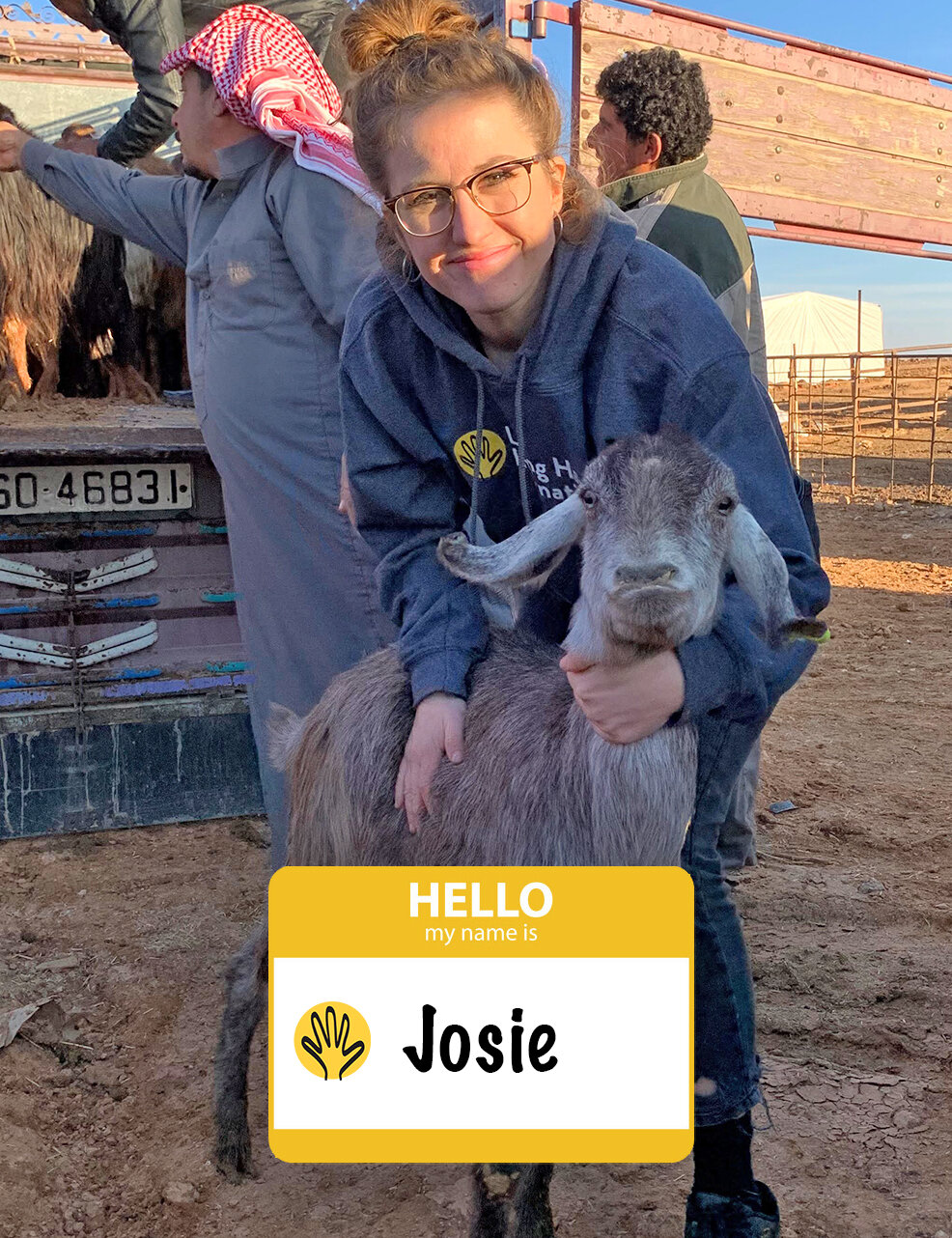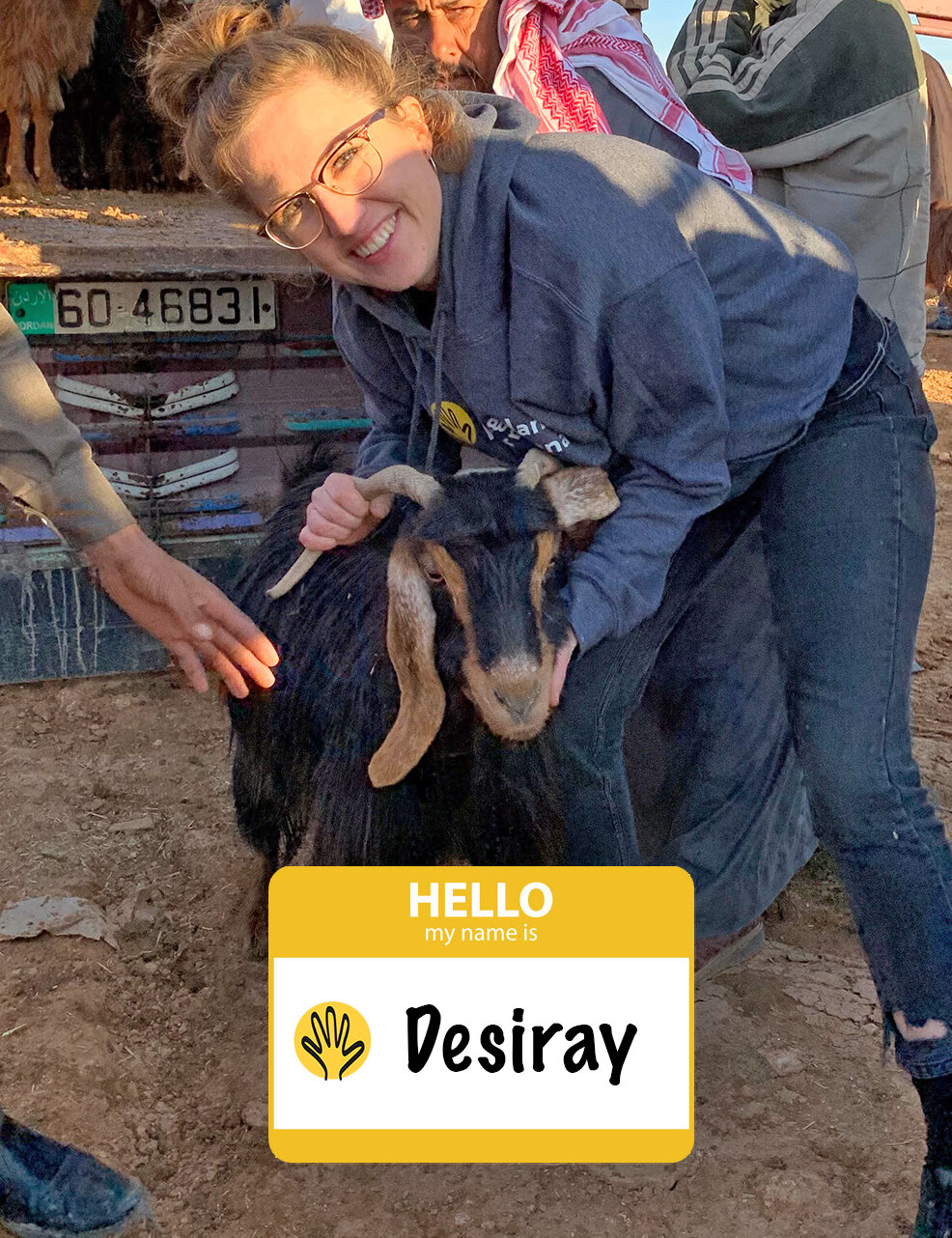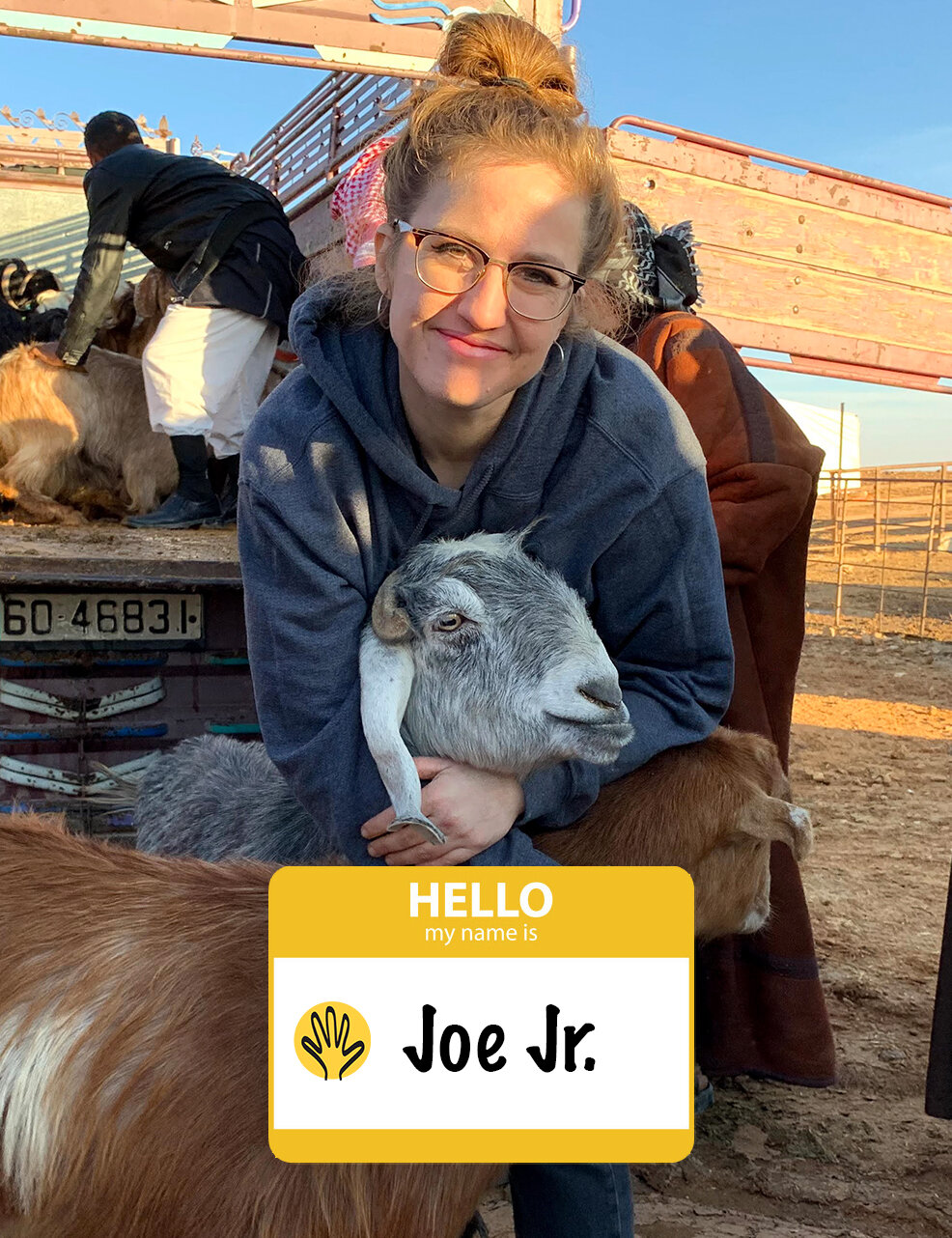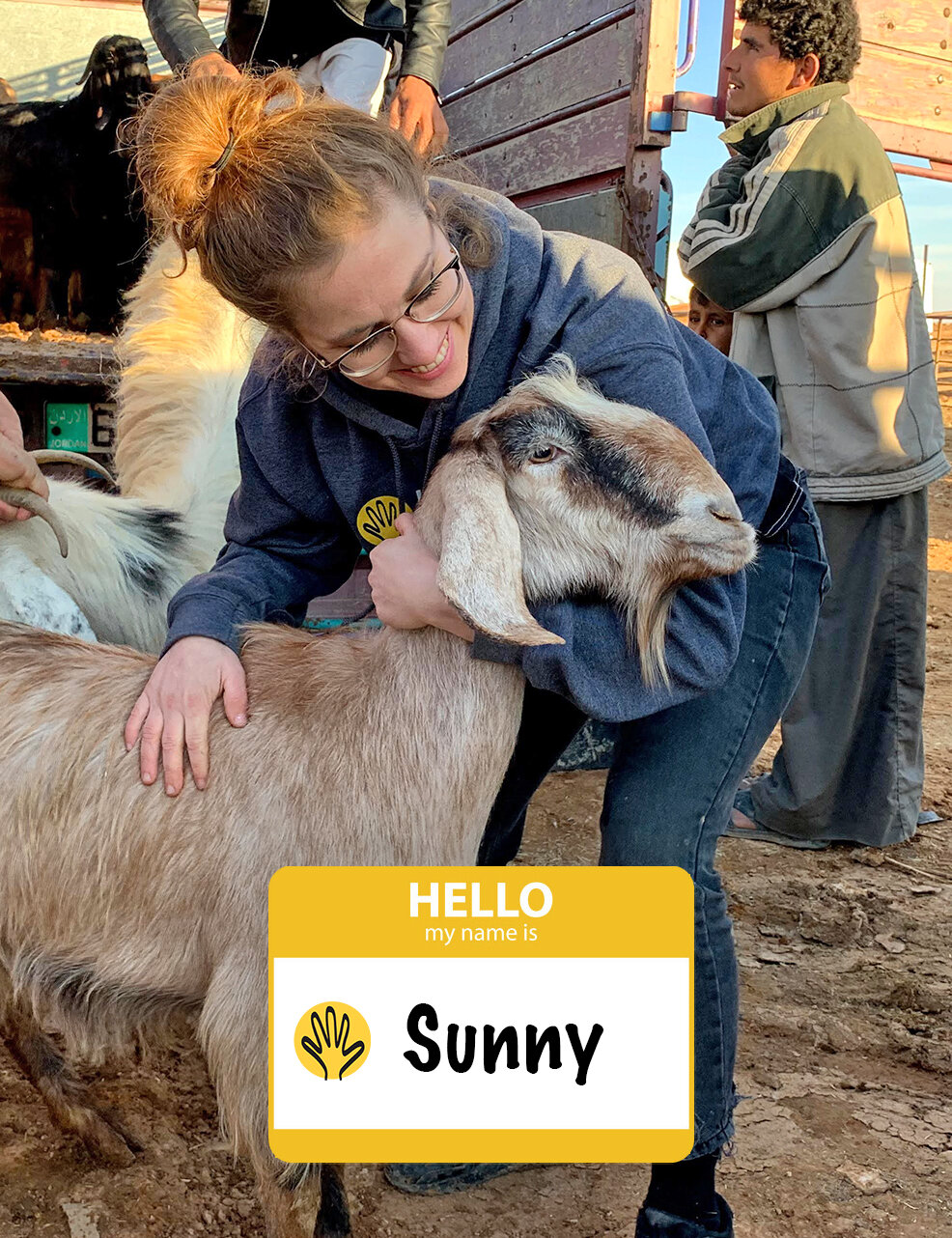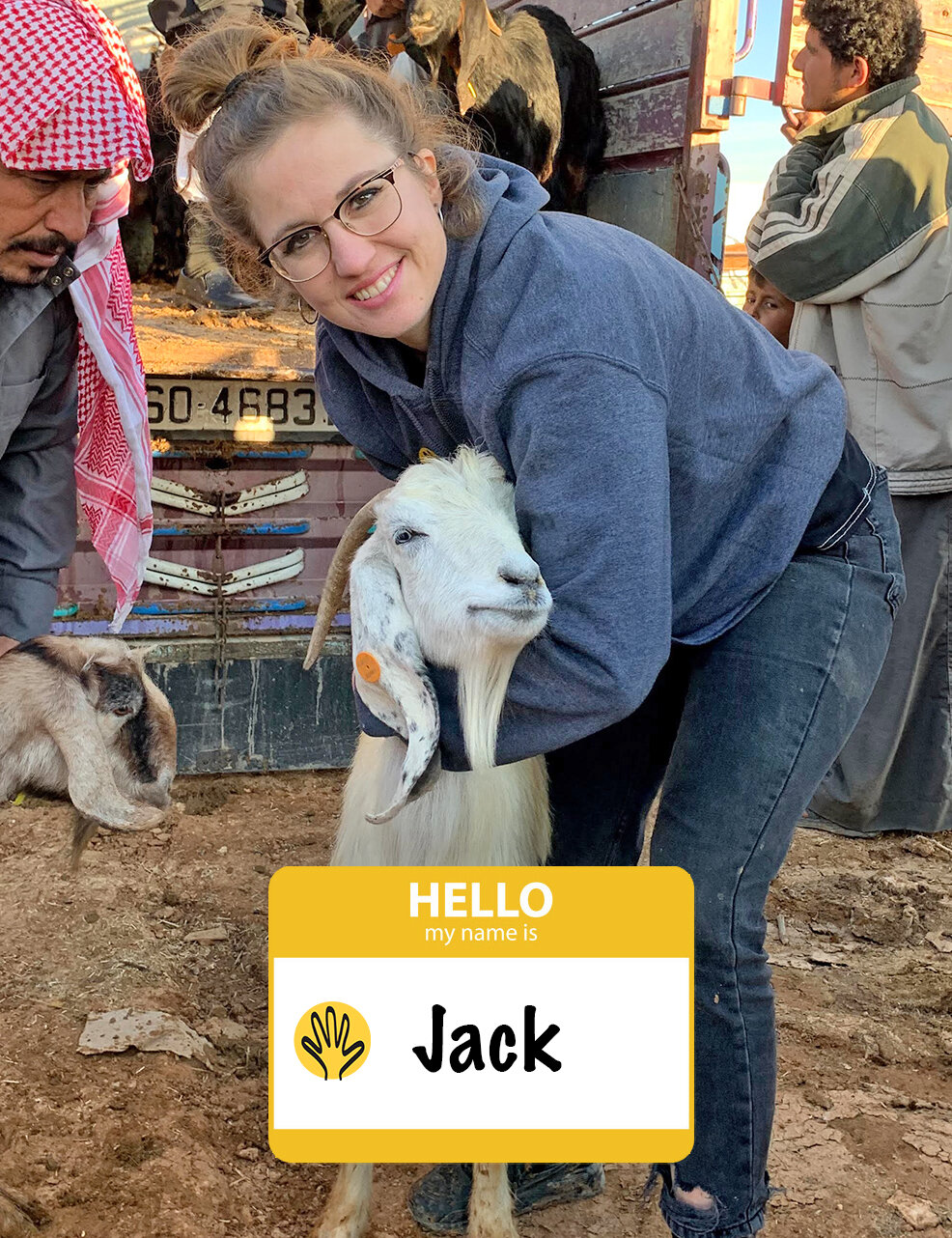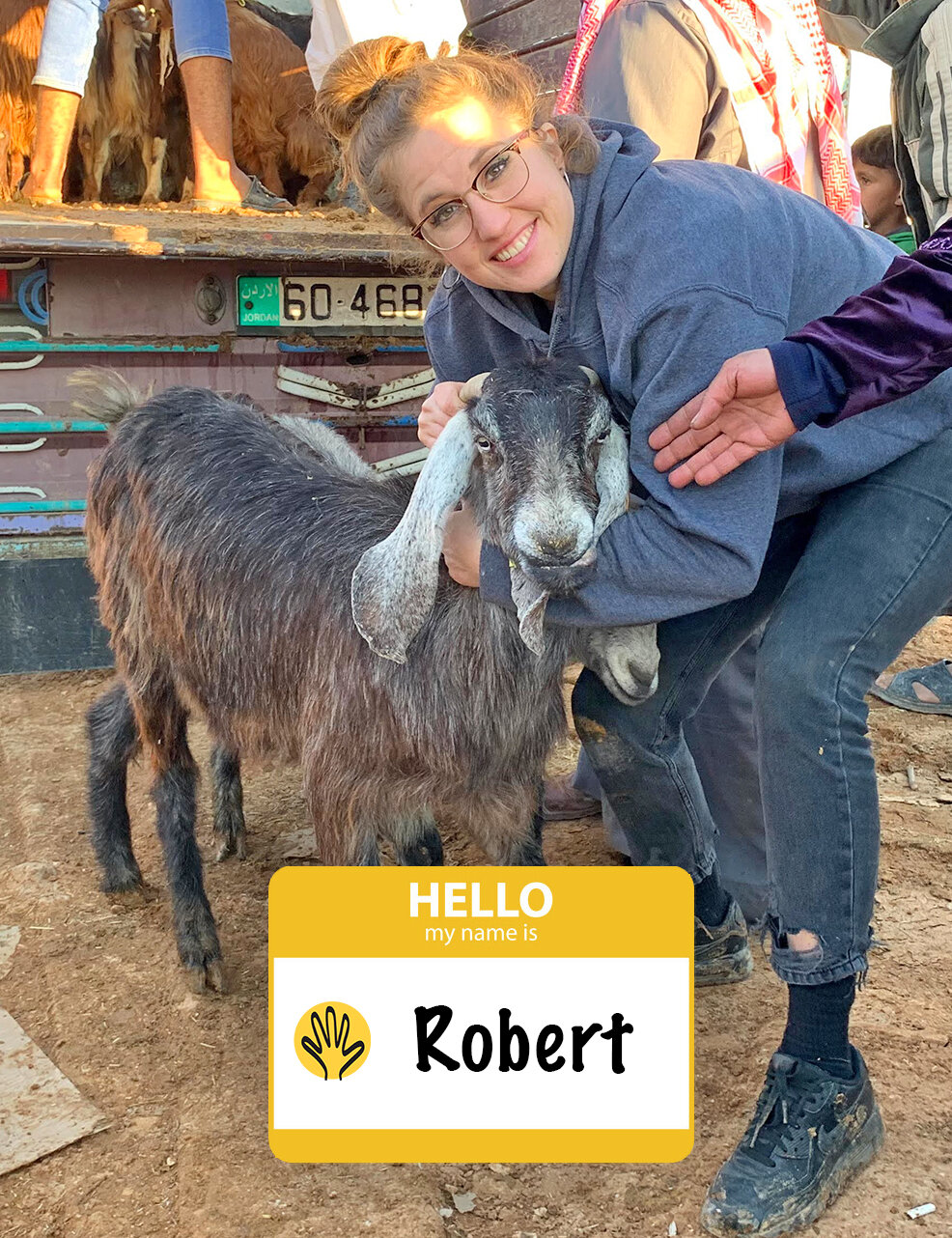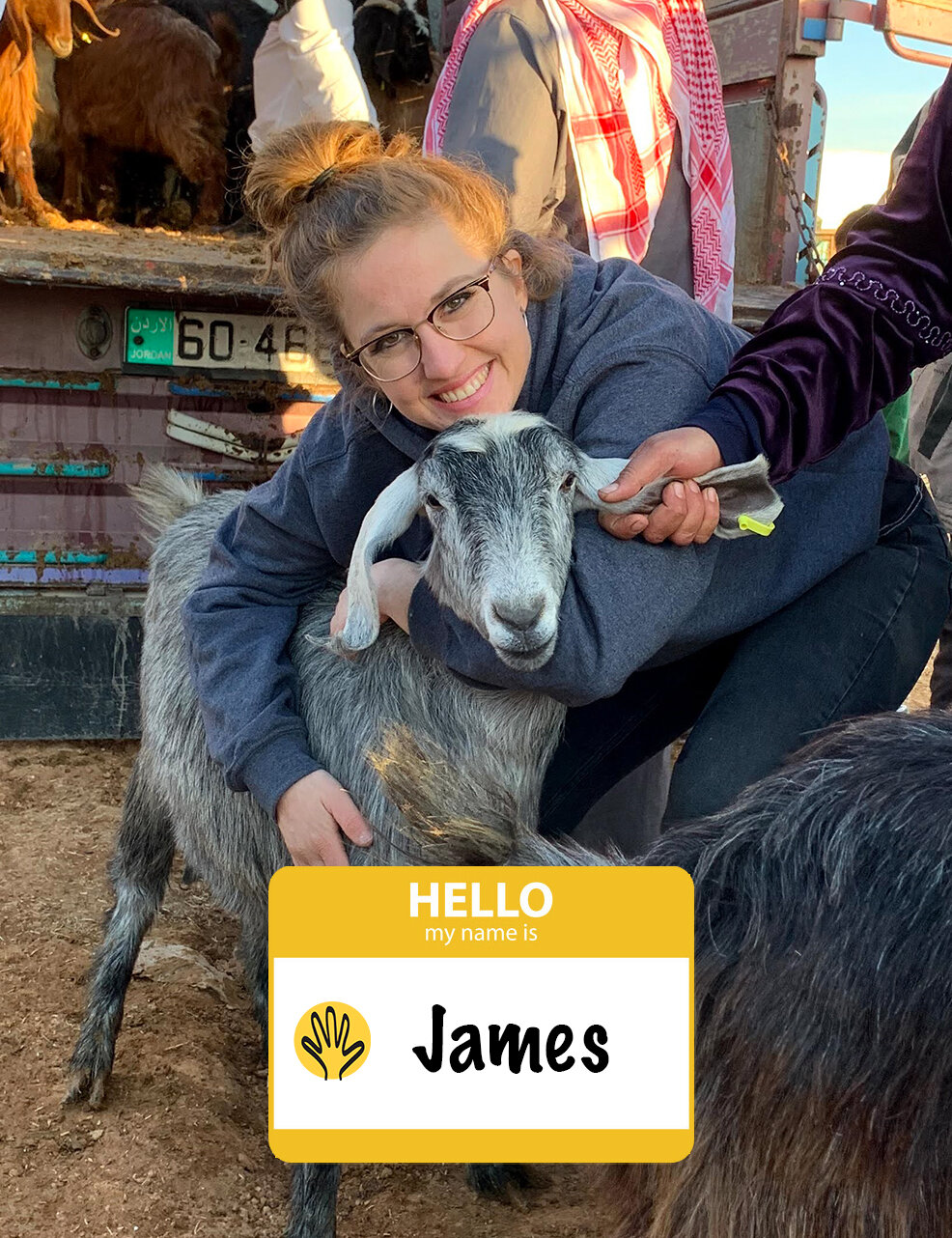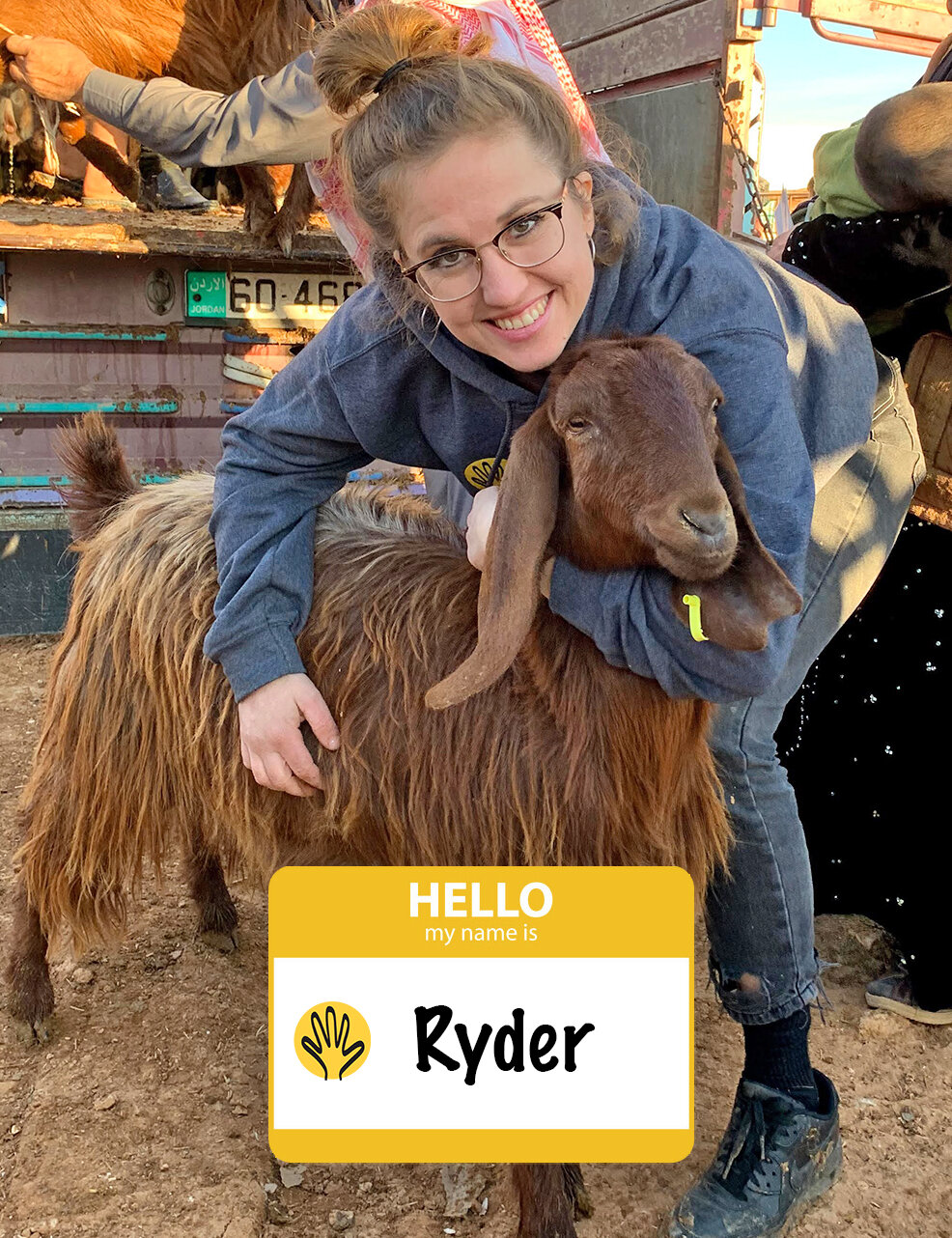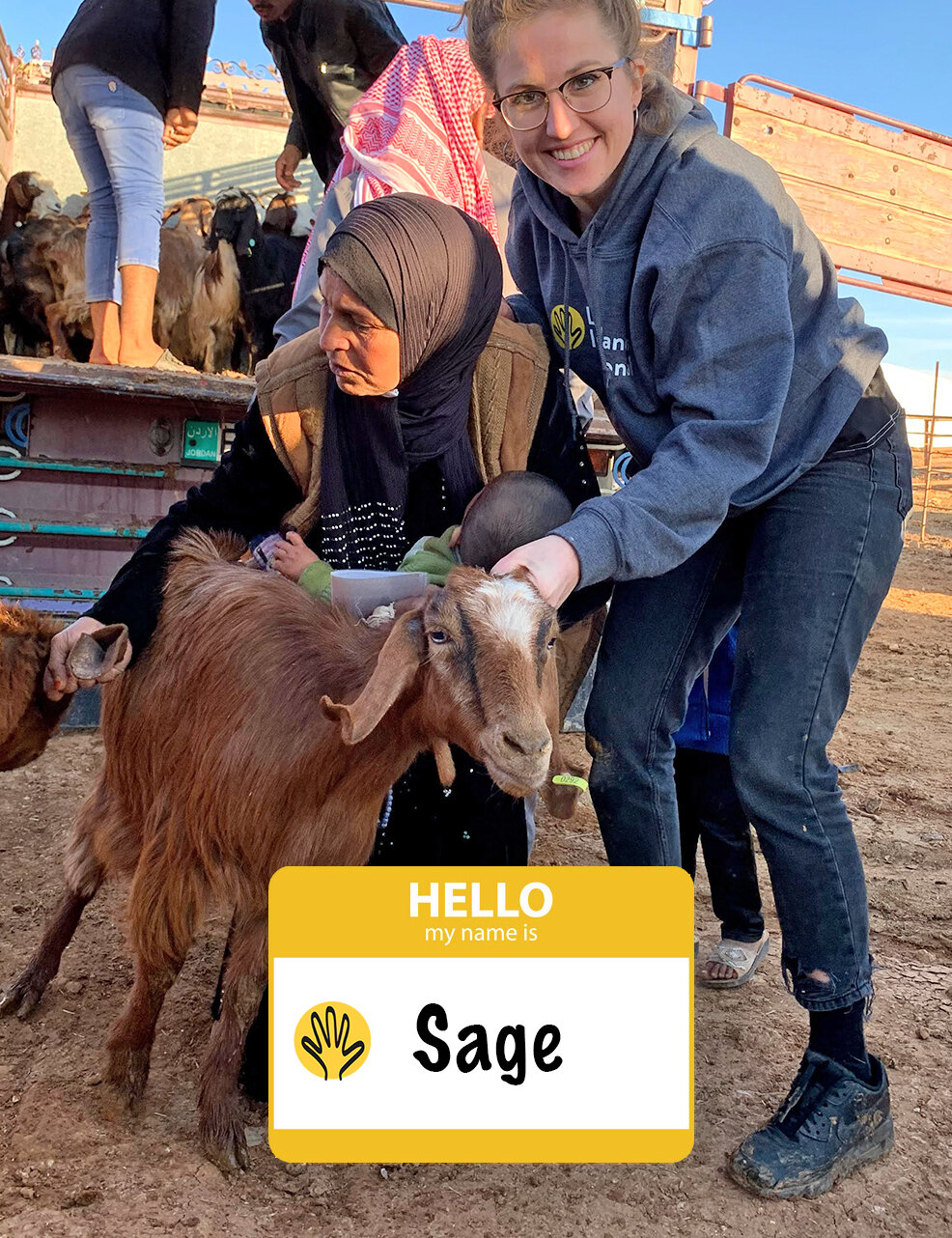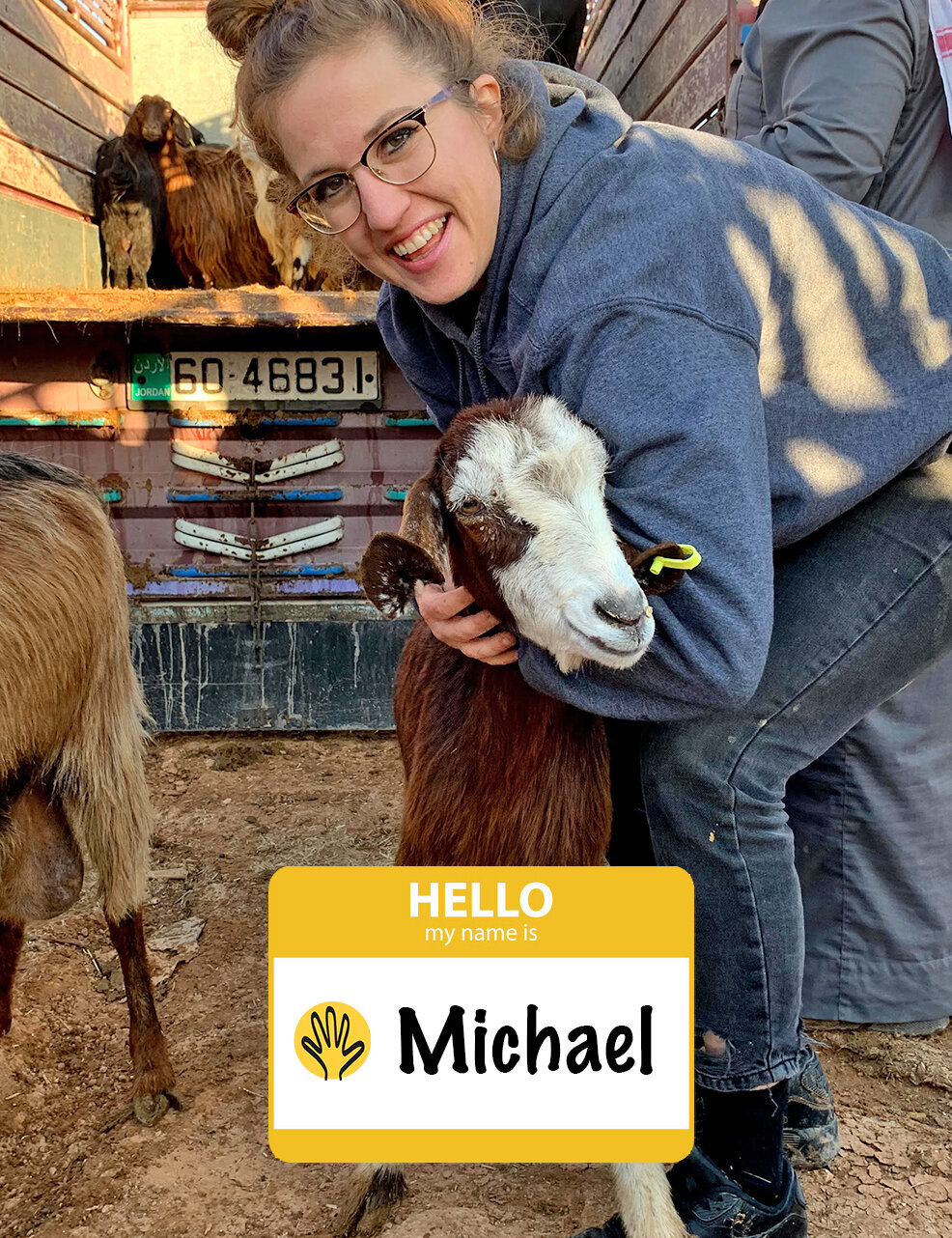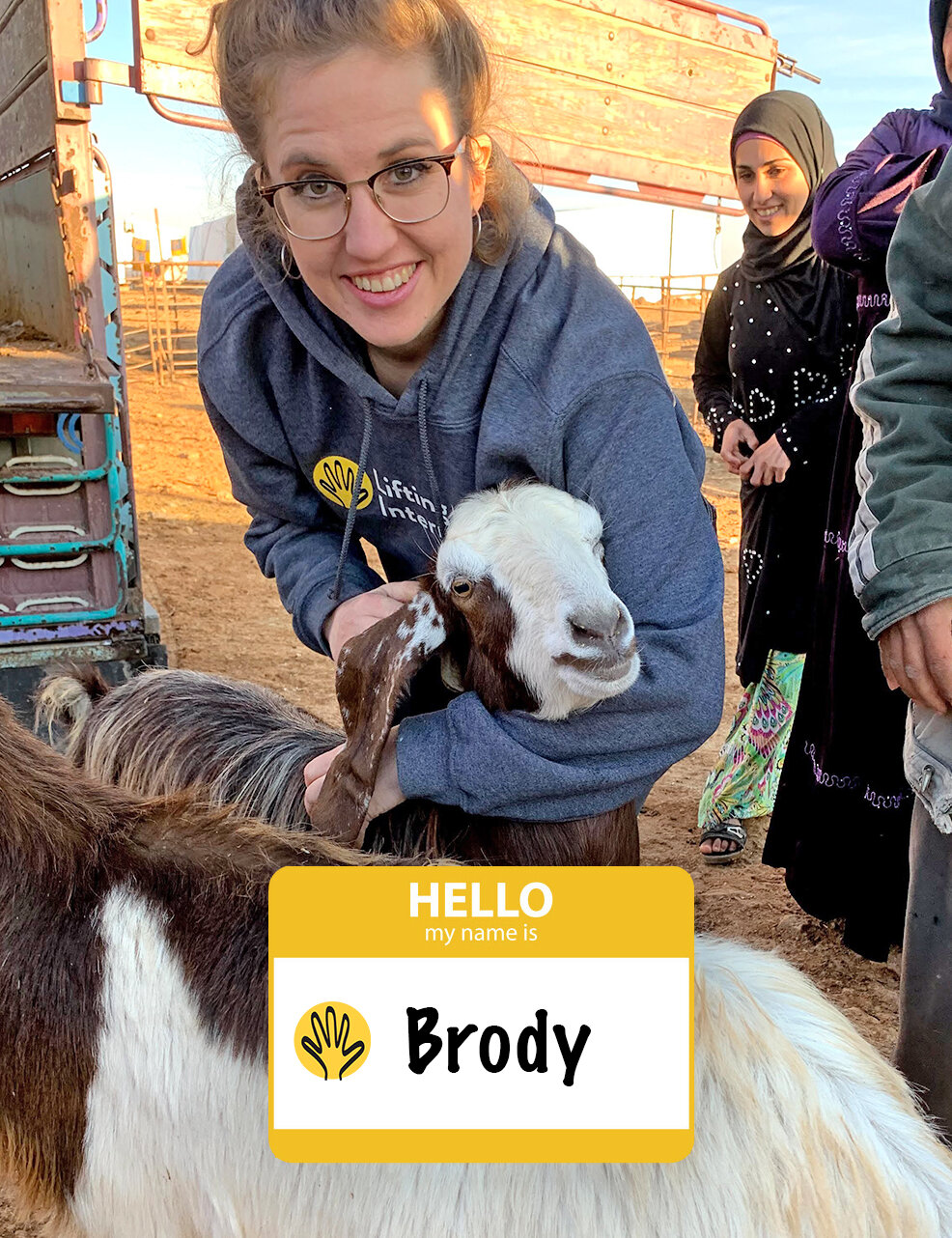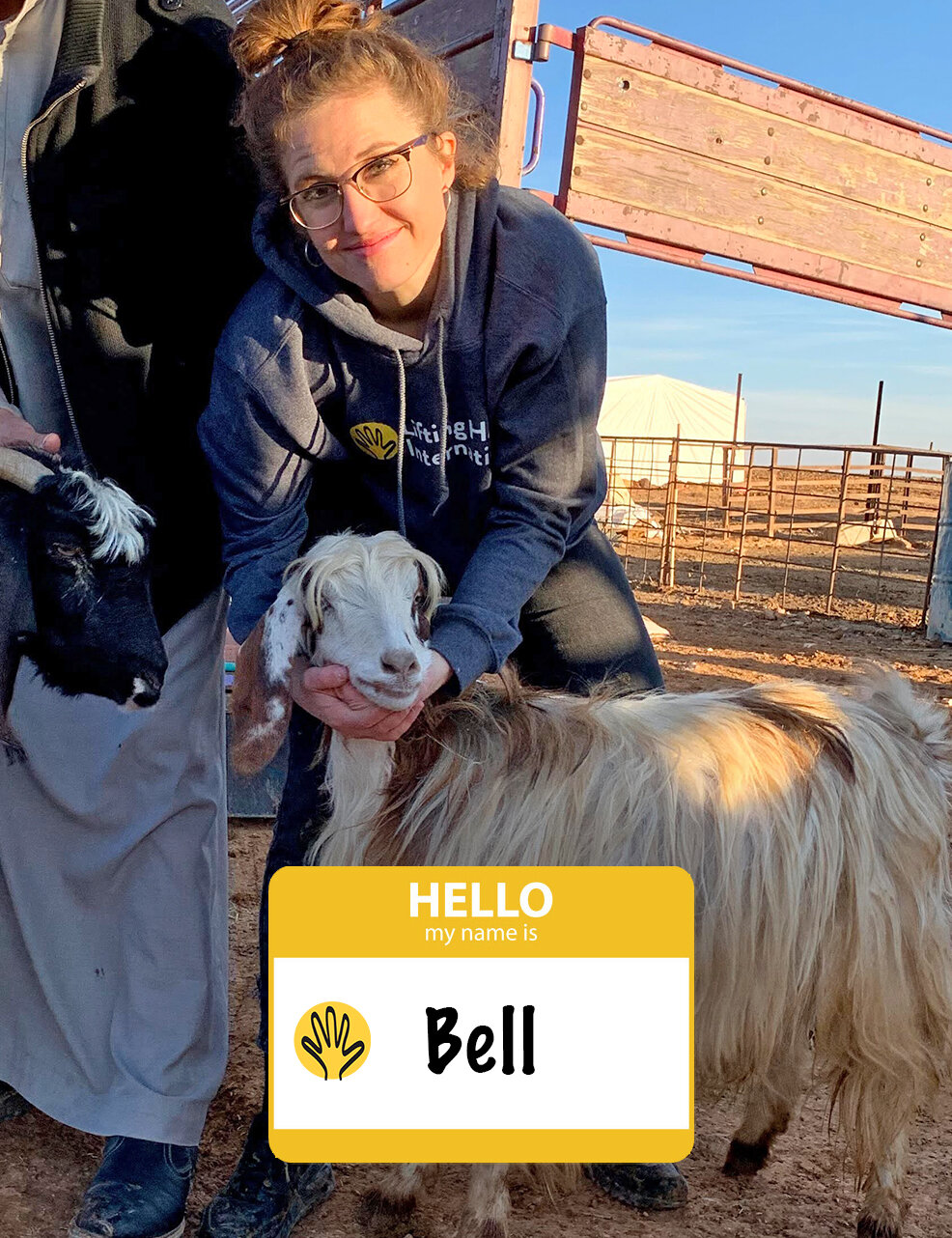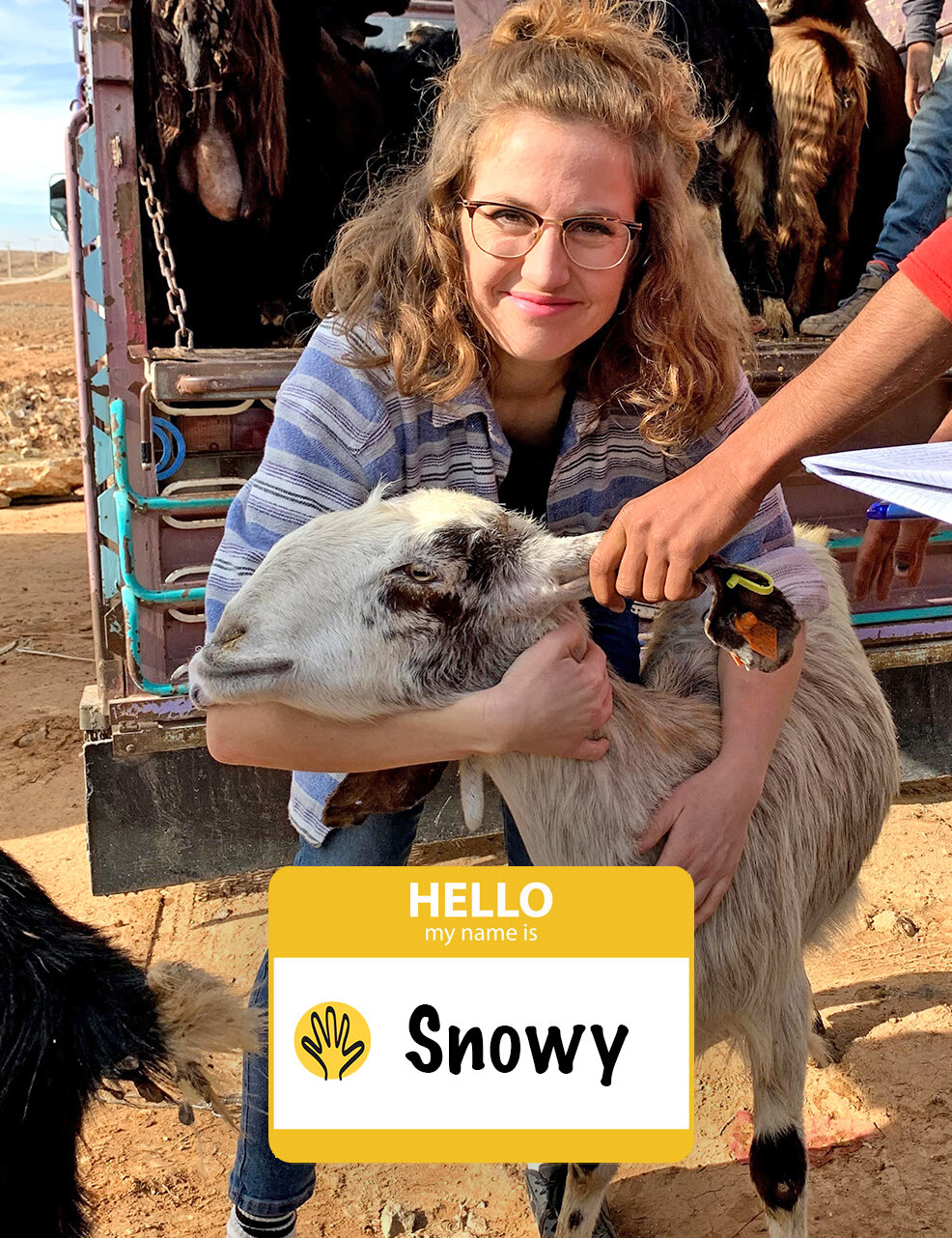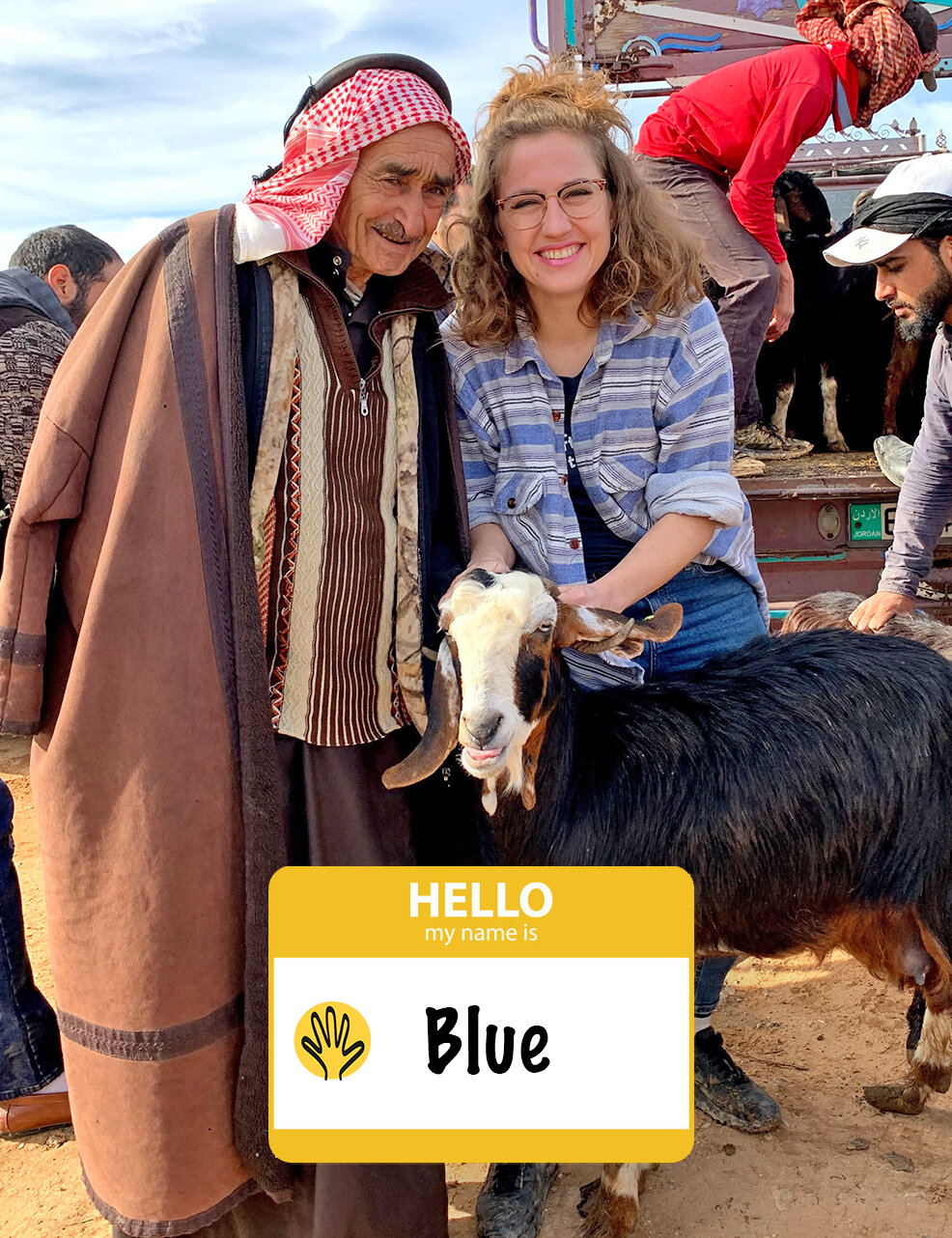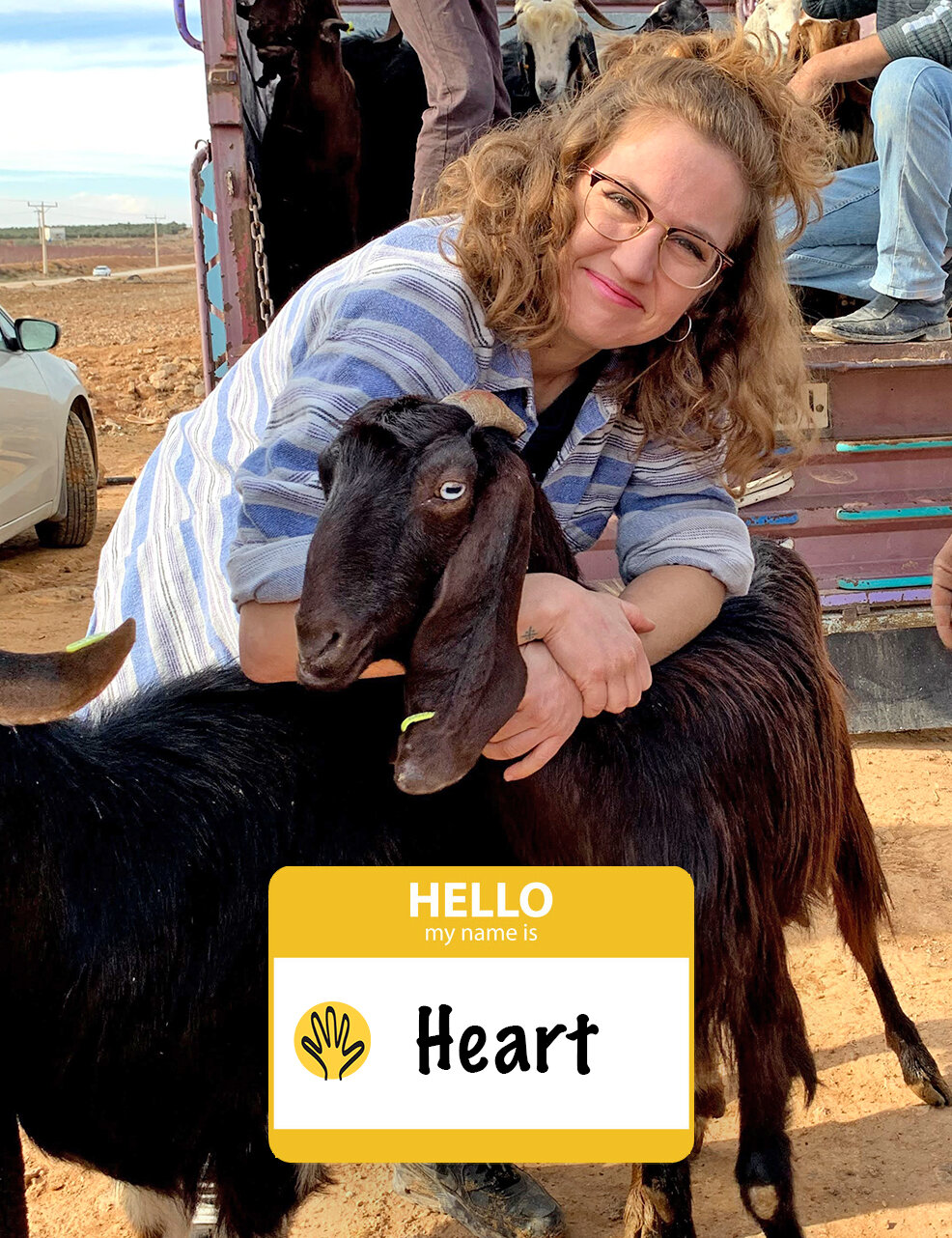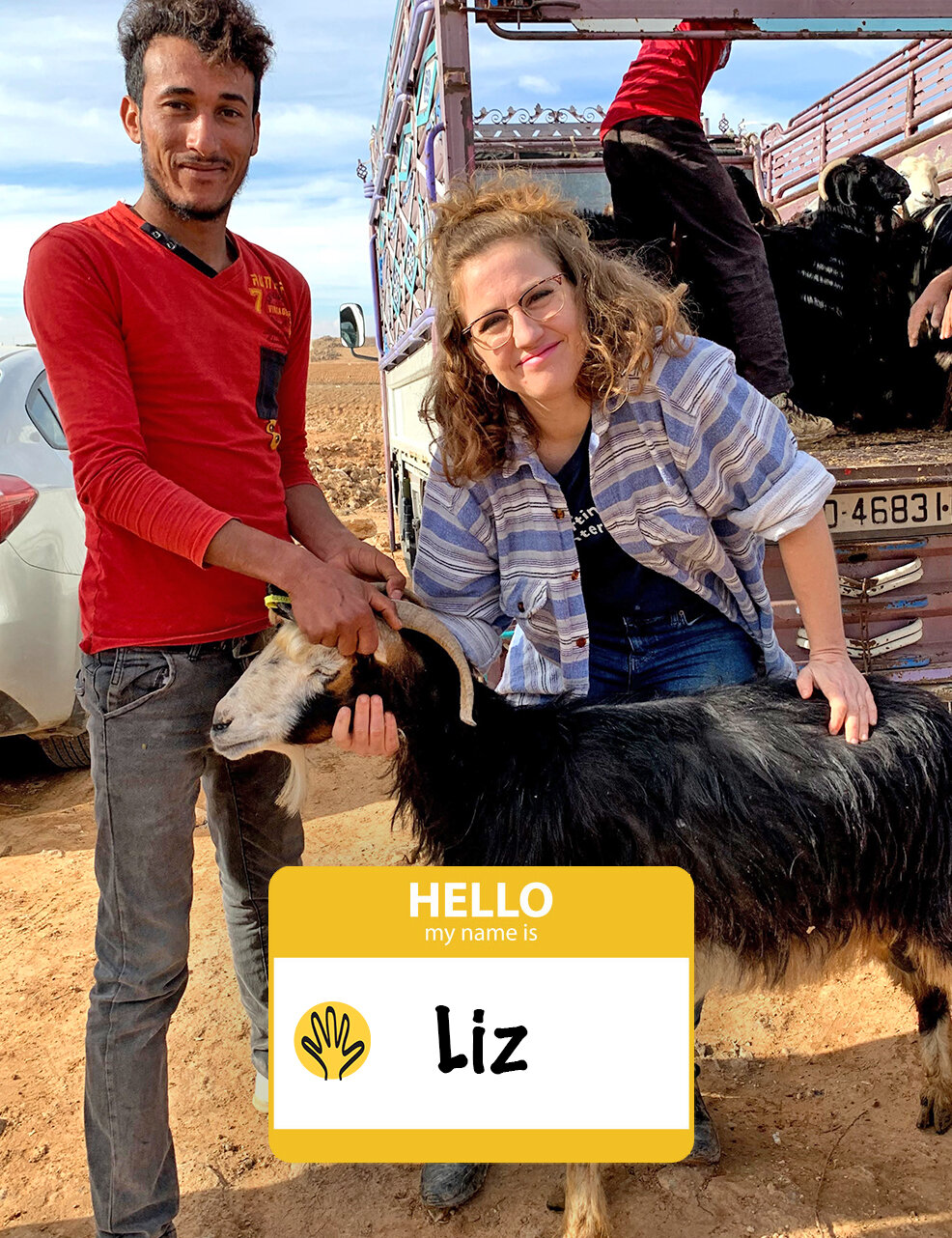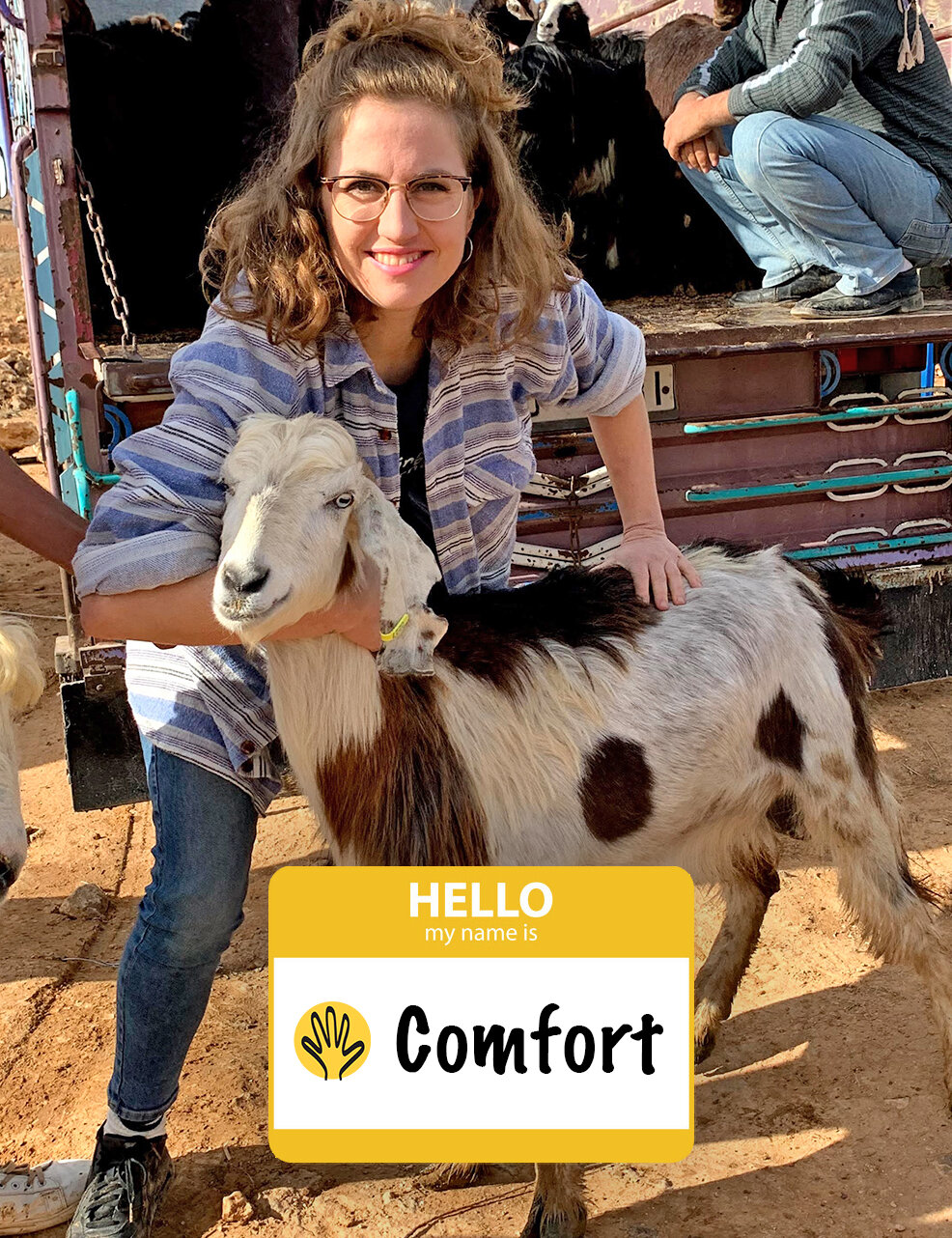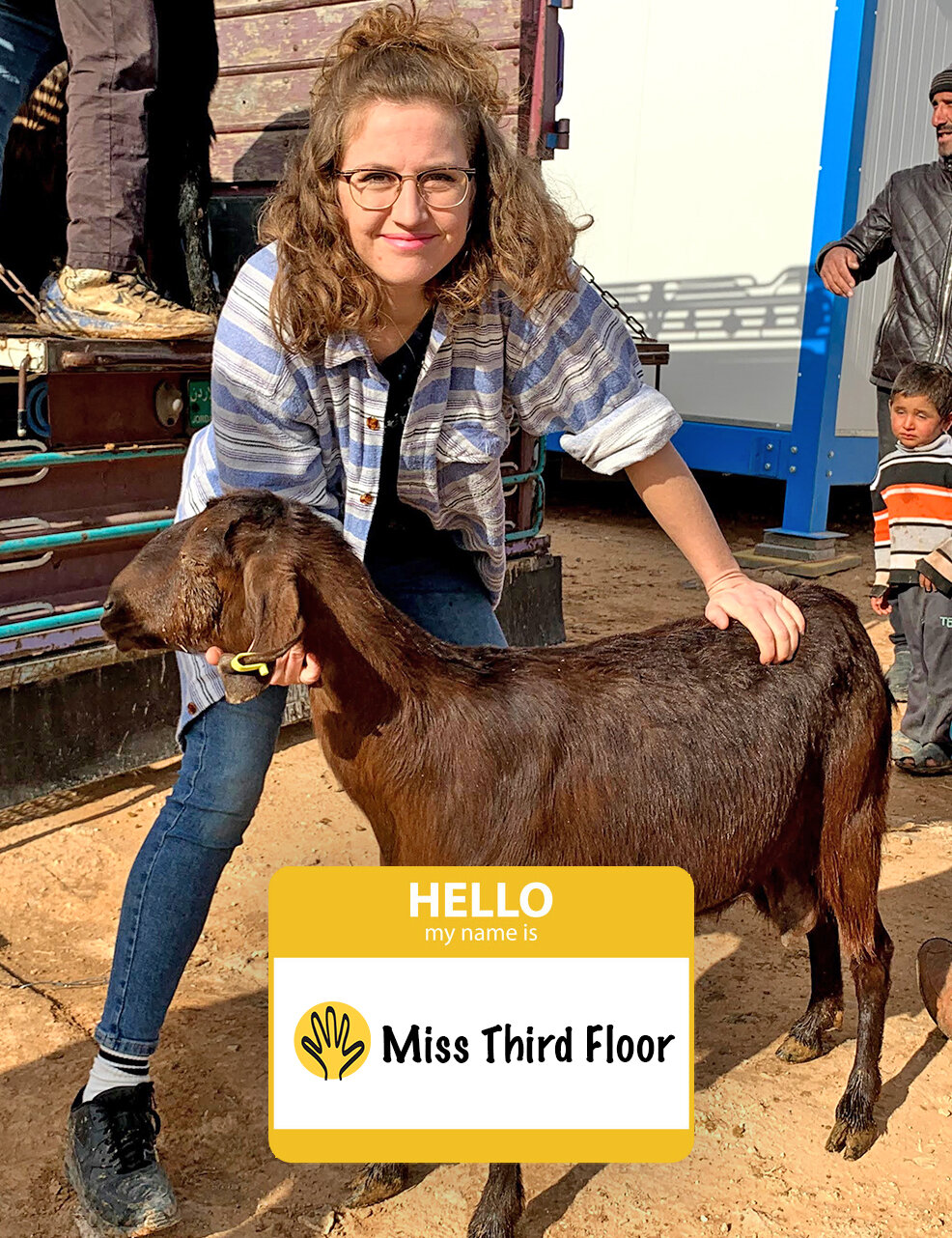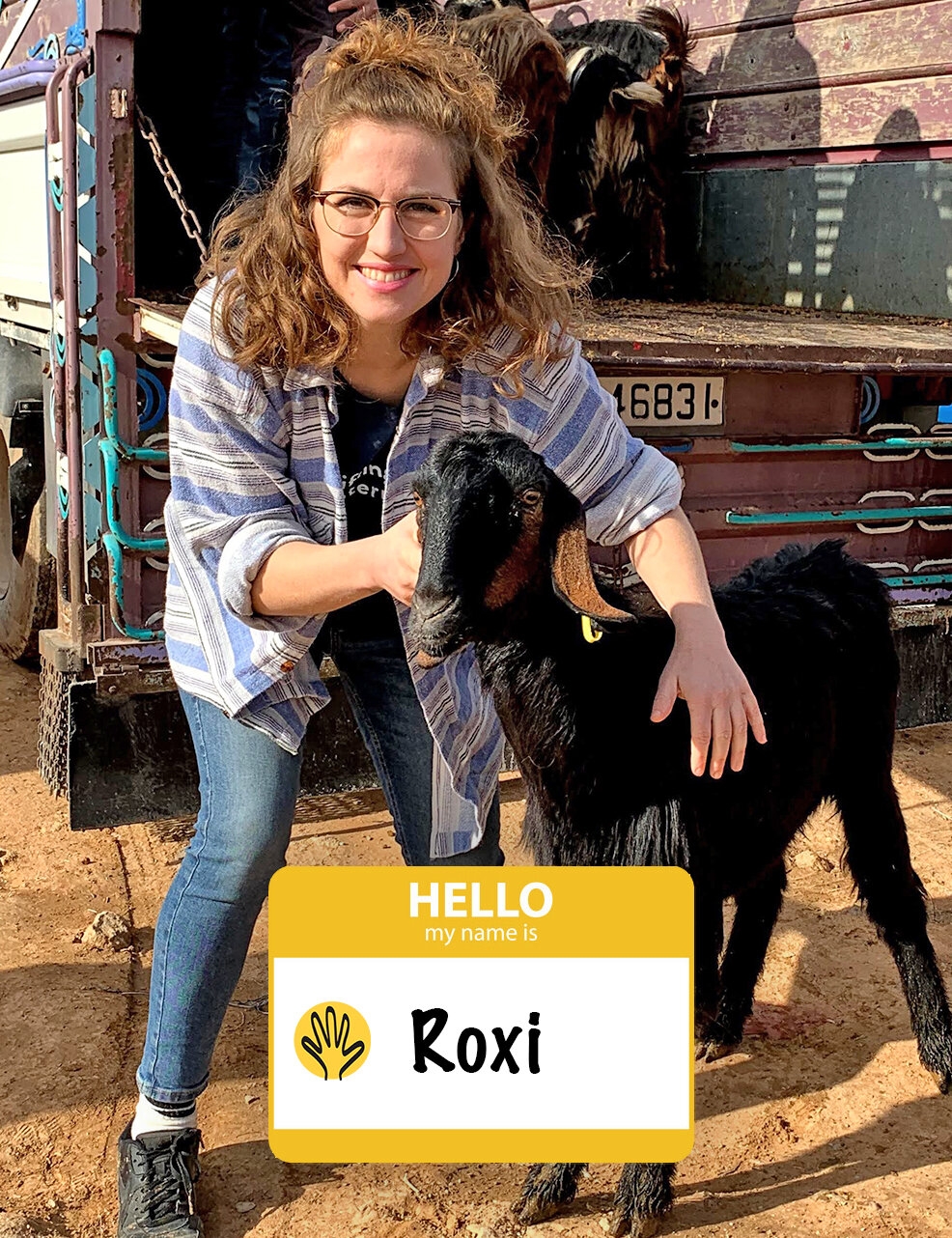During the first week of January, Hayley Smith (LHI Founder/Director) and Walker Frahm (LHI Chief Operations Officer) traveled to Al Mafraq, Jordan, to distribute the first round of goats in 2020 to Syrian refugee families living in the desert. During this trip, 216 goats were distributed to 108 grateful families.
How many LHI staff members does it take to distribute 216 goats to Syrian refugee families in Jordan? Two! Along with a translator, a goat expert, and a few friends…
Hayley Smith (LHI Founder/Director) prepares to distribute goats to Syrian refugee families!
In theory, it sounds straightforward. Raise money (thank you to all of our amazing supporters!), use it to buy milk goats in Jordan, and give them to Syrian refugee families. But what does it really take to get healthy goats to families with the greatest need? Read on to find out!
In 2017, while distributing aid supplies to refugees living near the town of Al Mafraq in Jordan (very near the Syrian border), Hayley asked what their greatest needs really were, in addition to the supplies they had already received. They shared that they were very, very thankful for the aid supplies. But if there was one thing that would really help their day-to-day situation, it would be… Goats!
Back in Syria, the families had large herds of goats. Tens, sometimes even hundreds of goats. In fact, they had been herding goats for generations. Being a goat farmer was a respected profession in Syria before the war. Goats provide a much-needed source of protein, which is hard to come by in the desert. Having goats again would set them up with a sustainable source of milk for several years. And by selling or raising baby goats, they could generate income to help get them back on their feet again.
The request made a lot of sense, so Hayley set out to find a way to make it work. She consulted a professor of agriculture from the University of Jordan in Amman to determine what breed of goat would best meet the need. He suggested Shami goats, a breed that produces milk 10 months out of the year and is well-adapted to living in the desert. Perfect!
Rashid is the director of Jabal Zamzam, a charity based in Al Mafraq, Jordan, that works with vulnerable populations, including local Syrian refugees.
In order to identify families in need and help find a reliable, local source for goats, Hayley partnered with Jabal Zamzam, a charity based in Al Mafraq whose mission is to help marginalized, vulnerable, and powerless groups in the local community, including refugees.
Working with Rashid, the director of Jabal Zamzam, they identified a local goat supplier that could provide healthy, young, Shami goats. Rashid then helped locate families living in local refugee camps who would benefit most from the gift of goats, such as those with young children and elderly family members. After the goats are distributed, he would also check in with each family periodically to get reports of baby goats being born and to help arrange for veterinary care, as needed.
Walker Frahm (LHI Chief Operations Offer) coordinates logistics associated with our goat distribution program, including managing operations on the ground.
Now it was time for Walker Frahm to jump in. Walker is LHI’s chief operating officer, and he is responsible for all the logistical plans including buying the goats, arranging for the goat breeder to deliver the goats to refugee camps, and overseeing distribution to the families identified by Jabal Zamam.
Walker wanted to be certain that the goats LHI buys are healthy, young, and will provide a good supply of milk for the families. So he enlisted the help of Mohammed, a goat expert with training from the University of Jordan. Mohammed inspects each goat prior to distribution, and only the youngest, healthiest goats pass his examination.
Mohammed is a goat and agricultural expert from the University of Jordan. He makes sure only the healthiest goats are distributed to Syrian refugee families.
When it came time to distribute goats, Hayley's Jordanian friend, Shadi, joined in on the action. He’s from Amman, about two hours south of Al Mafraq, and has lived in Jordan most of his life. Hayley speaks fluent Arabic, but there are some variations between the Arabic spoken in Jordan and Syria. Shadi helped make sure that all communication with the refugee families went smoothly.
Thanks to the hundreds of donors who gave generously during our Gather for Goats fundraising campaign in Sep–Oct 2019, we raised enough to provide 1,000 milk goats to refugees. During this trip, Hayley and Walker, along with Rashid, Mohammed, and Shadi, distributed 216 of those goats to 108 needy families.
Hayley speaks Arabic, but it’s handy to have someone from Jordan like Shadi around to help make sure everything is communicated clearly.
As a special part of the campaign, donors were able to name a goat for every $300 they donated, and LHI has sent them photos of their goats along with Geotags of their distribution locations. Check out the gallery of photos below to see all of the 123 named goats! Hayley posed for a photo with each and every one of them. Thank you for doing that, Hayley, and thanks so much to everyone who makes this work possible!
To date, 1,126 goats have been distributed, and more than 1,850 baby goats have been born!
For every $300 given, donors were able to submit a name for the goat their funds provided. Above are the pictures of the named goats! Donors received these photos via email, along with a Geotag showing their goat’s approximate location and some basic info about the beneficiary families.






